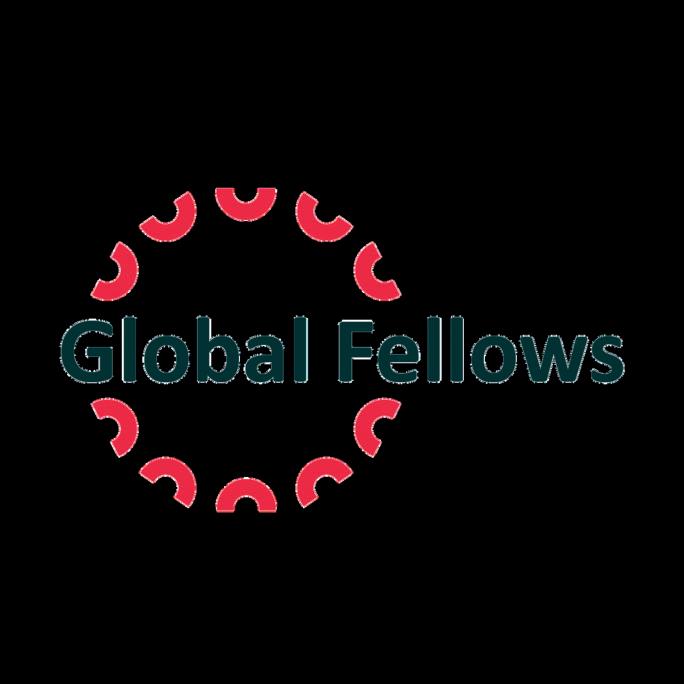
SUCCESS STORIES
HEAR US NOW
CIVIC ENGAGEMENT IN A NUTSHELL
OSUN PROJECTS
EXPERT OPINIONS
SPRING 2024 EDITION
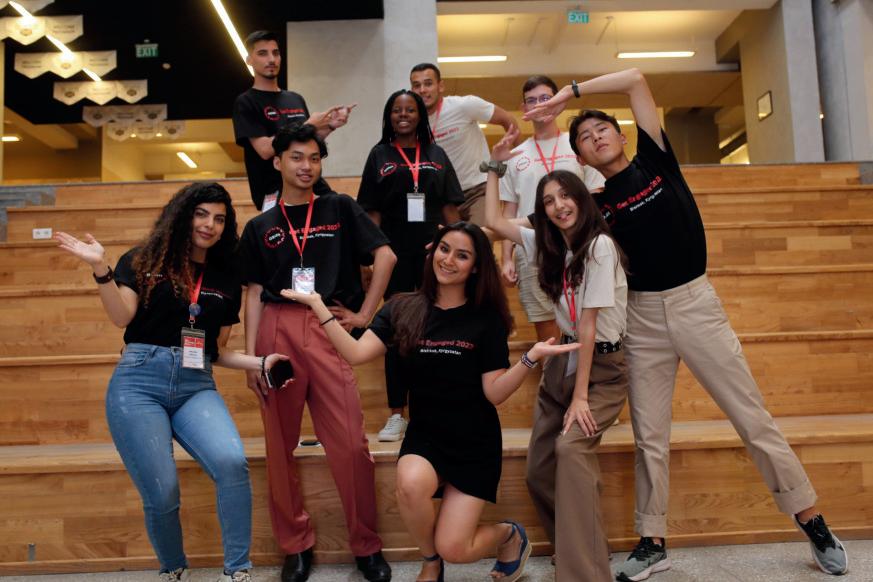
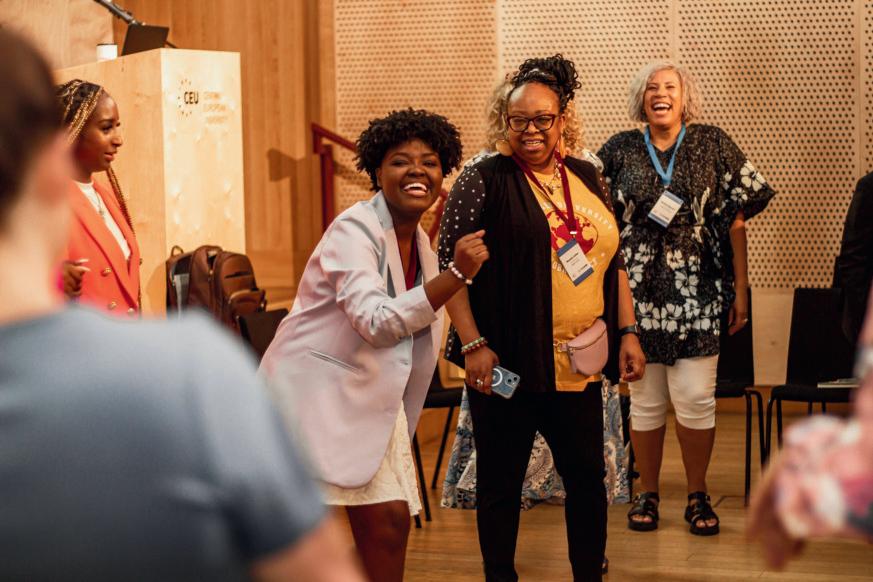
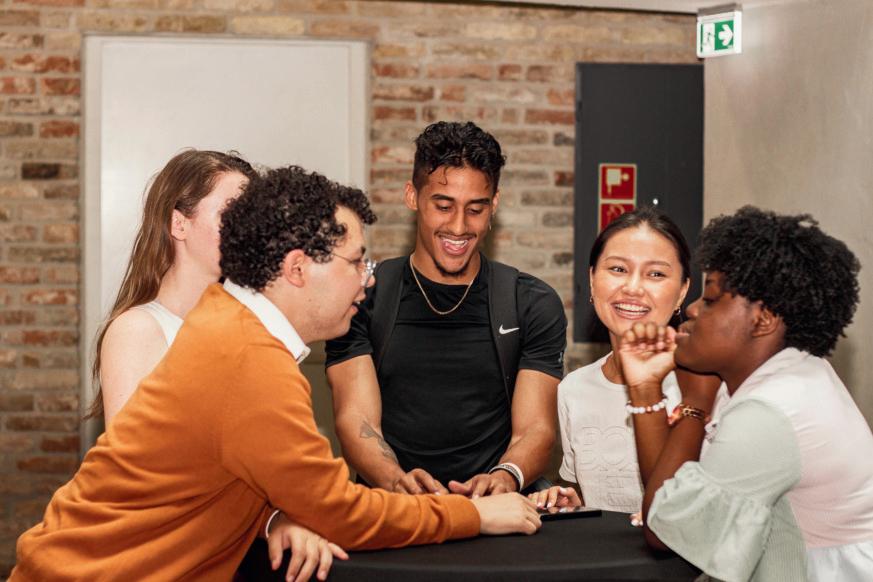
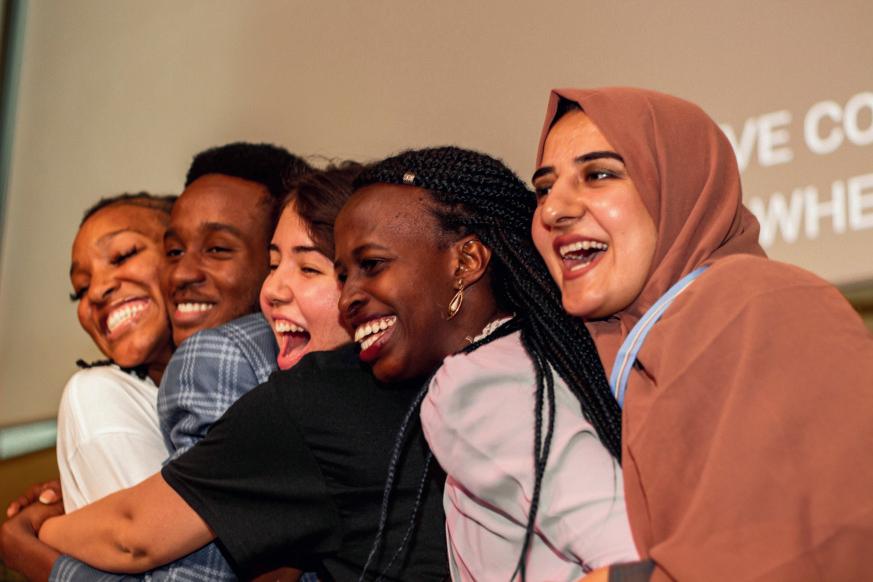
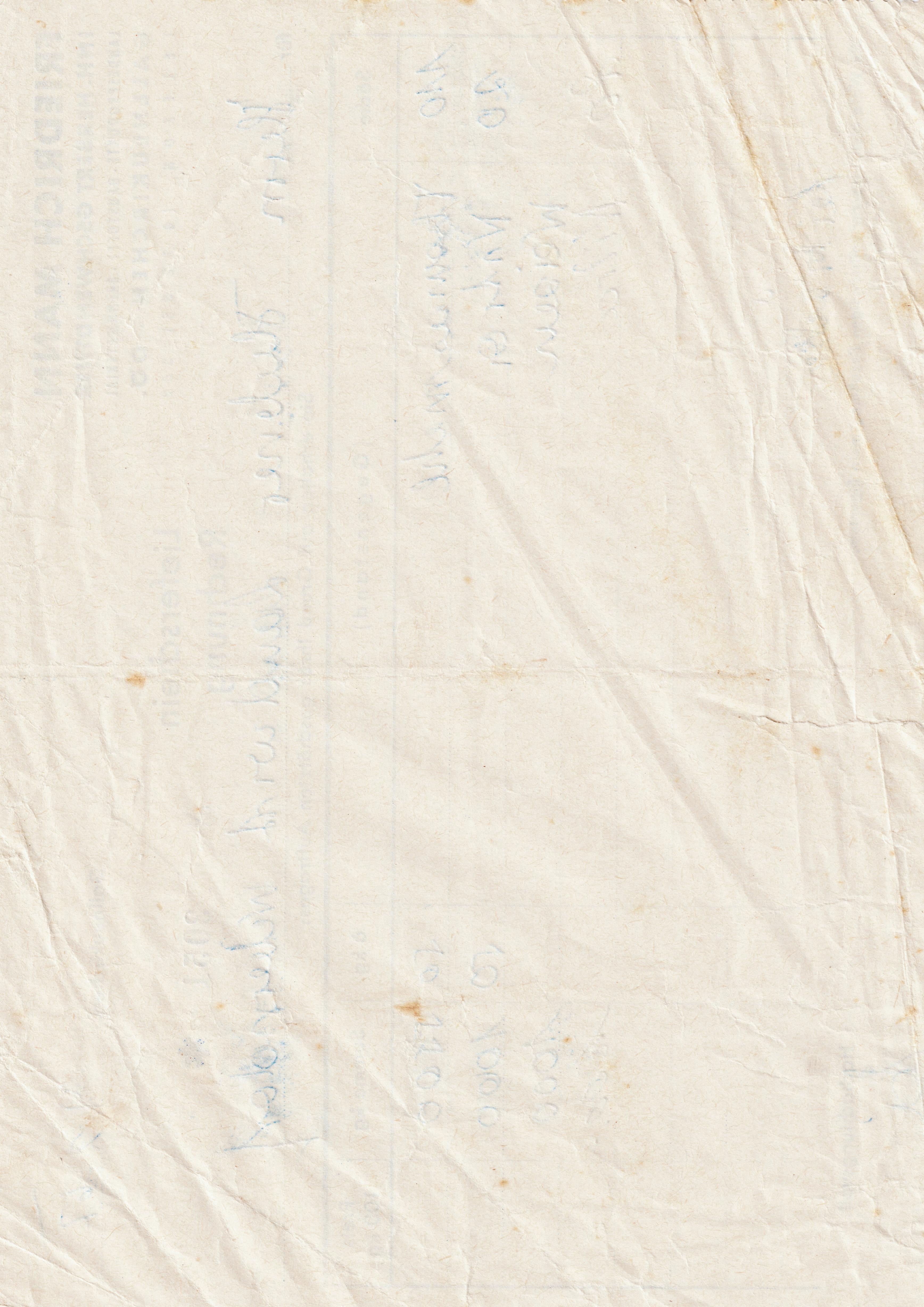
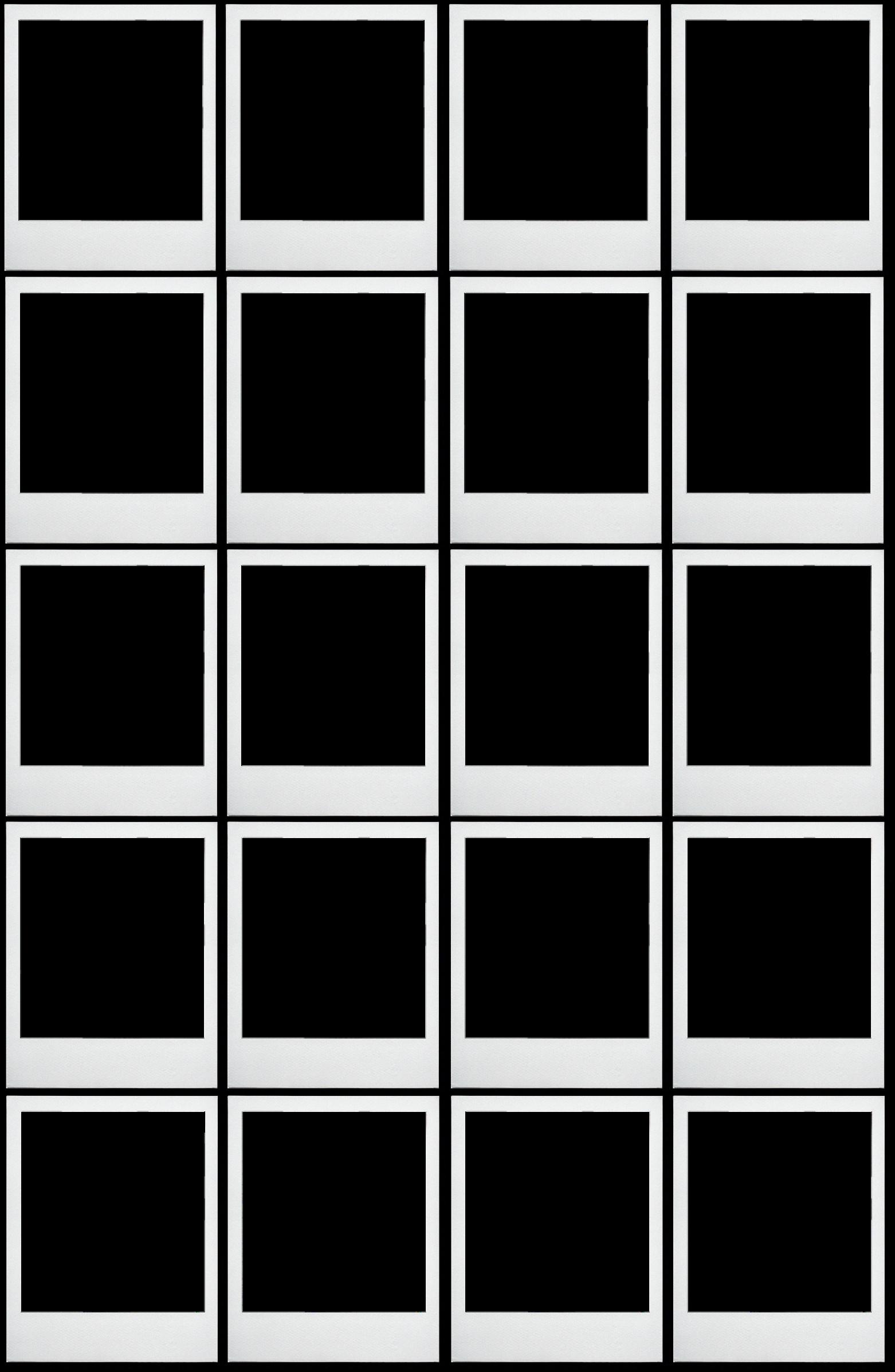
03 ISSUE 3
2024 BARD CENTER FOR CIVIC ENGAGEMENT
GLOBAL ENGAGEMENT FELLOWS ANNUAL MAGAZINE
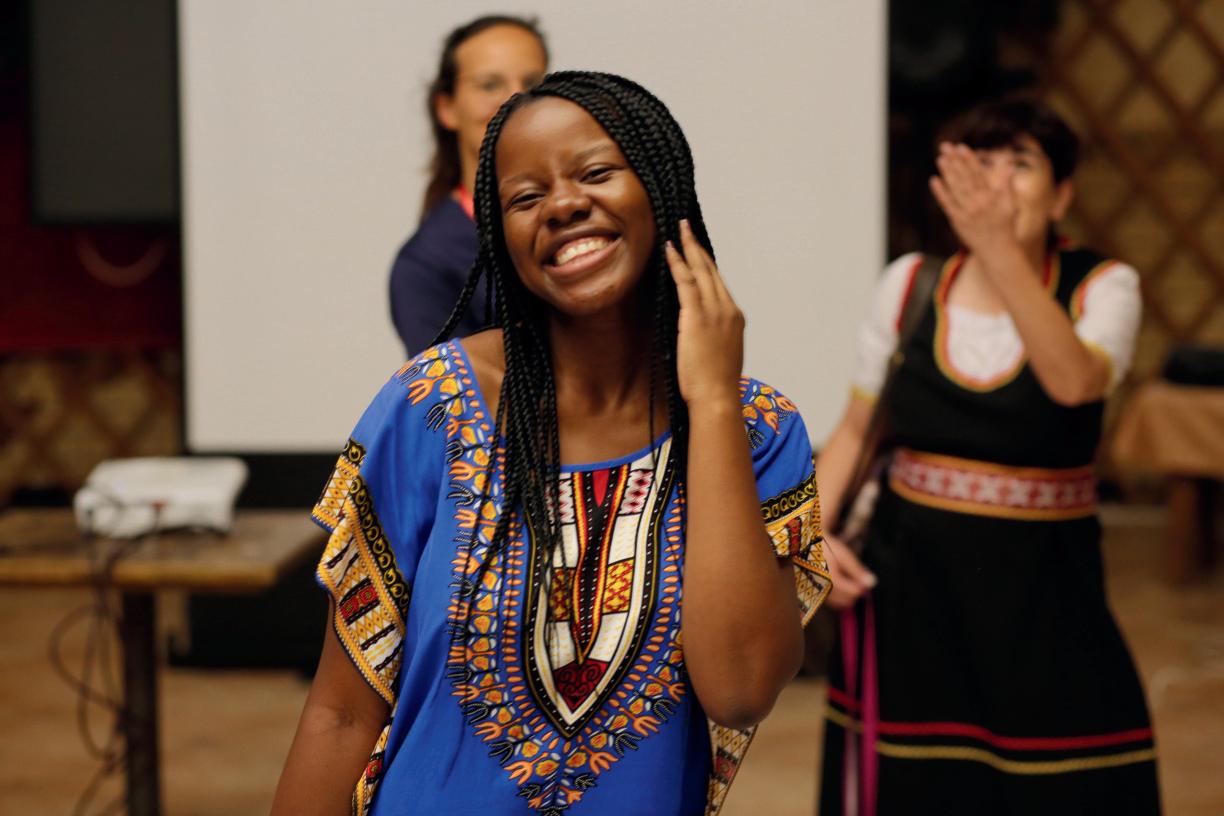
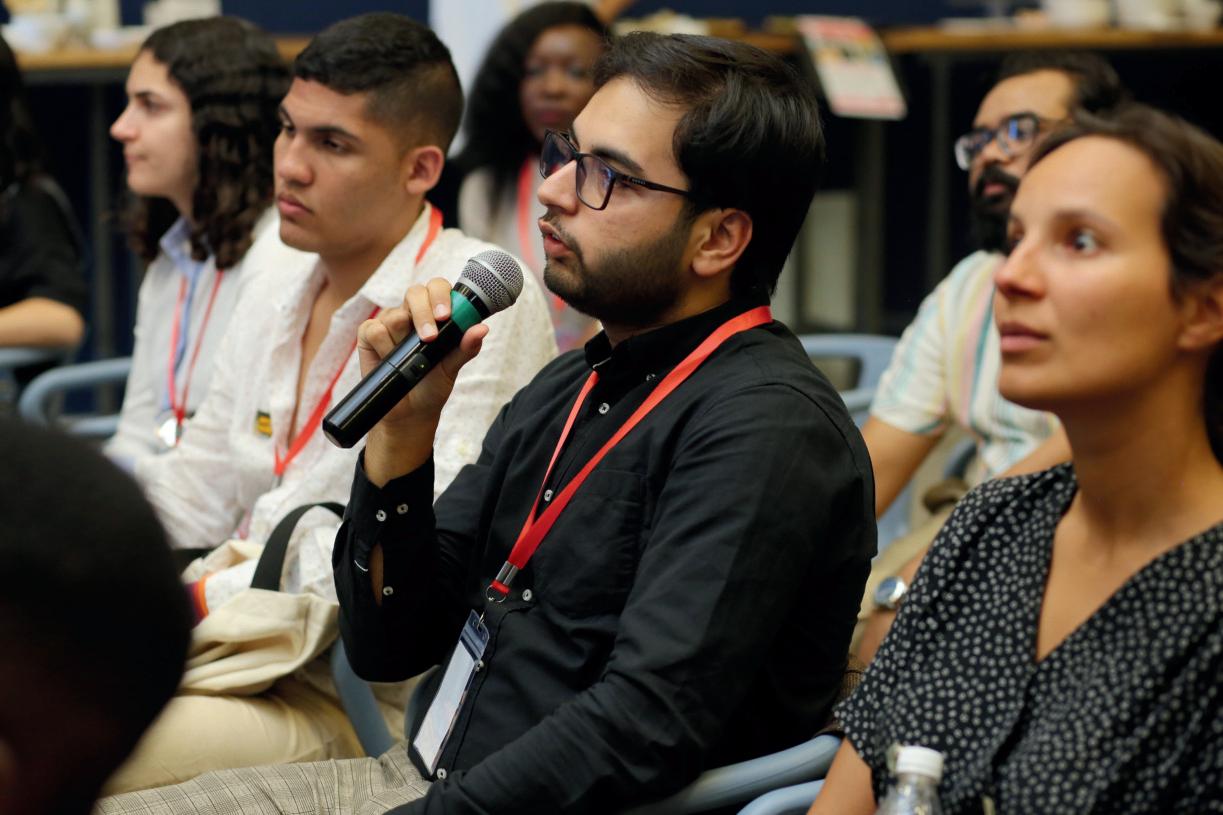
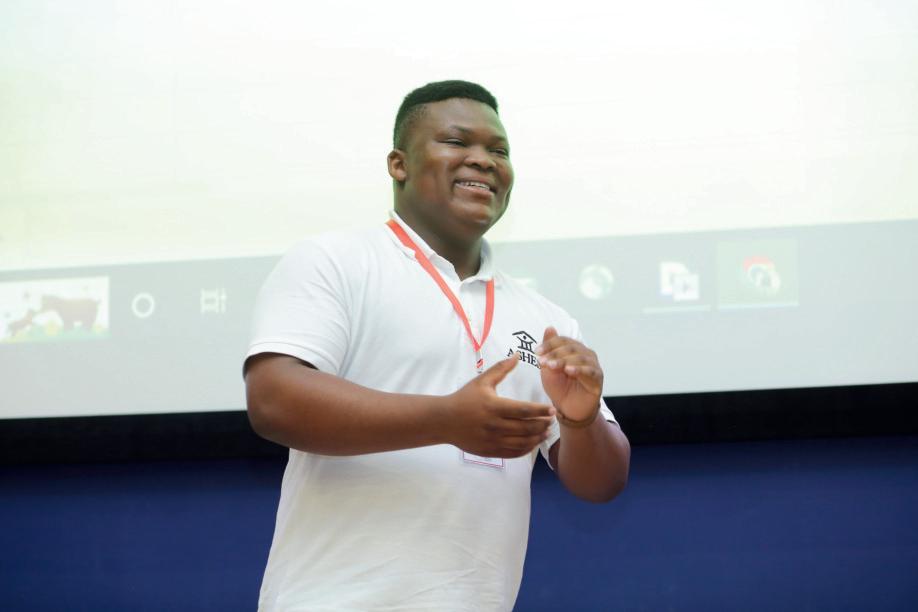
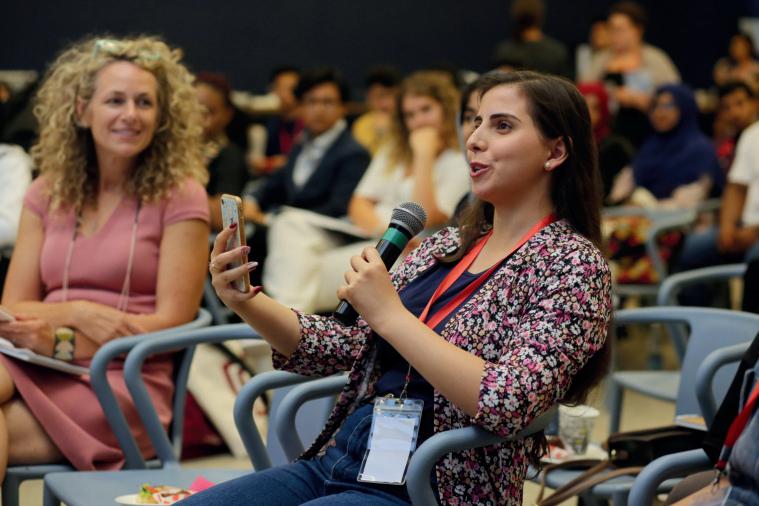
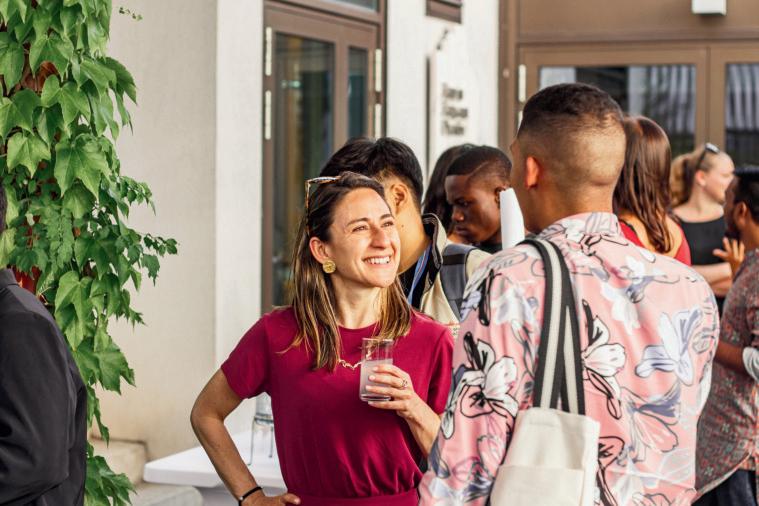
Success Stories
Bisan Abdelhakim Safi | Rooted Love
Safar Muhammadi | From Identity to Initiative: A Journey Through Language, Culture, and Poetry
Dzhamilia Lansarova | Journey to Empower Female Leaders with "Altynym"
Dave Leori Donbo | Championing Inclusion and Social Impact
Labiba Rifah Nanjeeba | Inspiring Change through Inclusion
Dareen Alhajaref | Debate as a Constructive Tool for Mobilizing the Community
Judah Firestone-Morrill | The Youngest OSUN Global Engagement Fellow
Ahmad Elham Wardak | Women Empowerment through Education
Juan Moncaleano | Breaking Barriers: The Path to Power Equity
Myat Moe Kywe | Odyssey of Unveiling Power through "Lead with Her"
Splendour Kalu | Youth Changemakers in the Information Age
Nguyen Dang: Balancing Academics, Community, and Cultural Preservation
TABLE OF CONTENTS
Hear Us Now Message from Global Engagement Fellows Coordinator 01 02
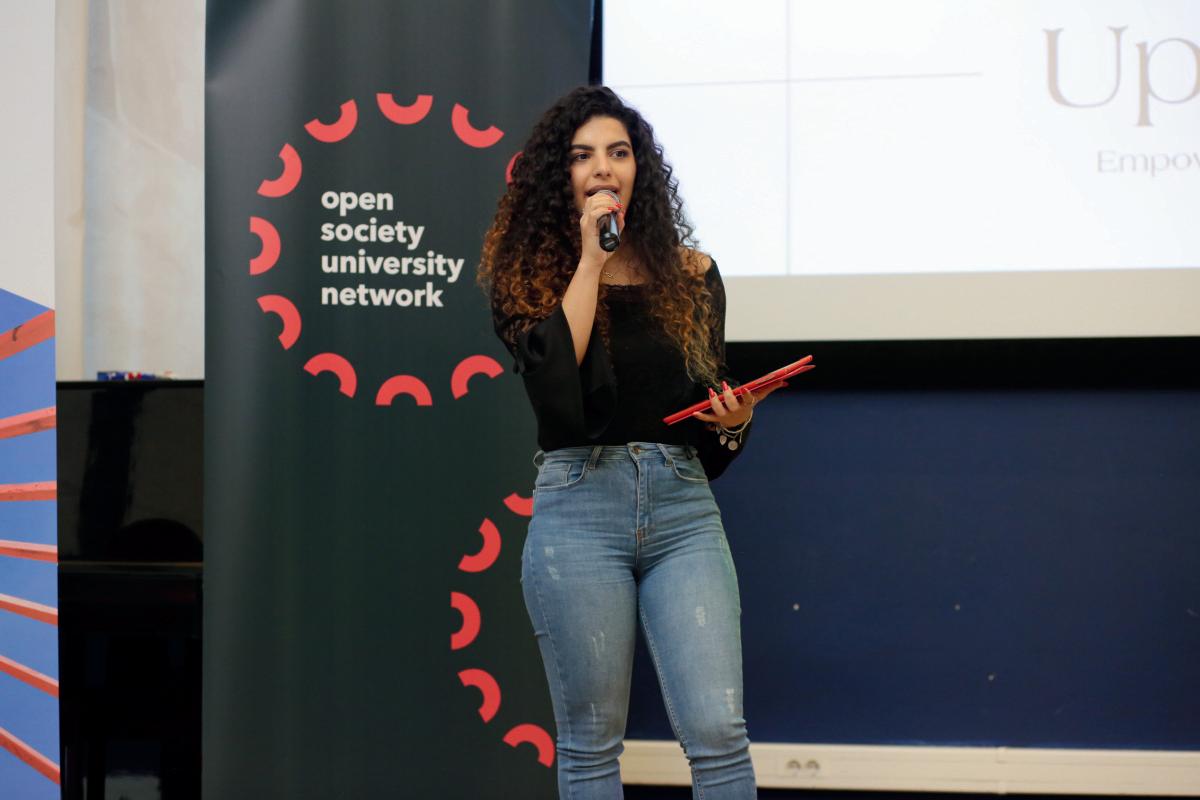
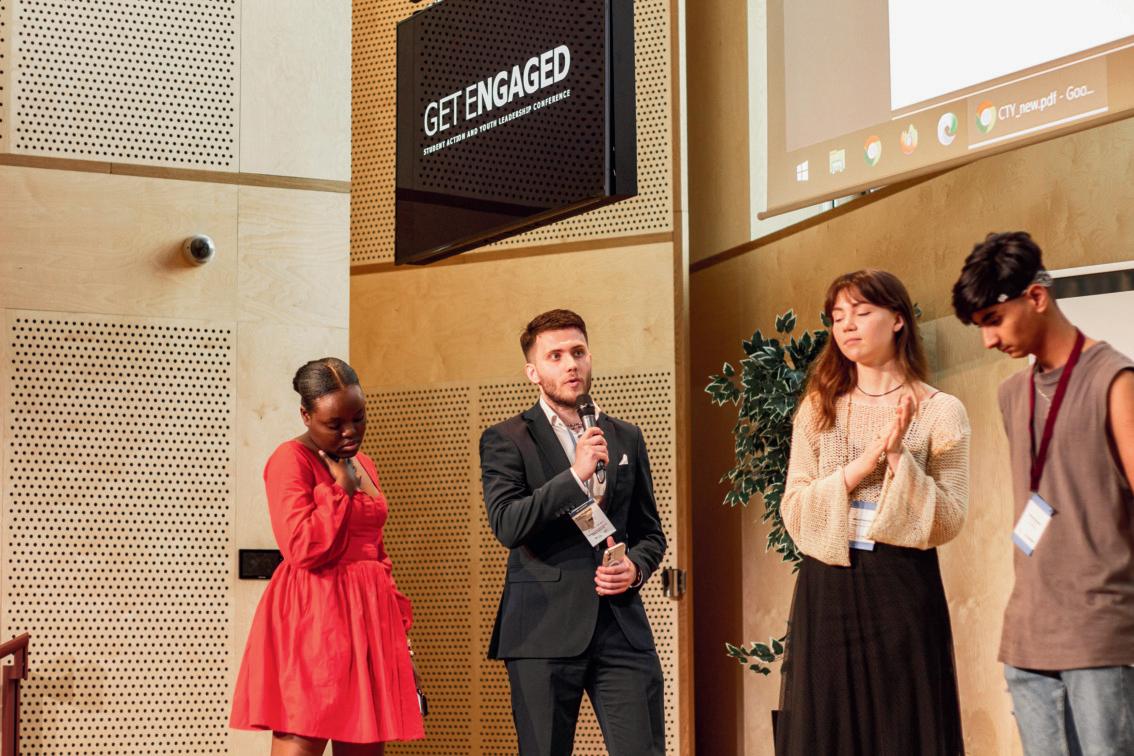
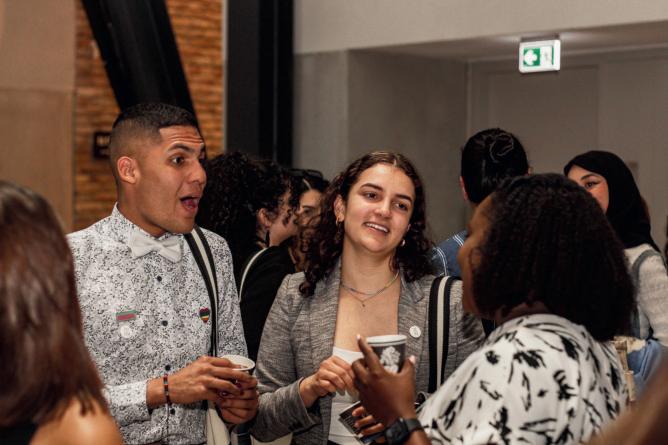
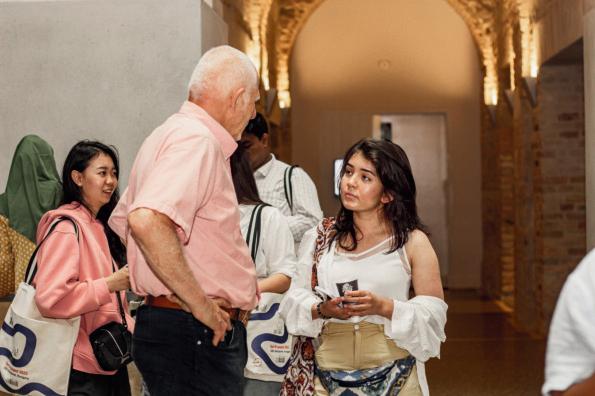
Civic Engagement at the Margins: Refugees in Kakuma Refugee Camp
Nurturing Healthy Organizations and Managing Team Conflict
Coping with Failure
Testosterone Cyberdemic
A Good Recipe to Sustain your Civic Engagement project

English and Mindfulness for Students in Afghanistan
The Spirit of Ubuntu in the Get Engaged Conference
Ideas Incubator at the Get Engaged 2023 Conference
Student Research at the Economic Democracy Initiative
Becoming a Global Engagement Fellow: A Journey from Afghanistan to the World
Agents of Change: The OSUN Monthly Civic Engagement Workshop Project
Empowering Youth and Transforming Communities: My Journey as a Global Engagement Fellow
Breaking Barriers to Learning
Flóra László | Shaping Civic Engagement at Central European University
Sarah deVeer | Empowering Lives through Civic Engagement: A Path to Transformation
Sabina A. Wien | Adventures in the Wonderland of Civic Engagement
Brian Mateo | A Beacon of Civic Engagement at Bard College
Sarah Bou Matar | Empowering AUB Communities through Civic Engagement
OF CONTENTS 3
Engagement in a Nutshell
Projects
TABLE
Civic
OSUN
03 04
Expert Opinions 05

MESSAGE FROM GLOBAL ENGAGEMENT FELLOWS COORDINATOR
In October 2017, during the closing ceremony of the Get Engaged Conference hosted at Bard College Berlin, a pivotal moment occurred. Participants were called upon to brainstorm ideas for staying connected beyond the conference and to impart the knowledge they gained with their peers at their respective institutions. It was at this juncture that a group of visionary student attendees conceived the Global Engagement Fellows (GEF) Program. This year, we are proud to report that since then, we've successfully recruited 29 students into the program, now known as OSUN Global Engagement Fellows, hailing from 17 different institutions within the Open Society University Network (OSUN).
Our Fellows embarked on their journey by setting up dedicated office hours to engage in discussions on civic involvement with students at their home institutions. They effectively acted as conduits, linking students to a vast network of young leaders around the world. At present, fellows are actively championing and coordinating various thematic civic engagement initiatives throughout OSUN on a daily, weekly, and monthly basis, developing and sustaining their own civic engagement projects while showcasing leadership skills and an aptitude for collaborative work.
With an overarching mission to empower young leaders so they can enhance their civic engagement endeavors at the local, national, regional, and international levels, the program aims to disseminate knowledge and share inspiring success stories. This impact isn't
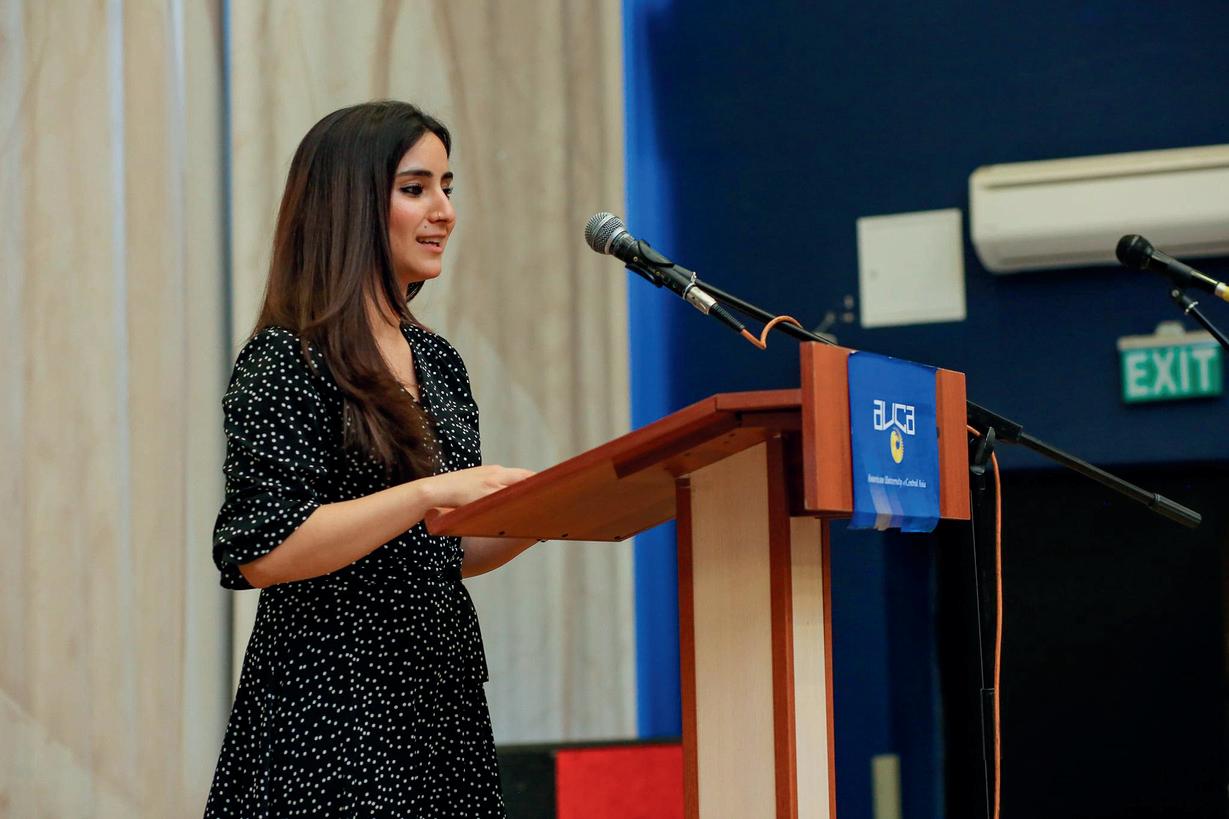
confined to their home institutions but extends worldwide. The GEF Annual Magazine provides students with an opportunity to delve deeper into the program's essence, promoting their projects and sharing their experiences with students across the network.
In this third issue of the annual magazine, we share civic engagement insights through the perspective of experts; explore successful projects spearheaded by young leaders; learn about administrators' institutional vision for student engagement; and bear witness to the support that OSUN offers to project leaders. This issue also provides a glimpse into the fellows' other activities, including office hours, narratives gathered from students, GEF monthly civic engagement workshops, thoughts about leadership in times of crisis, and highlights from the Get Engaged Conference, among other exciting content. We hope you will thoroughly enjoy every page of this publication and eagerly anticipate your return for more inspiring content.
Warm regards,
Zarlasht Sarmast Coordinator, Global Engagement Fellows Program
4
SUCCESS STORIES
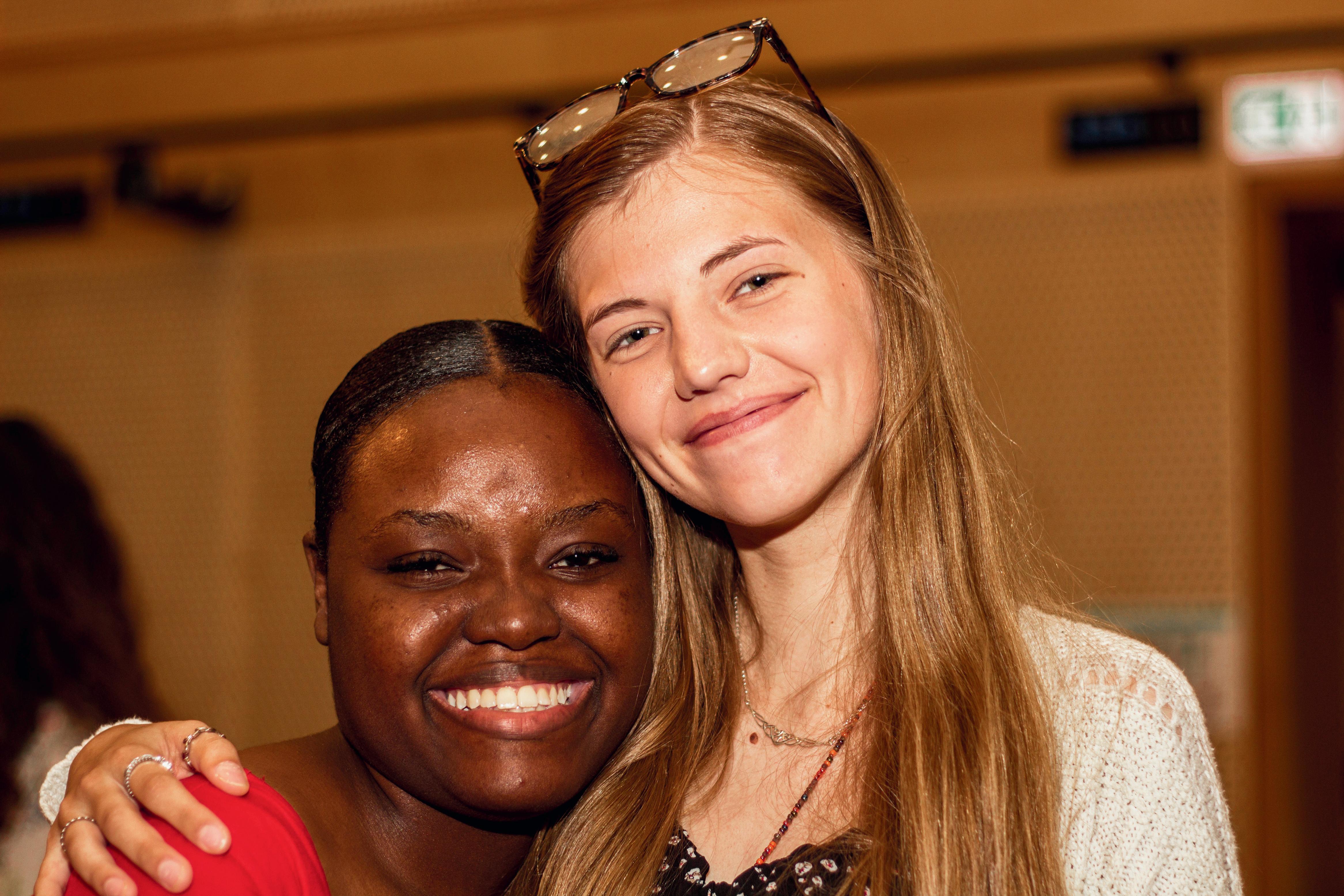
BISAN ABDELHAKIM SAFI ROOTED LOVE
by Christina Anastas - Al-Quds Bard College of Arts and Sciences
In the heart of Palestine, where history and heritage echo among old olive trees that dot the landscape, a journey of commitment and love is embodied by Bisan Abdelhakim Safi. As a thirdyear Molecular Biology and Genetics student at Al-Quds Bard College, Bisan not only studies the mysteries of life but also focuses on the importance of the land, thereby shaping her own story of resilience and power. Growing up under settler colonialism, she strives to reaffirm Palestinian identity and existence with her community-centered environmental project, “Baseeta: Little Big Steps.”
Growing up in a world plagued by the obsession with power, the journey of Bisan highlights the theme of finding light within the darkness. Living in a time where global morals bow to the exploitation of human beings and planet Earth, the story of Bisan sheds light on the paradoxes that define our world. It begins with the ongoing ethnic cleansing and theft of Palestinian lands, atrocities that commenced 75 years ago and continue to annihilate Palestinian existence. This systematic and slow violence, characterized by the “uprooting of the natives and the transplantation of the settlers”, is a direct outcome of Israeli settler colonialism and within these political and ecological battles, Bisan came to recognize that the same power behind the oppression of human lives was also responsible for destroying the lands she calls home. She believes this violence does not only threaten the environment but also perpetuates a cycle of destruction and oppression. In light of this, Bisan has launched Baseeta, a community engagement project for Palestinians to deepen their ties to their homeland through nontraditional activities.
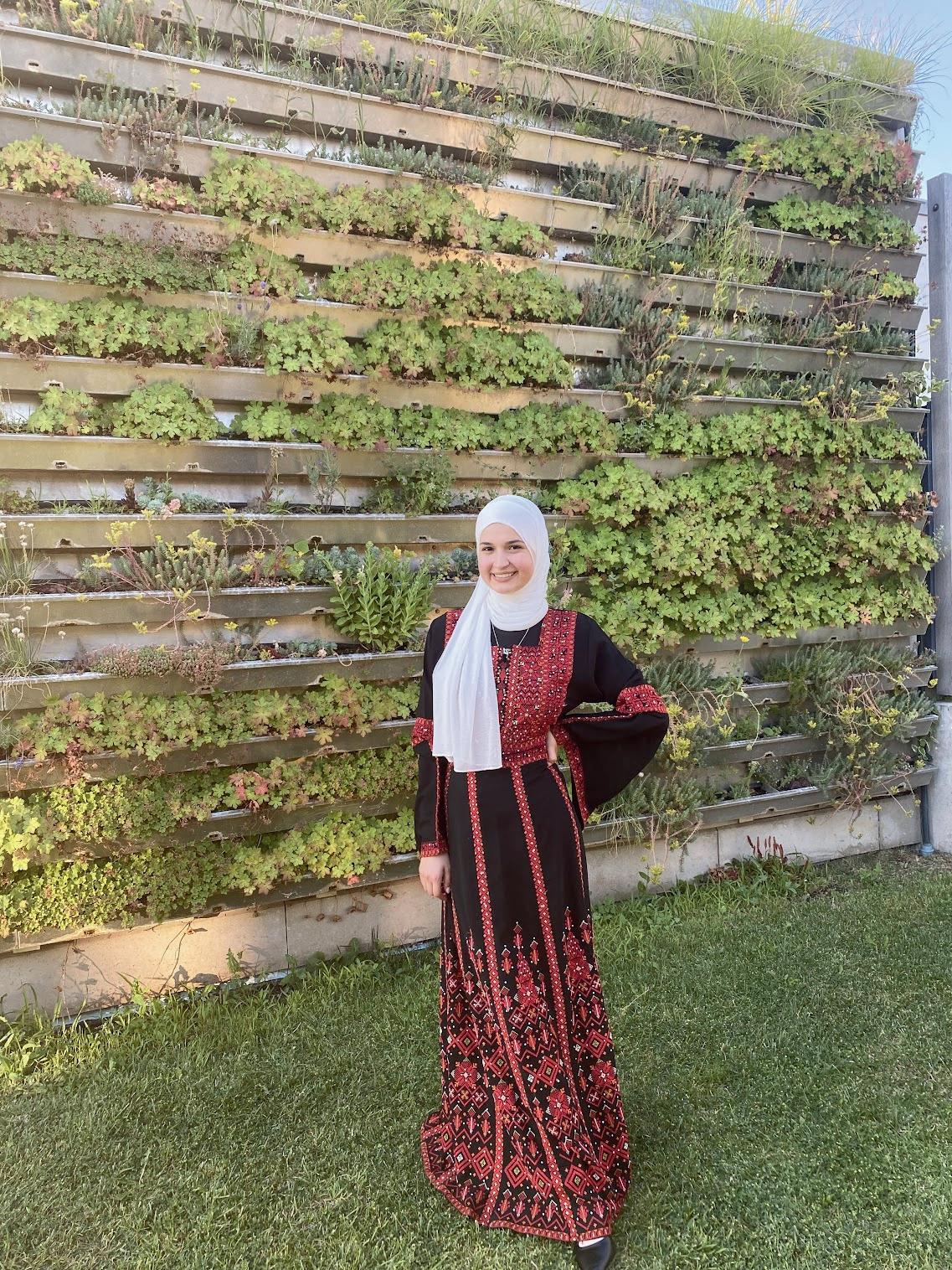
This project did not grow overnight. Bisan’s love for nature and eco-therapy ignited in her at an early age, developing into a guiding life principle. As she succinctly puts it, “While we often feel that nature needs us, we, in fact, forget that we rely on it more than it does on us”. During her first year at college, Bisan joined the environmental sustainability club “EcoAQB,” where she led many impactful activities, including organizing a campaign in an UN Relief and Works Agency (UNRWA) school. Nevertheless, Bisan had a much more powerful purpose in mind. Her bond with nature inspired her to bring about change in ways that allowed her to define her own identity. Thus, believing that the first step in tackling a problem is rectifying the root cause with a basic solution, she began the transformation with a simple step, Baseeta.
PLANTING THE SEEDS OF EFFORT TO HARVEST THE FRUITS OF SUCCESS
Baseeta, in informal Arabic, means “simplicity,” while in formal Arabic, it represents the concept of land. From Bisan’s perspective, the project’s foundation attempts to simplify the environmental issues that the world, particularly the Palestinian environment, faces. The goal is to transform these issues, which are often overlooked, into straightforward, valuable concepts. With Palestine under colonization, identity holds a prominent value. Adhering to the land is an important part of the Palestinian identity and its values. As Bisan claims, “Restoring a connection with the land is an act of nonviolent resistance and an individual’s means of defending it.”

6
Nature in Palestine has been facing continuous violations, including tree cutting, land burning, and degradation of water resources, as well as land and soil contamination as a result of the prolonged colonial violence. Even within the confines of Al-Quds University, trees have not been protected from the brutality of the occupation. Over the past year, more than 80 trees on campus were burned by clashes and tear gas bombs thrown by occupation forces.
What sets Baseeta apart is its dynamic approach to raising awareness. Using games, art, discussions, and storytelling, students learn the rich history and cultural significance of the lands of Palestine. Bisan is concerned with the need for more environmental knowledge within Palestinian educational institutions; therefore, through these campaigns, she wants to be the starting point for this change. Bisan’s bright vision drove her to focus on education through engaging hearts and minds. The name Baseeta embodies the concept that even a tiny effort, like a drop in the ocean, has the potential to generate powerful waves of change.
THE ROAD FORWARD: A DROP OF INSPIRATION
Bisan has been actively engaged in environmental activities and campaigns from the very beginning. She is also a member of “EcoPhilics,” a team that plans hikes across the Palestinian countryside, clearing trash dumped on the ground. Another step that Bisan has taken to act as a leader and a change agent within nature is by participating in the MENA Youth Climate Negotiators training in the summer of 2023. This program fosters engaging and following up with the global challenges inside the UNFCCC (United Nations Framework Convention on Climate Change) with the presence of climate negotiations specialists. The experience has not only been rewarding but has also broadened her perspective on enacting change and shifting her principles from emotional to professional ones. Bisan is motivated to investigate real connections between biology and other areas, including the arts. This interdisciplinary approach creates an integrated understanding of biology and its practical applications. As an OSUN leadership
she works hard so her campus is involved with exploring innovative ways to conserve Palestinian lands.
Bisan is also an alumni of the OSUN Get Engaged Conference 2023, where she joined a vibrant community of changemakers. Having the chance to represent her venture to a global audience stands as a testimony to her passion and her successful ambition.. Her presence at the conference was a powerful tool to challenge misconceptions and showcase her ingenuity as a Palestinian student. Networking with other cultures helped her to further envision the project globally, transcending any socioeconomic boundaries.
AN END, YET A NEW BEGINNING
Years of active civic engagement have instilled in Bisan a talent for listening to the voices of others and a growing commitment to helping those who are suffering. In her leadership role, Bisan manifests her rooted love and identity. As Frantz Fanon once said, “For colonized people, the most essential value, because it is the most meaningful, is first and foremost the land, which must provide bread and naturally, dignity.” Thus, Bisan is dedicated to showing the world the truth and uncovering the concealed realities that the world continues to suppress. The realities remain hidden in the hands of the colonizers who control the narrative of every Palestinian life, she says. Bisan remains determined in her refusal to be weak, submissive, or moved like a piece in a chess game. She chooses to exist, resist, confront, and challenge the status quo.

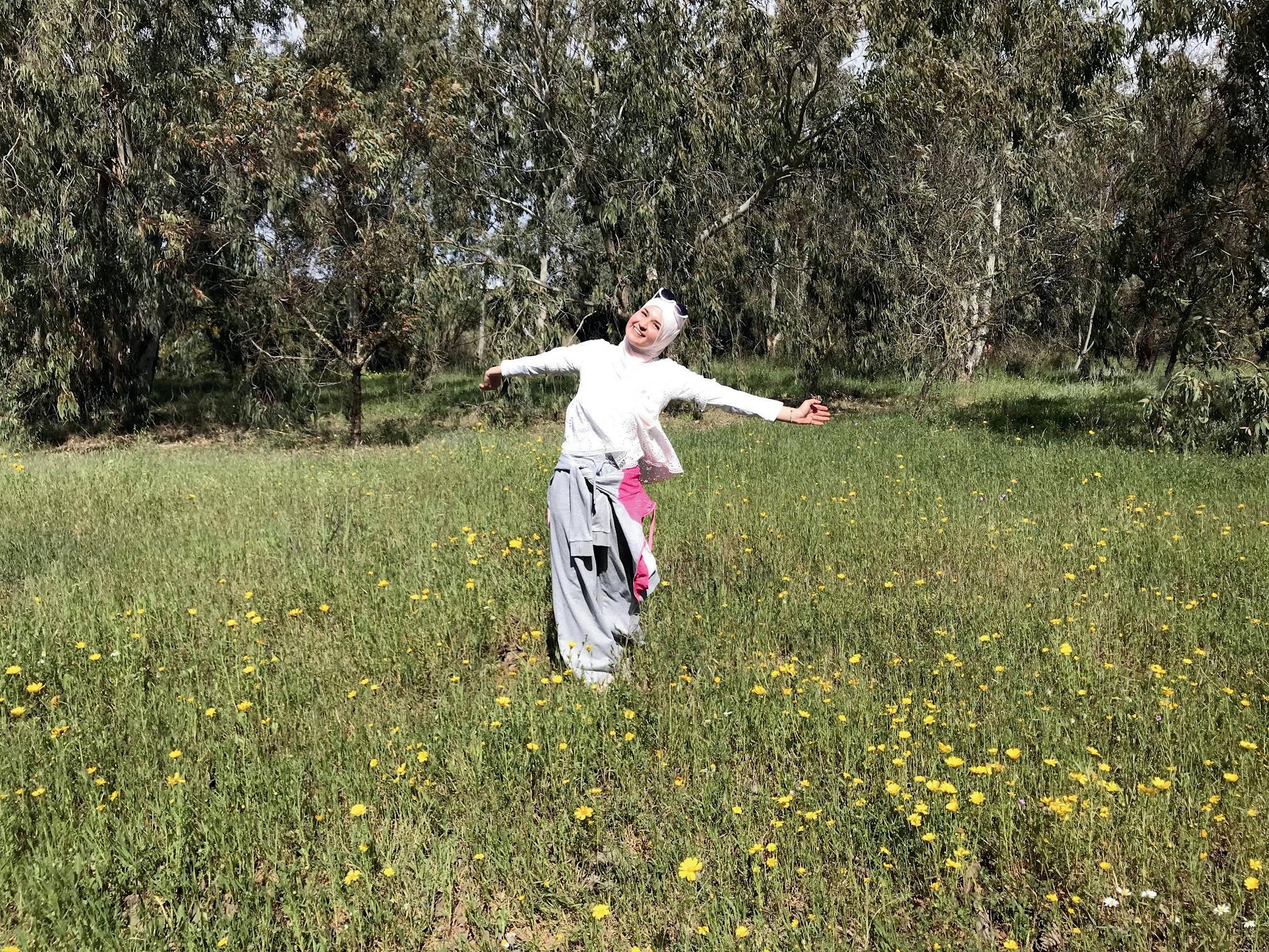
7
SAFAR MUHAMMADI FROM IDENTITY TO INITIATIVE: A JOURNEY THROUGH LANGUAGE, CULTURE, AND POETRY
by Mohammad Faraz Sadiq - Bard College Berlin
Safar Muhammadi is a second-year Bard College Berlin student studying Economics, Politics, and Social Thought. His family originally comes from Afghanistan, but he grew up in Pakistan, where his parents sought refuge during the turbulent years of fighting within their homeland. Owing to this cultural background, Muhammadi grew up speaking multiple languages. At home, he spoke Farsi, whereas he also learned Urdu and Pashto, the languages spoken in his town.
THE BEGINNINGS
Growing up in a multilingual environment, Safar developed a passion for languages and literature. His mastery of the Farsi and Urdu languages and his deep interest in literature define his personality and worldview. It was with this background that he founded the Persian Poetry Project at Bard College Berlin, to provide an avenue for fellow Farsi speakers to reconnect with their homeland, their culture, and literature, which many of them left behind, as Afghanistan again fell into the throes of violence and repression.
Language holds great importance for Safar. His project is founded on the belief that language binds people together and its significance as an identity marker becomes even more pronounced when a community is marginalized. This, unfortunately, has been the case for Safar’s Hazara community in parts of Pakistan and Afghanistan, where they have been facing repression for decades. Both state and non-state actors have been running an extermination campaign against this religious and ethnic minority, denying them their fundamental rights, the right to live in peace, and the right to realize their true potential as a community.
This historical context makes the Hazara people in Pakistan attach much value to their language, as a mechanism of shared cultural defense, and as a tool to withstand the oppression they face

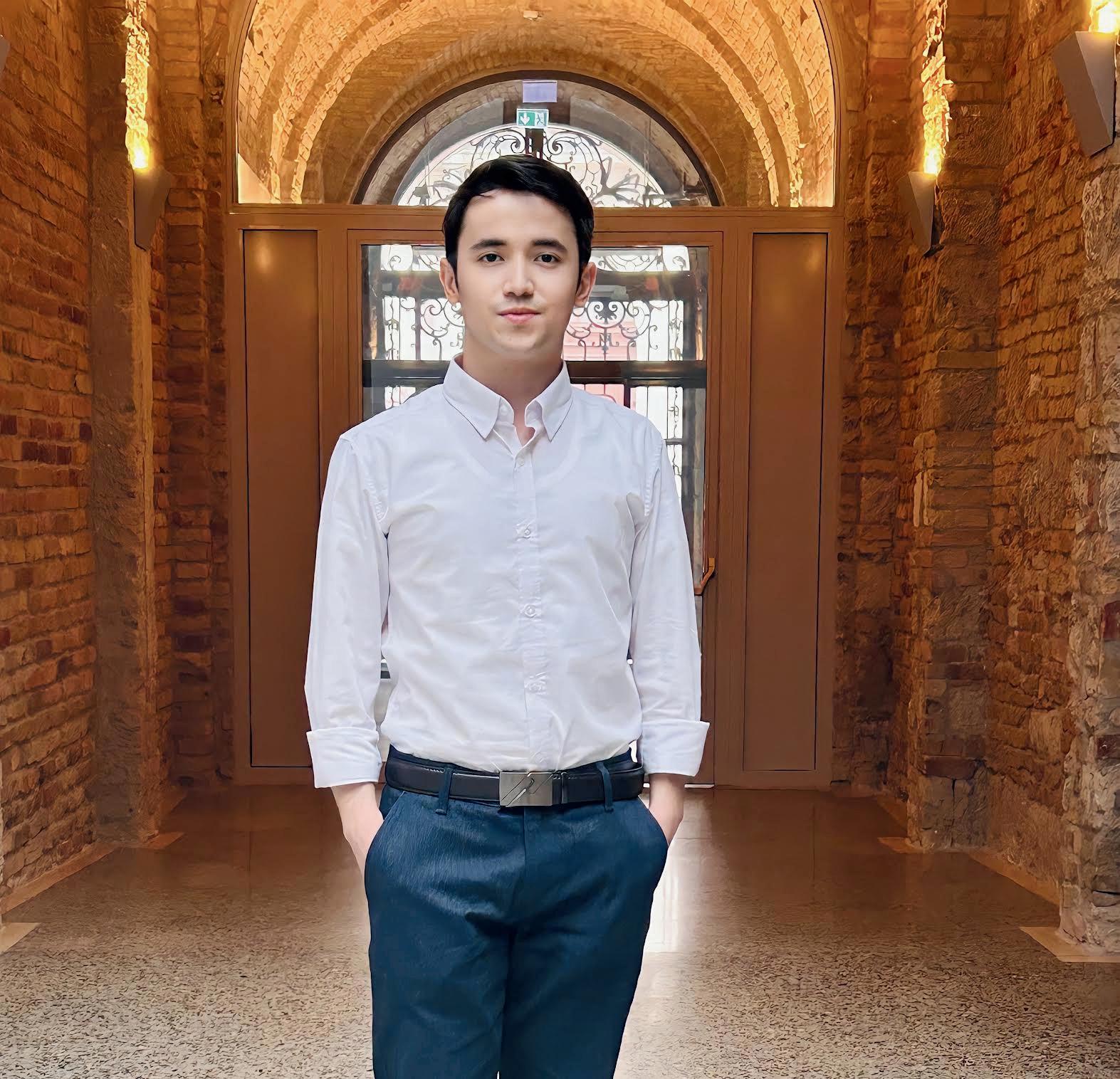
as a community. This gives Safar a sense of purpose, driving him to promote his language and the immense cultural and political significance it entails. At a more personal level, Safar’s penchant for literary masterpieces from the rich Farsi heritage, Shahnameh, and the works of Rumi, Hafez, and Iqbal, to name a few, keep the language very close to his heart.
8
BRIDGING THE EAST AND THE WEST
When he moved to Berlin, Safar experienced yet another language, yet another literary and intellectual tradition. As part of his studies, Safar has been exploring the works of writers like Nietzsche, and he is impressed by the vastness of the Western literary and philosophical tradition.
He realized that he was not alone in this journey. Like him, many of his Farsi-speaking peers were also interested in these works. Added to the desire to explore a new culture were also the nostalgic memories of home. Safar brought these two together and created the Persian Poetry Project in the autumn of 2022. This initiative aimed to introduce other students at the university to Persian literature and to study it with a comparative lens by juxtaposing it with Western literature, shedding light on the shared human experiences across diverse cultural landscapes. Safar’s project is a testament to the transformative power of literature – a platform to celebrate and preserve cultural identity through language.
Safar’s efforts promoting the Farsi language through poetry have been raising crucial questions, and adding to the rich discourse in the community he now finds himself a part of. He says, “What I am trying to do here is to bring the beauty of my language to my new community. Through this project, people from different backgrounds realize that at the core and essence of our existence, we are all human, with the same feelings and emotions.”
His initiative is emblematic of the profound impact that a single individual can have on their community and beyond. His determination to bridge cultures through language, literature, and education is a testament to the strength of linguistic identities and the immense power of words. The Persian Poetry Project at Bard College Berlin serves as an enduring legacy, reminding us that language is the thread that weaves the past, present, and future in the tapestry of human existence.

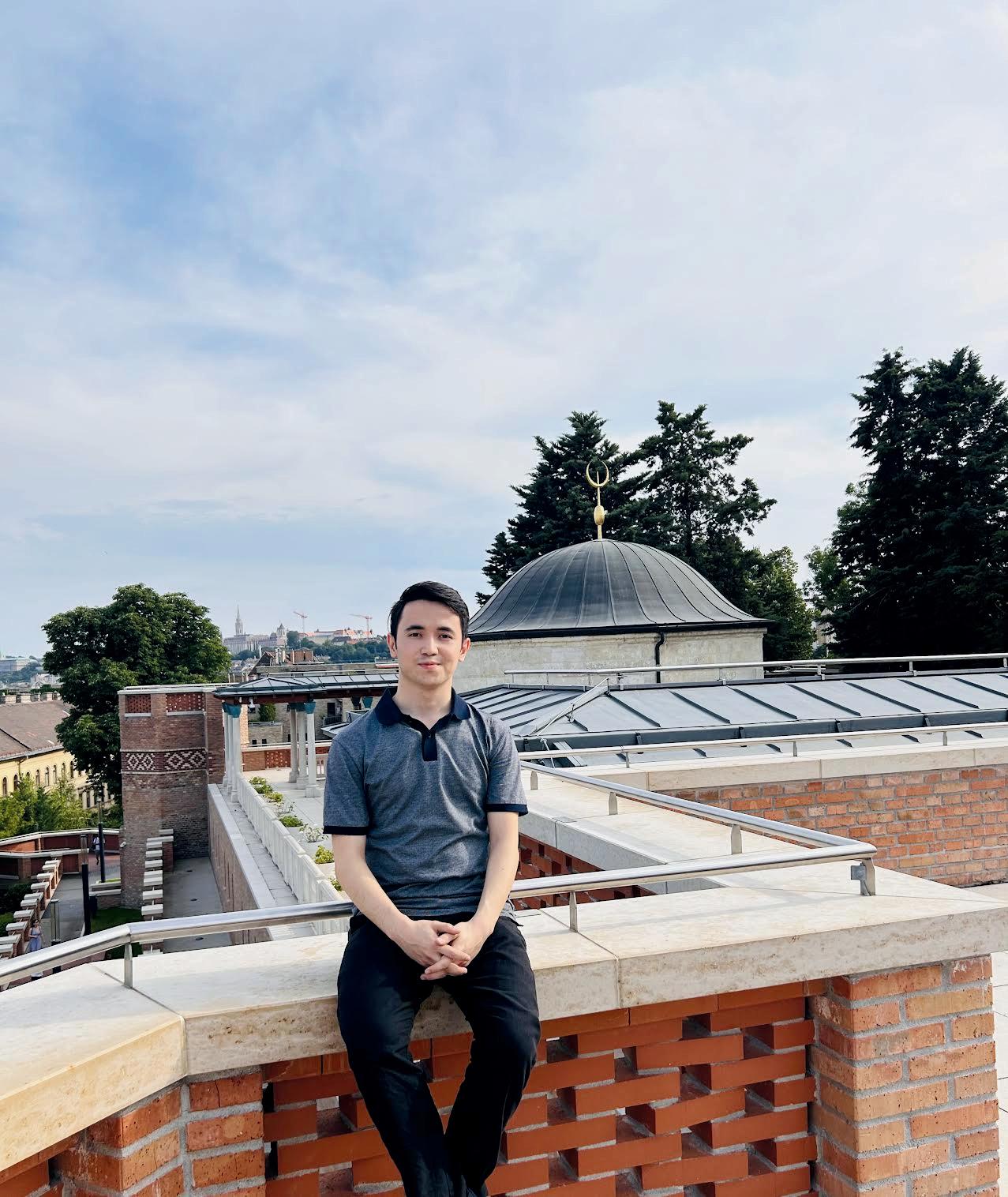
9

DZHAMILIA LANSAROVA
JOURNEY TO EMPOWER FEMALE LEADERS WITH "ALTYNYM"
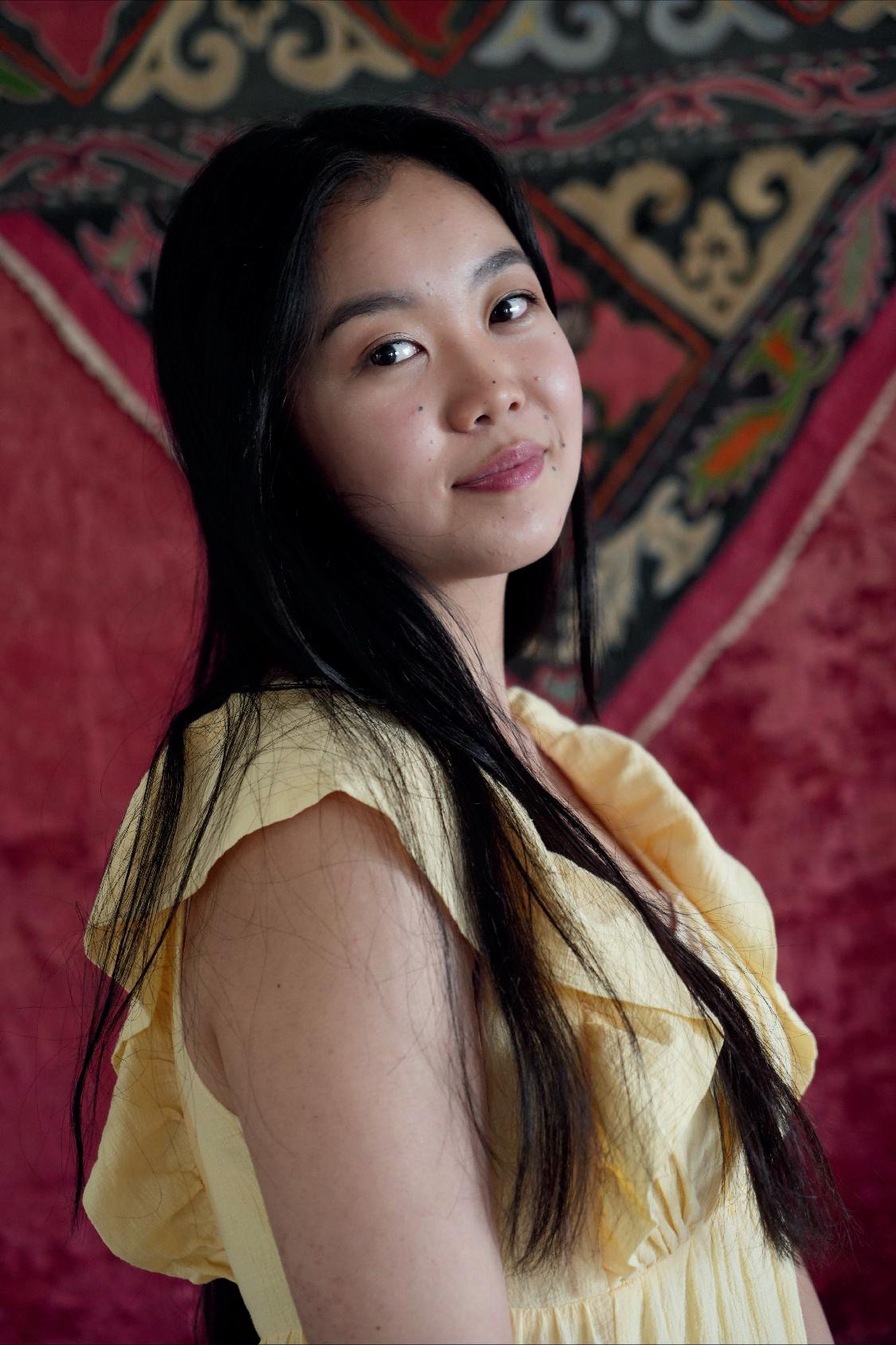
Dzhamilia Lansarova, a student at the American University of Central Asia (AUCA) in Kyrgyzstan, majoring in Business Administration, is dedicated to creating social impact. Originally from the Kyrgyz town of Tokmok, where she spent eleven years in high school, Dzhamilia's academic journey has been marked by remarkable achievements, including her active participation and success in the city’s Olympiad in Russian language and literature. However, her passion extends beyond academics, as she is fervently committed to providing girls with diverse opportunities. This commitment underscores her dedication to advancing gender equality and supporting female empowerment through educational or social initiatives.
CHAMPIONING GENDER EQUALITY IN KYRGYZSTAN
Kyrgyzstan's diverse cultural landscape, which includes the vibrant Dungan community, provides the rich tapestry against which Dzhamilia Lansarova's unyielding commitment unfolds. Her family's history, marked by her grandparents' escape from China to the USSR over six decades ago, is a poignant backdrop to her unwavering dedication. During that era, access to education remained a scarce privilege, particularly for Dungan women, who were predominantly relegated to laborious agricultural roles within the then Soviet Socialist Republic. This historical gender disparity perpetuated a pattern where men transitioned into agriculture and entrepreneurial endeavors. At the same time, young girls found themselves bound by the constraints of domesticity, often entering early marriages as young as 15 years old.
A PERSONAL JOURNEY IGNITES A MISSION
Dzhamilia's personal journey as a woman navigating these deeply entrenched gender norms became an integral part of her mission. She bore witness to the restrictions placed upon girls throughout her formative years, cultivating a profound awareness of the disparities they endured. Her own experiences and observations ignited her determination, leading her to declare, "It was the reason for my project because I grew up seeing that girls didn't know about other possibilities in life as I did." Therefore, her project evolved into a deeply personal quest, grounded in her unwavering resolve to challenge these norms and empower young girls through the stories of remarkable women who defied societal conventions to achieve their dreams much like her own.
BRIDGING THE GENDER GAP THROUGH "ALTYNYM"
Through her innovative podcast and dedicated initiative, both called “Altynym,” Dzhamilia bridges the chasm between the gender norms of the past and the evolving landscape of today. Her mission centers on inspiring the
by Navruzmo Khayolbekova - American University of Central Asia
10
younger generation of girls by spotlighting women who have triumphed over adversity to achieve their goals. She champions the significance of education, financial independence, and personal development while confronting the common fears that individuals encounter on their journey to success. By doing so, Dzhamilia endeavors to dismantle the cycle of early marriages and limited opportunities, fostering a brighter future for girls within her immediate community and for women across borders. Her project is a powerful testament to her tenacity and unwavering commitment to challenging the status quo for women in Kyrgyzstan and beyond.
Dzhamilia Lansarova's multifaceted approach, blending storytelling, mentorship, and educational resources, aims to inspire girls by showcasing resilient women who defied conventions. Her project fuels hope as girls envision brighter futures beyond early marriages. Dzhamilia's journey, from pioneering independent education to empowering girls, embodies her unwavering commitment to gender equality and education.
Altynym offers vital support and nurtures a strong desire for quality education among Kyrgyzstan's girls, especially in the Dungan community. The project symbolizes Kyrgyz women's invaluable worth and resilience, recognizing their remarkable achievements and significant roles.
NURTURING INSPIRATION AND OVERCOMING FEARS: A PODCAST'S PURPOSEFUL CONVERSATIONS
In each episode of the podcast, great care is taken to personalize the invitation for guests, ensuring that their unique experiences are acknowledged as valuable so they are eager to share them with the audience. Throughout the discussions, a strong emphasis is placed on several key themes, including the paramount importance of education, the pursuit of financial independence, and the continuous journey of personal development. Moreover, the podcast addresses the topic of fears, recognizing that every individual grapples with them at some
point in their lives. Delving into these fears aims to demonstrate that they are surmountable challenges that can be overcome, inspiring both guests and listeners alike.

A VISION OF EMPOWERMENT AND CHANGE
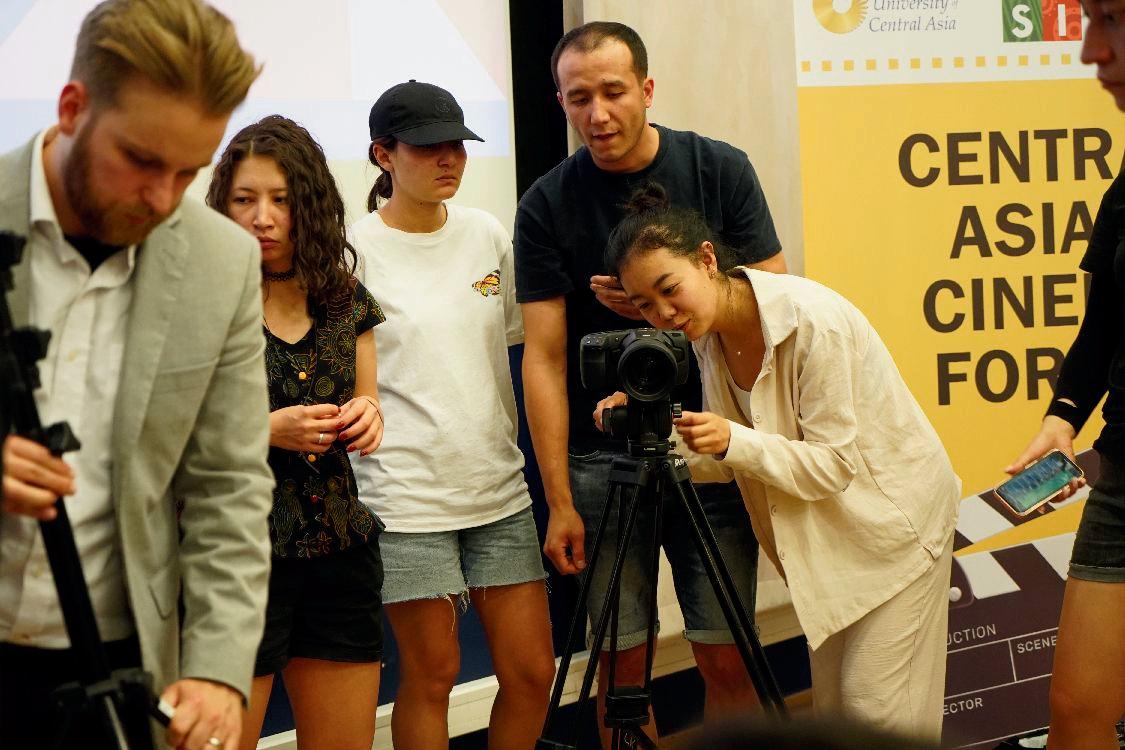
Two seasons of 12 podcast episodes each have been successfully produced, featuring remarkable female leaders from business, IT, and education. The first season is readily accessible on the YouTube channel, "Altynym.podcast," while the second season is currently being edited and will be released Summer of 2024. Looking ahead, the vision for "Altynym" extends beyond a podcast series; the aim is for it to evolve into a thriving and expansive community of female leaders in Central Asia over the next 5-10 years.
As the interview with Dzhamilia concludes, her passion and dedication leave an indelible impression. Her "Altynym" project embodies a profound commitment to making a meaningful difference in girls' lives in Kyrgyzstan and the Dungan community. The significance of her mission becomes even more apparent as the intricacies of her work are explored. Her unwavering belief in the transformative power of education and her determination to challenge societal norms serve as a source of inspiration. Dzhamilia's journey and her work with "Altynym" remind us of the incredible impact that can be achieved when we dare to dream and channel our energies toward a purpose larger than ourselves. Her story is not just about her; it's about all the young girls whose lives she's touching, and it's a beacon of hope for a brighter, more equal future.
11

DAVE LEORI DONBO
CHAMPIONING INCLUSION AND SOCIAL IMPACT
by Qais Ahmad Dost -American University of Afghanistan
Dave Leori Donbo is a 21-year-old computer engineering student at Ghana's Ashesi University. His unwavering dedication to inclusiveness and social impact exemplifies the transformative power of concentrated determination and ingenuity. Dave's innovative techniques are demonstrated by his Kambuu initiative, a project aiming to use auto-rickshaws to solve the intra-city transportation issue, and his Zanne initiatives, an educational project to support disadvantaged students in accessing free science and math tuition.
EARLY ROOTS AND INSPIRATIONS
Dave's journey began with a genuine belief in the potential of technology to achieve community uplift in the Upper West Region of Ghana. During his gap year after high school, he ventured into developing mobile software solutions for agriculture, banking, and industry. This first encounter provided the groundwork for his co-founding of Kambuu, an innovative effort to address intra-city transportation challenges through auto-rickshaws. This trailblazing endeavor was supported by a $5,000 grant from the Ford Foundation, administered through Ashesi University, demonstrating Dave's capacity to merge technology with real-world issues. This initiative addresses the neglect faced by such drivers in Ghana's technological evolution and positively impacts their income, contributing to an improved standard of living.
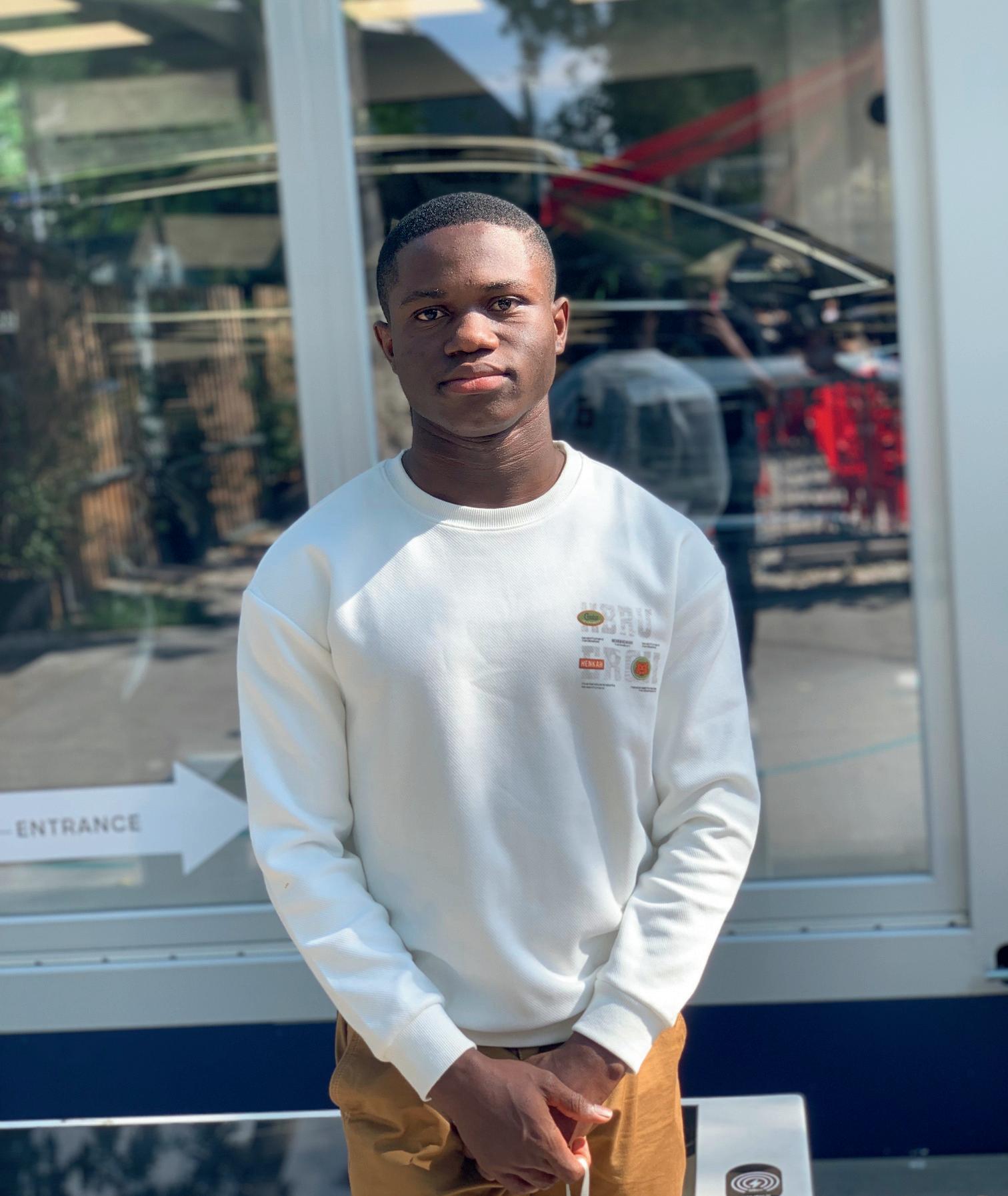
TECH INNOVATIONS AND COMMUNITY ENGAGEMENT
Dave's dedication extends beyond entrepreneurship. As a programming tutor at Ashesi University, he embodies the spirit of giving back, and his role as the Google Developer Student Clubs Mobile App Development Track Lead for the Ashesi Chapter merely demonstrates his leadership skills and dedication to developing future tech talents. Furthermore, Dave was also privileged to be selected as a Global AMRE Associate under the Applied Methods and Research Experience Program initiated by the College of Wooster in the US, allowing him to further showcase his commitment to inclusion. In collaboration with a team, he developed a cross-platform mobile app called Sign With Me, which teaches Ghanaian sign language through video lessons and quizzes to the deaf and hard-of-hearing community.
Dave's path is inextricably linked to his time at Ashesi University, where his perspective on inclusion was shaped by firsthand experiences growing up in an environment where exclusion and a lack of access to quality education were prevalent. His admission to Ashesi University was life-changing, introducing him to a culture that values inclusion through initiatives. A prevalent barrier to inclusion that Dave has identified stems from misconceptions held by certain groups who oppose creating unique opportunities for the disadvantaged. These
12
groups perceive such initiatives as unfair, believing that everyone should be treated in the same way and the outcome from that is what they deserve. However, Dave recognized that inclusion aligns more closely with equity than equality. Equity acknowledges individual needs based on unique circumstances, aiming to level the playing field by providing tailored support. Dave emphasizes that inclusion requires a deliberate, empathetic effort.

ADVOCACY THROUGH ACTION
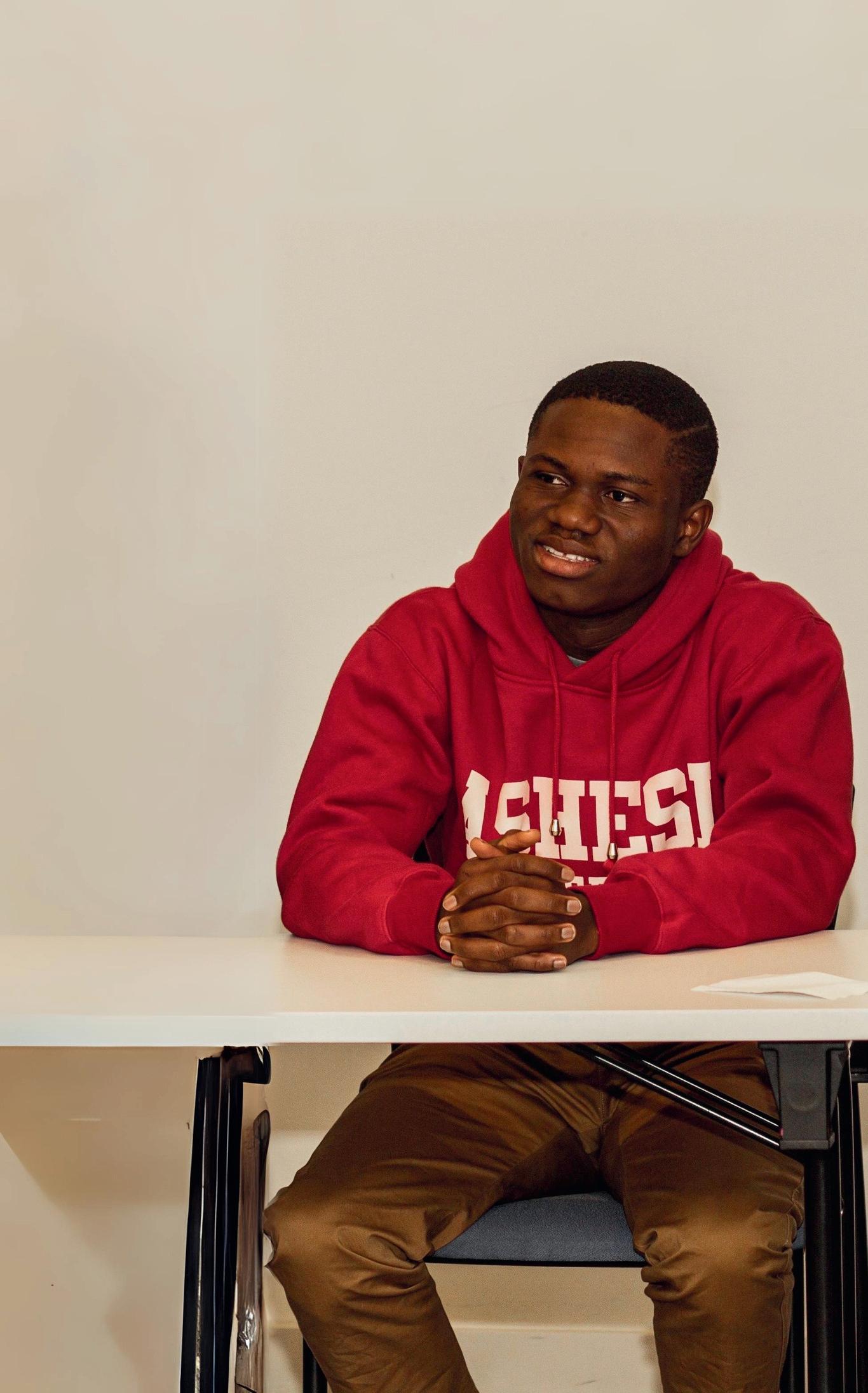
Dave's projects are living proof of his commitment to diversity. His innovative approach is exemplified by the Kambuu initiative, which provides auto-rickshaw drivers with a digital platform that helps expand their market reach. The Zanne Project targets educational gaps by providing economically disadvantaged students with free science and math tuition. Dave actively bridges communication and educational access gaps with initiatives such as the Sign With Me app, and his contributions to nonprofit organizations, such as Making Learning Happen and the Practical Education Network. His initiatives work in tandem with Ashesi University’s promotion of diversity and equal opportunity, by reserving enrollment seats and providing scholarships to poor students. For instance, Dave’s Zanne Project initiative, funded with $4,000 from Coca-Cola through the university. This project provides free science and math tuition, reproductive health education, and career mentorship to 250
economically disadvantaged students in basic schools. The project narrows the gap between these students and their privileged peers who have access to quality education.
BREAKING BARRIERS AND SHAPING THE FUTURE
Dave's work addresses inclusion challenges and misconceptions about equality while speaking to a demand for information and awareness. His advocacy extends to pushing for the integration of people with disabilities, highlighting a group that is sometimes disregarded in developing countries. He envisions a world in which diversity is celebrated and the contributions of all individuals are valued. He feels that society's path toward more inclusivity is hopeful, and that knowledge and awareness are critical instruments for breaking down barriers for greater diversity.
Dave Leori Donbo's path exemplifies the power of human commitment to societal change. He has paved the way for a more inclusive future through his efforts, activism, and vision. His tale emphasizes the significance of using one's skills, knowledge, and enthusiasm to effect meaningful change and leave an unforgettable, long-lasting impression on society.
13
LABIBA RIFAH NANJEEBA
INSPIRING CHANGE THROUGH INCLUSION
by Hasibul Hasan Ahmed - BRAC University
Around the world, refugees are denied fundamental needs and struggle to interact with inhabitants of the host country. Similarly, the stranded community of Urdu-speaking people in Bangladesh continues to struggle. Labiba Rifah, a BRAC University graduate and passionate advocate for social impact and women's empowerment, has a project that attempts to change this notion. She said “When I was younger, I got to visit the marginalized communities due to my father’s profession, and I noticed that even though men got certain opportunities, women were always somehow lagging behind. While studying English and Humanities, I better understood women's situation in our social context. Since then, I was determined to contribute, and so I formed a team with Halima Hasin, a participant of OSUN Get Engaged Conference 2022 and started Paper Cranes of Venus.”

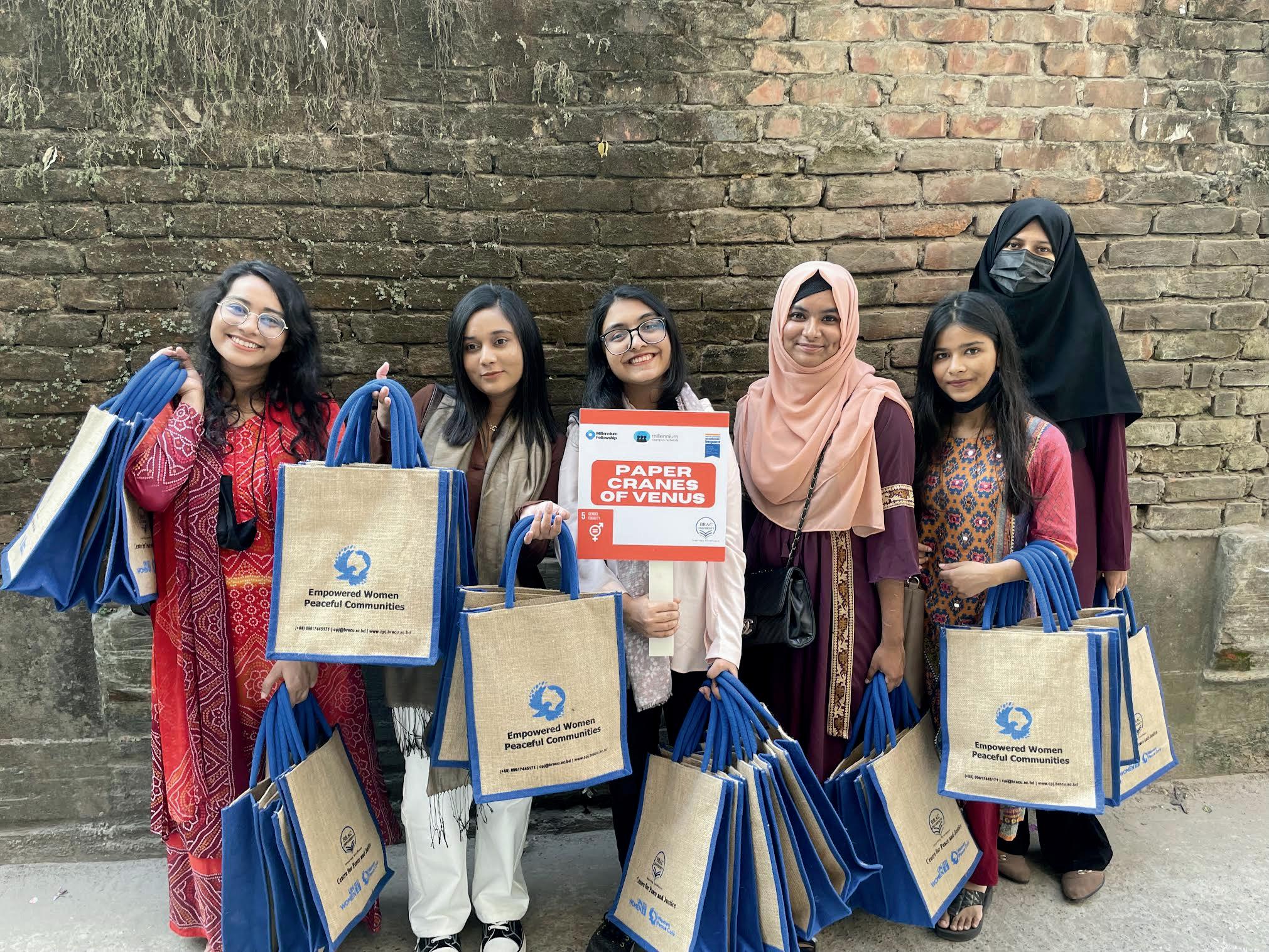
PAPER CRANES OF VENUS
Labiba and her team advocate for gender equality and peace through education. Their primary focus areas include sexual and reproductive health and rights (SRHR), menstrual health and hygiene, consent, and digital literacy. These topics hold immense importance, especially in marginalized communities with limited access to information and opportunities. The most impactful part of the initiative is increasing inclusion for the marginalized Urduspeaking community in Bangladesh. Here, she and her team provided essential knowledge and skills to empower women economically, as they understand the pivotal role education plays in breaking barriers and creating a brighter future.
The effort began with educating a few community members about health and cleanliness and shattering taboos. Later,
14
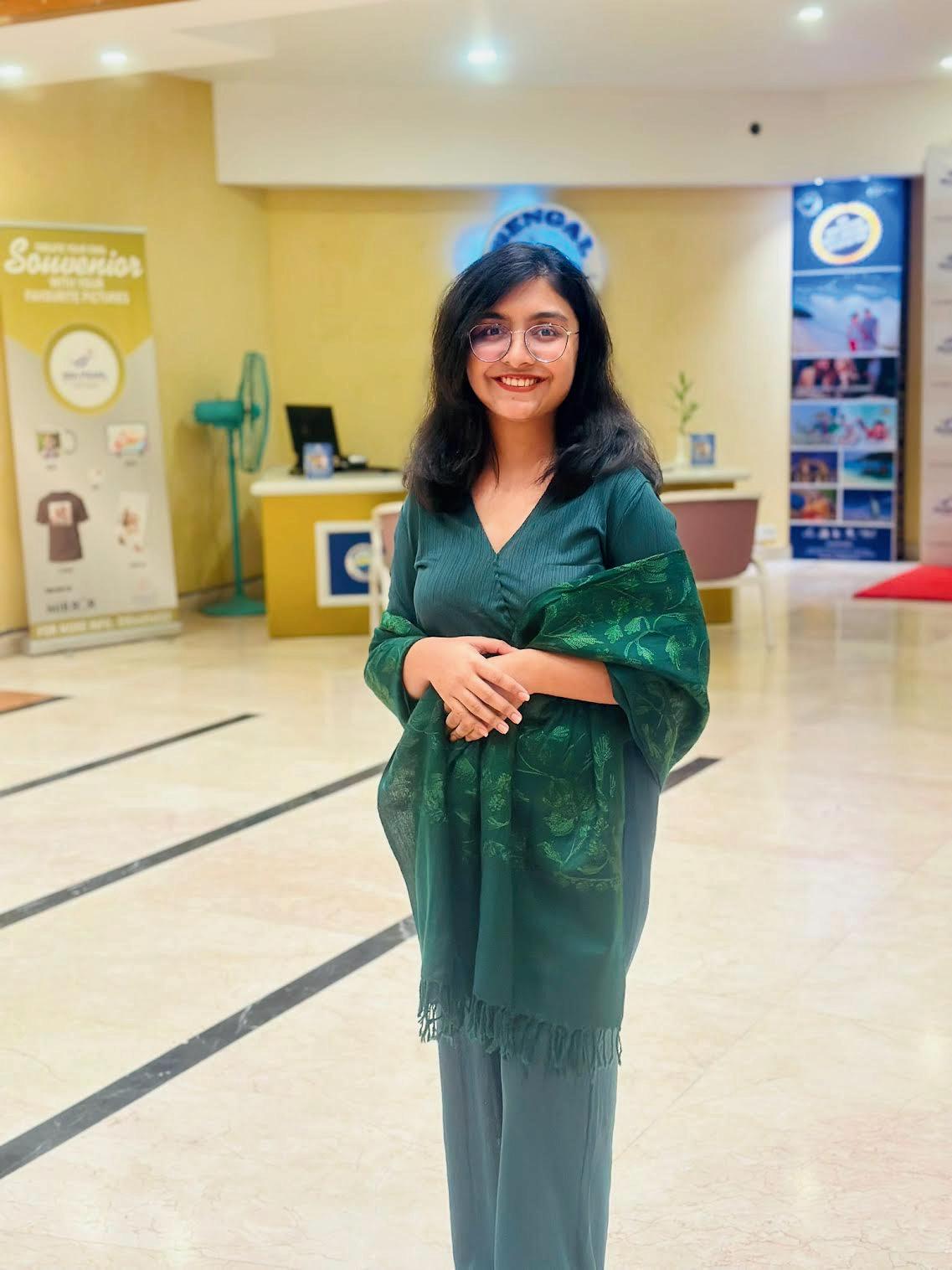
despite being a small party of nine young ladies, they visited the neighborhood of Mohammadpur and subsidiary residential areas and had a deeper understanding of a scenario where four generations live together in one room. This motivated the team to include more leaders from a space where women, in particular, were uncomfortable speaking openly and sharing their ideas. Of course, the only path to positive transformation includes challenges. Labiba describes their strategy for success as "constant communication and a gentle approach." This approach helped break down walls and made the women they worked with feel comfortable to share their life experiences and struggles, even though cultural differences might make them feel hesitant or even hostile.
IMPACT ENHANCEMENT
Labiba stays modest while concentrating on her objective as she continues her remarkable journey. She emphasizes the values of empathy, humility, and inclusivity in creating a positive social influence. Her advice to aspiring project managers is simple but profound: don't be afraid to take the initial step, and constantly be ready to adapt to unanticipated problems. Her achievements were later honored by the United Nations Academic Impact with the Millennium Fellowship. This endeavor again benefited her coursework in Visual Storytelling for Civic Engagement, a course offered through OSUN.
Labiba Rifah's story is a testament to the power of individuals who dare to dream big and act boldly to create positive change. Her commitment to gender equality, education, and empowerment serves as an inspiration to us all. We can only think how many lives she will touch and transform as she continues to pave the path for a brighter future.

15
HEAR US NOW
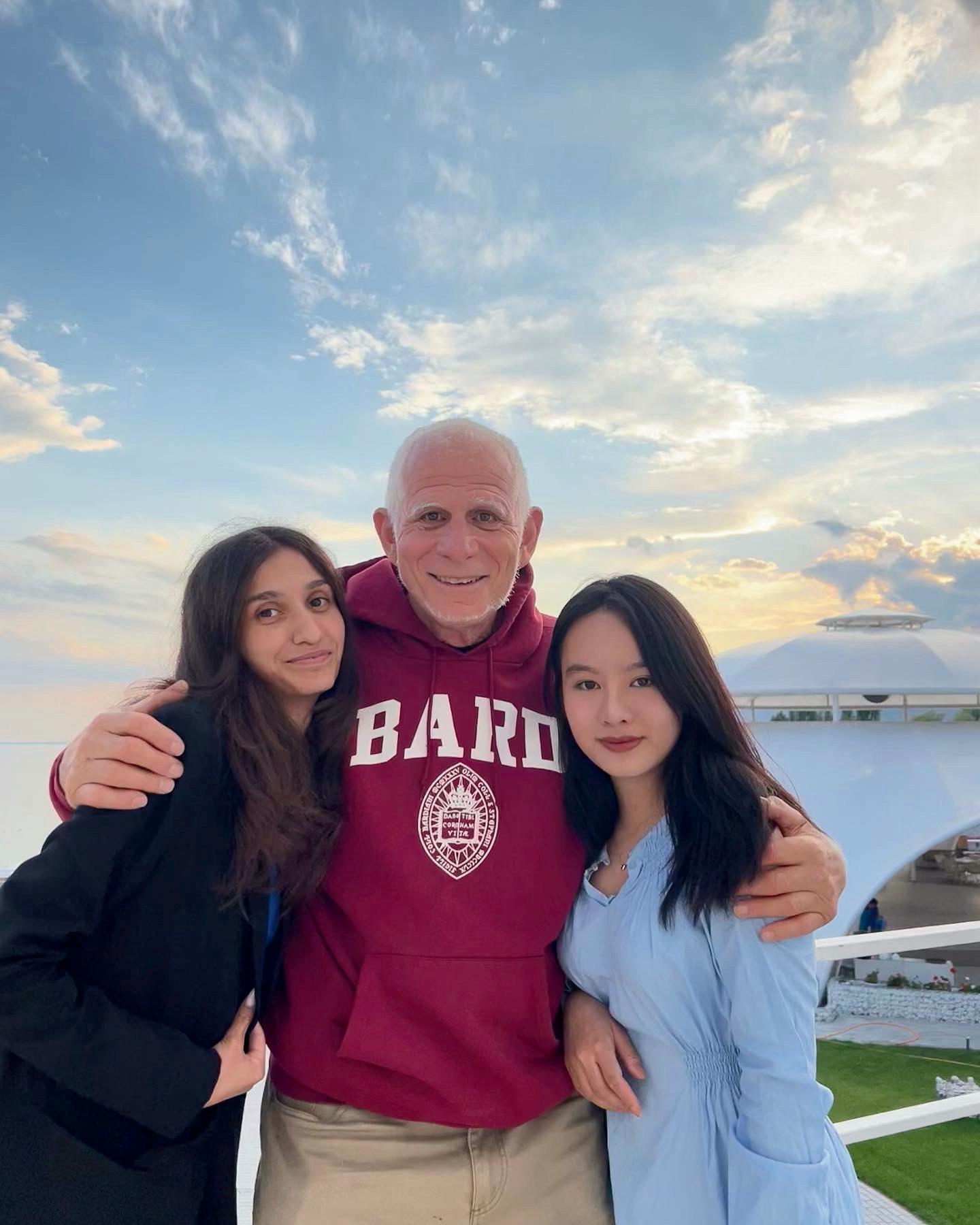
DAREEN ALHAJAREF DEBATE AS A CONSTRUCTIVE TOOL FOR MOBILIZING THE COMMUNITY
by Ameed Faleh - Al-Quds Bard College of Arts and Sciences
Civic Engagement as praxis manifests itself in many ways. Some students choose unconventional approaches that aim to rally behind a specific pinpoint cause or issue. For Dareen Alhajaref, her leadership of the Al-Quds Bard Debate Union merges the specific with the general to develop a community with a culture of debate, healthy differences, and positive engagement with challenging subjects on and off-campus. The theoretical, however, cannot be dismissed. “We have to look at [debate] from a theoretical perspective, and that means studying debate for what it is: how to argue, refute, and find evidence,” says Dareen. Only through learning the theoretical aspects can one begin to grasp the practical part.
DEBATE IN THE PALESTINIAN CONTEXT AND BEYOND
Dareen notes that when choosing issues to debate, “it is important to root the skills that you are learning as a debater in problems that are relevant to Palestinians. For instance, having a motion focused on an ongoing conversation surrounding a certain resistance strategy rooted in Palestine is more beneficial.” In this way, the Al-Quds Bard Debate Union is breaking longstanding taboos involving politics on campus. These problematic, yet fruitful, conversations form the backbone of what makes the Al-Quds Bard Debate Union so unique: it can have a motion for a non-political general worldwide issue one week, then tackle a Palestinian political issue the next week. The Debate Union at Al-Quds Bard College draws so many students to attend its sessions precisely because of the diversity of themes, topics, and discourses it selects.
CIVIC ENGAGEMENT AS A VENUE FOR PERSONAL AND PROFESSIONAL DEVELOPMENT
Commenting on her participation in the student retreat for student Global Engagement Fellows in January 2023 and the Get Engaged Conference in Budapest the following summer, Dareen noted that
“It created long-lasting relationships and an amazing network of very skilled individuals that I can always rely on when I’m feeling down, or when I cannot find an inspiration.”
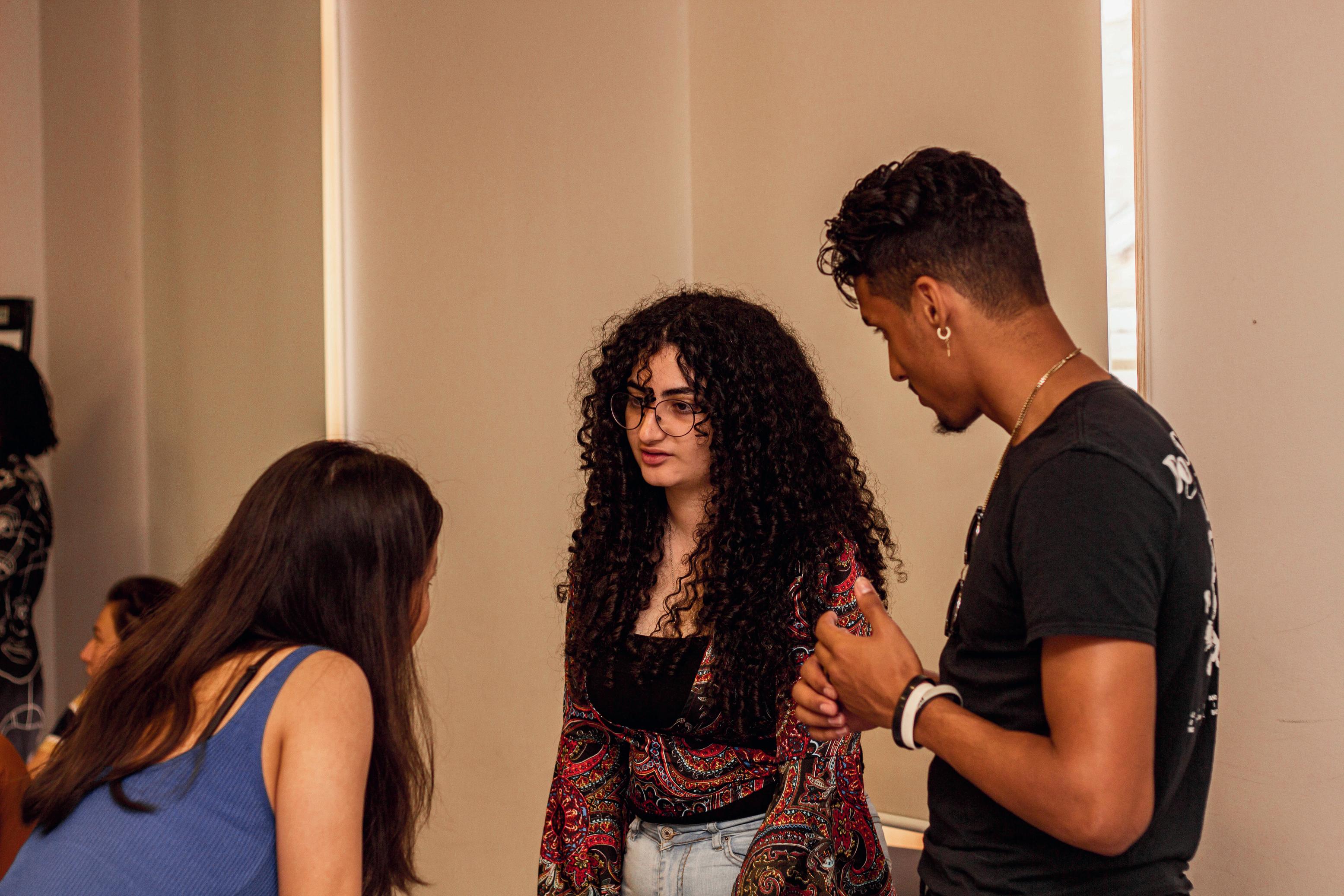

17
These events are not only venues for professional development, as Dareen noted, but they also facilitate personal connections. In this sense, civic engagement catalyzes a form of networking that could last a lifetime. Regarding the professional aspect, Dareen commented, “I can always see if there’s a certain pattern between our different student projects at OSUN.” Adding to her professional development with OSUN, Dareen says that
“Being able to talk to students and to see how they can mediate the situations they’re in, and inspiring students to create their projects, has allowed me to expand the Debate Union in ways I could not have thought imaginable.”
DEBATING FOR THE FUTURE
“We hope to make the Debate Union a platform that not only gives people the opportunity to participate in debate, but also to come in, observe, and be a part of the conversation at hand, even if that doesn’t mean they’re directly involved with the discourse.” Dareen hopes to reach out to more local and international initiatives, involving livestreams for those who cannot attend such debates and improving the debate environment. Dareen hopes that such a future for the Debate Union will allow youths to speak up about different issues, and to involve themselves further to develop the fabric of Palestinian society. Weaving together a healthy community involves many challenges, and it is through debate that one can overcome such challenges and build a future where social and political issues are given the chance to be critically challenged.
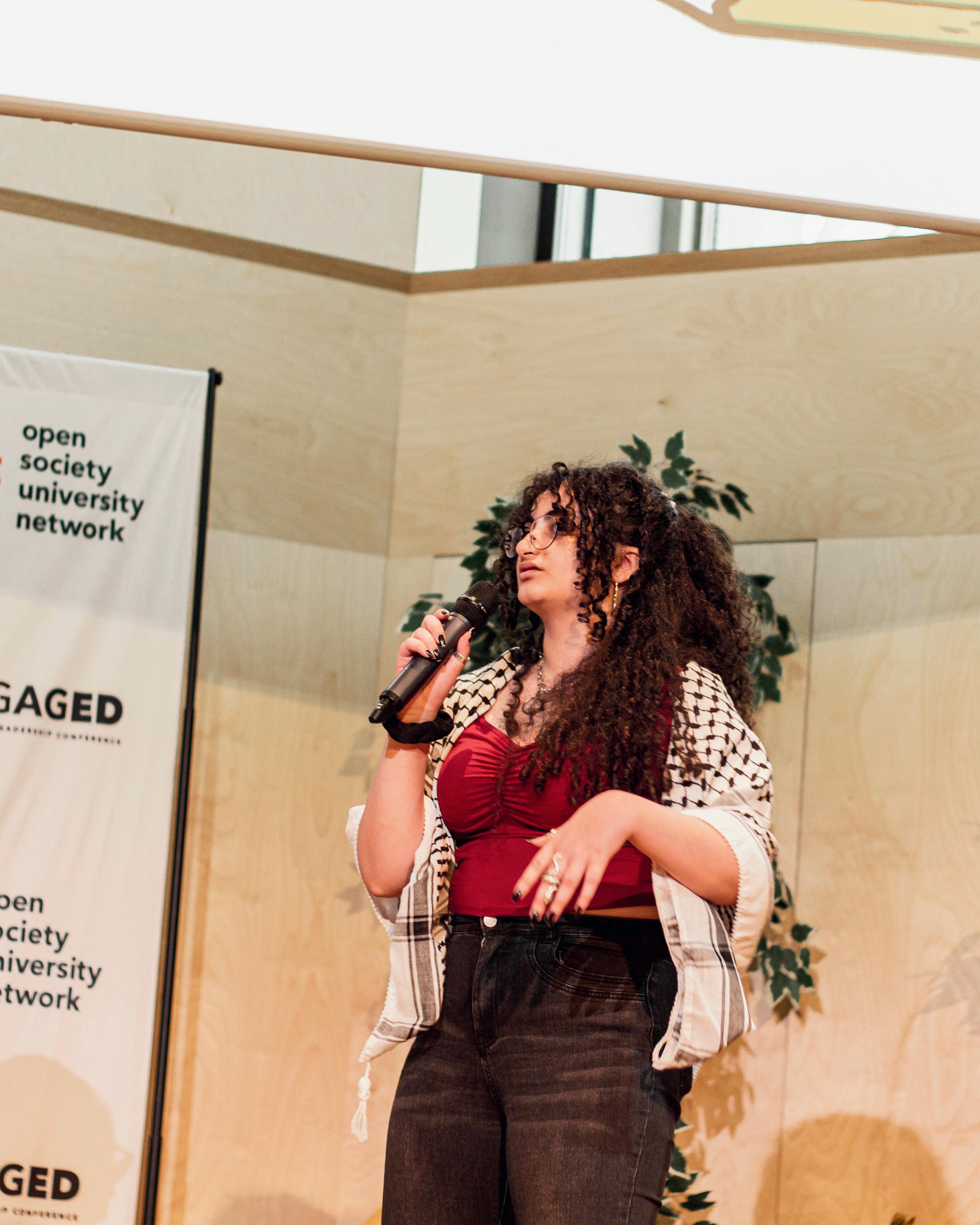

18
JUDAH FIRESTONEMORRILL THE YOUNGEST OSUN STUDENT GLOBAL ENGAGEMENT FELLOW
Judah is a 16-year-old activist and high school student from New York City, USA. He is the youngest Global Engagement Fellow in the program and the first fellow from Bard Early College. Growing up in a generation faced with unprecedented challenges, including the climate crisis, mass incarceration, record income inequality, and many other issues, Judah was forced to grapple with the realities of being a youth in the 21st century. Being exposed to such a wide array of different people and perspectives in New York City, Judah was, from a young age, privy to a variety of social causes.
FOUNDING BHSEC ADVOCACY CLUB
As they grew up, Judah became an avid reader of the news and expanded his knowledge on many topical political issues. Last January, they organized a protest under a civic school club they co-founded called the BHSEC Advocacy Club in response to the New York City mayor’s budget cuts to public schools. In part an attempt to address chronic disengagement with local politics, the action was covered by dozens of news outlets, including Forbes, New York Daily News, AMNY, and Spectrum/NY1, with readers numbering in the millions.
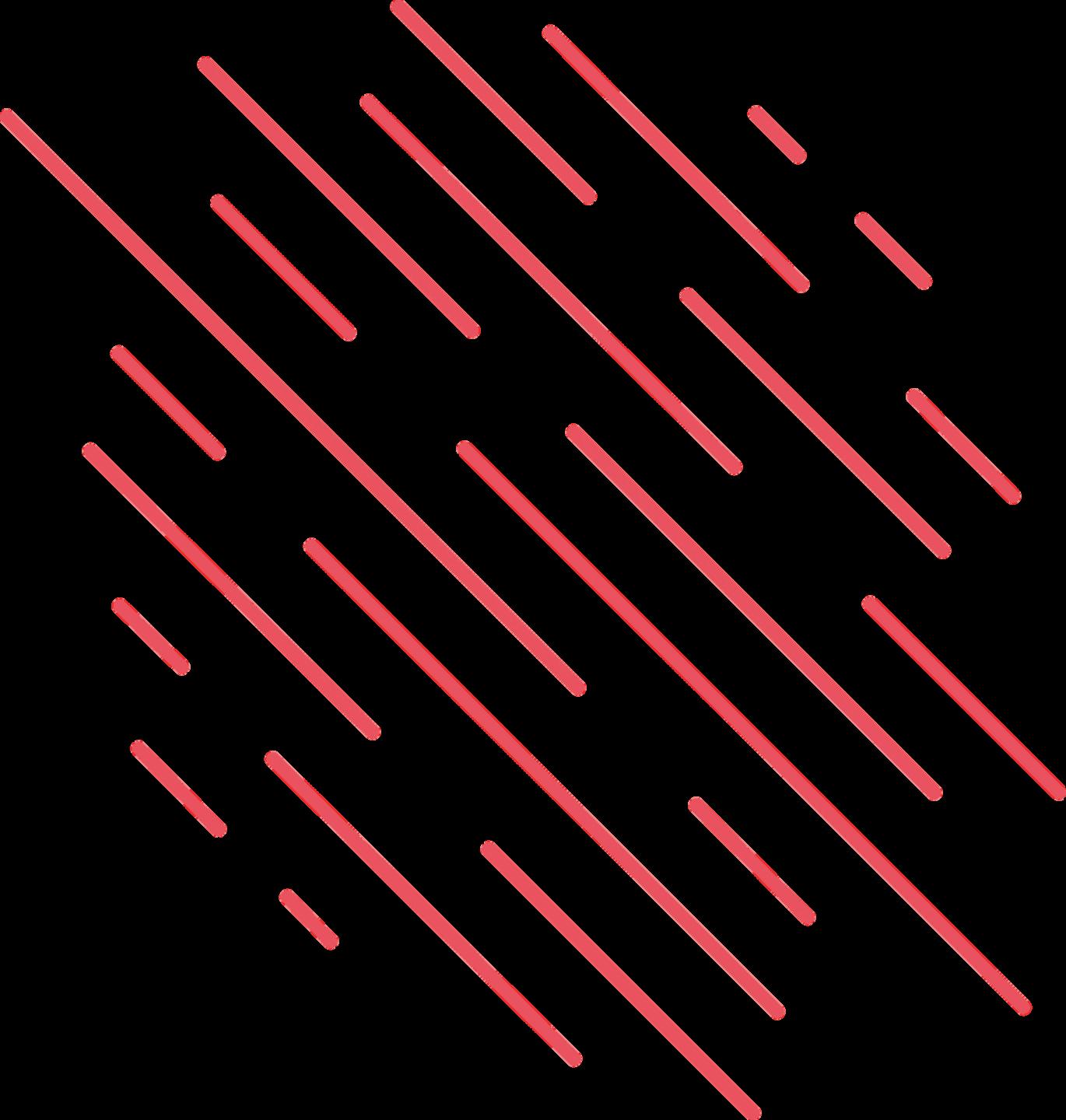
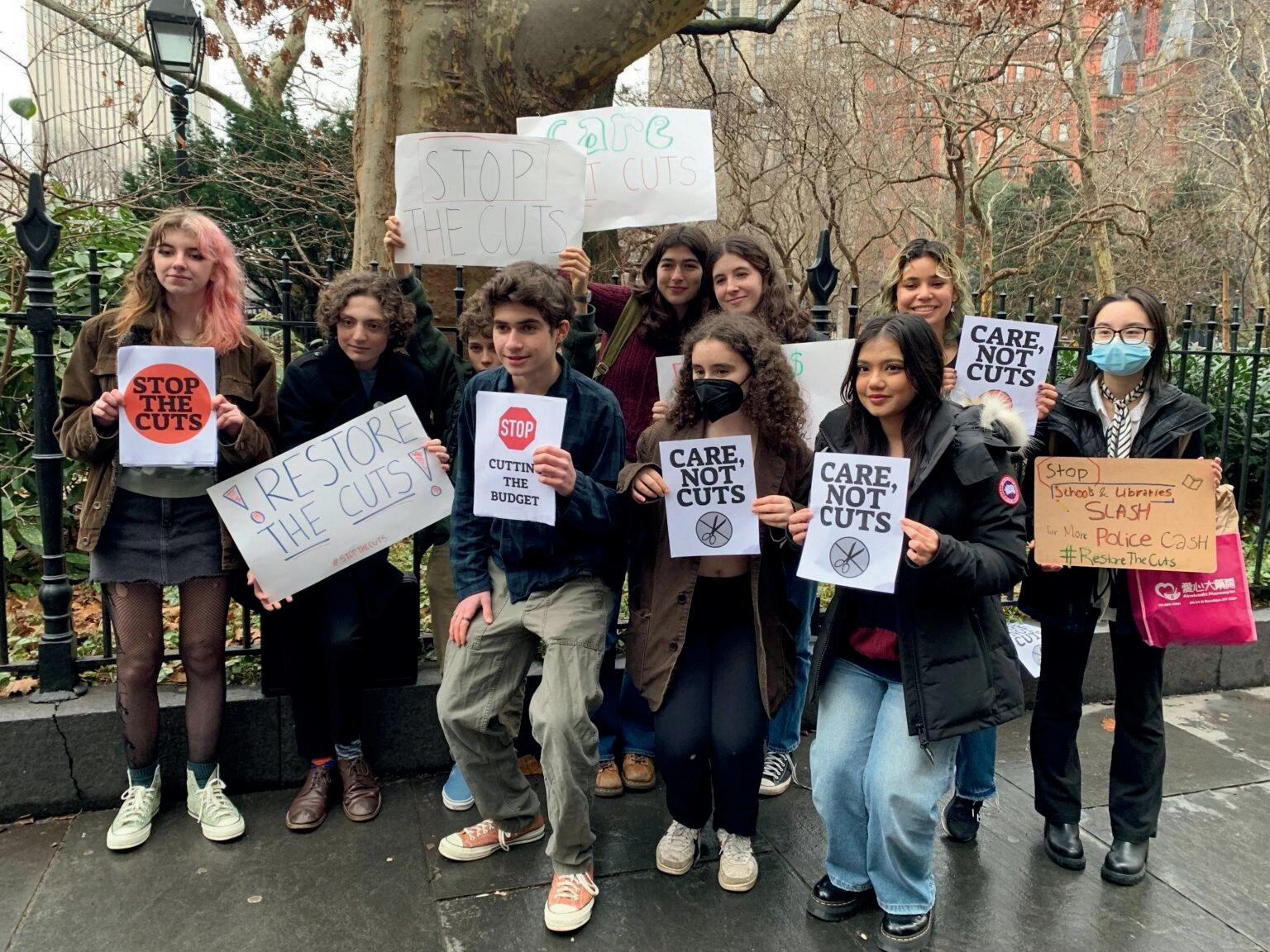
Judah also had local politicians and other activists speak at and attend the protest, as well as students from around the city. Being surrounded by so many inspiring people with similar passions during this action helped Judah find a civic community that they have come to value: a place where he is nurtured and also driven to grow and fight for a better future for himself and those around him and the world as a whole. In the meantime, they used the Advocacy Club to pursue an array of other endeavors, including urging 16,000 voters, via text, to participate in elections, organizing food drives and clothing drives, sharing detailed infographics about current events on social media, and more. As Judah continued their activism, some of their teachers caught notice, and Judah was approached by a professor, who hoped to get their early college institution more integrated into OSUN. After considering the immense relevance international affairs have on both (*) The author used both they/them and he/his pronouns. This was Judah's way of expressing his sexuality.

19
by Sayed Anwar Ibrahimi - American University of Central Asia
Judah’s political affinities and real-world events, Judah eagerly applied and was floored to learn that they had been accepted.
JOINING GLOBAL ENGAGEMENT FELLOWSHIP
Since then, the program has greatly increased Jonah’s collaborative skills, particularly in adapting to the different work habits, environments, and time zones around the world. Whether facilitating a constructive discourse through the fellowship’s civic podcast, joint-leading a civic workshop, or simply sharing a laugh on Zoom with people from multiple continents, the “network” aspect of the fellowship has proven to be central to the OSUN experience. Judah appreciates the opportunities they have had to meet and get to know such a diverse, interesting, and passionate group of civic-minded people. As such, Judah’s experience as a Global Engagement Fellow has truly shaped their worldview, and they can now better establish parallels and connections in the issues they advocate for around the world, integrating an international approach to problem-solving and change-making informed by their own experience.
Perhaps one of the areas in which an international lens is most relevant is the climate crisis, and as a member of climate activist group Fridays For Future, Judah has advocated for an international approach to the crisis in recognition of its universal nature, and has connected with global organizations to help plan a series of joint actions around the world last September. More specifically, Judah helped organize the March to End Fossil Fuels in their home city, which saw some 75,000 people take to the streets in pursuit of a better and more equitable future.

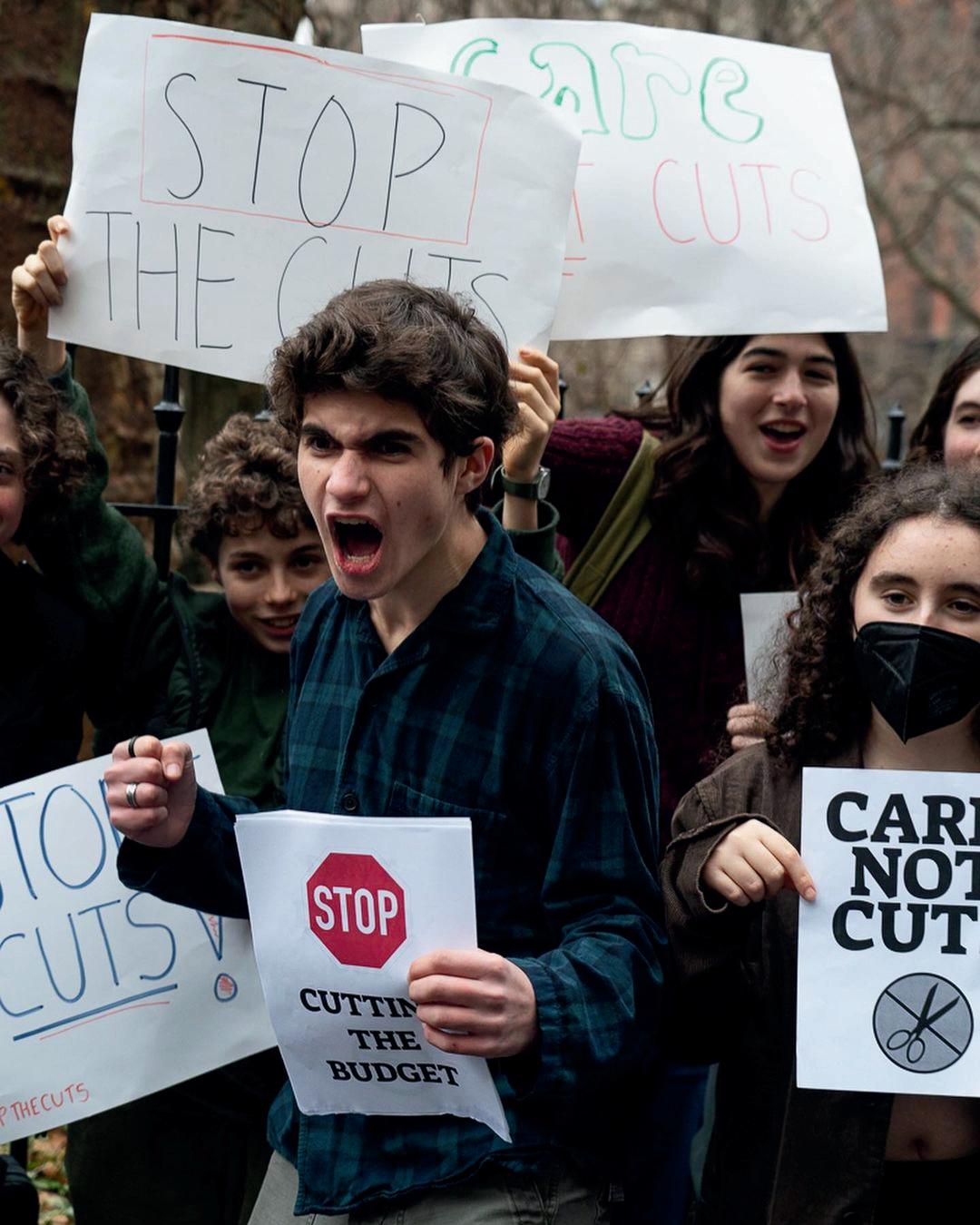
20
AHMAD ELHAM WARDAK WOMEN’S EMPOWERMENT THROUGH EDUCATION
by Hope Mokadi- University of the Witwatersrand
Ahmad Elham Wardak, a distinguished senior IT student at the American University of Afghanistan (AUAF), is driven by academic excellence and social engagement. As a mentor for the ESL & Mindfulness program, he passionately guides female Afghan students, fostering empowerment and inclusivity, and expanding education. Inspired by education's transformative power, Elham sees it as a catalyst for positive societal change. Elham leverages IT for social impact, addressing local challenges and enhancing resource access. He leads a "Weekly Well-being" series, crafting insightful articles every two weeks with the OSUN community, which showcases his commitment to holistic well-being and fostering connections. Ahmad Elham Wardak believes in enabling every individual to thrive.
A SOCIAL MOTIVATION
Ahmad was inspired to join the civic engagement program for Afghan women and girls when he realized the challenges they face in pursuing education amidst socio-cultural barriers. Witnessing their resilience ignited a strong desire within him to empower them. He believes education can create a transformative ripple effect, breaking gender inequalities and fostering positive change. By providing mentorship and resources, Elham envisions a society where Afghan women thrive academically and personally, contributing to a more inclusive and progressive future for Afghanistan.
FOSTERING IMPACT AND EMPOWERMENT
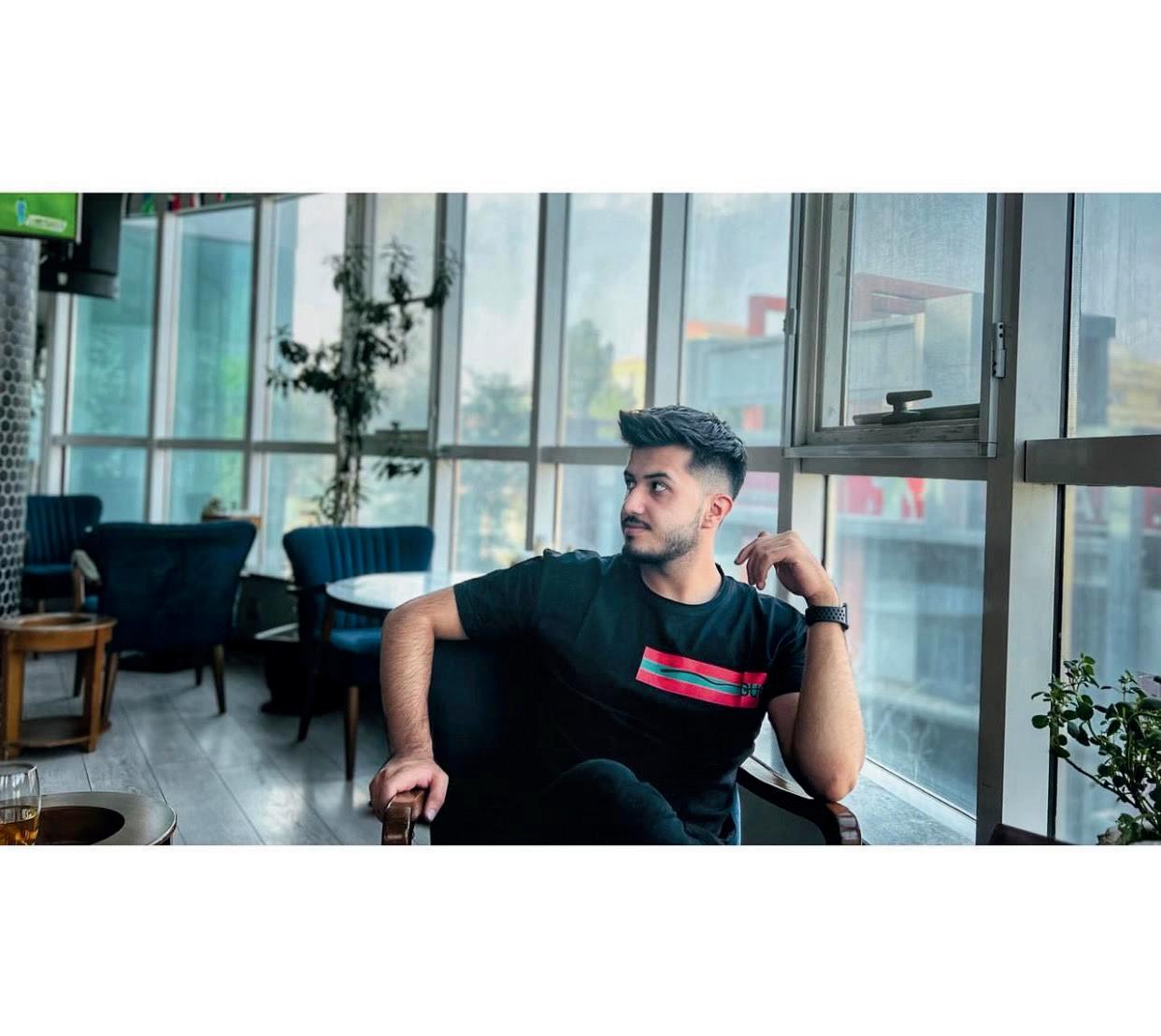
A profound moment of impact arose for Ahmed during a mindfulness mentoring session, in which he guided Afghan female students in reflecting on their strengths and aspirations. As they shared aspirations and challenges, a strong sense of unity emerged. A reserved student's determination to pursue medical studies, defying norms, inspired peers to open up about their dreams. This marked a turning point. The safe space that Elham created helped to empower these women to confront barriers and this reinforced his commitment to education, inclusivity, and empowerment for Afghan females.

Ahmad Elham Wardak employs a holistic mentoring approach that supports Afghan women's English language skill development and mental well-being. Elham creates personalized learning experiences for language skills, combining structured lessons with interactive activities. He fosters an open environment, providing practice and guidance to boost participants' language confidence. He integrates mindfulness practices like relaxation exercises and guided meditations regarding mental well-being. He promotes emotional awareness, stress reduction, and healthy coping strategies. Through open discussions, he helps participants address challenges and prioritize self-care. His approach nurtures language skills and resilience, empowering Afghan women for holistic growth and success. Amid Afghanistan's intricate socio-
21

political landscape, Ahmad Elham Wardak employs culturally sensitive mentoring techniques to foster a safe and empowering space. Tailoring his approach to honor cultural boundaries while encouraging open dialogue, Ahmad prioritizes confidentiality, integrates local customs, and highlights education as a pathway to empowerment. He equips participants with coping strategies, fosters peer support, and remains adaptable to evolving needs. Ahmad's mentoring nurtures resilience and a brighter future for Afghan women facing challenges. Ahmad stated that to him, “Being a mentor for the ESL and mindfulness program, I've learned that determination knows no boundaries, and education is the key to unlocking limitless potential.”
SUCCESS AND VISION
Here's a success story of a participant who made remarkable strides in both English language skills and overcoming mental health challenges through Ahmad Elham Wardak's essay writing program:
Meet Fahmida, a determined young Afghan woman who joined the essay writing program to improve her English and overcome personal obstacles. With Elham's patient guidance, she gained language proficiency and began expressing herself confidently. Writing became her therapeutic outlet, aided by Elham's mindfulness techniques. Fahmida Omari's breakthrough came with an eloquent essay reflecting on her growth and resilience. Through Elham's mentorship, she conquered language barriers and made significant strides in overcoming mental health challenges. Fahmida's journey exemplifies the transformative power of education and mentorship in adversity.
As Fahimda’s mentor, Ahmad witnessed her incredible progress in the ESL and Mindfulness program. Despite her challenges as a medical student in Afghanistan, where the Taliban restricts female education, Fahimda's determination and growth in English language skills have been genuinely inspiring. Fahimda's dream of becoming a doctor remained strong, even when schools and universities for girls were were closed in Afghanistan. She was determined to find alternative paths to continue her
education. The ESL and Mindfulness program became Fahimda's lifeline, offering her a chance to improve her English language skills and develop valuable mindfulness techniques to cope with stress and enhance her focus.
As her mentor, Ahmad watched Fahimda's journey closely. Despite her initial struggles with English, she approached each lesson with enthusiasm and a willingness to learn. Her hard work paid off, evident in her improved pronunciation, expanded vocabulary and enhanced conversational abilities. In addition to language skills, Fahimda embraced mindfulness practices, which helped her manage stress, increase self-awareness, and improve her concentration. These techniques were invaluable in her educational journey. As her mentor, he is immensely proud of Fahimda's accomplishments. Her story highlights the importance of providing educational opportunities to everyone, regardless of their circumstances. Fahimda's unwavering spirit and dedication guide those pursuing their dreams through education and mindfulness. As Fahimda continues her journey, Ahmad looks forward to her future accomplishments with great anticipation. Her story demonstrates that with perseverance and the right support system, one can overcome even the most daunting obstacles on the path to success.
Ahmad Elham Wardak envisions the civic engagement program as a catalyst for transformative change, extending beyond mentorship sessions to empower Afghan females and their communities. The program equips participants with language skills, communication confidence, and critical thinking, enabling self-advocacy and educational advancement. Empowered Afghan females become role models, initiating community projects and challenging norms. Through mindfulness and support networks, well-being improves, while success stories reshape perceptions and inspire positive contributions. Ahmad sees this program as fostering lasting change, nurturing leaders, and reshaping Afghanistan's future trajectory.
22
JUAN ANDRÉS MONCALEANO BREAKING BARRIERS: THE PATH TO POWER EQUITY
by Roya Maliky - American University of Beirut
In a world where marginalized voices are often silenced, Juan has emerged as a passionate advocate for the LGBTQ+ community. Juan's journey weaves together government and public affairs majors with minors in gender and sexuality and social psychology at the Universidad de Los Andes in Bogotá, Colombia. Juan (they, them) actively participates in the LGBTQ+ rights movements at both institutional and national levels to fight for equity for their community. In 2021, they presented their project, Diverses UniAndes, at OSUN’s Get Engaged Conference and were selected as one of the first Global Engagement Fellow at UniAndes to lead activity in the next conference in 2022.
ACADEMIC EXCELLENCE, IMPACTFUL CIVIC ENGAGEMENT
This narrative is not just about academic achievements but about the powerful impact of an individual driven by a mission to create change. The Generación E scholarship from the Government of Colombia and the Universidad de los Andes has significantly bolstered Juan's academic pursuits. Yet, Juan's journey is not solely confined to the classroom; it extends far beyond the heart of their community and the wider world. They have dedicated their time and energy to different organizations. Juan plays a pivotal role at Profamilia, an NGO promoting sexual well-being in Colombia. As a board member, Juan influences investment decisions for over 50 nationwide sexual health clinics,
supporting youth initiatives in conflictaffected municipalities, conducting sex education workshops in schools, and fostering a nationwide youth network with more than 1,000 volunteers. Additionally, Juan serves as the IPPF delegate, shaping sexual and reproductive policies for the Americas. Furthermore, Juan contributes to Colombia's post-peace agreement reconciliation efforts as part of the Truth Commission, actively participating in youth coexistence projects, promoting national peace consultations, and disseminating the commission's findings through conferences, publications, and social work.
UNIANDES DIVERSES PROJECT: A VOICE FOR THE LGBTQ+ COMMUNITY
Contemplate living in a society where the weight of societal norms and prejudices burdens individuals—a society where the LGBTQ+ community faces discrimination and struggles to find their voice.
One of Juan's most remarkable projects is Diverses UniAndes, one of resilience, empowerment, and co-helping for a better tomorrow. The project was presented at OSUN’s Get Engaged Conference, where it focused on raising awareness and fighting for human rights. Their efforts encompass organizing events, such as HIV testing and contraception workshops, and political and

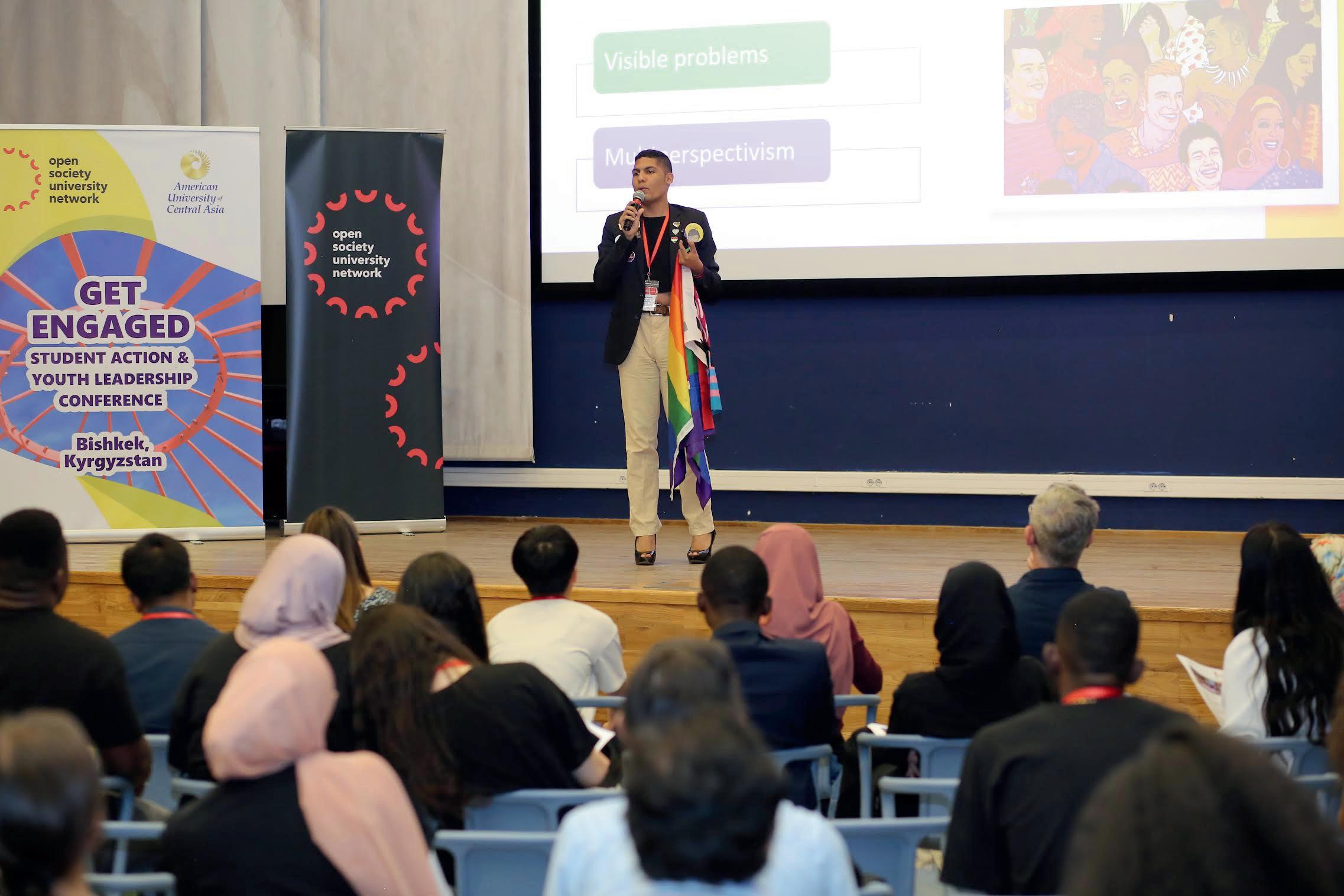
23
academic events that bring together influential sexually diverse people in Colombia. Juan also advocates for gender-neutral bathrooms for nonbinary people on their campus, seeks the integration of LGBTQ+ perspectives in the syllabus as a commitment to epistemic justice, and encourages gender-neutral language in academic discussions.
Acknowledging that the LGBTQ+ community often faces discrimination and marginalization in their society, they strive to make their voice heard and understood. By working to eliminate repressive discourses surrounding society, Juan promotes a safe, consensual, and respectful view of sexuality.
structured daily routine by prioritizing tasks with visual aids like a whiteboard and academic Excel schedules. Juan's secret weapon lies in open communication, forging alliances with professors and project leaders who offer crucial support. However, what sets Juan apart is a recognition of the personal toll that comes with social work. They draw on queer epistemologies to redefine the concept of care, viewing it as a network of people who have unlearned the shame associated with asking, offering, and accepting help. This transformation involves learning to say no, cultivating spaces for empathetic conversations among friends, and embracing self-care to sustain not just their body but also their spirit. Their story epitomizes resilience, determination, and the transformative power of combining academic pursuit with community service.
HOPE FOR BROADER SOCIAL CHANGE FOR THE LGBTQ+ COMMUNITY
Juan hopes universities can envision a diverse and transformational leadership that includes establishing dedicated support systems for LGBTQ+ individuals and fostering authenticity within a safe environment. Juan plans to continue projects empowering LGBTQ+ individuals in academia, aiming for long-lasting, independent initiatives tied to their personal journey. Their commitment involves accessing queer means of support, networking, and advocacy for a more equal and inclusive world.
CHALLENGES IN JUAN'S JOURNEY
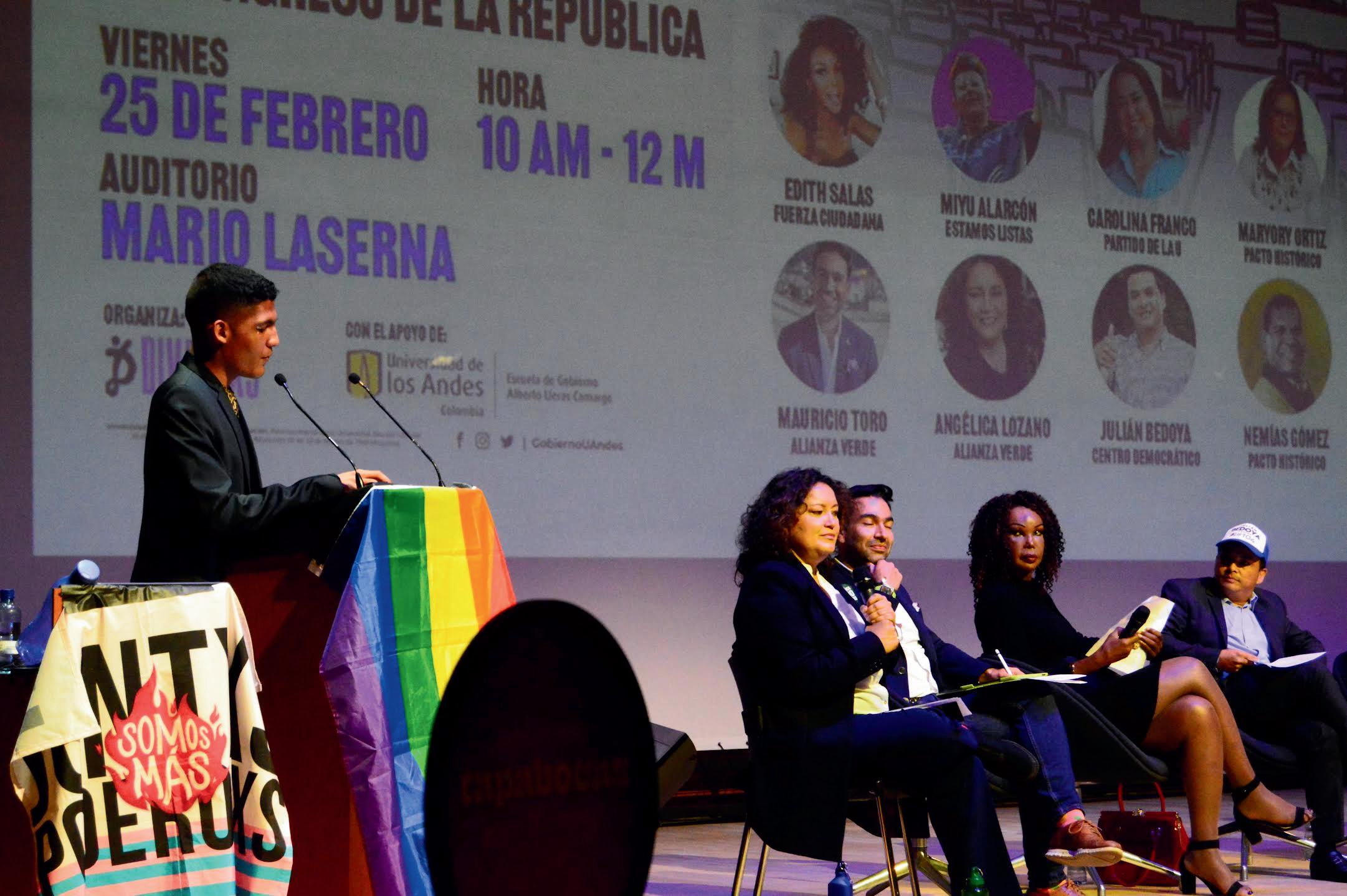
Double workloads are a common denominator for people like Juan, who are dedicated to unpaid civic engagement projects. Regarding financial hurdles, they rely on a patchwork of resources, seeking external funding, hunting for scholarships, tapping into state subsidies, and leaning on the kindness of friends and family. For time management, Juan's approach is rooted in practicality and self-discipline, maintaining a

Juan Moncaleano's journey is a brilliant example of the path to achieving power equity. In the quest for a world where everyone feels they belong, Juan has redefined what's possible and paved the way for future generations. Beyond academics, Juan is reshaping societal norms by showcasing the richness of human diversity. With unwavering determination and dedication, Juan inspires love and justice, working towards a world where we all come together and treat each other as equals.
24
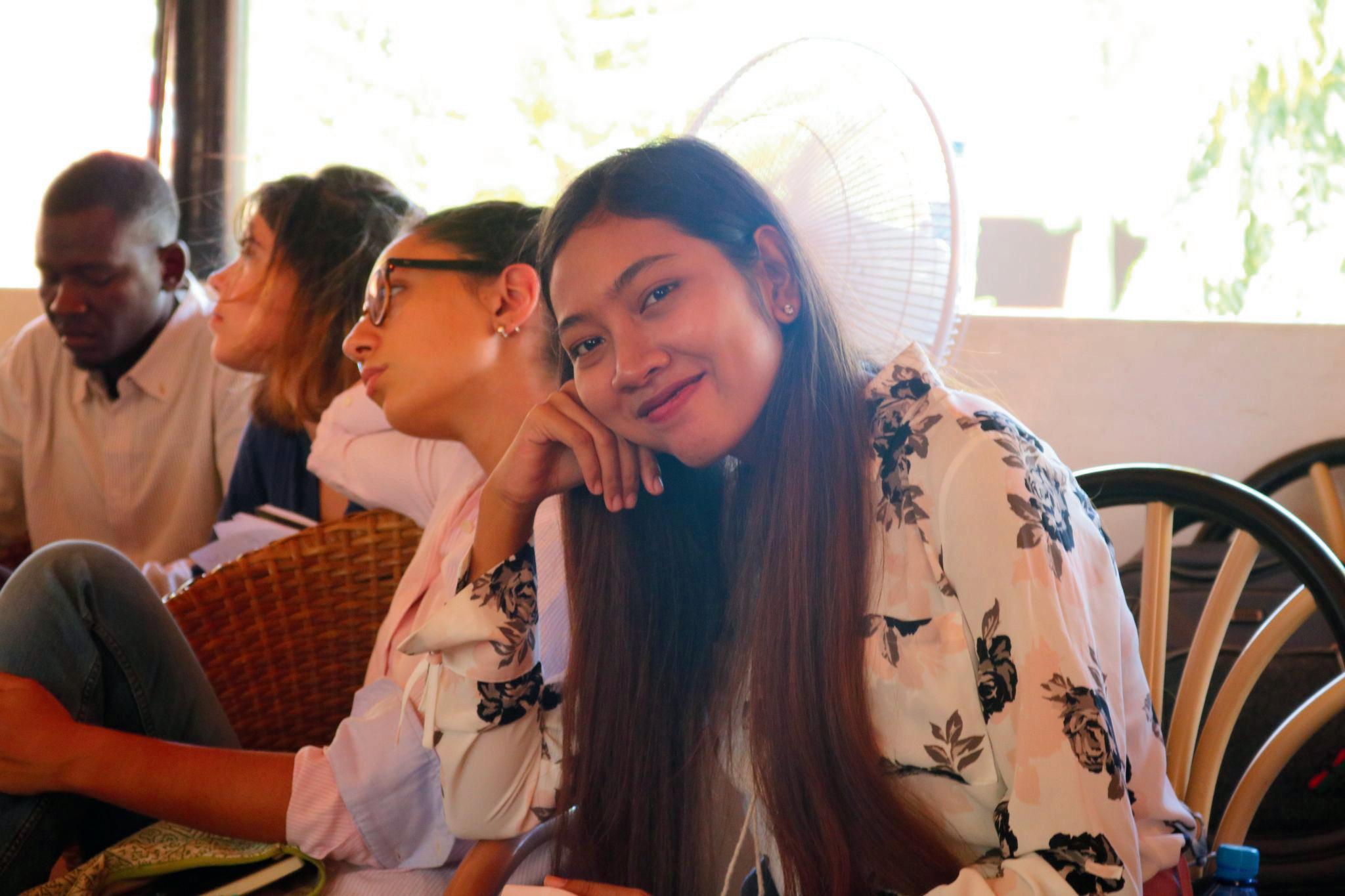
MYAT MOE KYWE ODYSSEY OF UNVEILING EMPOWERING POWER THROUGH "LEAD WITH HER"
by Dareen Alhajaref - Al-Quds Bard College of Arts and Sciences
In the heart of Myanmar, a formidable young woman, Myat Moe Kywe, emerges as a torchbearer of empowerment. As she navigates her sophomore year in the liberal arts program at Parami University, her journey is a tale of tenacity and transformation. From the humble roots of Magway, a small town in Myanmar, to the corridors of leadership, Myat Moe Kywe's journey exemplifies the essence of empowerment. Anchored by the visionary initiative "Lead with Her," she embarks on a relentless quest to reshape the destiny of women in Southeast Asia.
A QUEST UNVEILED: BIRTH OF "LEAD WITH HER"
Myat Moe Kywe's narrative is interwoven with an educational journey that defies convention. Amid the political turmoil following the military coup in February 2021, her pursuit of international

relations at the University of Mandalay was upended. Undeterred, she embraced online education at Parami University. Born in a town shrouded in underdevelopment, Myat Moe Kywe became acutely aware of the gender barriers and societal stereotypes suffocating aspirations. Determined to shatter these norms, she relocated to Naypyidaw, unlocking her latent potential and igniting her fervor to empower women.
FORGING A PATH OF EMPOWERMENT: THE GENESIS OF "LEAD WITH HER”
Myat Moe Kywe and her fellow women leaders channel their passion into "Lead with Her," an initiative that began during the Young Southeast Asia Leadership Summit in December 2022. This endeavor is not merely a project; it's an embodiment of
25
transformative change. The initiative endeavors to equip women across the ASEAN (Association of Southeast Asian Countries) community with the tools and leadership acumen needed to thrive and inspire in their careers and communities. "Our core vision is to create a world where SEA women are empowered to lead with confidence, grace, and strength, rooted in their unique identity," says Myat Moe Kywe.
Yet, "Lead with Her" isn't just words; it’s action. Myat Moe Kywe and her team collaboratively orchestrate an immersive leadership development program for selected women in the region. With weekly training, workshops, and seminars, participants immerse themselves in a journey of self-discovery and skill honing. But it doesn't end there. These empowered women metamorphose into catalysts of change, merging their strengths to create campaigns that transcend borders, propelling inspiration across communities.
Through her voyage with "Lead with Her," Myat Moe Kywe discovers pearls of wisdom. The significance of collaboration, diverse experiences, and the universal nature of leadership weave a vivid tapestry within the initiative. She envisions the future of "Lead with Her" as a sprawling sanctuary, embracing women from every corner of the ASEAN community—a sanctuary ignited by collective commitment and an unwavering pursuit of change.
“It is possible, and you can drive change as long as you are committed, dedicated, and build allies with like-minded people.”
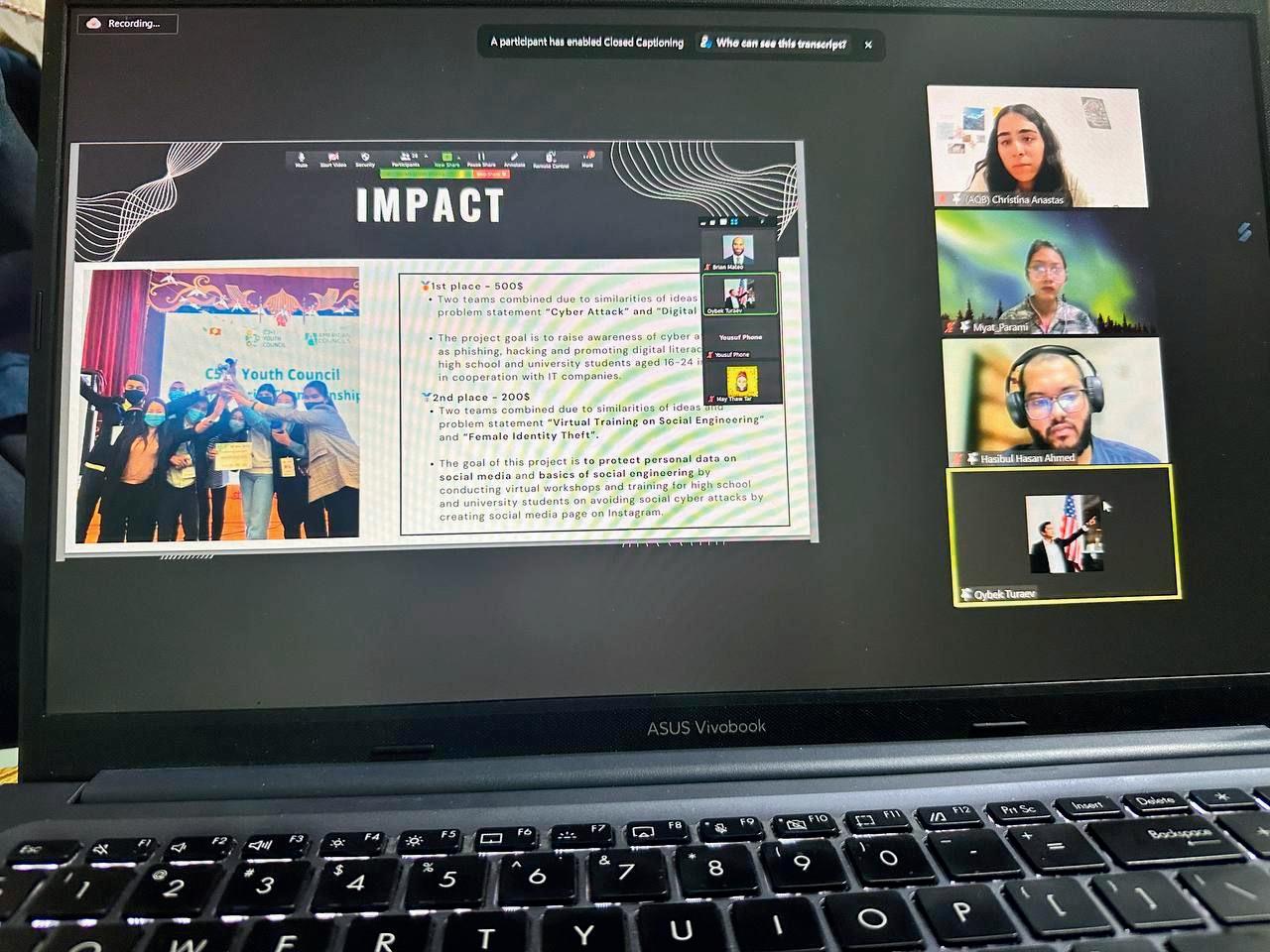
UNYIELDING SPIRIT AMIDST STORMS: NAVIGATING MYANMAR'S COMPLEXITY
Myanmar's difficult political labyrinth presents formidable challenges. Myat Moe Kywe speaks openly about the struggle of working amidst power outages, soaring inflation, and wavering internet connectivity but "Lead with Her" weaves a story of resilience, where unity trumps adversity. "That team spirit made us stay strong and be committed to our goals against all odds," she says.

To young minds nurturing dreams of transforming their communities, Myat Moe Kywe imparts, "It is possible, and you can drive change as long as you are committed, dedicated, and build allies with like-minded people." Her journey magnificently illustrates that while one individual can spark a fire, a community fuels an inferno. As her story unfolds, the symphony of Myat Moe Kywe's relentless drive reverberates a symphony that echoes empowerment, unity, and the infinite potential of the human spirit.
26

SPLENDOUR KALU
DIGITAL LITERACY CHANGEMAKER
by Judah Firestone-Morrill - Bard Early College
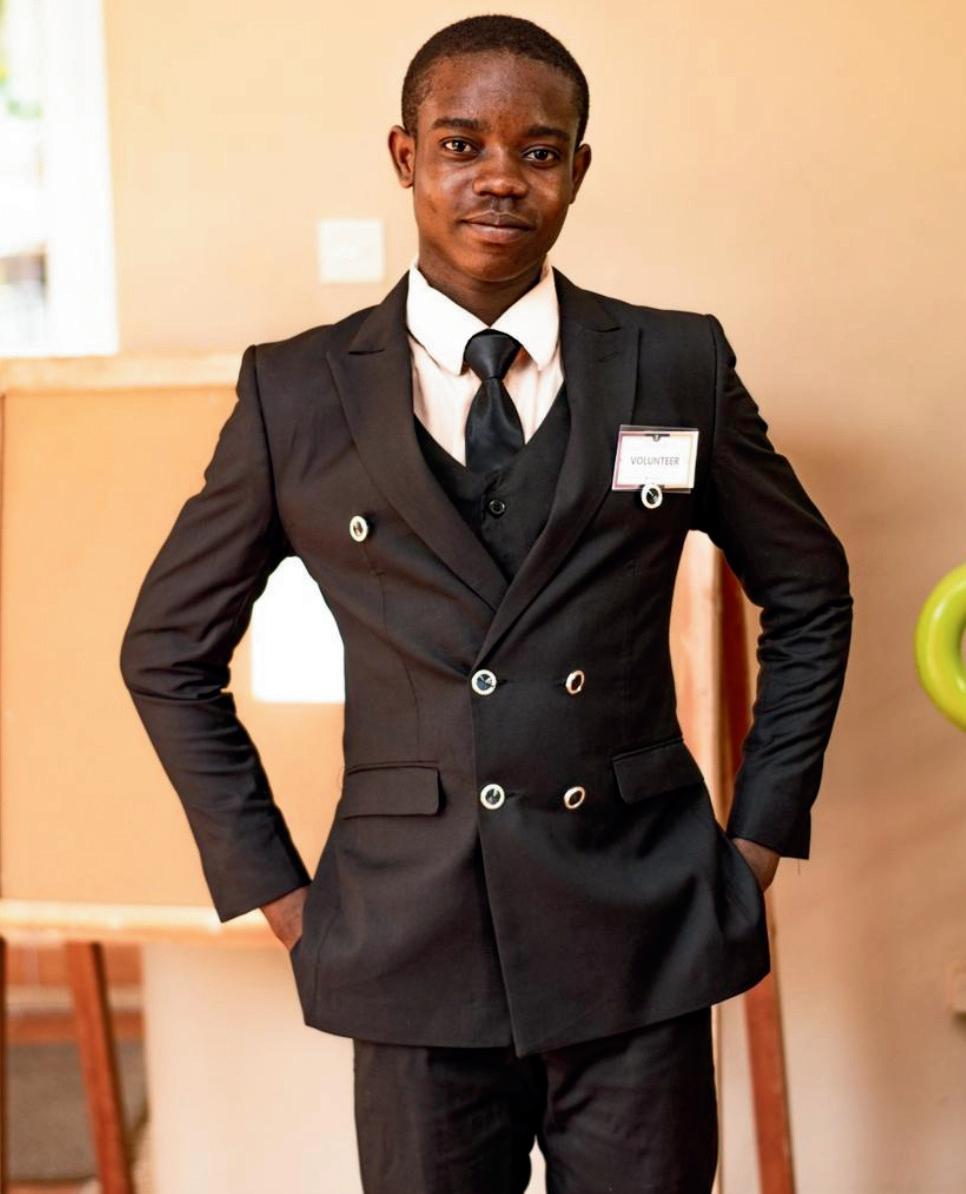
Splendour Kalu studies Management Information Systems at Ashesi University in Ghana. He is the founder and CEO of Communities Will Connect, an initiative that empowers youth from rural communities with technological skills. He is among six elected Ashoka Young Changemakers co-leading the Everyone A Changemaker Movement in Nigeria and has been an ambassador to the World Literacy Foundation. In 2021, Splendour won the African Design Challenge Award from the Ellen MacArthur Foundation, and today, he is a peer mentor under the #CovidUnder19 initiative of the Terre des Hommes Foundation. Splendour is committed to creating a world where problems will not outrun solutions, evidenced by how he has impacted the lives of over 300 people across his community.
IDENTIFYING A PROBLEM
Splendour is from a rural community in Nigeria where most people lack digital knowledge or skills. Emphasis is instead placed on farming and petty trading, and many schools are poorly maintained and lack ICT (Information and Communication Technology) facilities —
effectively stymying innovation while fueling poverty and crime.
While attending TeenHack 2019, one of the largest technology-oriented events for children and young people in his country, Splendour realized a passion for combating the digital illiteracy plaguing African rural communities. During the event, he was struck by a six-year-old girl developing games using Scratch. Her programming abilities drove Splendour to look inward at his community’s young people, many of whom had not even touched a laptop at that point, much less learned essential computer skills.
PURSUING A SOLUTION
In light of his new perspective and passion, Splendour founded an initiative called Communities Will Connect in 2019 to address this issue. Dedicated to breaking a cycle of digital illiteracy among young people — especially girls — from rural African communities, the organization empowers underserved students with digital skills to pave the way for their futures as ethical leaders.
Splendour first turned to his university as a platform to give free lessons on basic computer skills, graphic design, and programming. Believing in the mantra “If you want to go fast, go alone, but if you want to go far, go in groups,” Splendour enlisted six young people — three boys and three girls — who shared his vision of expanding his project beyond his community and creating a new Silicon Valley in Africa where all youth have the opportunity to learn basic computer skills.
ROADBLOCKS & PITFALLS
Splendour’s journey as a changemaker was nonetheless challenging. At the pandemic’s nadir, ICT labs notified him it was closed until further nonetheless challenging. At the pandemic’s nadir, ICT labs notified him it was closed until further notice, a major setback. Getting people to believe in what he was doing was tough also: facing discouraging remarks and even having someone from his
27

Splendour began questioning project’s feasibility.
Bolstered by encouragement from family and friends, he adapted to the pandemic by translating his program to an online format. This strategy served him well and kept Communities Will Connect running until ICT labs reopened.
MAKING A DIFFERENCE
Splendour’s initiative has seen myriad success stories. Splendour mentored and trained one boy from a remote community in web development, who participated in and won an MTN-sponsored hackathon during the pandemic. Following his victory, he trained under MTN’s mentorship program and received funding for his project –which is still running and can be found at Academicenlighters.com.ng. Six young girls mentored in basic computer skills and programming under Communities Will Connect joined the Google Developers Group and Meta Developers Circle in Aba City. Being the first from their rural community to join such reputable groups, these girls opened the door to limitless opportunities for other young people to follow.
Splendour’s digital literacy efforts were noticed by Ashoka, one of the leading social enterprises in the world. As a result of this, he was elected one of the six Ashoka Young Changemakers from the organization’s first Nigerian cohort. As an Ashoka Young Changemaker, Splendour co-leads the African Everyone a Changemaker movement (EACH). On top of this, Splendour has been featured in an array of news outlets — both regional and international — for his work on Communities Will Connect. Some came to see him talk about the project he’s working on, including the Quest Times, Vanguard News, Radio Nigeria, and more. As a validation of and testament to his dedication as a young changemaker, such coverage had a significant impact on Splendour.
OSUN & NEXT STEPS
Splendour continued expanding his horizons and joined the Open Society University Network as a Global Engagement Fellow to surround himself with like-minded people. Another component of the fellowship he values is its collaborative nature: working with and learning from other fellows and
their sustainable projects to gain a global perspective. He’s gained supportive friends and has learned to work on tight schedules, communicate effectively with others, and be an active listener. He has practiced working around different accents and cultivating a friendly, hardworking, and respectful community - an aspect of OSUN he loves and is learning to incorporate into his future endeavors. Also, Splendour won a $1,000 grant from OSUN to host the 2024 WorldWide Climate and Justice Education Week at Ashesi University.
As Splendour has furthered his changemaking agenda, he has implemented a new branch of Communities Will Connect that is dedicated to turning its alumni into young changemakers. This led to an annual High School Summit that brings high schoolers from around Africa together to inspire them to become changemakers. The mentorship program requires its members to look for ways to use the skills they learned to create change in their communities, with the resulting projects showcased at the summit. Attendees also learn from innovative leaders and their successful projects in the hopes of pursuing similarly successful initiatives on their own. Going forward, Splendour looks to expand the high school summit to be in person in at least 20 African countries — it has thus far been able to implement hybrid summits in 27 African countries. As it expands, the branch hopes to include Communities Will Connect.
Splendour and his small team have empowered over 300 youth within and across their rural community. Formerly techshy girls are now tech-savvy; others are software developers, graphic designers, and web designers. He has become a global leader working with adults, teens, and children. Societal norms make working with children challenging, but Splendour has built trust over the years from his emotional connections and active listening. He advises readers with similar interests to prepare to invest some time, as being a changemaker doesn’t come about in just a day.
28

NGUYEN DANG
BALANCING ACADEMICS, COMMUNITY, AND CULTURAL PRESERVATION
by Juan Andrés Moncaleano - Universidad de los Andes
What can students achieve when they combine their dedication to education, community service, and preserving their culture to pursue a better world? Meet Thao Nguyen Dang, a dedicated sophomore at Fulbright University Vietnam, making her mark with a unique blend of academic pursuits, community engagement, and cultural preservation. Hailing from the picturesque region of Kon Tum, Nguyen's journey began with a deep-rooted connection to her homeland. Her story exemplifies the power of advocacy, social work, and responsibility in fostering positive change.
FROM COMMUNITY IMPROVEMENT TO EDUCATIONAL DEVELOPMENT
Nguyen's academic journey at Fulbright University Vietnam encompasses a dual major in Psychology and Vietnam Studies, a testament to her commitment to personal growth and understanding of her cultural heritage. But her aspirations extend beyond academia. In her free time, Nguyen prioritizes self-care, engaging in activities such as walks with friends, exploring local eateries, watching captivating movies, and playing tennis. This balance allows her to rejuvenate and remain focused on her academic pursuits. Enrolling in rigorous courses such as Civic Action and Research during her freshman year, and later Civic Engagement and Social Action in her sophomore year, she gained invaluable insights into civic engagement. Thao's commitment to academic excellence is exemplified by her role as a research assistant in the Ministry of Science and Technology's 2023 program, where she contributed to cutting-edge research in her field. Her relationship with her university is a testament to her passion for community. As a Wellness Ambassador, she is pivotal in promoting mental health awareness and healthy lifestyles among her peers.
AN AMBASSADOR WITH A SOCIAL FOCUS
As the ASEAN Social Impact Program Ambassador, Nguyen supports student leaders across Vietnam, showcasing her dedication to nurturing meaningful connections within her
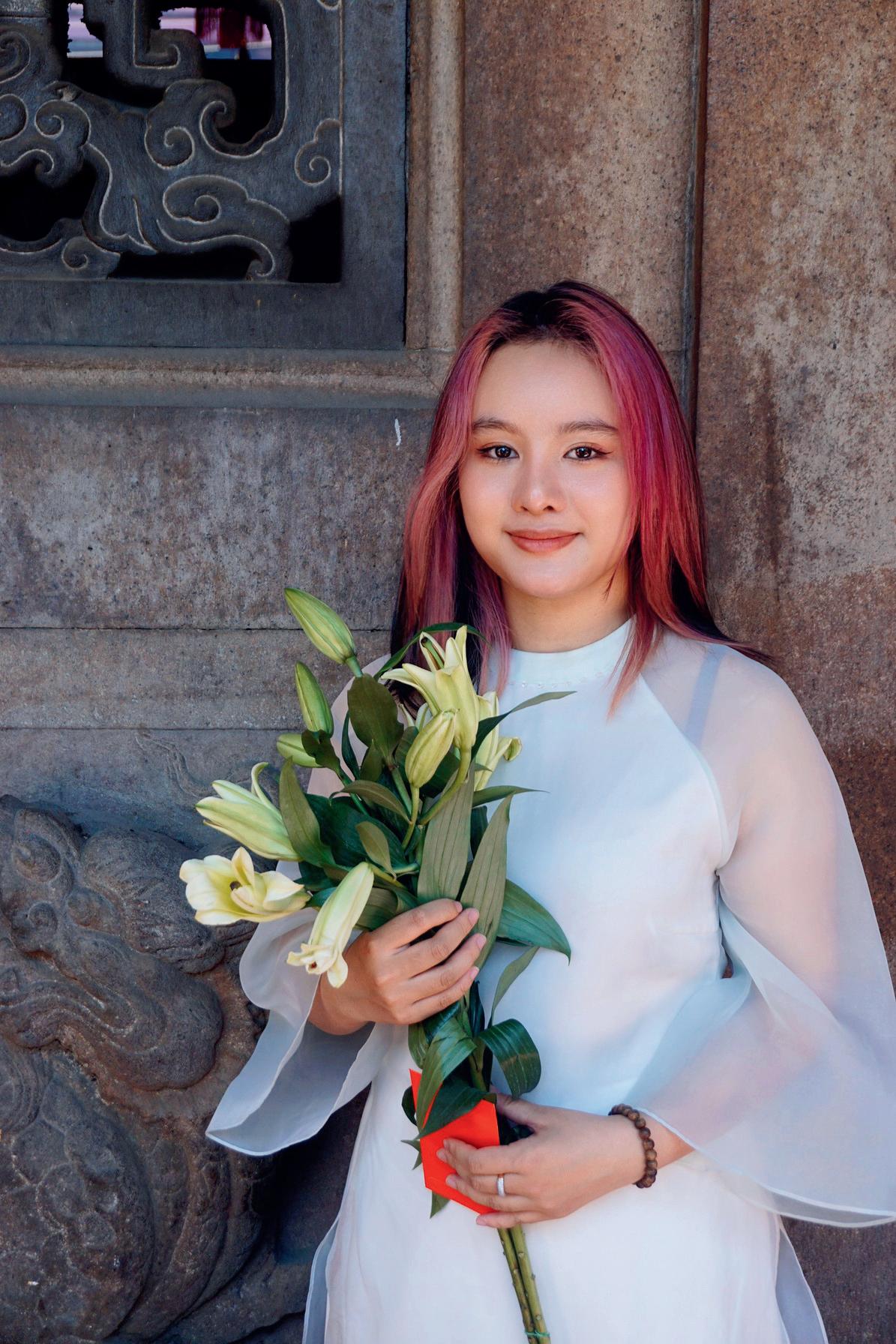
country. She has played a pivotal role in guiding 100 young changemakers from various Vietnamese universities in addressing waste management issues through innovative zero-waste solutions, with winning teams receiving substantial financial support of up to $10,000. That leadership has fostered strategic partnerships with key companies in the zero-waste movement, enriching program content and amplifying its impact. In her role, Nguyen gained valuable experience in program development and implementation while working closely with diverse participants, reinforcing her commitment to driving positive change within the region. ASIP has provided Nguyen with a unique platform to contribute to transformative initiatives aligned with the program's
29
mission of creating a sustainable future and empowering young leaders to make a real difference within their communities.
GLOBAL EDUCATION, LOCAL COMMITMENT
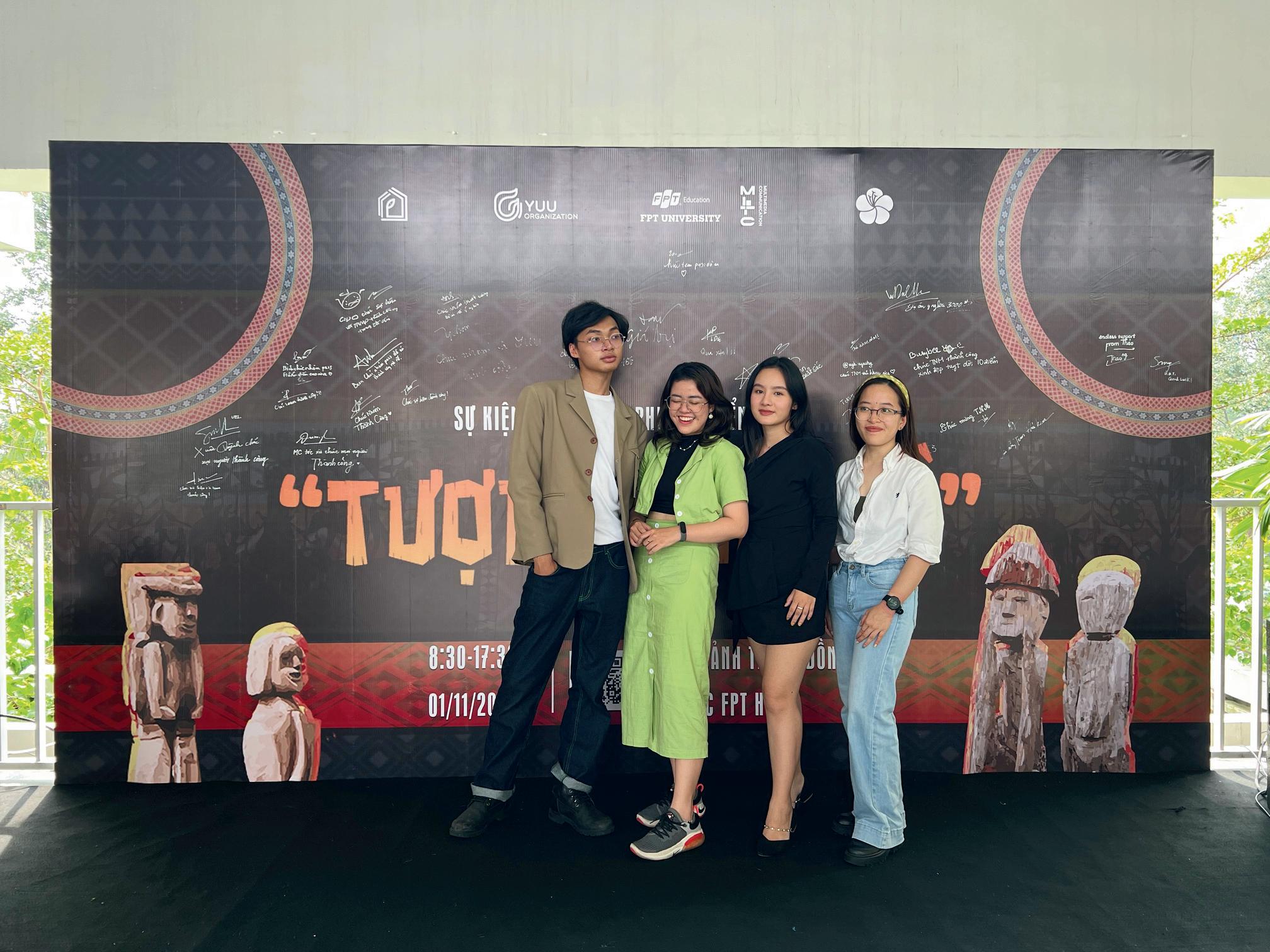
The YUU Organization, which she joined in 2017, is a non-profit that supports ethnic minority youth in the Central Highlands region of Vietnam. Through community projects addressing education, livelihood, and cultural preservation, the organization is a beacon of hope for underserved communities. One of their most cherished initiatives is the Sculpting the Change (Dong Tuong) program, focused on conserving wood sculptures by the Bahnar and Jrai people in Kon Tum.
Her challenges have been as intricate as the wood sculptures she aims to preserve. Cultural preservation requires profound understanding and sensitivity, which Nguyen and her team pursue tirelessly. Limited resources about the Bahnar ethnic group and their cultural nuances posed a significant hurdle. She's shared the beauty and significance of the Bahnar and Jrai cultural practices through documentaries, exhibitions, workshops, and interactive activities. These efforts don't merely showcase a heritage; they empower local communities and students, nurturing a sense of connection to their roots.
coursework, competitions, and community work during my freshman year, I faced burnout and questioned my impact. However, a turning point came after a summer camp for underprivileged children in my hometown expressed gratitude for my support and inspiration. This moment affirmed the transformative power of civic engagement, reminding me that even small actions can make a profound difference in our communities and in our lives.”
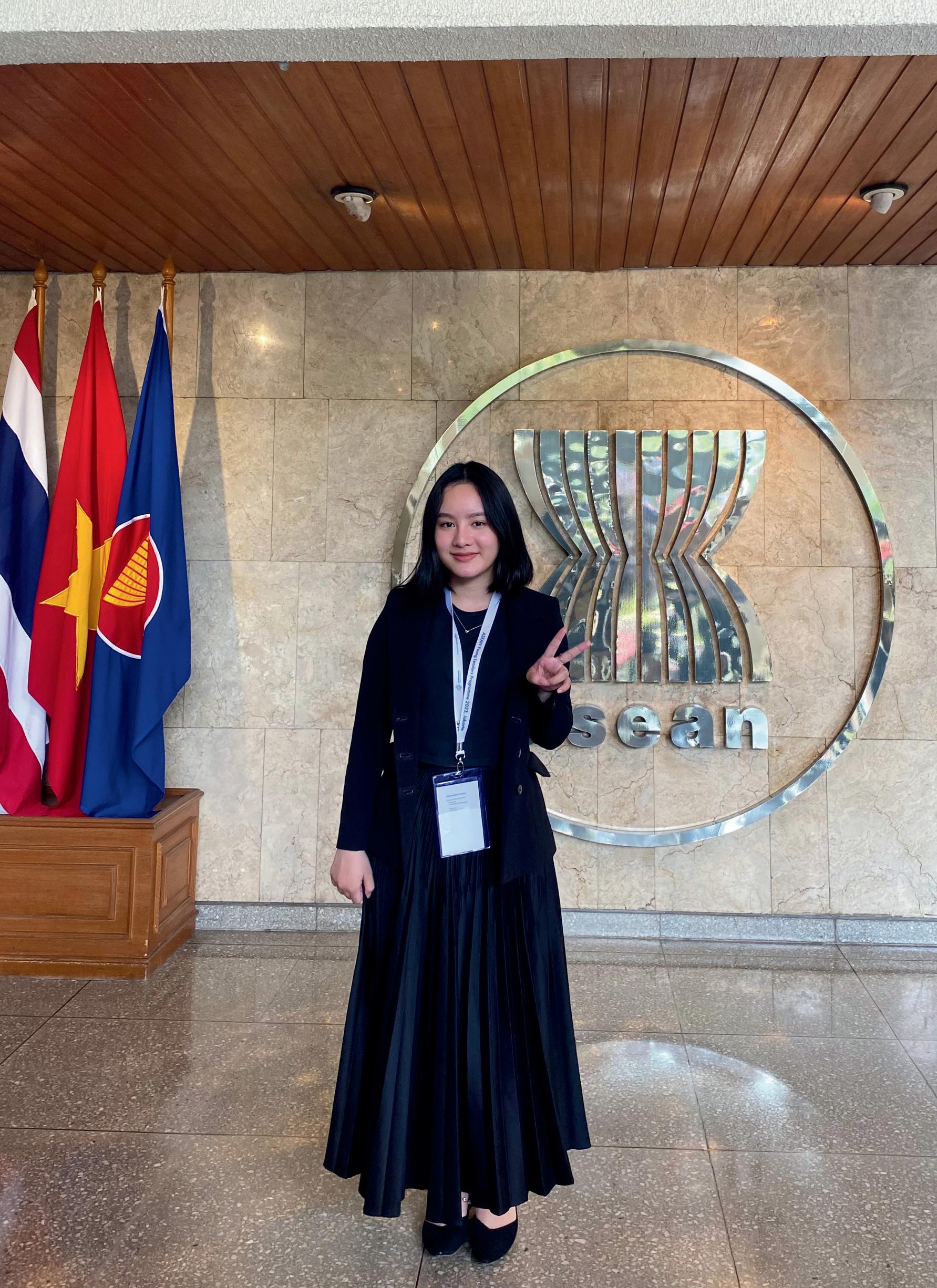
A NEW HORIZON TO FOSTER LEADERSHIP SKILLS
Through OSUN's support, Nguyen’s impact has rippled through various networks and resonated with a global audience. OSUN online courses, the Get Engaged Conference, and grants have enabled her and her team to collaborate, learn, and share their project on a broader scale. To those venturing into civic engagement, Nguyen's advice is rooted in responsibility. Good intentions must be accompanied by mindful actions considering the long-term impact on vulnerable communities.
LISTENING TO HER VOICE
“A vivid memory from my civic engagement experiences stands out—a moment of doubt and reflection. Amidst the chaos of balancing

Nguyen's story is a testament to the power of education, community engagement, and cultural preservation. Her journey from Kon Tum to Fulbright University Vietnam showcases the potential of combining academic excellence with social responsibility, proving that a single individual's actions can lead to transformative change in local and global communities.
30
CIVIC ENGAGEMENTIN A NUTSHELL
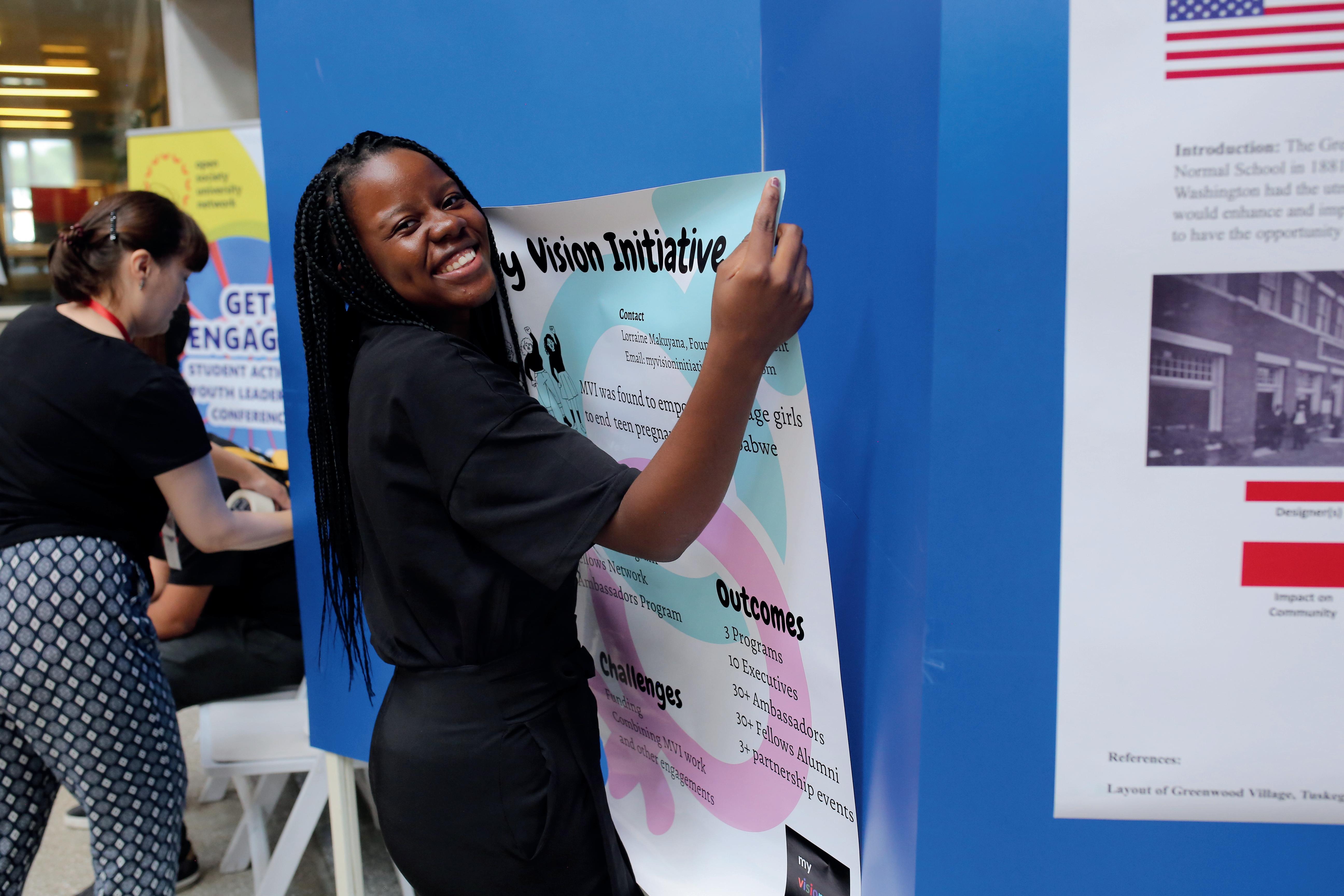

CIVIC ENGAGEMENT AT THE MARGINS FOR REFUGEES IN KAKUMA REFUGEE CAMP
by Robert Aharanya Claudio - OSUN Hubs for Connected Learning Initiatives
A CRY FOR SUSTAINABLE SOLUTIONS
"When capital, goods, and currency flow so effortlessly across the globe, why do 185,000 refugees find themselves confined to a camp for over two decades?" said Mohamed Hassan, a dedicated refugee activist, to an audience of over 1,000 executives during the 2019 World Economic Forum. He painted a vivid picture of life at Kakuma Refugee Camp in Kenya, challenging them to devise enduring solutions for the refugee crisis.
Fast forward to June 2023, the International Rescue Committee reported a staggering 110,000,000 people globally displaced, encompassing refugees, asylum seekers, and internally displaced individuals. Among them, 280,000 refugees reside in the Kakuma Refugee Camp and Kalobeyei settlement, as per data from UNHCR as of July 2023. Displacement typically triggers a humanitarian crisis, and the conventional approach has often entailed providing basic necessities such as shelter and food. Generally reliant on donor funding, humanitarian aid remains subject to fluctuation, engendering uncertainty within these camps. Education, healthcare, and other vital services need to meet ideal standards. Notwithstanding the challenging conditions in the camps, refugees have assumed the role of pioneers in developing sustainable solutions. They've initiated or participated in projects to boost income, enhance educational opportunities, and foster a better quality of life.
ECONOMIC AUTONOMY FOR REFUGEES
Increasing income provides economic independence for refugees, empowering them to access high-quality services more swiftly while actively contributing to the host country's nation-building efforts and job creation. A 2018
study conducted by the International Finance Corporation revealed that at that time, 180,000 refugees were injecting approximately $56,000 into the Kenyan economy annually. This was only possible with the status quo, which inhibits productivity and creativity among refugees, because aid, immobility, and the limited higher education opportunities cause refugees to rely on aid all their lives. An example is the “Step Up One” economic project that helps refugees have financial independence. This project is a social impact enterprise that equips refugees with marketable skills, enabling them to earn an income of up to $300 per month—an uncommon achievement within the camp. Having positively impacted around 1,000 refugees, their goal is to retrain and employ 1,000,000 refugees. Thanks to these efforts by Step Up One and other initiatives, some refugees have gained the financial power to raise their living standards. Though lacking enough electronic devices, electricity connectivity, and internet, they have used available resources to capitalize on their operations.
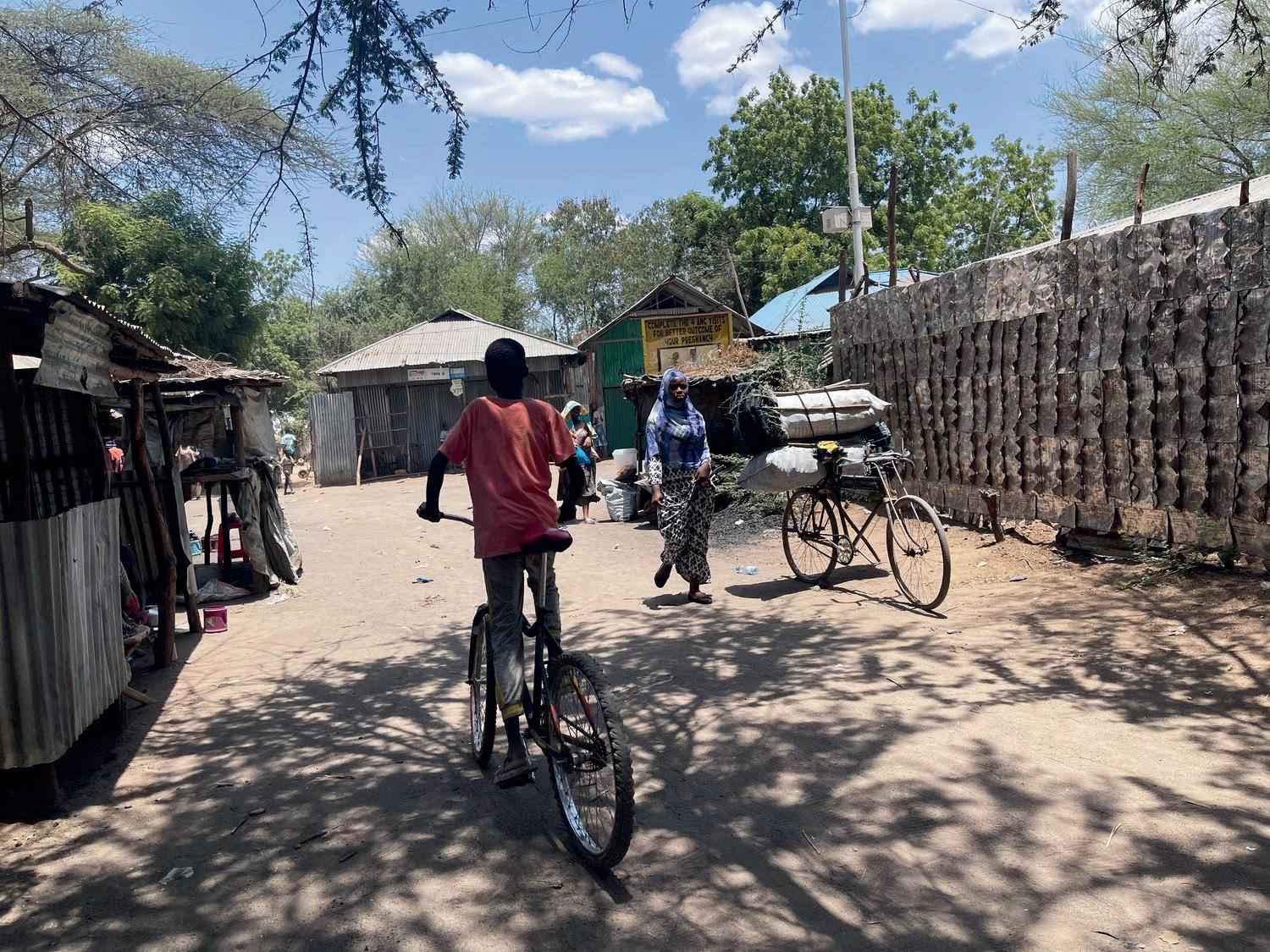
32
Education provides refugees with an opportunity to carve out their future, but currently, a limited number of students can unlock their full potential, with only a minority making the transition to university, owing to various factors. First, the available educational resources cannot accommodate the student population, diminishing the prospects for academic excellence. Second, there is a shortage of qualified educators capable of delivering highquality instruction, compounded by an adverse environment, including harsh weather and substandard living conditions, which may compel students to explore alternative means of survival, often leading to school absenteeism. In response to these challenges, certain refugees have taken it upon themselves to establish community libraries and provide complimentary remedial classes to students during holiday breaks. Some communities have done more fundraising for some students to study out of these camps for better education.
LEAVING NO ONE BEHIND
In a rapidly evolving world, the methods we employ to address challenges are also constantly evolving. This has underscored the importance of self-improvement, keeping pace with the latest technological advancements, and embracing lifestyle innovations to remain resilient and adaptive. While it is undeniable that food and shelter rank among the most fundamental necessities for refugees, it is equally vital to recognize the significance of imparting essential skills. Refugee-led organizations have taken proactive steps by establishing dedicated learning centers in this context. These centers equip fellow refugees with valuable technological knowledge and offer vital life skills such as counseling and sign language proficiency. Through these efforts, they strive to foster an environment of inclusivity within the camp community.
In summary, as illustrated by the instances above, Civic engagement within contexts such as refugee camps holds profound significance, as it can swiftly and effectively reach the most vulnerable populations, often surpassing the capabilities of local governments or NGOs. These initiatives are custom-crafted, borne from the experiences and insights of refugees, thereby bolstering the delivery of essential services to marginalized communities. I earnestly implore stakeholders to throw their weight behind these grassroots refugee-led endeavors; their support can truly be a game-changer. With ample backing, these ingenious initiatives stand poised to harness every available resource, ultimately fostering a more profound and enduring impact through sustainable solutions for refugees.
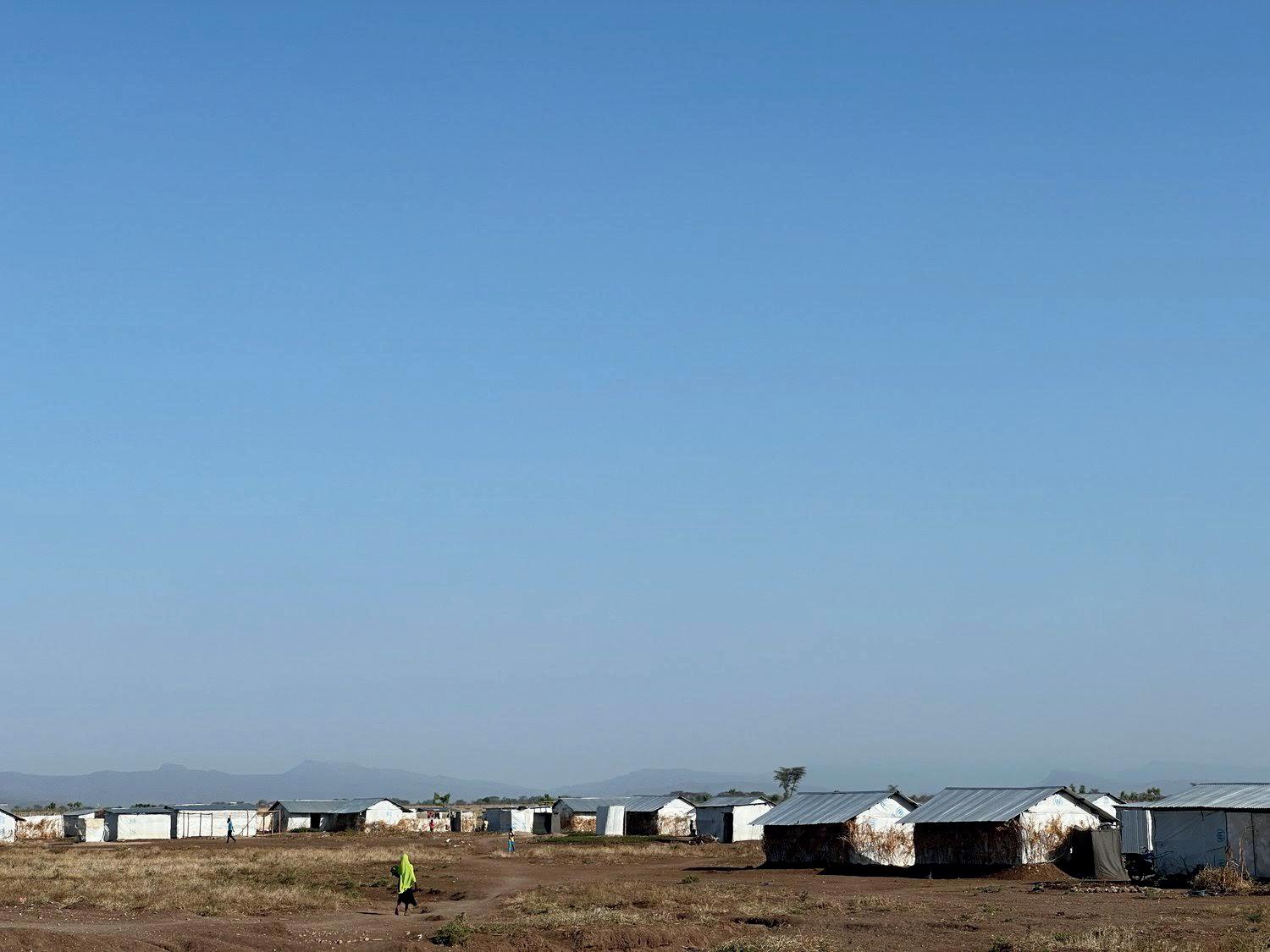

33

COPING WITH FAILURE
by Emilia Cooper - Bard College
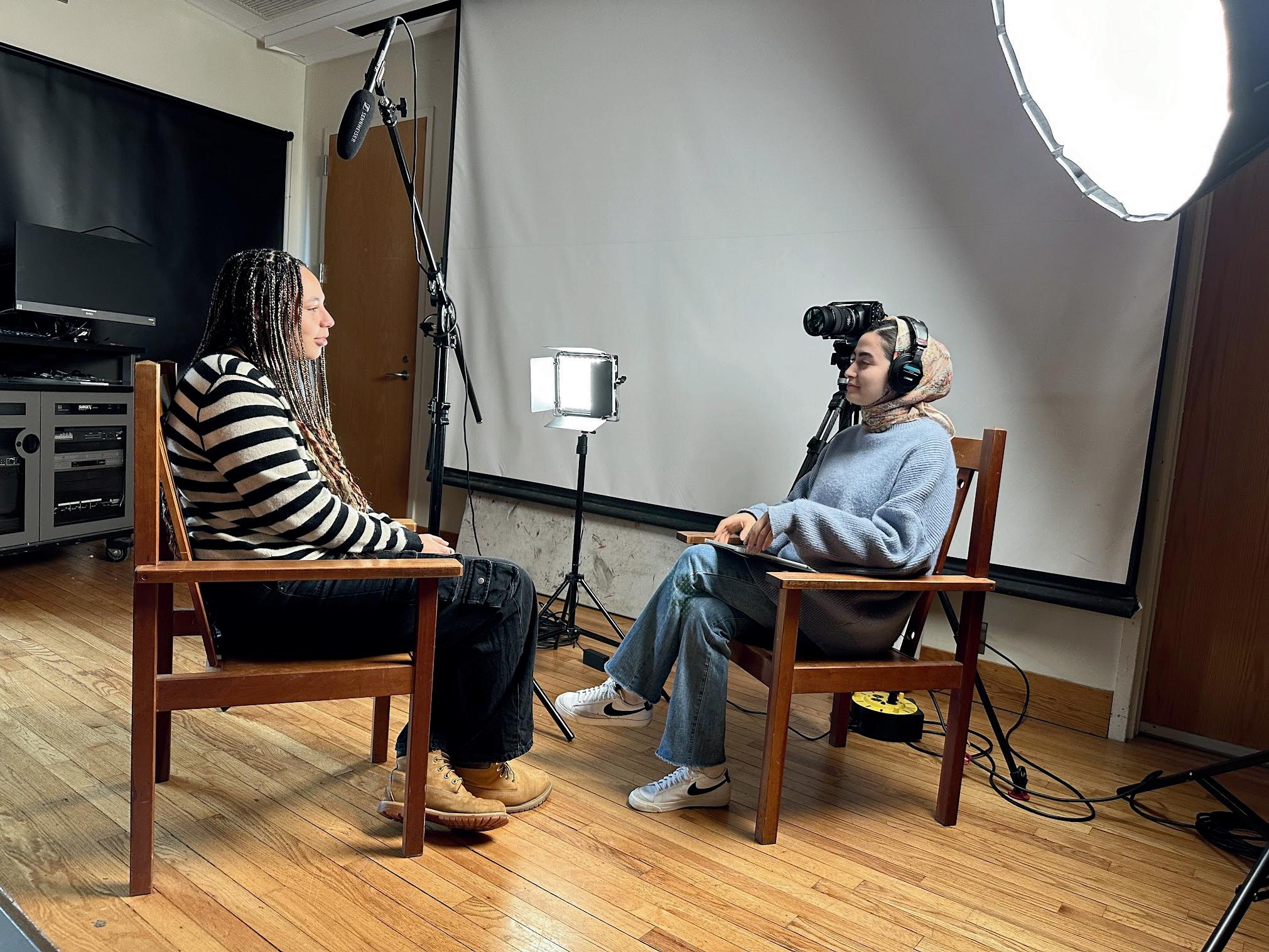
During the summer of 2021, I volunteered at Arloste Ganze Academy, a school in Ganze, a rural village in Kilifi County on the Coast of Kenya. Community members have time to produce fresh food and commodities; however, there is limited fertile land to cultivate, and they need more skills, infrastructure, and resources for agricultural development. Many village residents face food scarcity and employment insecurity. Many families struggle to pay school fees and their efforts do not pay off. Unemployment rates are high and educated people need help finding work. The soil in Ganze is unhealthy and the village faces frequent droughts. There is no sustainable food system in place and there is an absence of ecological education and acknowledgment of climate justice issues in Ganze. While volunteering at the school, I also assisted the school manager and founder of the Lchokuti Foundation with community development. I wrote grant proposals and completed aid inquiries, brought food and supplies to elderly community members, and provided support to a teenage mother in the village.
Since 2021, I have independently raised money for Arloste Ganze Academy. The funds have been used to install a tap water system on the school compound to replace the use of rainwater, convert a classroom into a library for students to use for independent studies, finance the feeding program at the school that provides free meals for over half of the student body, subsidize school fees for students whose families cannot afford them, begin construction of dormitory facilities for boarding students, and buy academic materials to replace books and utensils that are too worn out for use. I have also organized several clothes and toy drives in the United States and brought donations to dozens of families in Ganze. While tremendous progress has been made, there is ample room for improvement. Living spaces at the school for female students are not up to code, resulting in the girls being housed outside the school compound, forcing them to commute. They feel unsafe due to the high frequency of sexual violence,
34
as they have to walk early in the morning to arrive at class before sunrise and leave school after sunset. The school facilities still reflect the economic devastation that the village perpetually experiences, and the lack of appropriate housing for the girls perpetuates educational inequity.
At the start of this year, I applied for a grant to fund the project I had initiated in Ganze. The fundraising I was doing on GoFundMe wasn’t an adequate source of sustainability for the school, so I sought help. At the time, I was trying to raise enough money to build a dorm building for female students who have to walk to and from classes at times when it is unsafe to be outside in the village. I wrote a grant proposal for a new program in the new dorm space called the Grace Rescue Center.
I wrote, “The Grace Rescue Center will bring peace and power to young women in Ganze, Kilifi County in coastal Kenya by providing refuge to victims of sexual abuse and assault, creating a system of support for young girls and teen mothers to continue their education, and fostering a self-sufficient community of empowered women. By partnering with local health and law enforcement agencies, we will create a system of accountability for perpetrators of gender-based violence and support the autonomy of women and girls through education.”
I did not get the grant, which broke my heart. I remember sobbing in my car when I found out the news. I felt hopeless and like a complete failure. I wanted to give up on this project. When I found out why I did not receive the grant money, I realized the project I wanted to create was fine, but the grant was intended for projects to be run and carried out by Bard students. Since this grant application, I have adjusted my expectations regarding funding capacity. I have realized that I am only a college student and trying to take on a significant role that may be too much for me at this time in my life. It has been hard to accept that I cannot achieve everything I hope for and to navigate what is an appropriate role for me to take on as a student and a volunteer.

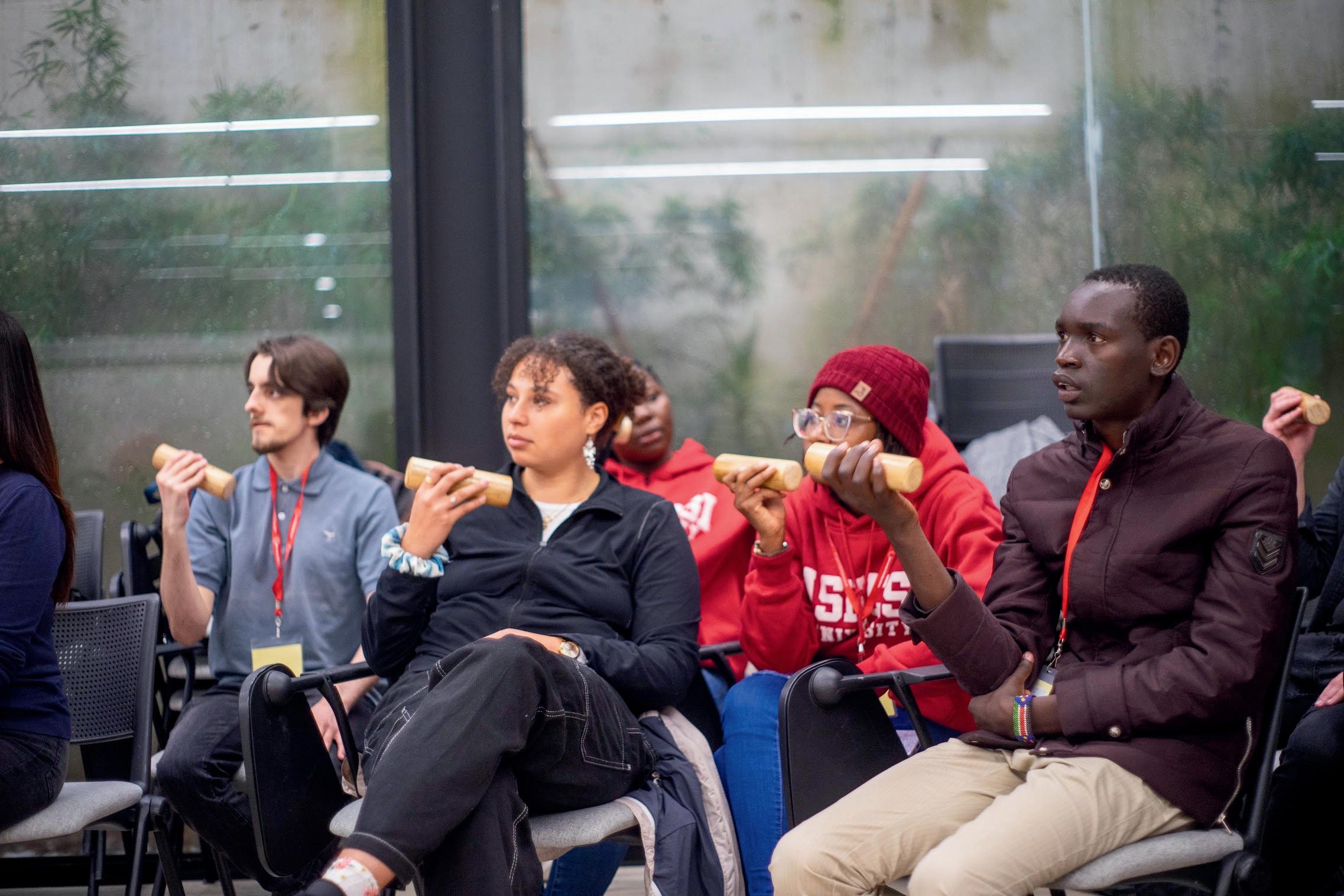
35

NURTURING HEALTHY ORGANIZATIONS AND MANAGING TEAM CONFLICT
by Jaycob Beasley - Tuskegee University
In an era marked by rapid societal evolution and interconnectedness, the significance of civic engagement has never been more pronounced. At its core, civic engagement encapsulates individuals' active participation in improving their communities, transcending mere observation to become a driving force for positive change. This article delves deep into the essence of civic engagement, shedding light on its profound importance and exploring a unique perspective that examines its symbiotic relationship with cultivating healthy organizations and embracing team conflict.
Civic engagement, in its essence, embodies the spirit of communal responsibility and collective empowerment. It encompasses a myriad of actions, from volunteering and voting to grassroots activism and public discourse. At its heart, civic engagement thrives on the passionate commitment of individuals to shape their surroundings for the better. This fervent dedication resonates with a desire for a more just, inclusive, and vibrant society where each voice is heard and amplified.
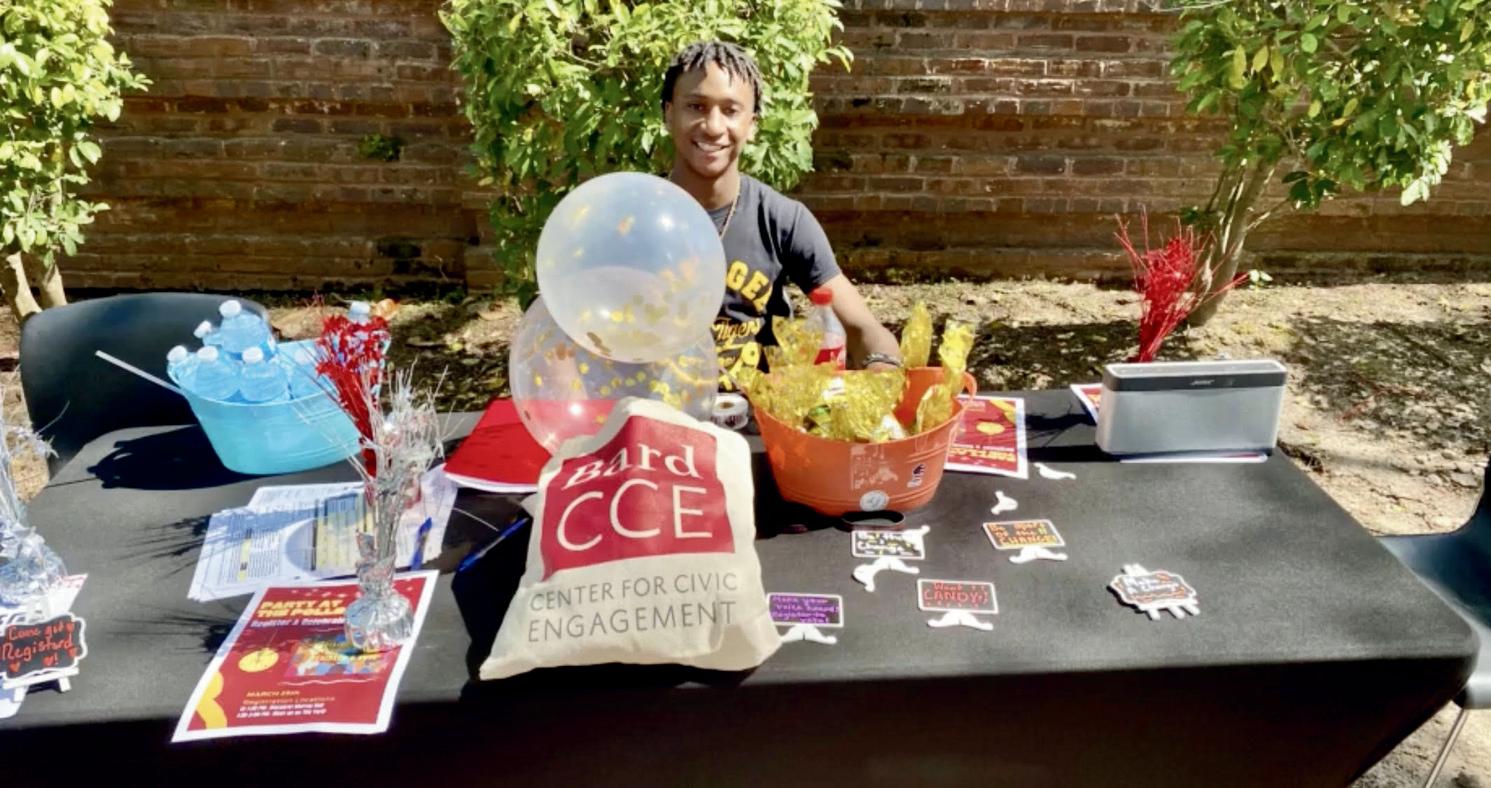
Civic engagement's importance extends beyond personal satisfaction; it reverberates across society, forging the very bedrock of a functional democracy. Active citizen involvement fosters an environment where public policies reflect the actual needs of the people and where diverse
perspectives converge to sculpt innovative solutions to complex challenges. Moreover, civic engagement nurtures a sense of ownership and belonging, weaving together the fabric of a resilient and harmonious community.
Intriguingly, the principles of civic engagement find a natural ally in organizational dynamics. Much like a vibrant community, a healthy organization thrives on open communication, shared values, and collective goals. When individuals within an organization embrace the spirit of civic engagement, they contribute not only to their personal growth but also to the organization's overall well-being. Their active participation fuels an atmosphere of transparency, mutual respect, and continuous learning—the cornerstones of a thriving workplace.
A genuinely healthy organization acknowledges that conflict is not a hindrance but an opportunity for growth. Similarly to civic engagement, where differences in perspectives pave the way for innovative solutions, conflict within teams can catalyze creativity and facilitate breakthroughs. By embracing team conflict, organizations unlock the potential to refine ideas, challenge assumptions, and foster a culture of constructive critique. This approach transforms conflicts from divisive stumbling blocks into stepping stones toward shared success.
Civic engagement emerges as the beacon guiding us toward a brighter tomorrow in a world brimming with challenges and opportunities. Its essence transcends the individual and extends to organizations, enriching them with the vitality of open dialogue, shared purpose, and resilient adaptability. Moreover, as we recognize conflict not as a liability but as a catalyst for progress, we embrace a new paradigm in organizational dynamics. This article has barely scratched the surface of the intricate relationship between civic engagement, healthy organizations, and team conflict, inviting us to embark on a collective journey of discovery, growth, and meaningful change.
36

TESTOSTERONE CYBERDEMIC
by Dareen Alhajaref - Al-Quds Bard College of Arts and Sciences
With the continuous rise of social media platforms and the desire to stay on top of the endlessly changing trends and fads, I see that women are often caught in the middle of a patriarchal storm that imposes traditions and stereotypical roles upon them, even online, leading to what I like to call a “testosterone cyberdemic.” If you were assigned female at birth (AFAB), there is no running away from this. And while, yes, it is not only females who are subjected to cyberbullying and hatred online, it is critical to understand social media's role in degrading and suppressing femininity and gender.
It is no secret that Southwest Asian women have struggled in the past with gender-based domestic violence and oppression. Still, social media has recently manifested the death of many unsuspecting women. Platforms like Facebook and Instagram, along with platforms that offer anonymity, have been used to threaten, cyber bully, and ultimately cause the deaths of women either under the made-up label of “honor killings” or blackmail. Unfortunately, no one is exempt from getting this treatment online. In my experience, simply having a public Instagram page means receiving desperate attempts and unsolicited and unwanted flirting attempts in my message requests. However, the former is a blessing compared to the destruction these platforms have brought to women I know. I often think back to comment sections on news outlets, especially when the news concerns a homicide committed against a woman. Needless to say, the outcome is always a misogyny-fest with one purpose: demonizing women and forcing them to take accountability for their oppression.
So, how does one reclaim their social space as their own? How can we possibly turn to yet another platform that is used against us, speaking our minds freely, to express ourselves with no fear, and to reclaim our right to
existence both in the real world and the internet? Sadly, to even have to think about this in the first place seems like yet another tedious task and precaution that we never asked for in the first place, and it is okay to feel like you simply have to be careful and go with the flow to prevent harm from coming your way. And if I am being honest, that is what I almost did. But what is the point of leaving things as is when you know it should not be that way, not even in the slightest? Knowing that I am being robbed of something that I should rightfully have, like any other homo sapien that was lucky enough to have been born the opposite gender of me, allows me to recognize that I should not let things stay static, even if it is only on the personal level.
This started by creating a separate Instagram account to express my interest in media and literature. While this might seem like an small thing to do for someone else, to me it was a big part of allowing me to understand that other people would love to listen to what I have to say about numerous topics, and ultimately, it allowed me to establish my own space online where I can express myself and my thoughts. While this might come to someone else through doing something different, the goal remains the same: allowing yourself to be present online while owning your space and protecting it from others.
At the end of the day, not all women are expected to be creative, have interesting hobbies, or start a project to gain respect and create their own space. It all boils down to solidifying your existence and being proud of it, whether in real life or online. And while one may still be subjected to the same kind of harassment, it is essential to acknowledge that you are not alone and that there are measures that you can take to protect yourself and others. And if there is not, then this is precisely why we must push in the right direction, the direction that paves a safe, comfortable space for us as women.
37
A GOOD RECIPE TO SUSTAIN YOUR CIVIC ENGAGEMENT PROJECT
by Myat Moe Kywe - Parami University
There are times when I get frustrated about continuing to lead my civic engagement projects. Things go differently than planned, and different complex issues are sometimes scattered in my community. It overwhelms me and I dwell on the thought that there are many things I cannot change to make a difference. The inner negativity tells me I should stop doing and leaving everything behind. I am writing this not to spread the negative vibe but to consciously share it and kindly remind you that your civic engagement journey can have many roadblocks. To counterbalance those unforeseen obstacles, I want to share a straightforward piece of advice I have been practicing to keep myself engaged and excited to follow up on my commitment to my community. That is, “the clarity of why,” which means being very clear about why we do what we do.
First, the clarity of why can help us build a strong foundation for our civic project. When we think of contributing to our community and solving issues we care about, we should ask the question, “Why do I want to help address this issue?” That will give us a clear understanding of ourselves and help find a personal connection to the issue. This seems an extra task, but I couldn’t help highlighting how important it is to navigate the sustainable ways of committing by defining our clear way to the community issue we wish to address.
Another important question is “Why is this issue important to address?,” which will help us comprehend the depth of the problem and decide whether it is worth it or possible to be
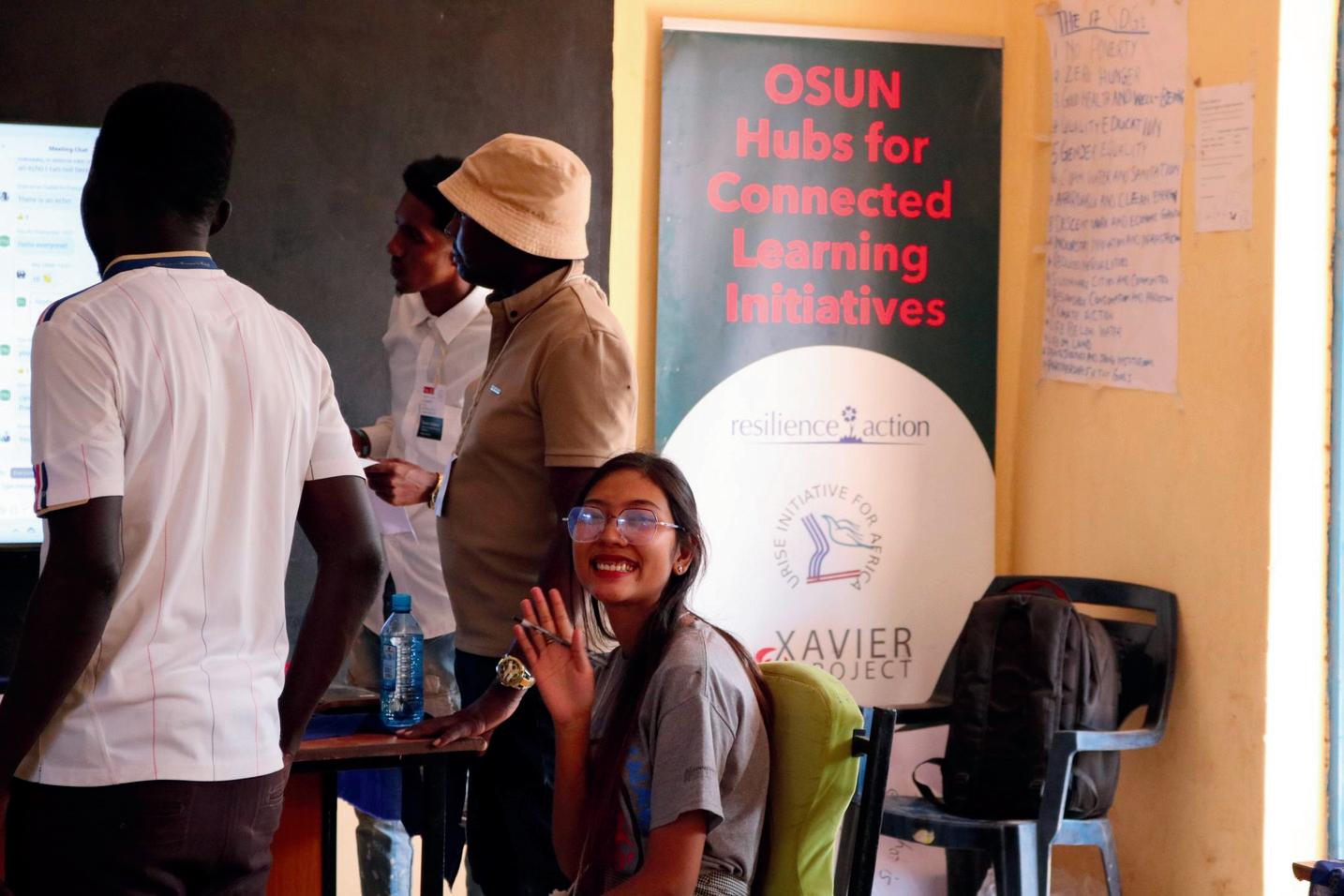
addressed in our capacity. For instance, I wanted to solve the gender equality issues in my community; however, it is a broad issue, so I was aware that I couldn’t change the overall situation of the problem. So, I asked myself those two crucial “whys” that narrowed my significant yet out-of-reach idea of providing equal opportunities for all women to train young junior-level women in business to advance their leadership potential and have an equal chance to take executive leadership roles in a maledominated society. That is how clarity of why can build up the stepping stone of our civic work.
The “clarity of why” can apply to other project phases. In the middle of the project, facing some obstacles, we might ask ourselves, “Why is it essential to continue the project?,” and “What are the roles our team can play to ease the obstacles and activate innovation to solve the problem?” When it comes to closing our community project, the right questions can guide us to reflect on our team’s accomplishments and provide a way forward for the future continuity of the project. We may try to ask why some of the goals were achieved and why others were not. Seeking clarity of why we have the power to shed light whenever we lose the meaning and value of what we are doing can lead to demotivation if unresolved.
As a fellow civic engagement enthusiast, I urge you to continually ask yourself the right questions, so you and your team can maintain the clarity of why. Finally, I am confident to declare that the long-term success, which I prefer to call “sustainability” of our project, may depend on many resources, from human capital to financial support, partnership, and so forth. Yet, the key element is to nurture our minds with the right questions, such as maintaining clarity about our purpose. You can trust me if I say it will lead us to more sustainable actions.

38
OSUN PROJECTS
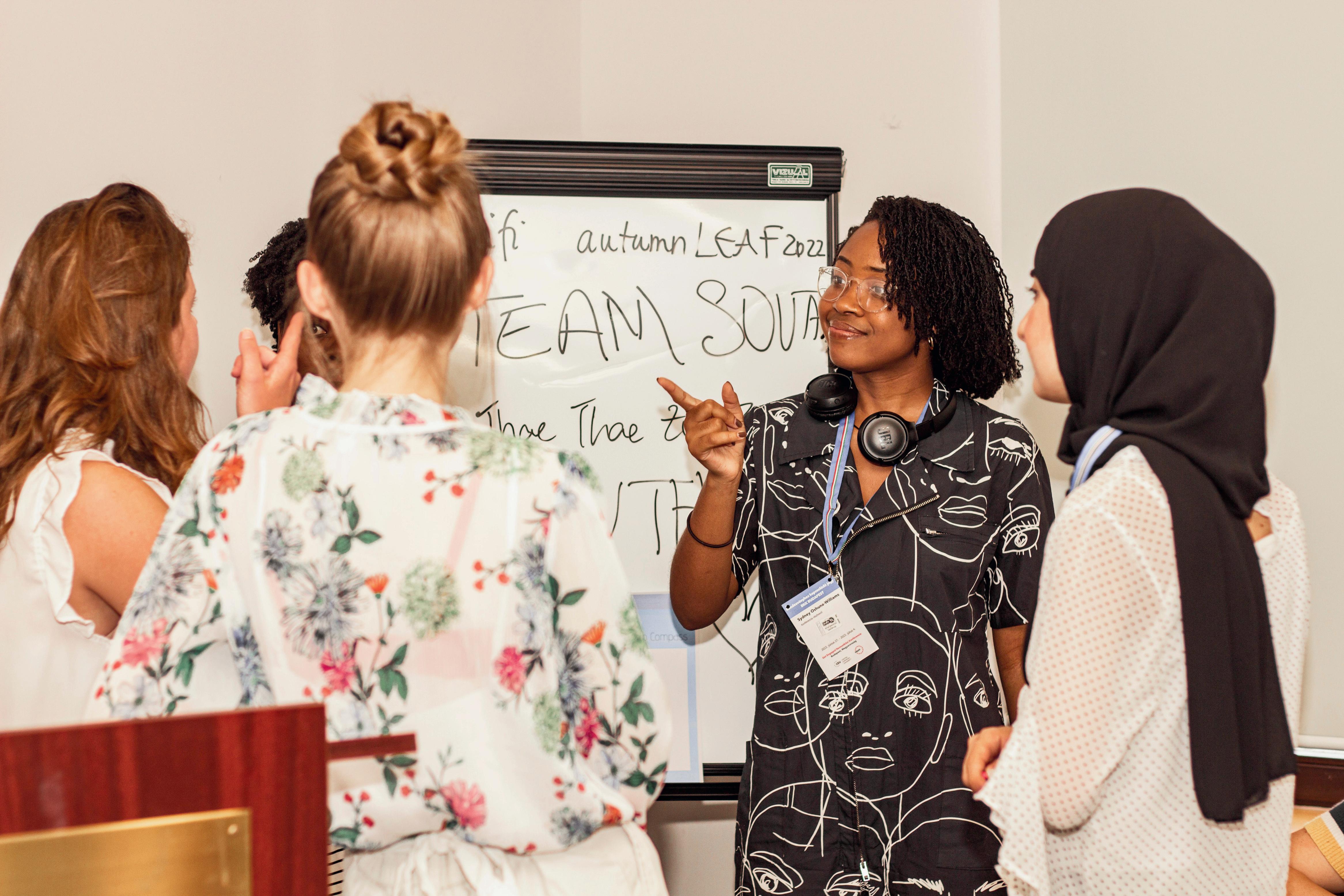
ENGLISH AND MINDFULNESS
FOR STUDENTS
by Zarlasht Sarmast - Bard College
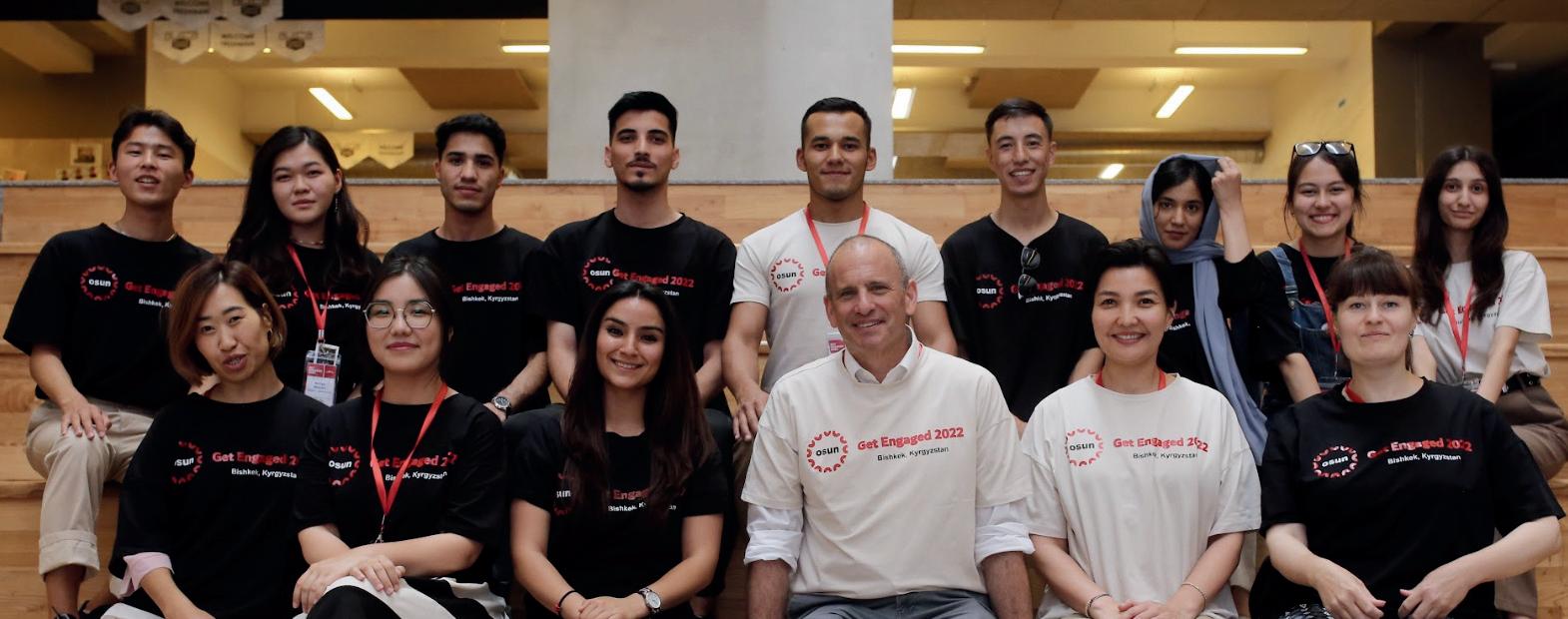
After the fall of Afghanistan, many things changed, and not for the better. One of the most significant changes in Afghanistan was the ban on education for women in the country. After this ban was announced, many Afghans abroad started connecting and trying to find ways to provide somewhat of a substitute for schools and universities so that women and young girls could still get an education.
As the OSUN Student Global Engagement Fellows program coordinator, I created an initiative called “English and Mindfulness.” After the fall of Afghanistan, I started conducting online English classes for some of my relatives and friends who were in Afghanistan as their schools and universities were closed. The structure was simple: I would search for interesting online prompts and send them to my students via the WhatsApp group I created. I give a specific amount of time for the task to be completed; the tasks were mainly focused on expression of feelings, grammar, and vocabulary. Once students completed the tasks, I would ask them to send their completed tasks back to me for review, feedback, and comments. I would review each task, add comments, and send it back for revision.

The English and Mindfulness program started with only 2 students at first, but after some time, the students asked if their friends could join, and the friends of friends could join, and just like that, the number of students kept increasing.
When the number of students started to increase drastically, I felt the need existing on the ground in Afghanistan. I spoke with friends at the American University of Central Asia and the American University of Afghanistan to see if I could have more people help conduct the classes. I recruited about 20 other students in their senior and junior years of university who had good English knowledge. Later, the program received a grant from the U.S. government, which helped the team receive professional teaching training from experts at The New School. The training was provided online, considering some of the program's mentors are based in Afghanistan. The mentors received three pieces of training and some other helpful material for their classes.
Currently, the English and Mindfulness program is providing classes for 450+ people,
40

mainly women in Afghanistan, three times a week. The structure of the classes has also changed to be more of a professional method of teaching. I recently finished my second Master’s degree in Applied Psychology at the American University of Central Asia. While studying, I also shared this project with some of my professors, who now help in formulating the writing prompts for students in Afghanistan. The prompts help students practice and learn English, become more mindful, and express their feelings.
Prompts also help students explore their inner selves by thinking deeper into their situations, emotions, sensations, and reactions. For example, they will write a 400-word essay addressing the question, “If you had the power and control, what are the 5 main things you would do in the situation you are in right now? What are the 5 main things you would change? Write about each one separately and explain why you think they should be changed. What difference would you make, if you changed these 5 things? ” I now put together the prompts with the support of the psychology department at AUCA and then share them with the mentors. Then, the mentors share the tasks with their students and wait for their submissions so that they can provide feedback and comments.
This system has worked very well so far. The team also asked students to delete conversations with their mentors from their WhatsApp accounts for security reasons. They do so at least twice a day, and they store their material in a flash drive or somewhere safe. Recently, my team asked students to write about their experience of the English and Mindfulness program; the students’ positive reflections strengthened their belief in improving the program quality for students:
“The one thing that I love most in this English course is the topics that the teacher gave us were hard and mindful topics. We had to think a lot before we wrote, so it improved our mind as well.”
“The most of topics was about us in this writing class I knew about myself more because during
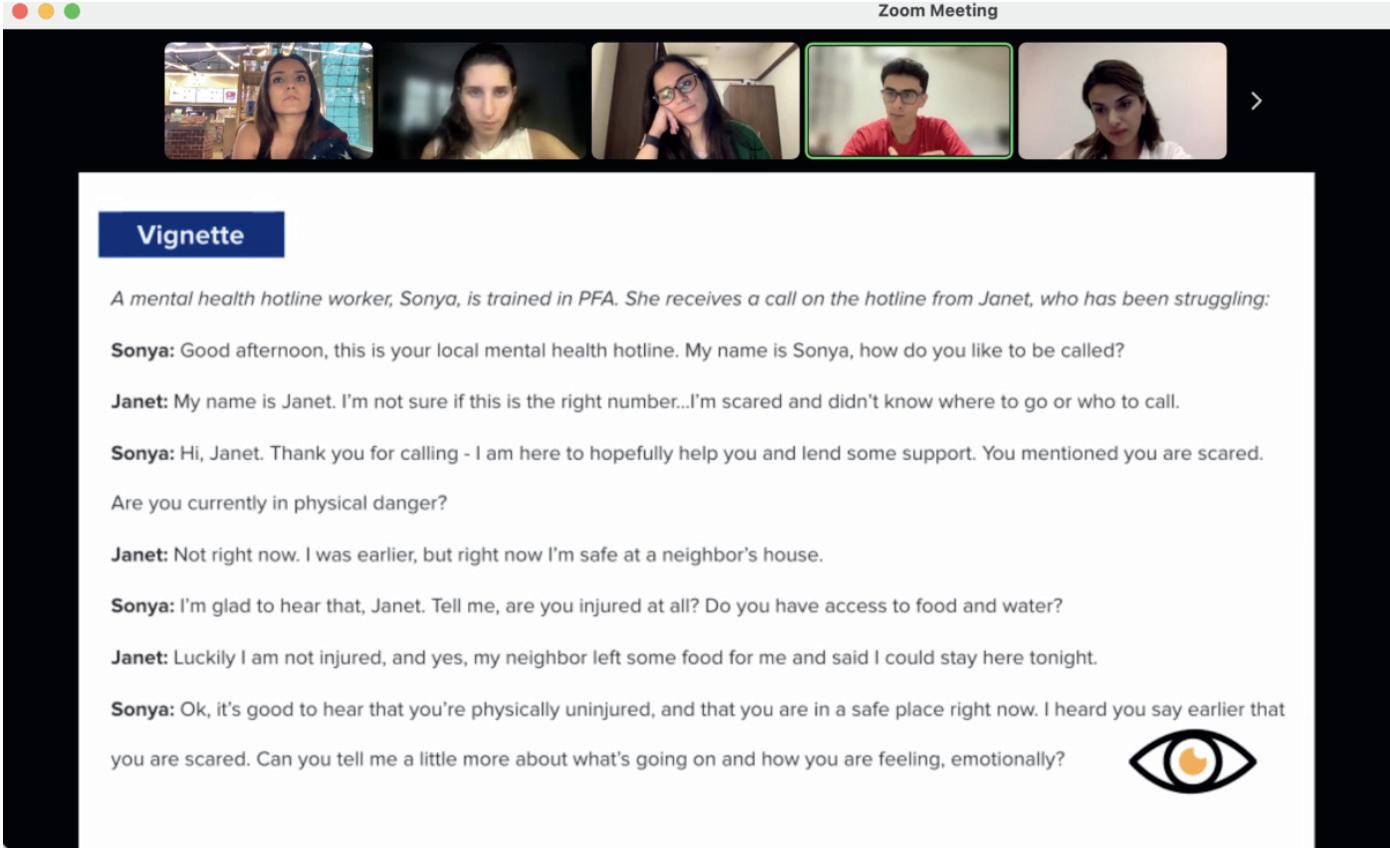
writing I asked from myself about myself more because the topics were about ourselves, and I loved more this kind of activity in this class.”
“Feedback about our teacher, our teacher Arman has not any feedback, because he is perfect and he is the best teacher that I have ever seen. He is such an intelligent and talented teacher. I like him; I can say that he doesn't have any words.”
English and Mindfulness continues because there is a huge need for such programs. If you are interested in joining, being a mentor, and helping Afghan women and young girls, please contact Zarlasht at: zar@opensocietyuniversitynetwork.org
41
THE SPIRIT OF UBUNTU IN THE
GET ENGAGED CONFERENCE
by Itumeleng Mabotse - University of Witwatersrand
My blood pressure began rising as my heart rate increased, and I started sweating and struggling to breathe properly. I was having a panic attack when I was told that both Siyasanga Nyangiwe, a fellow student from my school, and I were about to do our presentations in front of 70 student leaders from different parts of the world. I did not know who these students were, so I thought I was going to embarrass myself in front of them.
Yet, as the days passed, it was pretty different from what I initially expected. I got to know everyone and became comfortable around them. The Get Engaged Conference, for me, became this educational environment filled with diverse student leaders, which I had a tremendous opportunity to learn from. The environment taught me the spirit of giving back and active global citizenship. It was inclusive and diverse in the sense that the Get Engaged Conference granted equality of opportunities in terms of having a voice and giving expression to the aspirations, needs, and lived experiences of all different groups of people from various regions of the world that have different cultures, belief & religious systems, languages, and diverse backgrounds. I learned a lot from everyone, even the slightest and most minor things. Sydney Oshuna Williams, who is studying Film Electronic Arts & Philosophy at Bard College, taught me this valuable lesson: watching a movie without dialogue, only focusing on the visual aspects such as cinematography and how to make an inference of emotions and relationships of characters from their actions and expressions.
The conference was conducive to building emotional connections among participants through their actions and expressions,allowing them to learn from each other and work as a team. I remember during the conference we had a workshop scheduled with different activities

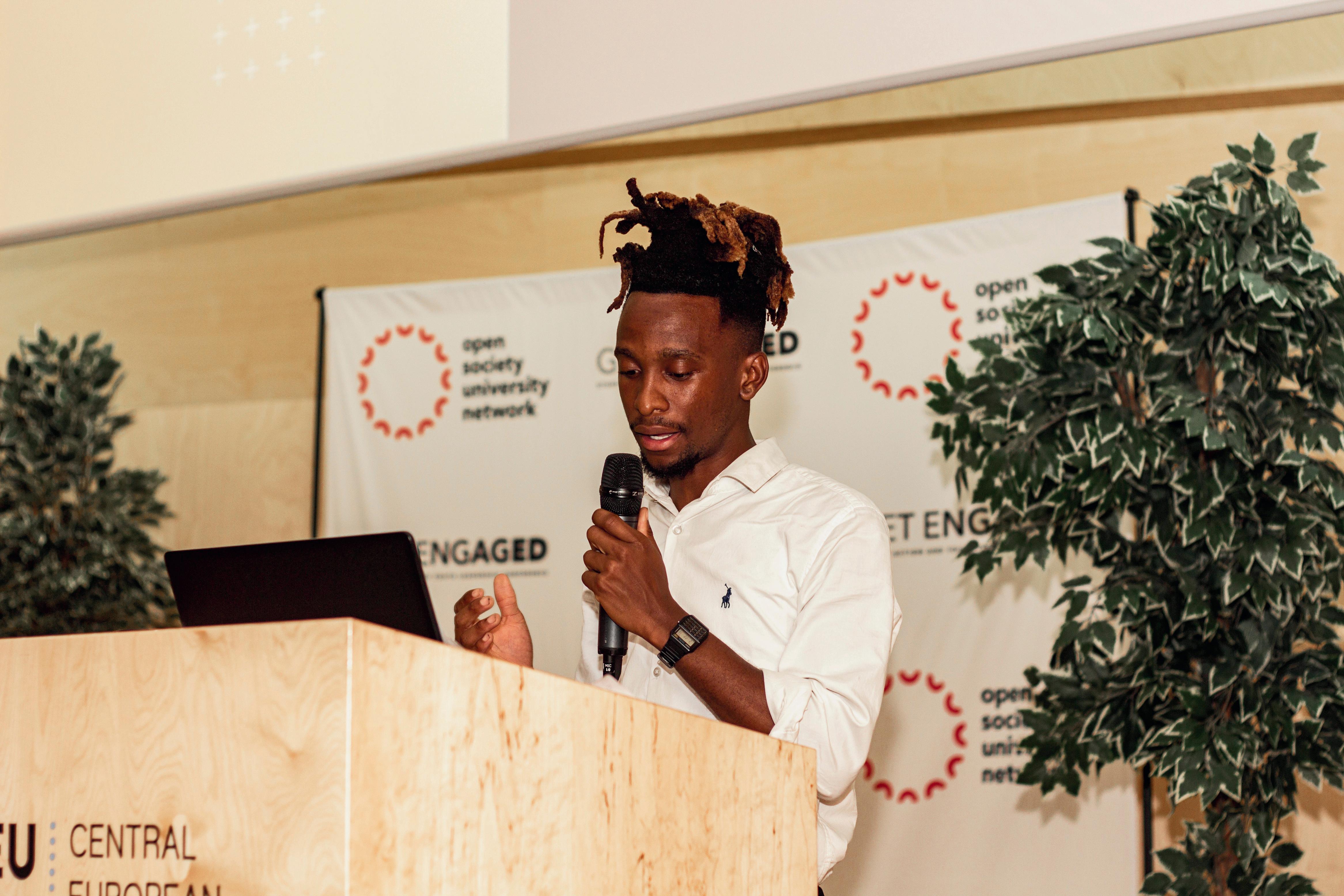
42
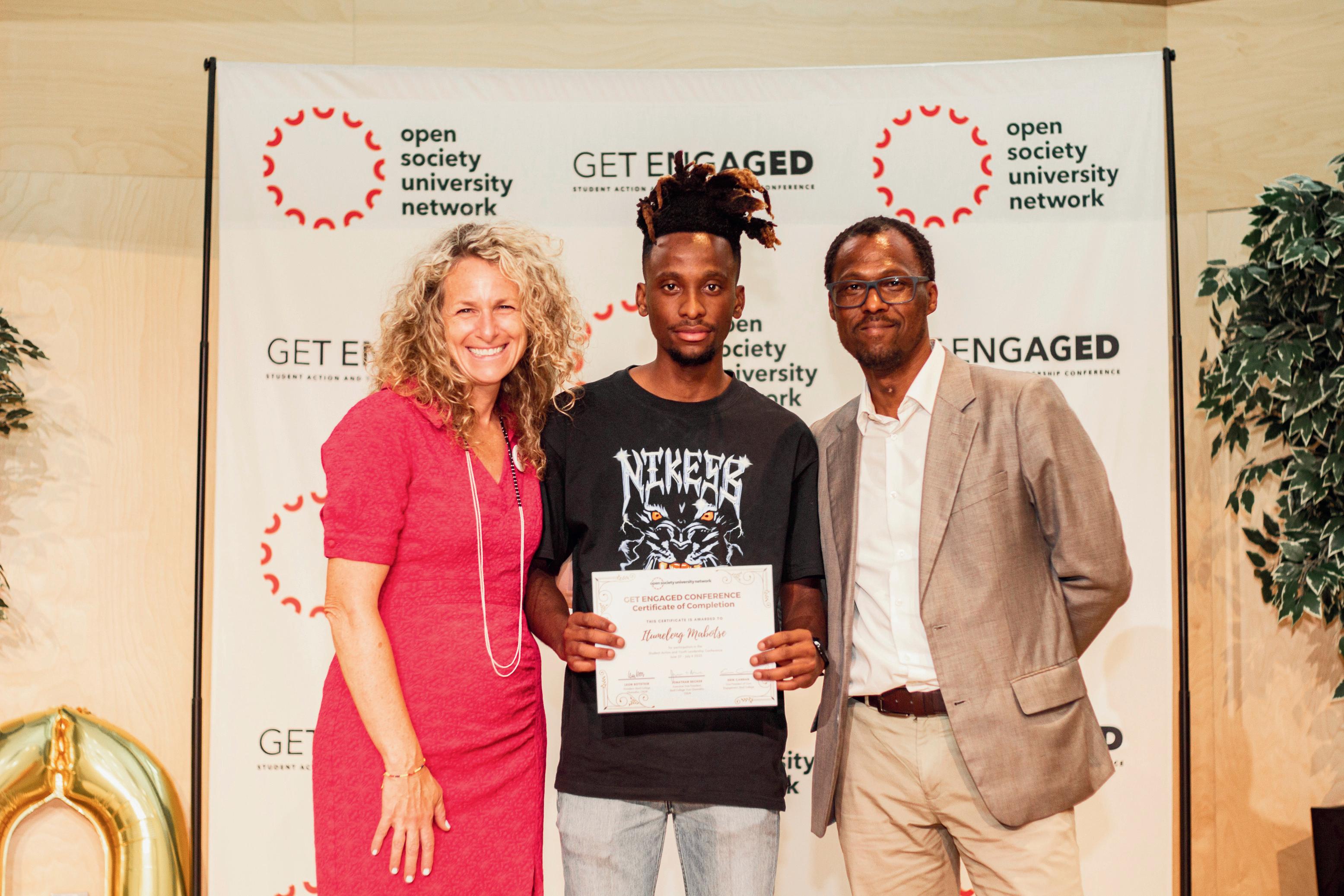
that required teamwork to solve problems. The conference environment was premised on multitopic global design in which every culture and people coexisted. One night, we had a controversial political discussion that made the atmosphere tense. To remedy this intensity, Bacher Chhadeh from the American University of Beirut in Lebanon, spoke about the importance of having different perspectives, putting yourself in the position of the person next to you, and viewing the world through the lens of others, even in difficult circumstances. Furthermore, during the conference, we had people from all over the world who told their stories through their projects and their different ways of addressing issues despite hardships. I remember my friend Wai Moe, a student at Parami University in Myanmar, who displayed great resilience, tenacity, and bravery for continuing to address social issues through his “Media Club” while his country was under military occupation. The conference also presented us with an opportunity to engage in activities aimed at developing leadership skills and collaboratively coming up with solutions to local and global issues. In this sense, global citizenship was promoted as a conscious leadership of the self, one's immediate environment, and concern for the global community and its masses.

All the learning and interacting with each other during the conference reflected “Ubuntu,” which means humanity to others. Everyone treated each other as humans worthy of respect and dignity, irrespective of gender, sex, race, age, religion, culture, language, or socio-economic background. The spirit of global citizenship was used to make participants aware that we live in a global community rather than in isolation. It was also used to shift participants' perspectives from a monotopic, ethnocentric and monocultural monologue and lens to having an imagination and view that fostered a multilogue and diverse approaches and perspectives on global design and addressing issues in general. The conference changed my outlook on life and social problems.
Before the Get Engaged Conference, I was like an incomplete puzzle; however, the lessons I learned from this conference and the student leaders from around the world served as a guiding force in shaping my life. Different student leaders from different parts of the world served as puzzle pieces that eventually came together, helping me finish solving the puzzle board of myself.
43

IDEAS INCUBATOR AT THE
GET ENGAGED CONFERENCE
by Laura Sofía Arana Estrada - Universidad de los Andes
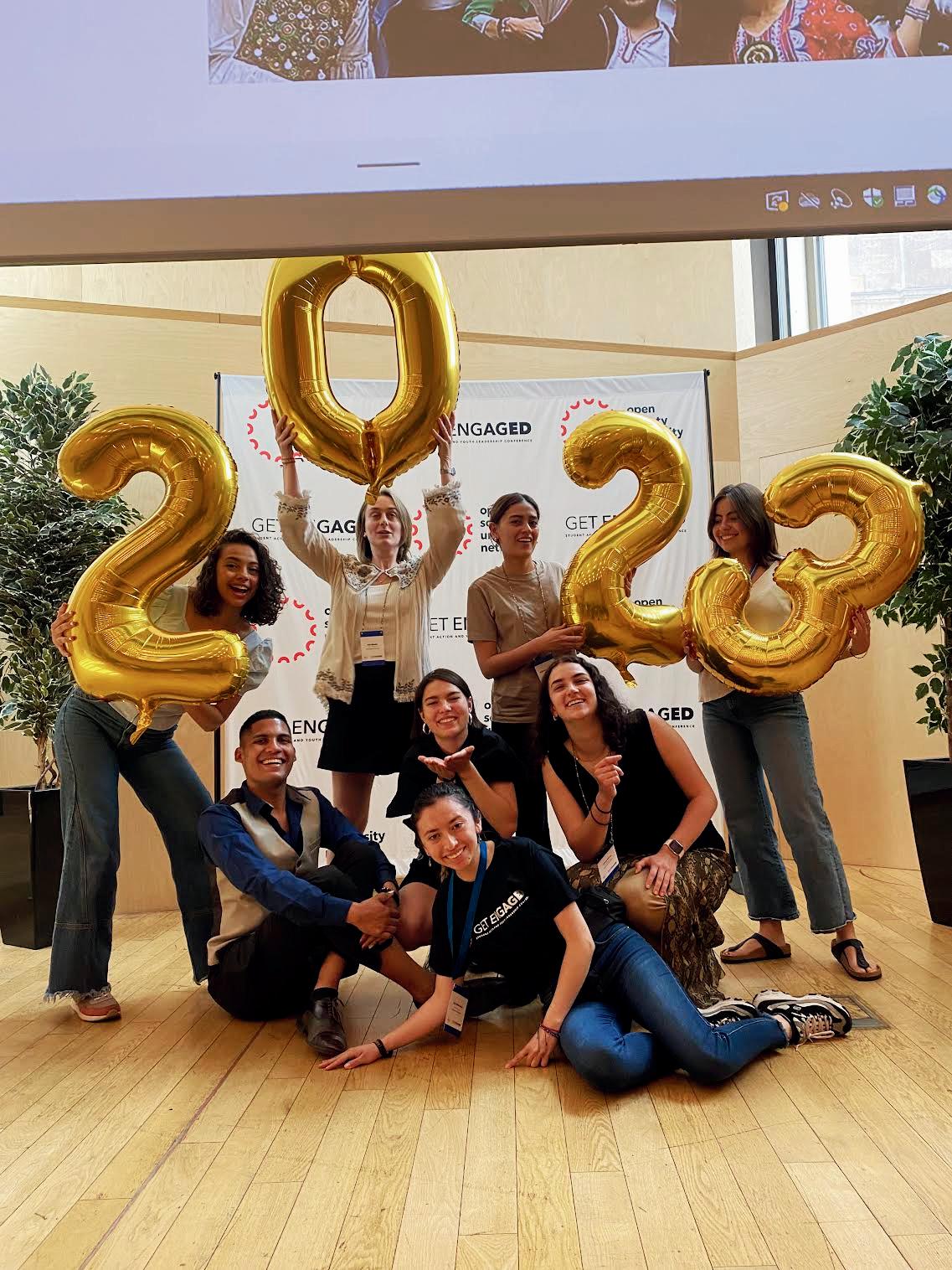
June 28-July 3, 2023, was one of the best weeks of the year to be a student leader in an OSUN institution. This year’s annual Get Engaged Conference was held at the Central European University’s (CEU) campus in Budapest, Hungary. This leadership and civic engagement gathering brings together student leaders from OSUN institutions worldwide to connect and present their initiatives. Additionally, during the week, participants can hone their community leadership skills and collaborate on solutions to local and global challenges. Notably, one of the opportunities to do this takes place in the Get Engaged Ideas Incubator during the first day and a half of the conference. In my case, this year, I was invited to attend the Get Engaged Conference as a conference fellow and Get Engaged Conference 2022 alumna, along with other Global Engagement Fellows from the
cohort. Among the roles I had during the conference was the chance to be a mentor for one of the groups in the Ideas Incubator.
Now, you might wonder, what exactly is the so-called Get Engaged Ideas Incubator (GEII)? GEII was the kick-off activity during the first day of the conference, where participants were divided into regional teams and given the task for collectively identifying and discussing one of the most pressing problems in their region, and, in doing so, coming up with a solution. The prompt given to the students was: “What are the most pressing societal issues facing your respective regions today, and how are all of you uniquely positioned, as members of OSUN’s Global Network, to help solve them for the future? ”
As I leave the prompt here, this is my chance to ask you, reader, which issue would you have chosen? I invite you to think about how you might be uniquely positioned to contribute to solving it!
The resulting regional groups were two groups with students from Al-Quds Bard College (Palestine), American University of Central Asia (Kyrgyzstan), American University of Beirut (Lebanon), two groups with students from Uniandes (Colombia), University of the West Indies (Jamaica), Tuskegee University, Bard College and New College of Florida (United States), one group with students from University of the Witwatersrand (South Africa) and Ashesi University (Ghana), one group with students from Parami University (Myanmar), BRAC University (Bangladesh), and American University of Bulgaria (Bulgaria), and one group with students from European Humanities University (Lithuania), Central European University (Hungary/Austria) and American University of Bulgaria (Bulgaria).
44
The groups worked collaboratively during the first day of the conference, and on the second day, they presented their proposals in 5-to 6-minute pitches to a jury of staff members and the rest of the participants and staff of the Get Engaged Conference. The presentations were a space where the Get Engaged community got the chance to evidence the students' hard work and collaboration during the first day, observe how different regions experience different issues, and come up with creative solutions to the varied circumstances. The proposed interventions, programs, and initiatives aimed to tackle issues ranging from inequality in the quality of education, protection of democratic practices and freedom, and aid for mental health and victims of conflict, to inclusion, diversity, and youth protection from forced marriages.
From my experience participating as a team member to mentoring a group in the GE Ideas Incubator, I have reaffirmed the value of an activity like this one to start the Get Engaged Conference. The activity is a unique opportunity for teamwork, especially for students to collaborate with fellow leaders they have never worked with or known. In my case, I was honored to be able to mentor a team and guide them through the process as they came up with a solution-based approach and discussed it together. Finally, this year’s Ideas Incubator was a bit different from last year’s, so it is also valuable to analyze the best format for dividing the Get Engaged participants for the activity and create challenges for young leaders who want to be agents of change.
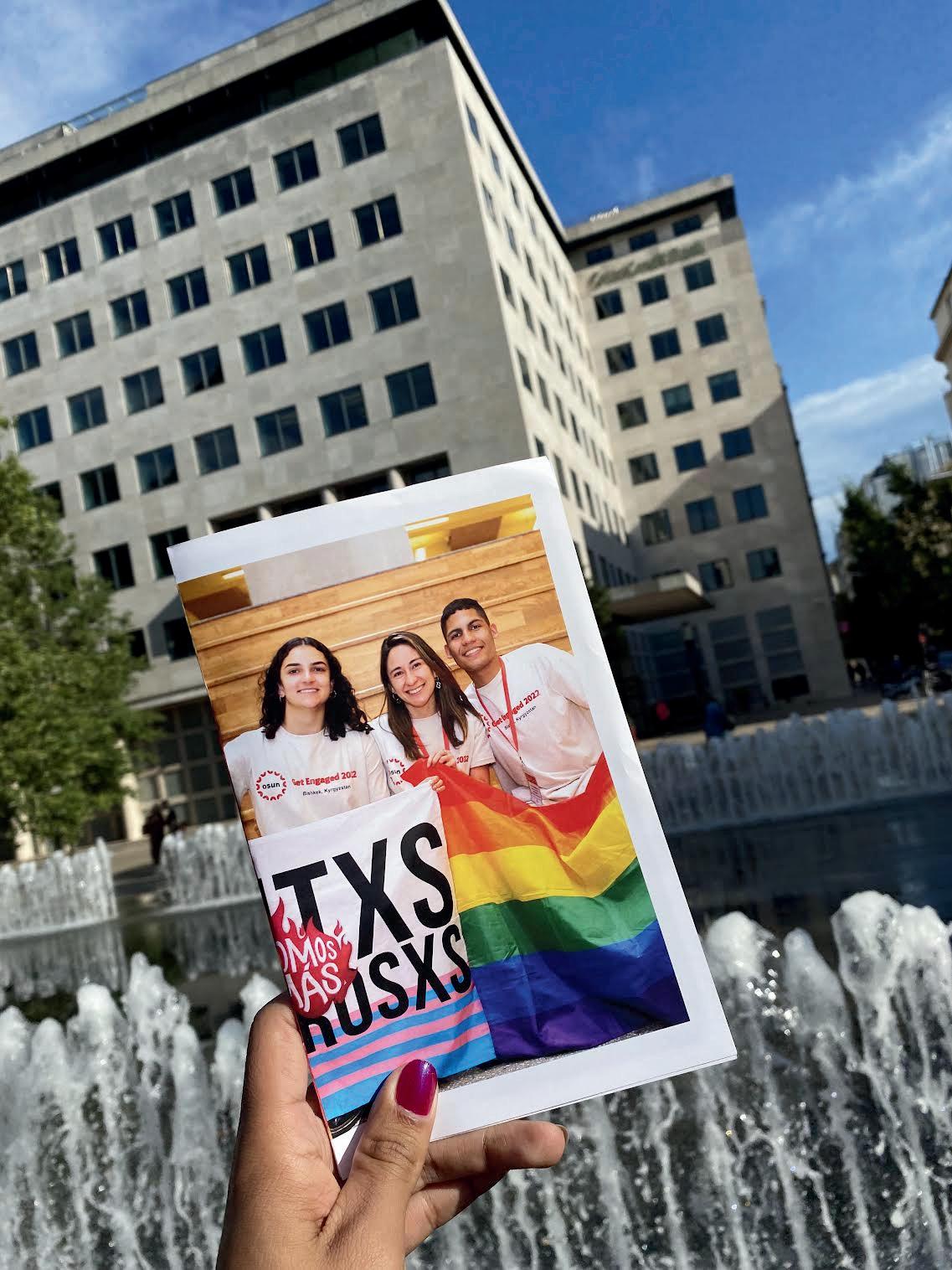

45
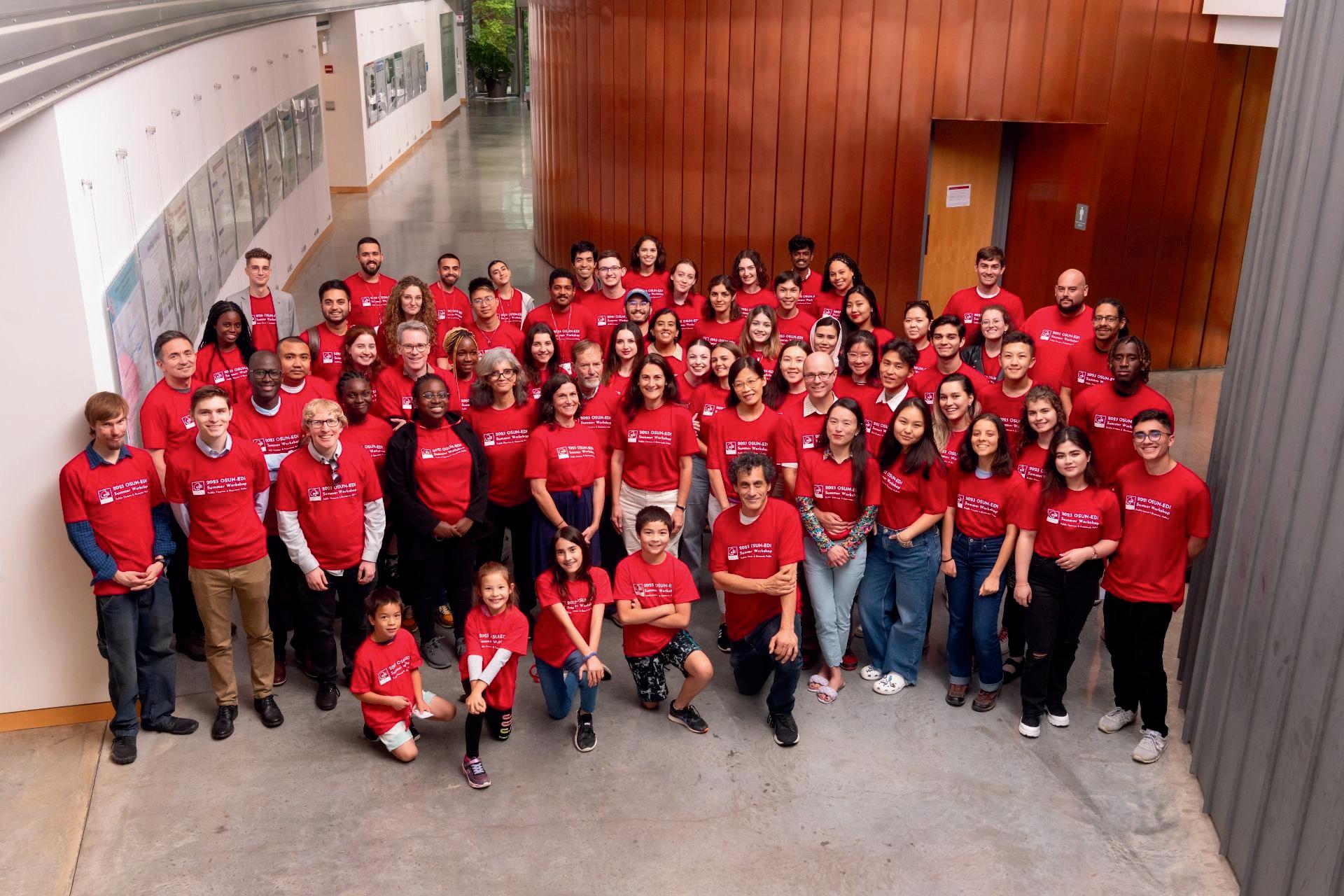
STUDENT RESEARCH AT THE ECONOMIC DEMOCRACY INITIATIVE
by Emilia Cooper - Bard College
In the dark, abandoned-looking attic of the Levy Economics Institute at Blithewood Manor, a small, sunlit office with researchers sitting on dilapidated chairs houses the Economic Democracy Initiative (EDI) team. EDI is an OSUN research program focused on providing economic security through public policy. The issues that EDI focuses on include inequality, unemployment, and poverty. A central aspect of economic policy to provide financial security and justice is creating full employment and paying a living wage.
As a student of economics at Bard, I have identified the avenue through which I want to address inequity and discrimination. Material deprivation and economic inequality are the root of many social injustice issues. People cannot even access the necessities they need to address social and political issues. I believe that the essential change that needs to occur in our economic system is eradicating unemployment. Full employment would provide a means of sustenance for all people and create the productivity necessary for achieving

environmental and social justice. This sense of purpose motivates and inspires me for my work at EDI.
Unemployment has detrimental effects on households and the population on a macroeconomic level. Unemployment harms working people's health and wellbeing and even leads to higher mortality rates due to suicide and poor mental and physical health. The health of an unemployed person’s family is also impacted by joblessness; research shows that unemployment is related to malnutrition, stunted growth, and poor health for children. Unemployment erodes social infrastructure and communities, is positively correlated with increased crime rates, and exacerbates cycles of poverty.
Unemployment reproduces itself, spreads virally across the country, and exacerbates socioeconomic inequality. GDP, economic growth, and output all suffer due to high unemployment.
46 50
46
On the other hand, the Job Guarantee is where the government eliminates unemployment by meeting the excess demand for jobs with countercyclical job creation. During the Great Depression, the New Deal created public works and employment programs that provided financial security, while the economy failed to provide income and employment. This model is a great policy solution to unemployment. The Job Guarantee is a contemporary policy proposal with influences from the New Deal. The climate crisis and many other social injustices will only continue to deepen food and housing insecurity. The Green New Deal is a version of the Job Guarantee that will create green jobs and a sustainable, equitable future for everyone. The social capital, assets, and infrastructure that could be created through the Job Guarantee would have positive impacts beyond meeting the immediate monetary needs of communities. This will simultaneously promote economic growth while freeing people from the poverty traps they are perpetually stuck in.
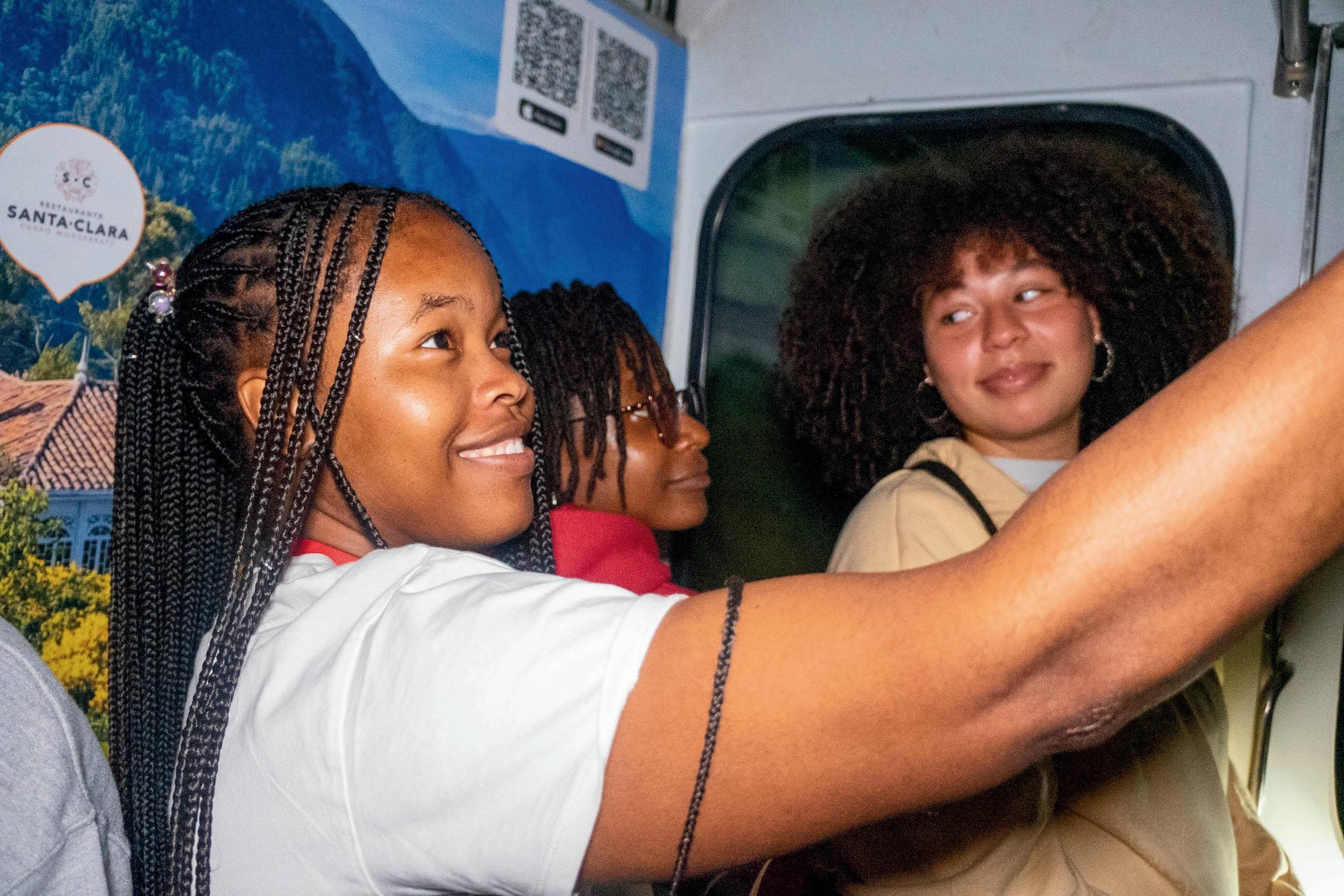
There are current examples of Job Guarantees around the world. There are national public employment programs in India and South Africa, and local experimental public employment programs in cities and communities worldwide. Part of my job as a student researcher is to gather and synthesize information about these programs to educate stakeholders in the political sector and intellectuals in academia.
The OSUN-EDI Summer Workshop: Public Finance and Economic Policy is a summer workshop that EDI hosts annually for international students. This summer, I was privileged to work as staff at this workshop. It was a tremendous success; students from five continents came together at the Bard College Annandale campus to learn about economic justice and how to provide financial security for all people. It is a challenge to reconcile the needs and interests of stakeholders from entirely different backgrounds. Watching the students tackle the intersections of equity and social justice with capitalism and economic growth was admirable. I was inspired by the thoughtfulness and perseverance used by the students to get concrete answers to these critical policy questions.

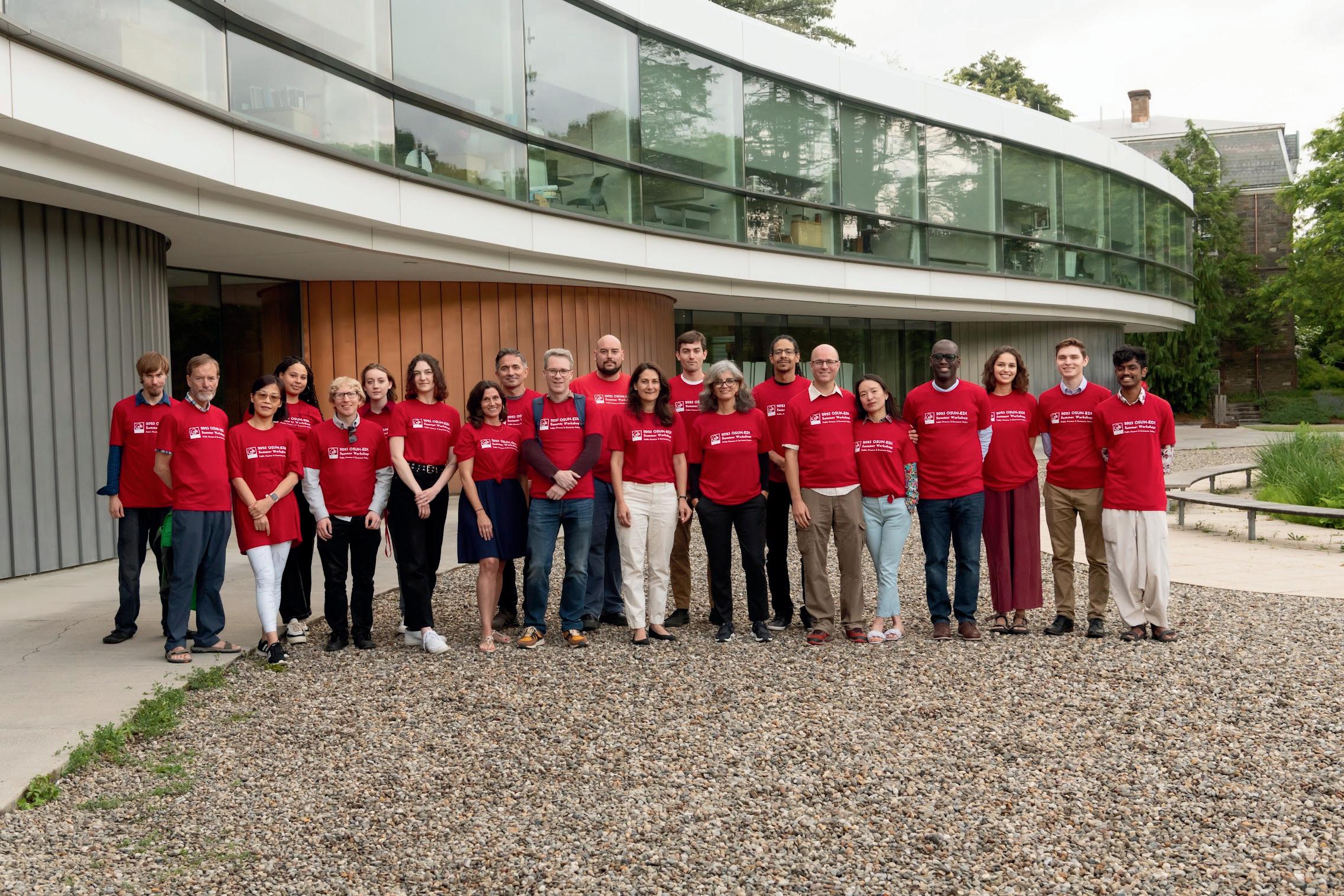
47
BECOMING A GLOBAL ENGAGEMENT FELLOW
A JOURNEY FROM AFGHANISTAN TO THE WORLD
by Ahmad Elham Wardak - American University of Afghanistan (AUAF)
In a world increasingly connected by technology and a shared quest for positive change, my journey as a Global Engagement Fellow (GEF) has been nothing short of transformative. As one of the first fellows from the American University of Afghanistan (AUAF), the Global Engagement Fellowship program has offered me the opportunity to connect with young leaders from around the world, engage in meaningful activities, and develop essential leadership skills
I first learned about the GEF program through the AUAF community. It was during a conversation with a fellow student who had participated in the program that I became interested. The idea of connecting with young leaders globally and working towards common goals resonated with me, prompting me to explore the application process further. My motivation to apply for the GEF program stemmed from a deep desire to broaden my horizons and learn from peers across the globe. I believed that this program would provide a unique platform to collaborate on projects that make a difference, address global challenges, and bring positive change to our communities. The online orientation was an eye-opening experience. It introduced me to the program's structure, expectations, and the incredible diversity of the GEF community. Learning about the different initiatives and projects implemented by past fellows left me feeling inspired and eager to contribute.
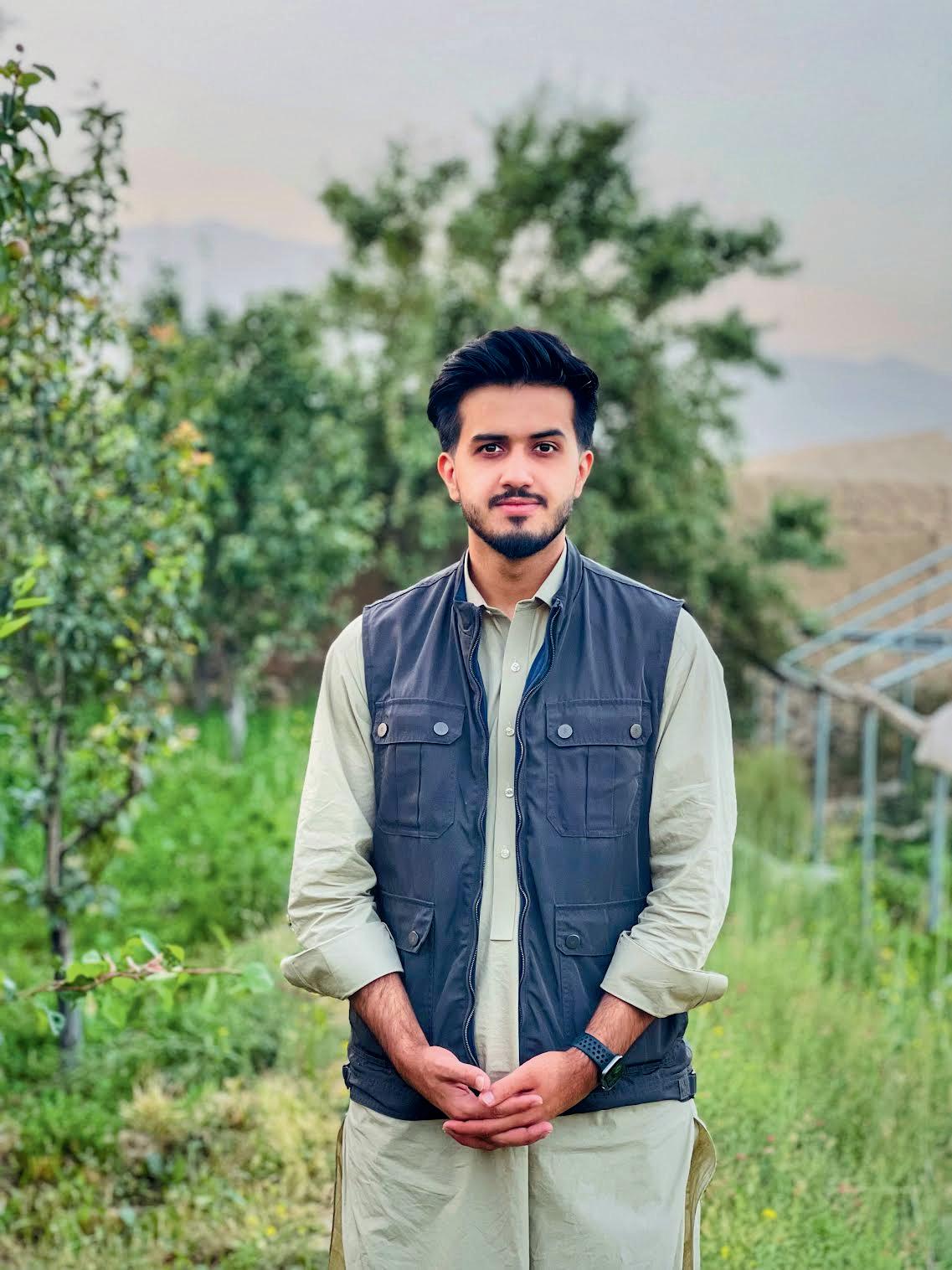

One of the most exciting aspects of the GEF program has been the opportunity to meet and connect with young leaders from diverse backgrounds and cultures. Engaging with fellow GEFs has broadened my perspective and allowed
me to appreciate the richness of global diversity. As a Global Engagement Fellow, my main activities revolve around promoting wellbeing and mental health. My colleague Qais and I write weekly wellbeing articles that provide insights and tips on improving mental health and overall wellbeing. These well-received articles have allowed us to contribute positively to our GEF community. The GEF program has been instrumental in honing my leadership skills. Collaborating with peers from different parts of the world has improved my communication, teamwork, and problem-solving abilities. It has also given me the confidence to take on leadership roles in various projects.
48
One of our notable achievements as GEFs has been the successful implementation of the weekly wellbeing articles. These articles have reached a global audience, providing support and guidance on mental health and wellbeing during challenging times. Additionally, I have had the privilege of working on various community projects alongside fellow GEFs, contributing to positive change in our respective regions.
To anyone considering applying for the GEF program, I would say this: take the leap. The GEF program offers a unique opportunity to connect with like-minded individuals, learn from diverse perspectives, and create meaningful change. It's a chance to be part of a global community that is committed to making the world a better place.
Becoming a Global Engagement Fellow has been an enriching journey that has expanded my horizons, sharpened my leadership skills, and allowed me to connect with inspiring young leaders worldwide. As I continue this journey, I am excited to see how the GEF program will further empower me to positively impact the world. If you're passionate about making a difference and connecting with young leaders globally, the GEF program is an opportunity you won't want to miss.
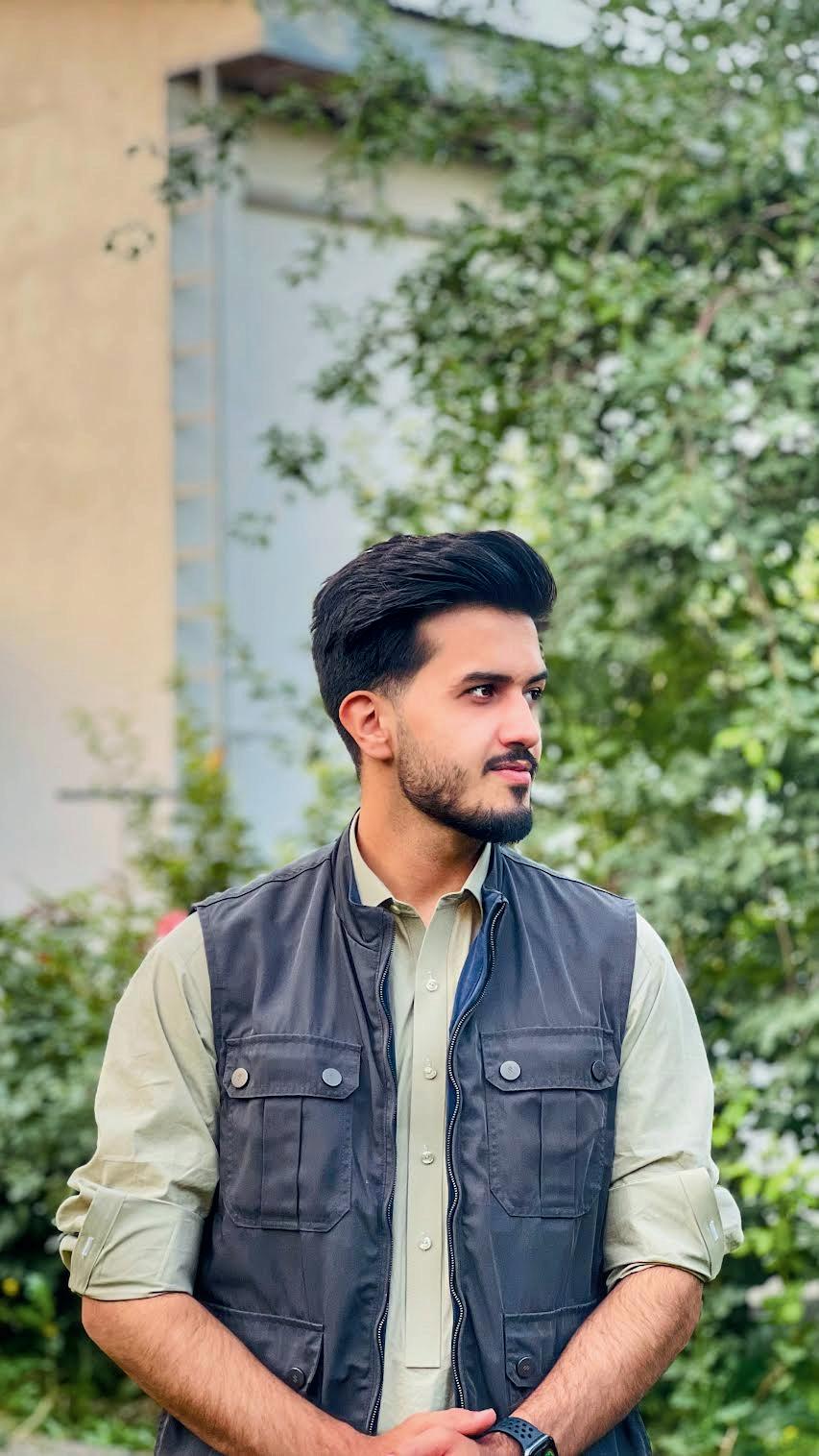

49
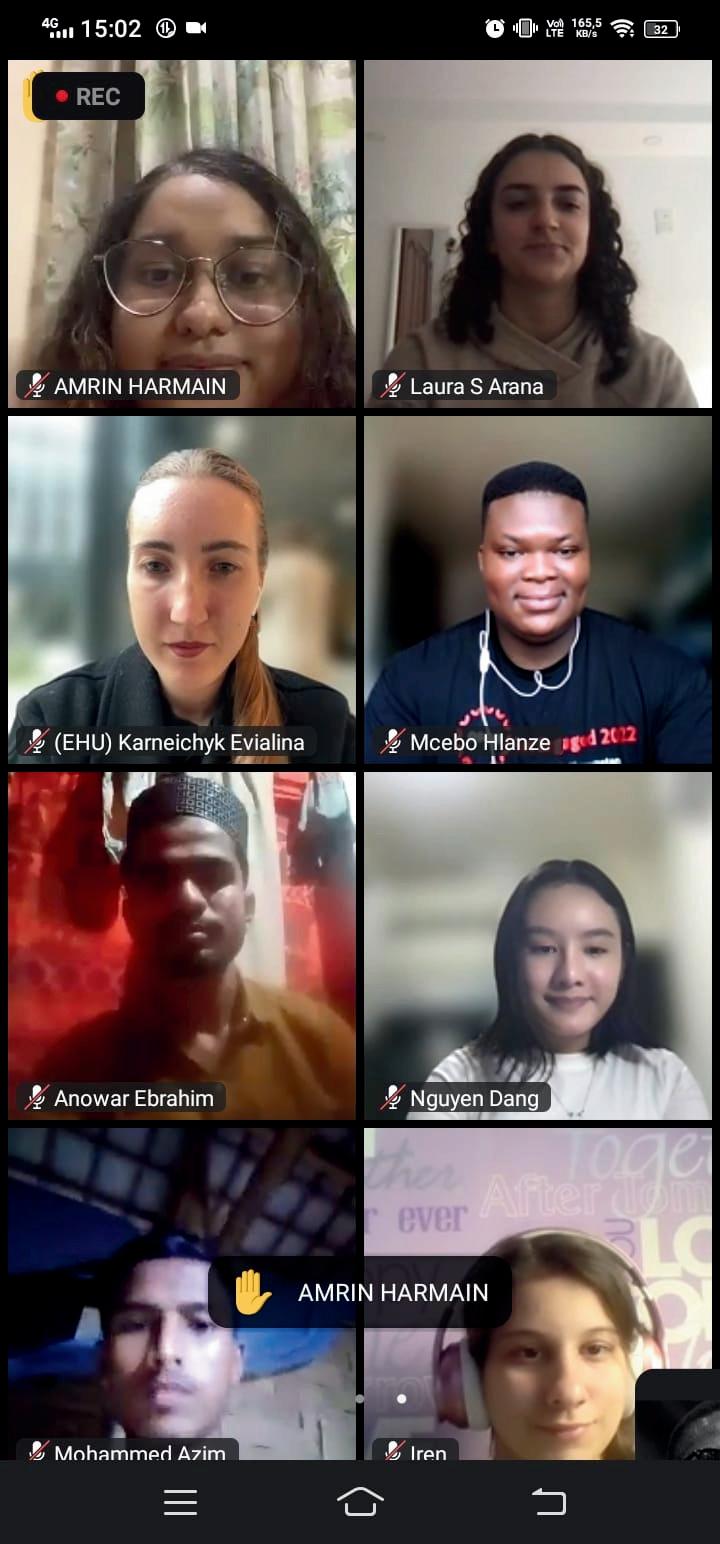
THE OSUN MONTHLY CIVIC ENGAGEMENT WORKSHOP PROJECT AGENTS OF CHANGES
by Nguyen Dang - Fulbright University Vietnam

In the world of promoting active citizen involvement, the OSUN Monthly Civic Engagement Workshop Project stands as a beacon of empowerment. Through dynamic workshops, this initiative fosters a culture of civic participation, equipping individuals across OSUN to lead transformative social impact projects. Guided by the voices of those who've participated, this essay explores the project's inception, evolution, and potential.
EMPOWERING CHANGEMAKERS THROUGH KNOWLEDGE: VOICES FROM THE WORKSHOP
"This workshop presents a valuable opportunity to enhance my knowledge and skills in creating meaningful initiatives... I am happy to participate actively, ask questions, and share my ideas to make the most of this workshop and pave the way for successful civic engagement projects in the future." - A.U, a student from BRAC University
When giving feedback for the workshop, one student named V.T. from the Haitian Education and Leadership Program (HELP) wrote that for her, the most valuable aspect of the workshop was “the manner I saw presenters were trying to engage participants and how they took time to answer all the questions.”
The Monthly Civic Engagement Workshops are among the many initiatives being run by Global Engagement Fellows, student leaders from across the globe chosen to promote civic engagement in their respective communities. On the last Sunday of every month, student leaders converge to exchange insights, learn from experiences, and share impactful strategies.
BEHIND THE SCENES OF WORKSHOP PREPARATION
The Monthly Workshop series tackles an array of pivotal topics, including civic engagement project design, leadership, communication, advocacy, and project sustainability. The diverse themes cater to the needs of a global audience, promoting cross-cultural learning and collaboration. These workshops impart knowledge and equip participants with practical skills to spearhead change.
The workshops have been a resounding success and have attracted large numbers globally thanks to meticulous planning, collaboration, and dedication. The Workshop Team, featuring visionaries like Nguyen Dang Thi Thao, Itumeleng Mabotse, Iren Dimitrova, and Ameed Faleh, shapes the workshop experience from curating content inspired by experiences, feedback, and themes to crafting comprehensive briefing packages;
50

they provide the session's compass. Meanwhile, the Facilitator Team, rotated by Global Engagement Fellows, breathes life into discussions, aligning expertise, brainstorming interactive elements, and guiding meaningful dialogues. In seamless collaboration, they craft a vibrant journey that enriches participants' civic engagement acumen, amplifying their potential to become impactful agents of change as A.H., a student from BRAC University, has commented, “I learnt how to work in a society collectively and collaboratively and to promote and provide with full rights and obligations… I am really pleased to have the workshop session additionally as I didn't know before how to build and manage a Civic Engagement project so than joining the workshop I learnt it very effectively and easily,” and promisingly claimed, “knowledge I learnt from the workshop is incredible for me to apply knowledge in my entire life.”
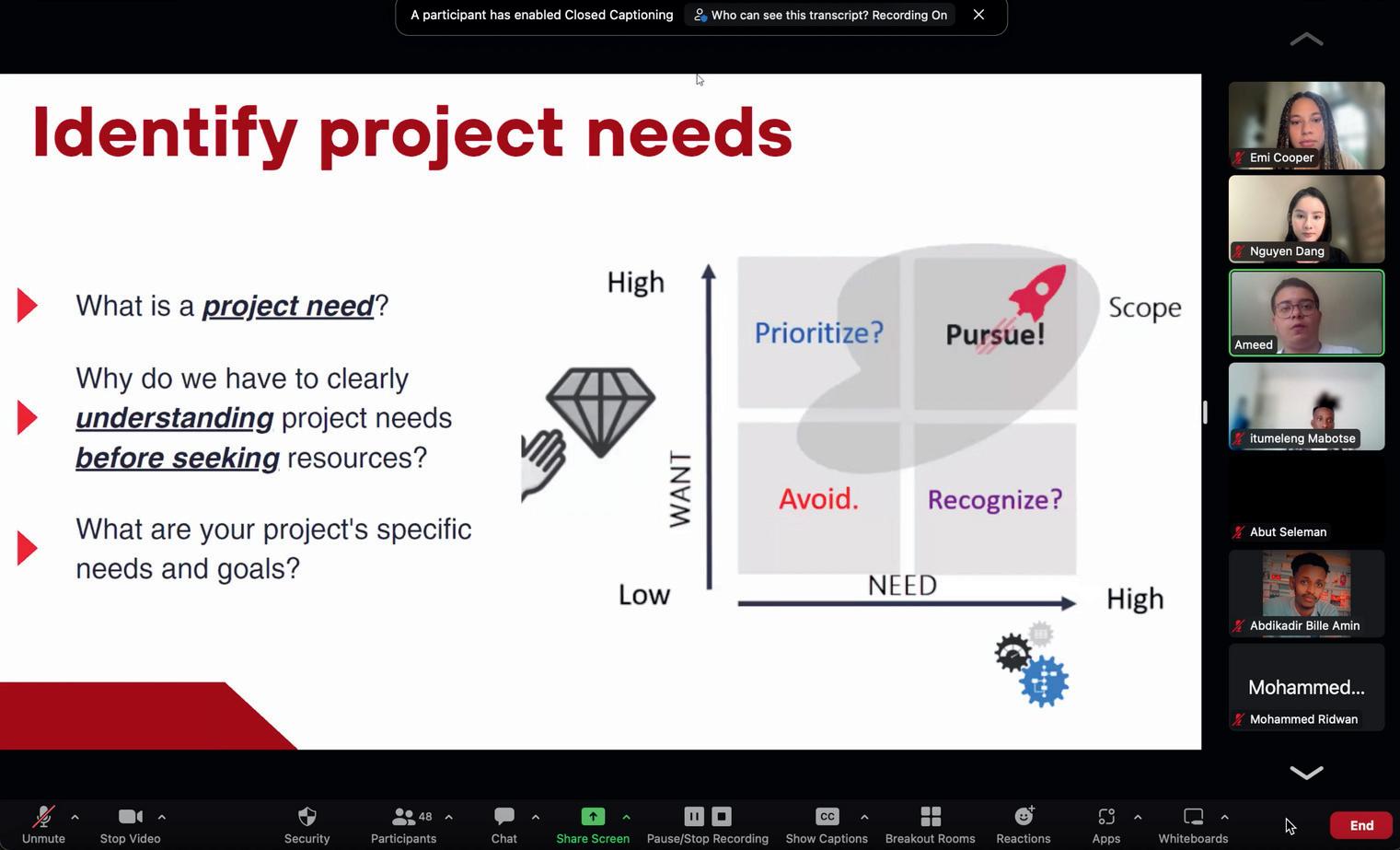
EMPOWERING TOMORROW: THE LEGACY OF MONTHLY WORKSHOPS
Participants' voices echo the project's profound impact. The Monthly Workshop cultivates leaders who think strategically, collaborate effectively, and inspire change within their communities. The project has successfully connected individuals from varied backgrounds, fostering international friendships and collaborations. Its ripple effect extends beyond workshops, driving positive transformation in societies.
OVERCOMING HURDLES: LESSONS IN ADAPTATION
The journey has not been without challenges. Time differences and attendance issues tested the project's adaptability. Targeted marketing
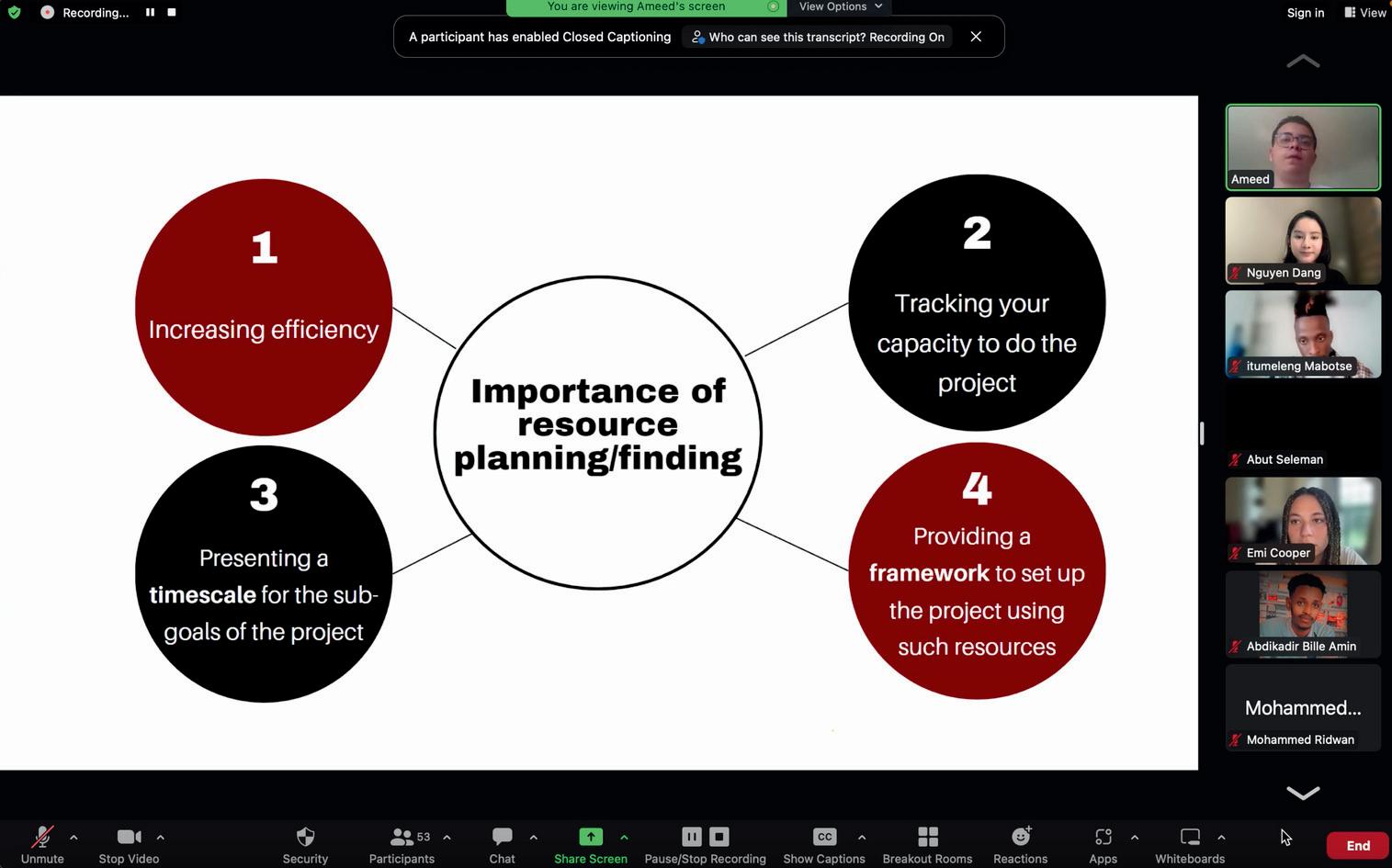
strategies have been pivotal in overcoming these hurdles. The lessons learned are invaluable, shaping the project's future iterations and innovations.
The future of the Monthly Civic Engagement Workshop Project shines bright. Plans include expansion to diverse communities and forging partnerships to ensure sustainability. Participant feedback fuels continuous improvement, nurturing an environment where ideas flourish and initiatives thrive. The Monthly Civic Engagement Workshop Project stands as a testament to the potential of engaged individuals to reshape societies. The call to action resounds as the world seeks transformative solutions. Join the movement!
The OSUN Monthly Civic Engagement Workshop Project embodies the essence of active citizenship. It bridges geographical divides, empowers young leaders, and fosters a global network of changemakers. This initiative transcends borders by nurturing knowledge, skills, and connections, illustrating the immense power of collective action. Through the monthly workshops, the journey of empowerment continues, leaving an indelible mark on societies worldwide.
51
EMPOWERING YOUTH AND TRANSFORMING COMMUNITIES
MY JOURNEY AS A GLOBAL ENGAGEMENT FELLOW
by Mcebo Vincent Hlanze - Ashesi University
Embarking on my journey as a Global Engagement Fellow has been nothing short of exhilarating from the moment I connected with Wisdom Kalu, a fellow at Ashesi University during my freshman year, through the university's Buddy Up system. His dedication to the Open Society University Network and his transformative project, Code4All, deeply impacted me. The goal of Code4All is to teach computer literacy and programming to students from rural areas of the Akwapim South District in Ghana. Listening to his story, I realized that being an active member of society held immense potential for personal growth and community development. This encounter propelled me toward the virtual Get Engaged Conference in 2021, my first taste of the OSUN experience and every step has shaped my perspective and ignited my passion for civic engagement.
IGNITING THE FLAME
The virtual Get Engaged Conference in 2021 was pivotal in my journey toward civic engagement. This transformative event kindled a burning desire to initiate my civic project. The conference's workshops, including "Recruiting Volunteers" and "Writing a Proposal," offered invaluable guidance and tangible support. I learned the art of inspiring and mobilizing volunteers and acquired the skills to craft compelling project proposals.
Moreover, the conference's networking sessions connected me with a diverse group of like-minded individuals, leading to partnerships crucial for my project's success. The Get Engaged Conference gave me the knowledge, skills, and network I needed to turn my passion for civic engagement into a tangible project that could positively impact the world.
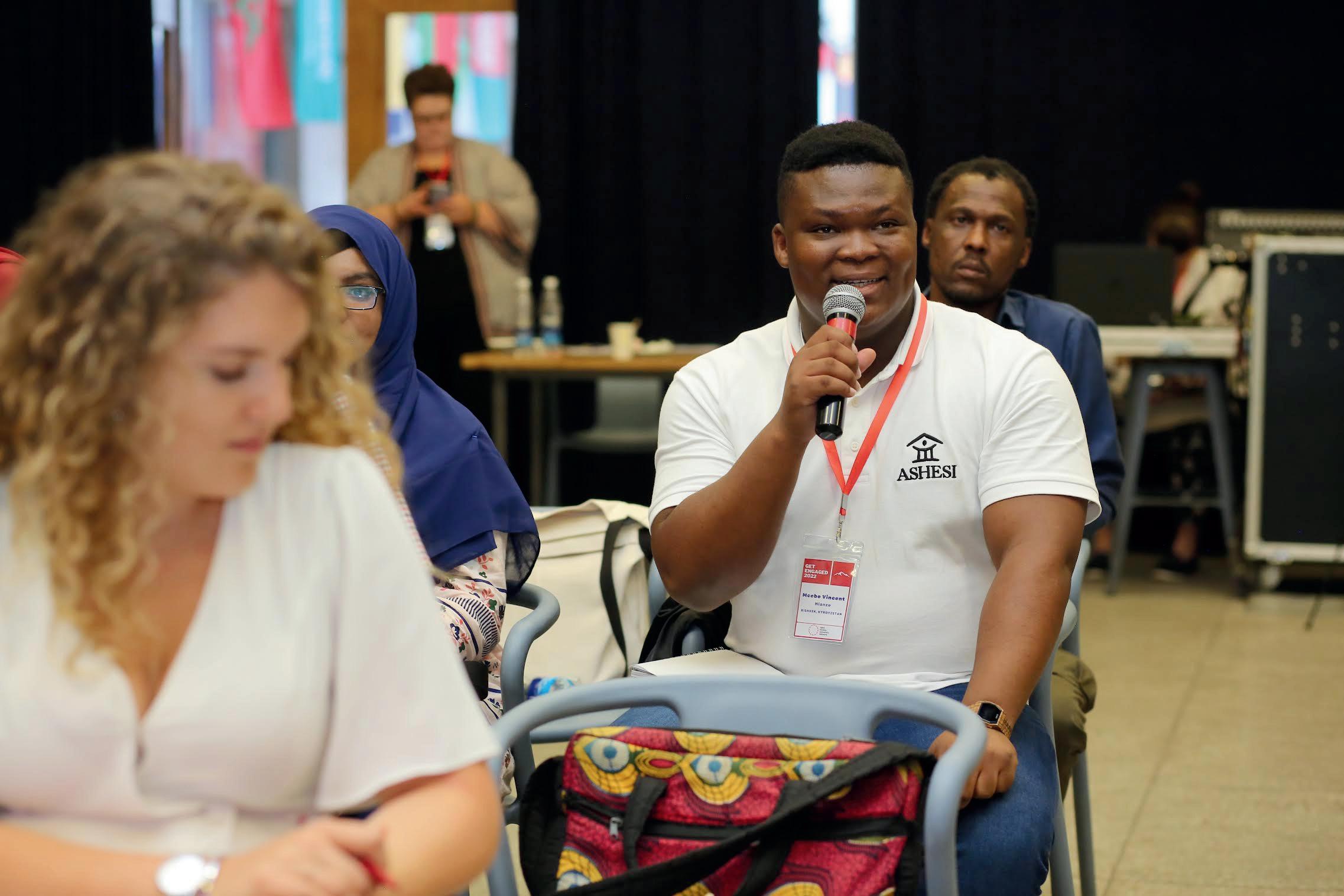
In the summer of 2022, I embarked on a lifechanging adventure to attend the Get Engaged Conference in Bishkek. This experience provided me with a global perspective on civic engagement. Immersed in a vibrant cultural exchange, I connected with fellow students from diverse backgrounds, exchanging ideas and perspectives that enriched my understanding of the transformative power of education.
DREAMS ARISE YOUTH ORGANIZATION
Fueled by my newfound passion, I founded Dreams Arise Youth Organization—an empowering organization that enables students in rural schools to access higher educational opportunities. We focused on combating teen pregnancy, drug misuse, and

52
drop-outs through academic mentoring. Witnessing the impact of this organization on my community only furthered my commitment to the OSUN cause my community only furthered my commitment to the OSUN cause.
UNVEILING THE WORLD OF OSUN
Driven by my experiences, I eagerly sought out more OSUN events to deepen my understanding and broaden my horizons. I was privileged to attend the Economic Democracy Initiative’s Public Finance and Economic Policy Workshop in New York. This transformative workshop introduced me to a new framework for comprehending money and taxation, reshaping my perspective on finance and economic policy.
Understanding the intricate relationship between government financing capacity and policy space became a cornerstone of my newfound knowledge. These insights expanded my horizons and empowered me to envision even greater possibilities for driving positive change within my community.
My involvement with OSUN didn't go unnoticed. Students from my university and beyond frequently reached out to me, eager to learn more about the incredible opportunities available within this expansive network. I vividly recall a specific instance when a fellow student from my university approached me, expressing their curiosity about OSUN and its offerings.
In response, I provided them with a comprehensive overview of the diverse opportunities and resources within the OSUN community. I shared my experiences and insights, explaining how OSUN had been instrumental in my personal and academic growth. Witnessing the enthusiasm and curiosity of this fellow student only further ignited my determination to contribute to this remarkable community, knowing that I could play a role in opening doors to transformative experiences for others.
BECOMING A GLOBAL ENGAGEMENT FELLOW
When I received the email announcing the opening of applications for the Global

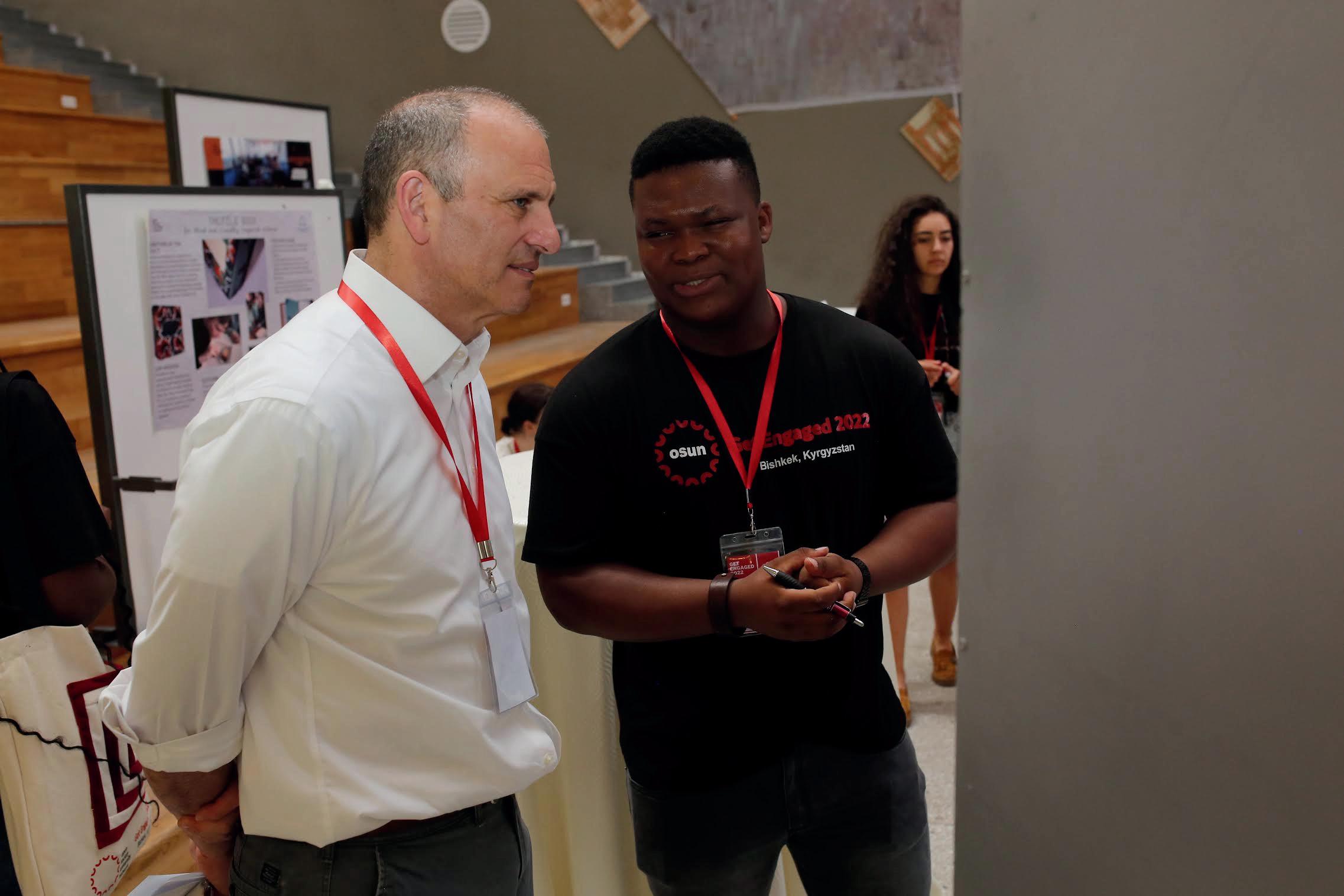
Engagement Fellow program, I knew I had to seize this opportunity. My desire to help students at my university and others in the network benefit from the OSUN opportunities was unwavering. Becoming a Global Engagement Fellow has allowed me to fully immerse myself in this network, fostering connections and collaborating on inspiring projects. Being a Global Engagement Fellow has been a whirlwind of excitement and fulfillment. Engaging with students from universities worldwide, I have witnessed the tremendous potential that lies within our youth.
My journey as a Global Engagement Fellow has been a testament to the power of education, collaboration, and youth empowerment. From the initial spark of inspiration to the creation of the Dreams Arise Youth Organization and the immersive experiences within OSUN, every step has reinforced my belief that we hold the power to transform our communities and create a brighter future. Together, we can ignite the flames of change, empower the next generation of leaders, and foster a world where everyone has access to opportunities and a voice that can be heard.
53
BREAKING BARRIERS TO LEARNING
by Mohammad Faraz Sadiq - Bard College Berlin
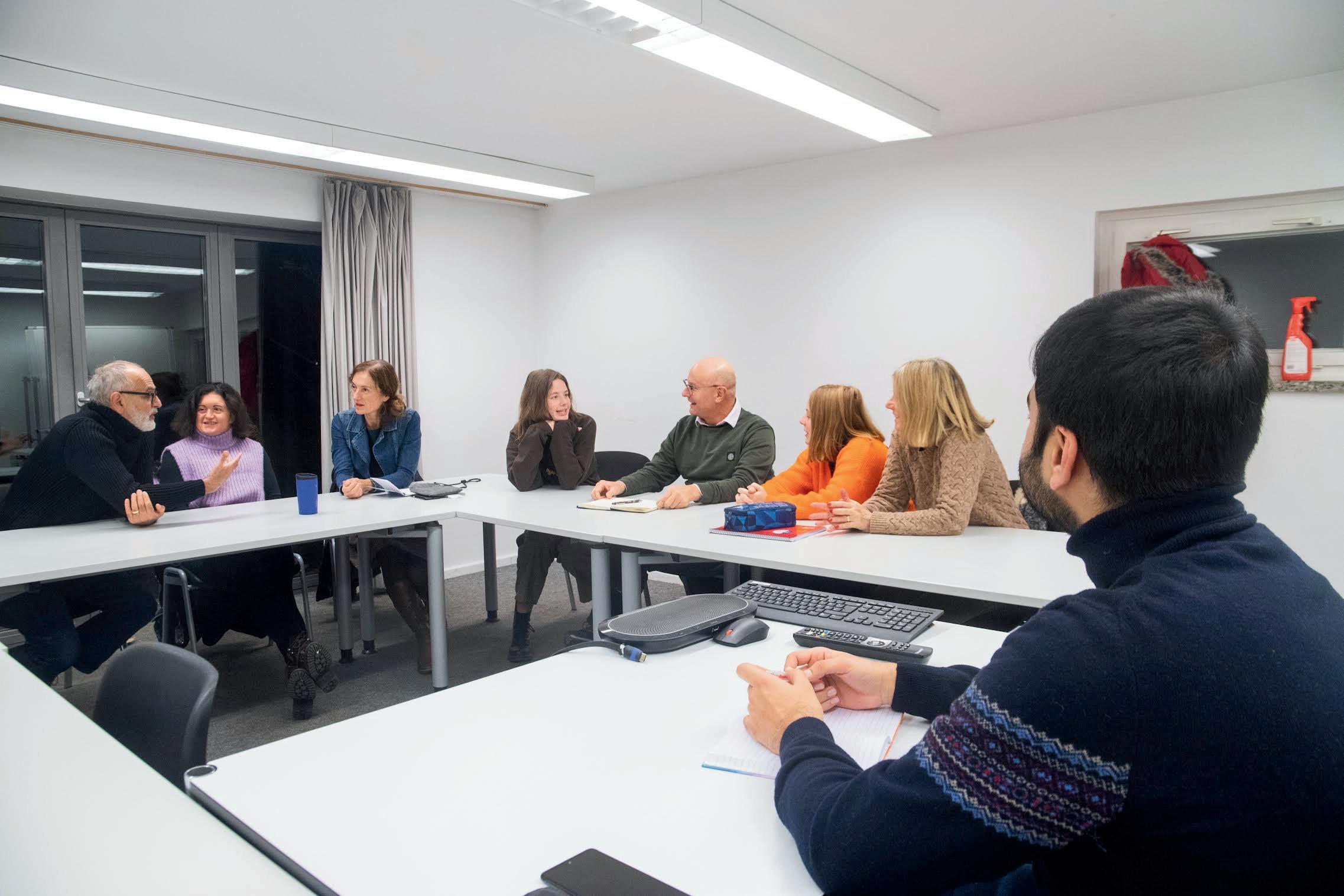
Open Classroom is a student-run Civic Engagement project at Bard College Berlin (BCB). Founded in the autumn of last year, the initiative aims to allow people to experience university-level courses taught at BCB in an informal setting open to everyone. It also seeks to engage students to share the knowledge gained in the courses they attend as a part of their studies. The project is now in its third consecutive semester and has involved dozens of students, faculty and staff members, and members of the university’s neighboring community in Pankow, Berlin. The Open Classroom plays an important role in promoting engagement with literature, art, and culture, in addition to offering avenues for community engagement in a shared intellectual pursuit and exploration of Liberal Arts as a way of learning.
ENHANCING INSTITUTIONAL COLLABORATION
The idea for this initiative came from the discussions that Muhammad Faraz Sadiq, a third-year student at BCB, had at the Get Engaged Conference 2022 with Central European University (CEU) representatives and his own institution. The project was envisioned as a continuation of the Socrates Project, a collaborative effort between BCB and CEU that provided university-level courses in different languages to people who did not have the

opportunity to get higher education, many of them from refugee and immigrant backgrounds. Open Classroom’s mission has been to build upon that legacy and help make education accessible to all in a more informal and community-based setting organized by student volunteers.
SPACE FOR ART AND LITERARY FREEDOM
Every week, students from BCB meet with the project participants from the local community in a 90-minute seminar-like session and discuss works of literature and art touching upon a great variety of themes. Courses that have been featured so far in Open Classroom include Renaissance Florence, Forms of Love, Migration, Space and Power. The first two iterations of the project were moderated by Muhammad Faraz Sadiq, Lara Habboub, and Safar Muhammadi, while Ina Constantin, a second-year BCB student, is currently leading the project. Renaissance Florence helped participants read a wide range of texts and engage with Renaissance art and philosophical, political, and social thought through multiple mediums, including painting, sculpture, and film. Forms of Love, on the other hand, took participants on a journey through medieval times, and they
54
read texts ranging from authors like Ibn Sina and Al-Ghazali from the vibrant Islamic civilization in the East to the gripping Arthurian romances and love songs of the troubadours in the West.
The project has consistently received an enthusiastic response from the university’s neighboring community, and participants see immense value in the initiative. According to Andy Haupert, one of the participants, “I liked the seminar-style format, with participants discussing what they found interesting in each week's reading (or film or artwork) and also discussing the questions you posed. Mixing in the film, lecture, and museum visit kept the course from becoming monotonous. I appreciated that the materials were provided to us for free.”
Commenting on the engaged discussions and the focus on a free exchange of ideas, Norbert Schnöde said, “I loved learning about works previously unknown to me or seeing the ones I knew in a new way. I especially remember fondly the moments when, in a discussion, I was convinced by other participants with good arguments that I was mistaken. What could be better than to realize that the point of view of an opponent is wiser than your own? I find this enriching.”
Open Classroom is symbolic of how small grassroots-level initiatives can help open up opportunities for learning and growth for members of our communities. It is also an example of how community engagement with literature and art is instrumental in developing strong bonds within communities and in expanding the role of university communities in making them true harbingers of positive change in their contexts.

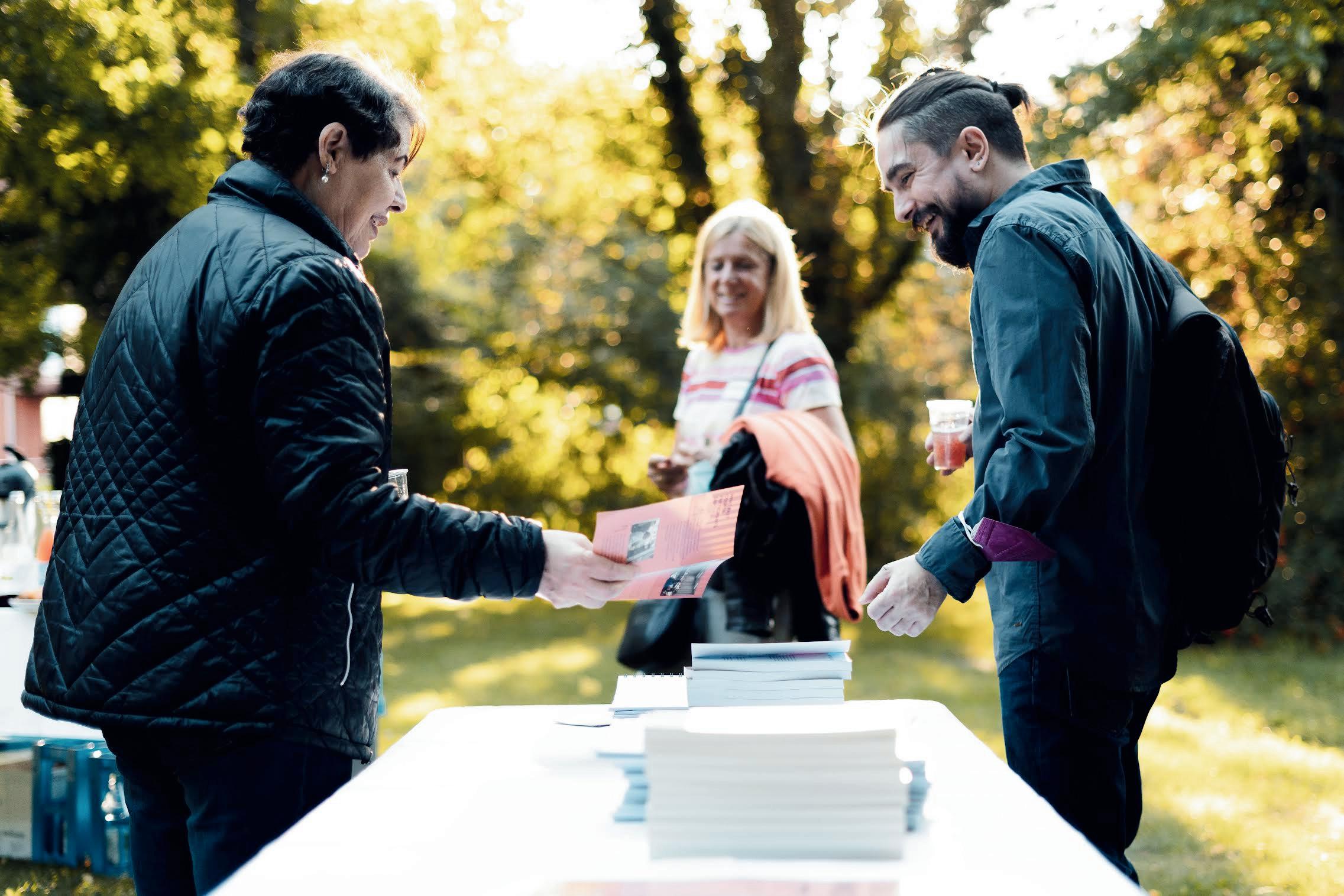
55
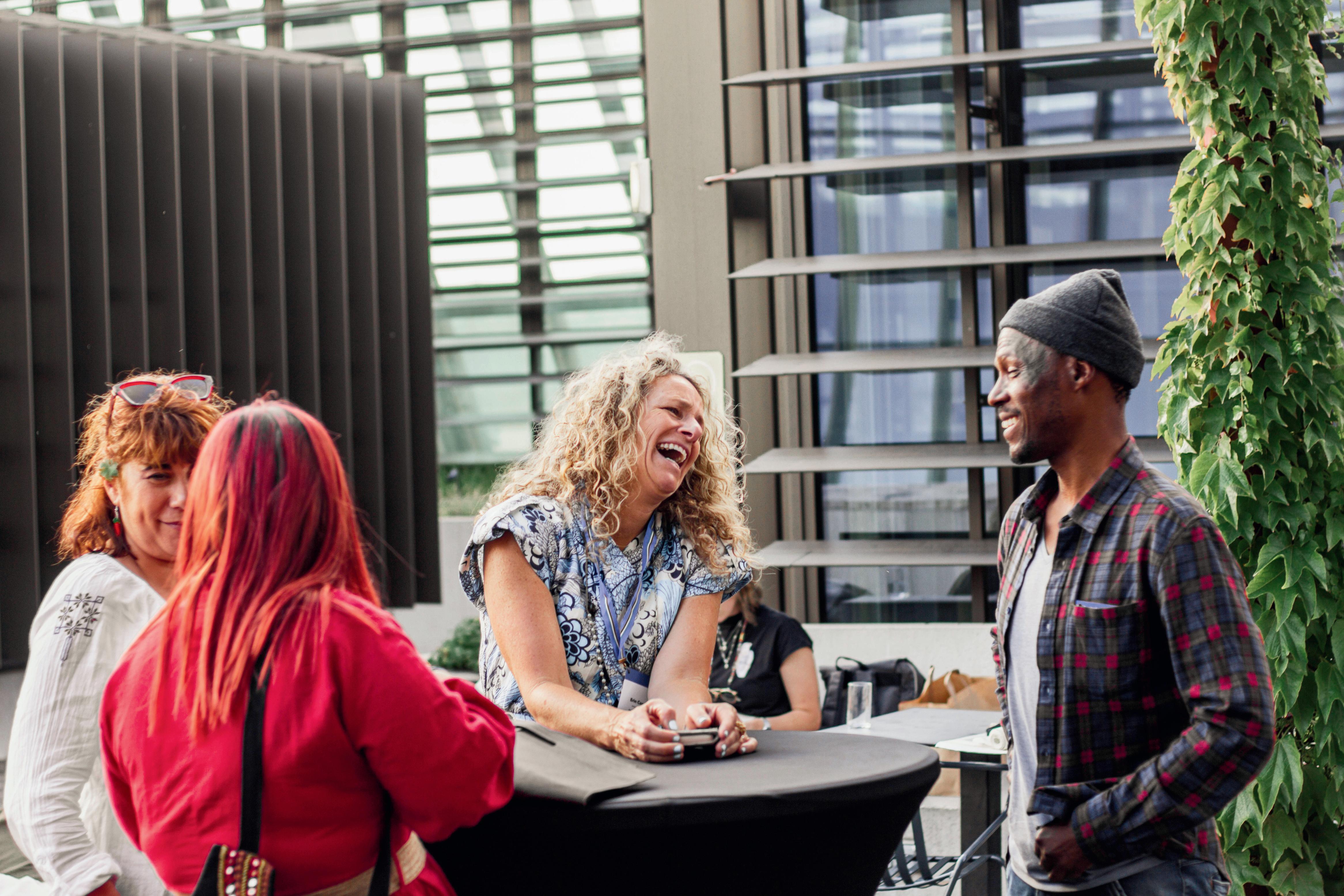
EXPERTOPINIONS

FLÓRA LÁSZLÓ
SHAPING CIVIC ENGAGEMENT AT CENTRAL EUROPEAN UNIVERSITY
by María Ruigómez Eraso - Central European University (CEU)
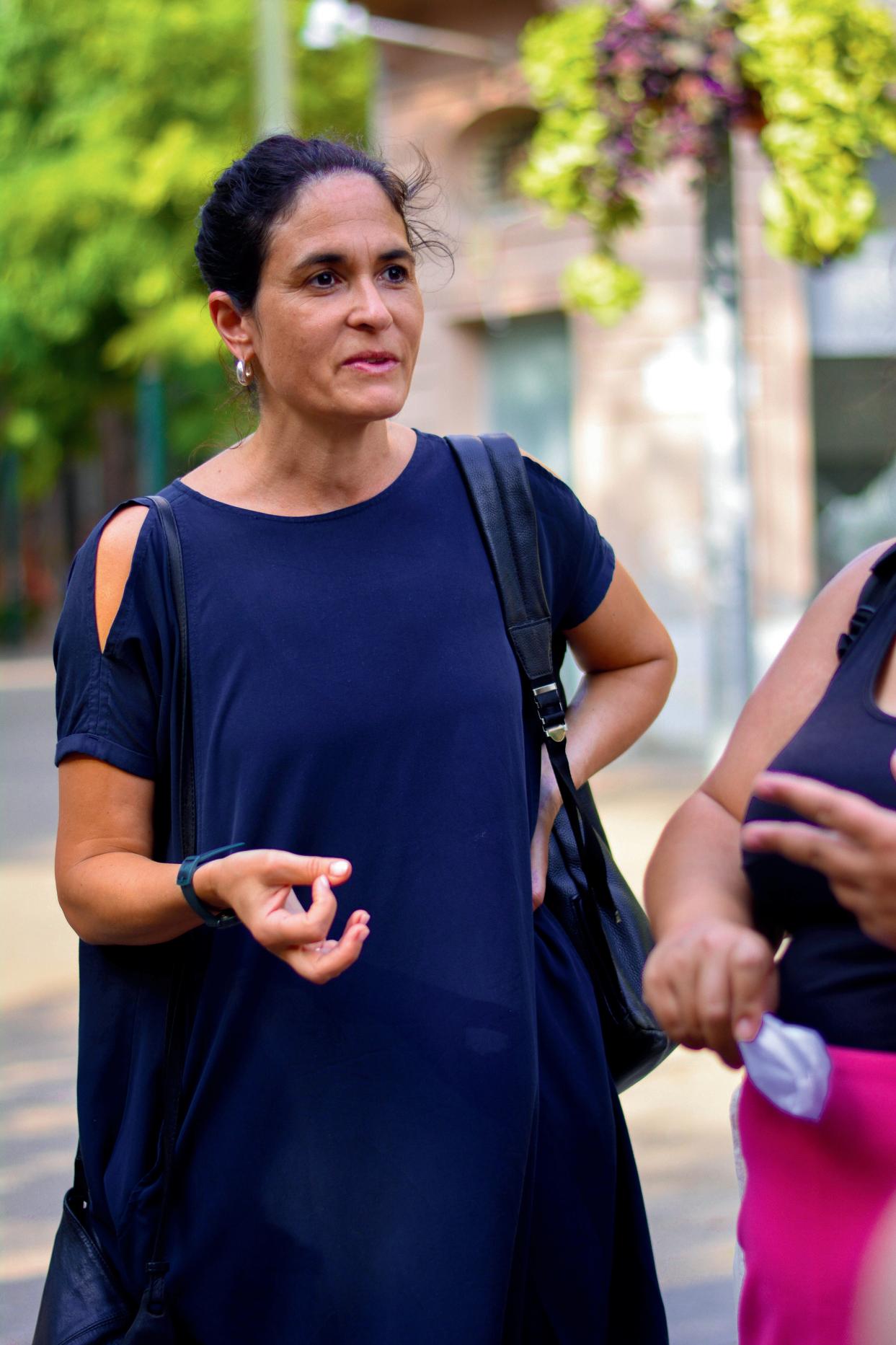
Flóra László is the former Director of the Community Engagement Office at Central European University, Vienna. She is responsible for the office's leadership, involving student leadership, civic engagement, arts and culture, and human rights activities. She joined CEU in 2015, as a Civic Engagement Officer and has shaped the university’s civic engagement activities.
THE BEGINNING
László’s passion for civic engagement flourished early and in manifold ways. In her late teens, she chose sociology as her field of undergraduate education. Later, she joined the University ELTE in Budapest, Hungary, to pursue a master’s degree in Sociology. Her studies profited from different fellowships at prestigious international universities, like Université Sorbonne Paris and the University of Stirling. Before her time at Central European University (CEU), she worked in the NGO sector for almost twenty years. She created and led the Uccu Roma Informal Education Foundation during these years.
László joined CEU at the end of 2015 when she was hired as the civic engagement officer. During the first year, she helped develop civic engagement at CEU and diverse strategies for existing research and academic activities. After that, she quickly became the head of the unit, and nowadays, she acts as its director.
CHALLENGES AND OPPORTUNITIES
Since her arrival, civic engagement at CEU has seen a very positive development. Through the Community Engagement Office, civic engagement has become more visible and embedded on all university levels. Civic engagement at CEU is a fundamental pillar of the university’s essence. Along with teaching and research excellence, civic engagement is one of the university's three missions.
“I think that, rather than being seen as independent missions, the three should overlap and support each other. All of them are on the same level,”she says.
57

A project she implemented that reflects the links between the three pillars is the Science Shop. This thriving project – created two years ago –engages citizens and civil society organizations in education and research-related collaborations by taking in their ideas and transforming them into course assignments, internships, thesis work, or research projects at the university.
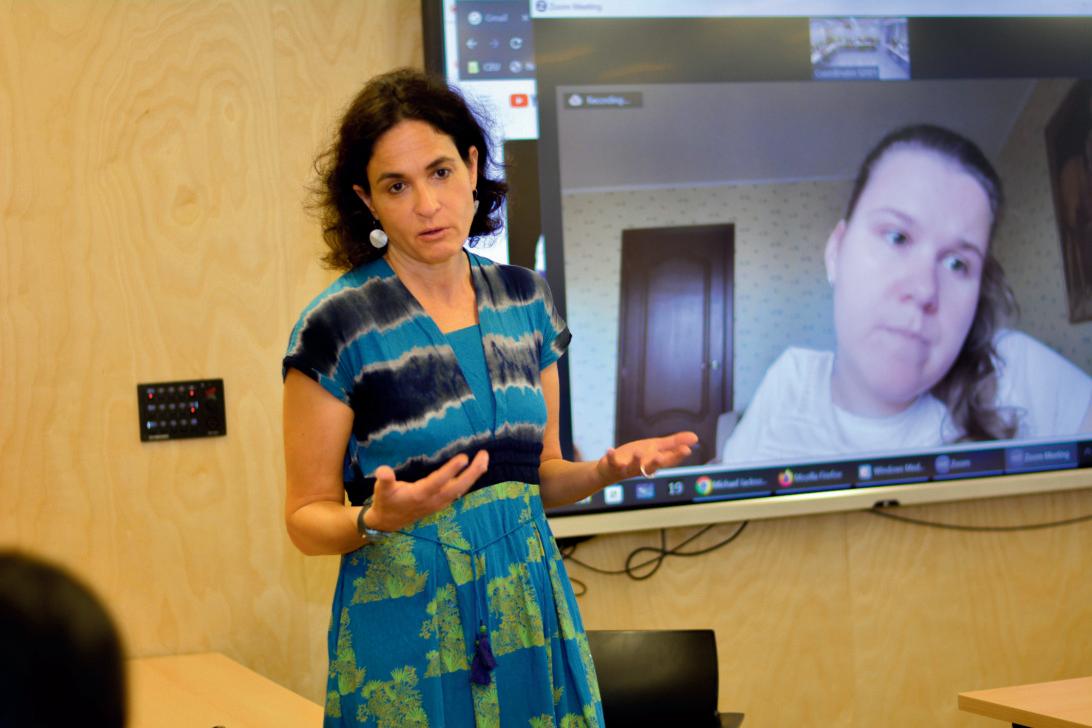
László has successfully managed the Community Engagement Office through many challenges. One significant challenge is the financial restrictions that originated through CEU’s campus move that have impacted the activities of the Community Engagement Office. Despite the importance of civic engagement at CEU, the Office has had to rely on external funding to conduct many activities. Most of the funding directed towards civic engagement came from OSUN. CEU’s Community Engagement Office could improve significantly thanks to OSUN's financial support. Through OSUN grants and microgrants, astounding opportunities, teaching workshops, and research support, the Office was able to fund and support a very extensive number of projects.
Another significant challenge has been the COVID-19 pandemic. Thanks to its very creative team, the Community Engagement Office quickly adapted to the new situation with online implementations. At this time, the Community Engagement Newsletter was created – a significant contribution that nowadays constitutes an essential means of information within the CEU community. Right after the pandemic, efforts to revitalize the in-person presence of social activities began. However, the world seemed suspended in a hybrid format
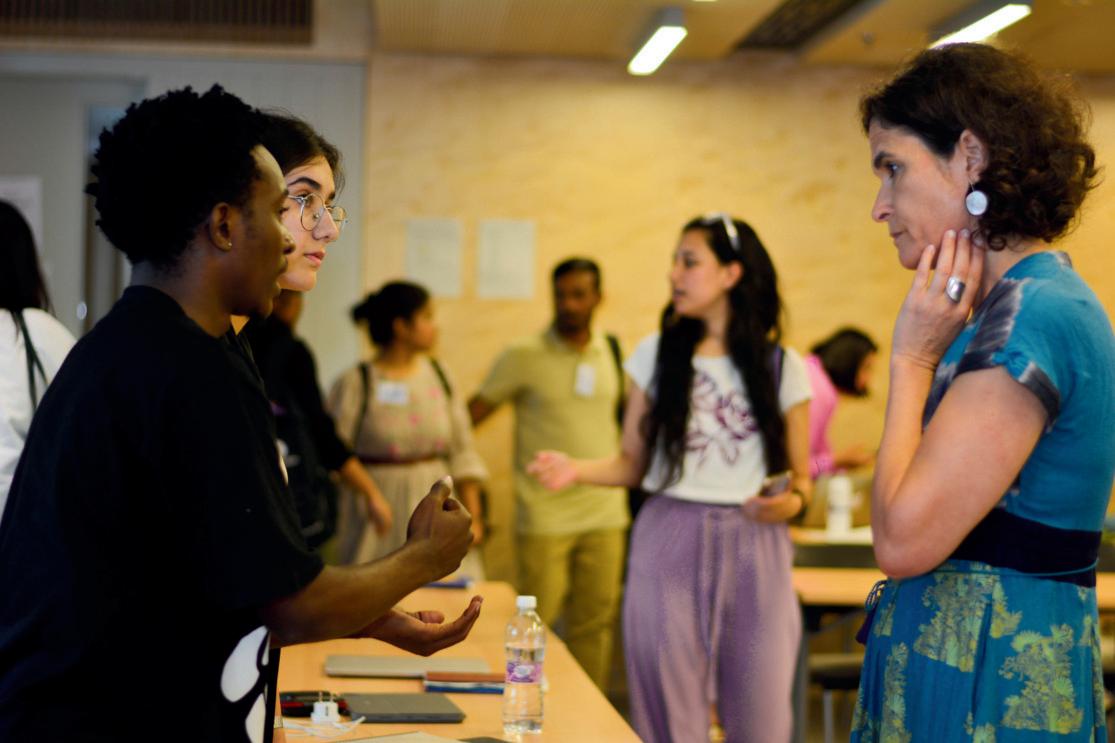
state. "Due to the main mission and reason of civic engagement, in-person participation is much better. However, people are overburdened with different possibilities, and sometimes, they take on too much simultaneously, maybe because they want to catch up with everything they have missed during the pandemic. It has become difficult to schedule people's capacities. Time management of individuals seems to have changed," notes László . This is why reactivating civic engagement activities in a post-pandemic scenario has proven to be a slow and gradual process.
Looking back, László is incredibly proud of her intense involvement in creating the Community Engagement Office. She fondly remembers the journey's beginnings, underlining that it was a very creative and unique process. Regarding specific programs, she highlights the Community Engagement Office's meaningful role in facilitating opportunities for diverse groups of people. The SOCRATES project and the Civic Engagement Fellowship are good examples of this. While the SOCRATES project has provided educational opportunities to socially disadvantaged people, the fellowship has given financial support and mentorship to civically engaged students to implement their ideas. However, these are just a few of the long list of impactful projects Flora has been involved in. Together with her team, she has contributed to making CEU a place in which civic engagement is not only an option but a reality that is lived and supported.
58
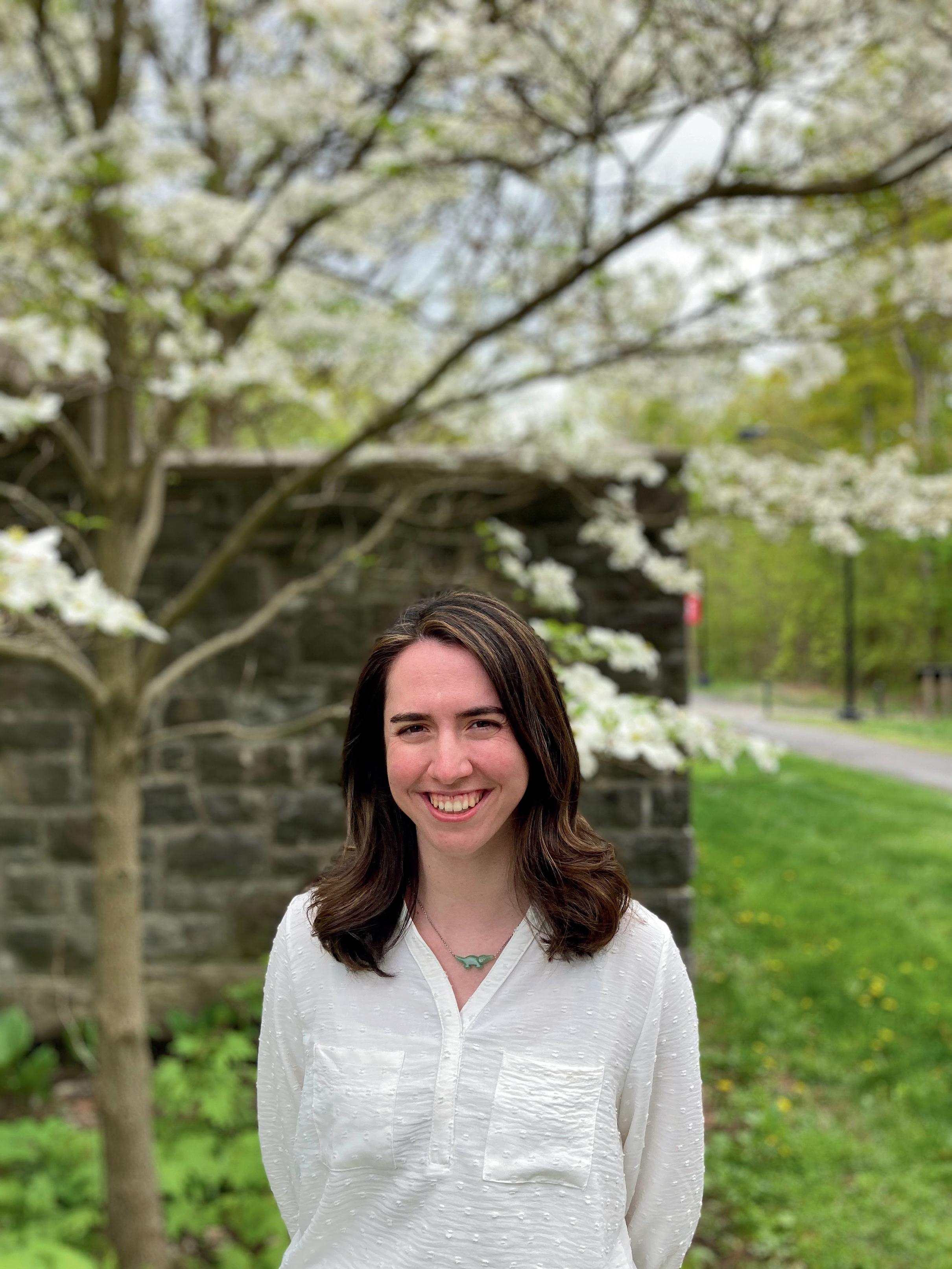
EMPOWERING LIVES THROUGH CIVIC ENGAGEMENT: A PATH TO TRANSFORMATION SARAH DEVEER
by Freda Agyeman - Ashesi University
Sarah deVeer, the Center for Civic Engagement Special Events Administrator & Outreach Coordinator at Bard College, embodies a profound commitment to positive change. Her journey into the realm of civic engagement took flight during her student years, evolving into a mission to empower students and catalyze transformation within communities. Her academic pursuits were amplified by her dedication, earning her the esteemed Posse Foundation Full Tuition Merit-Based Leadership Scholarship. This scholarship underscored her ability to excel academically while leading by example, a skill set she now brings to her current role.
events. She collaborates with the community to empower students and create positive change. With a firm conviction in the power of impactful projects, she actively engages with students during scheduled meetings, refining their ideas and suggesting collaborative partners to amplify the projects' reach and efficacy. Also serving as the Logistics Coordinator, she adeptly manages transportation logistics, facilitating the seamless integration of Project Leaders into their respective communities for transformative initiatives.
FROM BARD STUDENT TO CIVIC CHAMPION
A HEART FOR CHANGE
Hailing from the dynamic community of New Orleans, deVeer’s dedication to civic engagement was seeded in personal experiences. The aftermath of a devastating hurricane vividly imprinted upon her the value of collective support, igniting her belief in the power of meaningful change through collaboration. It was this realization that propelled her into the heart of civic engagement.
In her role as the Special Events Administrator and Outreach Coordinator at the Center for Civic Engagement, deVeer orchestrates impactful

During her student years, deVeer’s commitment to community service bloomed. She served as a Residence Assistant, collaborating closely with the Office of Residence Life. Notably, she was awarded the prestigious Posse Foundation Full Tuition Merit-Based Leadership Scholarship, a testament to her leadership and dedication. Beyond her academic pursuits, her involvement in civic engagement expanded. Her journey came full circle when she returned to Bard College as a staff member.
THE ESSENCE OF CIVIC ENGAGEMENT
For deVeer, civic engagement is far more than a concept – it's the lifeblood of a thriving society. "Civic engagement is the tapestry that weaves individuals into the
59
fabric of humanity," she asserts. She underscores the mission of Bard College and OSUN, where learning is intricately interwoven with knowledge advancement, fostering an environment ripe for civic engagement to flourish. At the heart of it all, she believes empathetic individuals drive civic engagement, propelling society towards progress through collective action.
Sarah deVeer champions the notion that civic engagement connects societal fragments as a bridge. "Civic engagement empowers individuals to take ownership of change," she passionately explains. It erases the divides that often separate us, instilling a sense of purpose transcending socio-economic and cultural boundaries. With her guidance, one inspiring story is the Phoenix Handmade Collections, spearheaded by Bard College student Mona Haidari. This project evolved from a jewelry line into a transformative endeavor that supports women in need in Afghanistan. The venture encapsulates the ethos of civic engagement – turning a simple idea into a life-changing force. DeVeerwisely notes, "Big can start from small, and it's our duty to ensure every project, regardless of size, is well-nurtured." Through such initiatives, civic engagement takes center stage as a unifying force, fostering a harmonious coexistence.
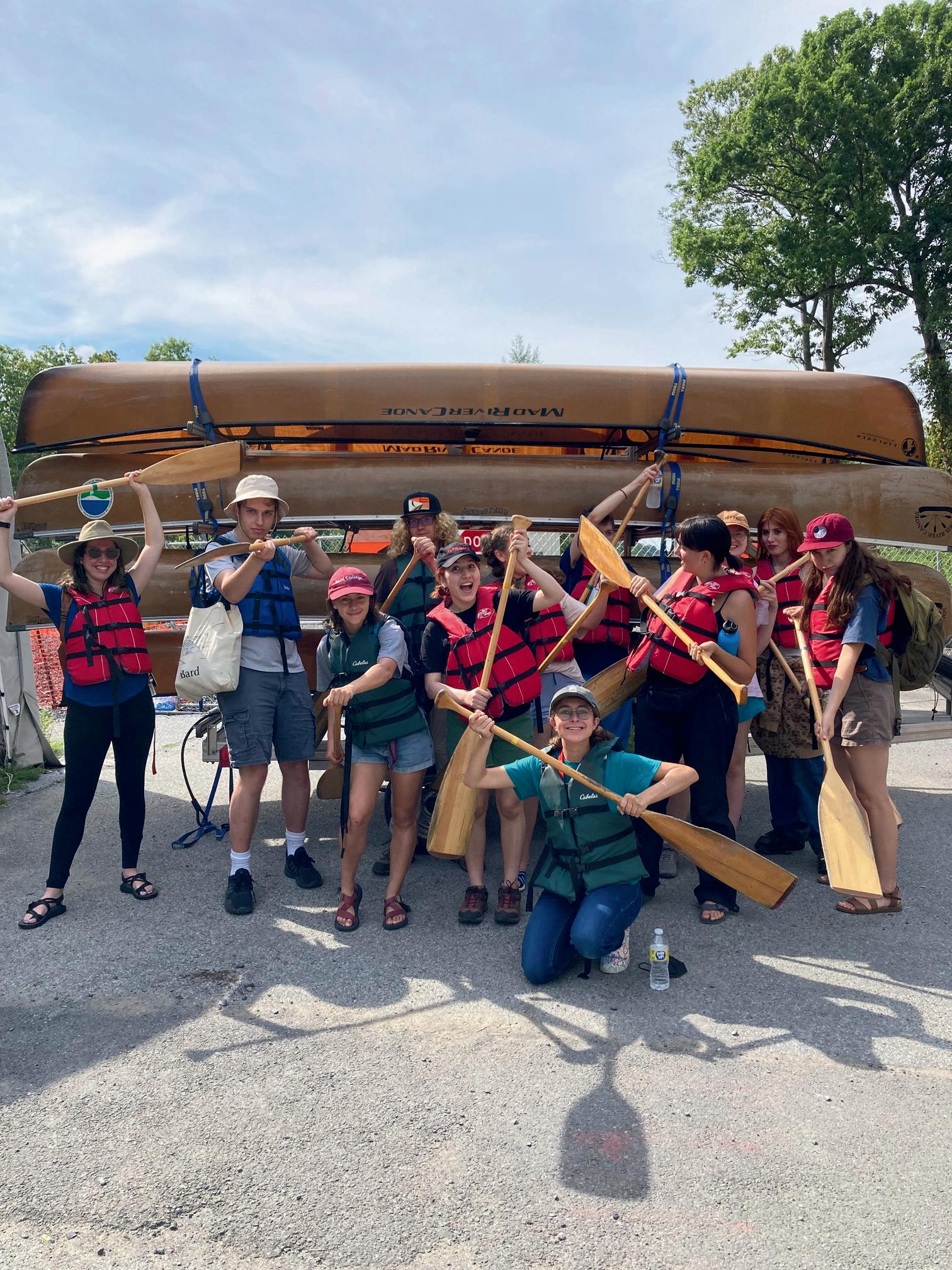
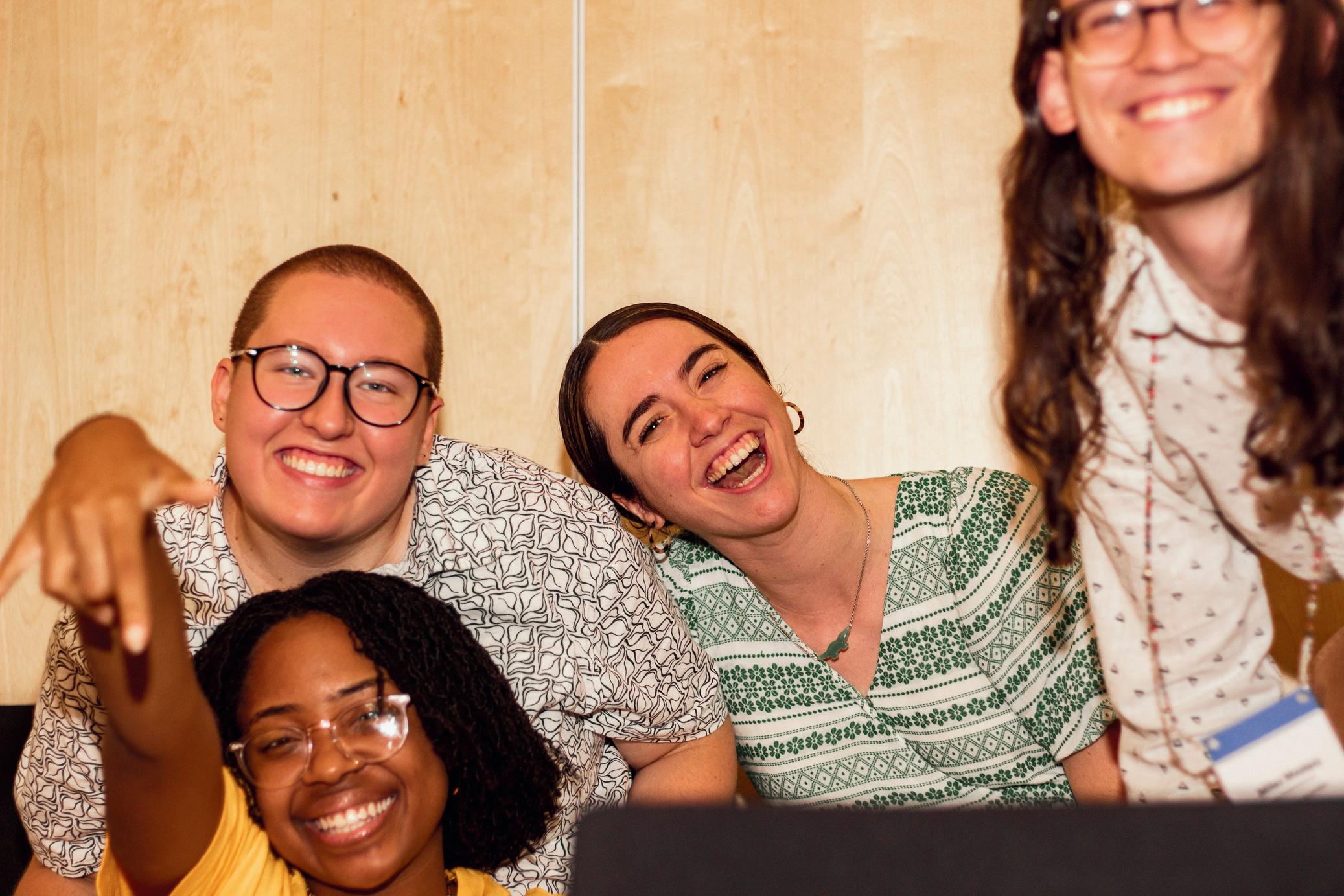
GUIDING THE COURSE OF CIVIC ENGAGEMENT
As the Center for Civic Engagement Special Events Administrator & Outreach Coordinator, Sarah deVeer orchestrates impactful initiatives. Her focus extends to building bridges between her institution and surrounding communities. She places special emphasis on kindling a passion for STEM education among elementary and middle school students. Moreover, she expertly manages an array of civic engagement projects, collaborating with student teams to transform ideas into tangible actions that create positive ripples.
SARAH DEVEER'S VISION: THE FUTURE OF CIVIC ENGAGEMENT
Peering into the horizon, deVeer envisions a future where the flame of civic engagement burns brighter than ever. She asserts that the driving force behind this future is the passion and dedication of students. Civic engagement is poised to thrive as students take the reins, guided by their unique interests and aspirations. "The future of civic engagement is a canvas shaped by our students' ambitions and their commitment to change,'' she predicts with unwavering confidence.
As we delve into Sarah deVeer's journey and expertise, it's essential to highlight that each OSUN campus hosts a Civic Engagement Office primed to nurture the seeds of change. Visit your campus Civic Engagement Center today, tapping into available resources for personal growth and community betterment. DeVeer reminds us that "the seeds of change lie within us all, waiting to be sown and nurtured into a flourishing garden of transformation." Let's unite to sow these seeds of change and create a better world.

60

SABINA A. WIEN
ADVENTURES IN THE WONDERLAND OF CIVIC ENGAGEMENT
by Iren Dimitrova - American University of Bulgaria (AUBG)
Sabina Wien is the Dean of Students as well as the Disability Campus Coordinator at American University of Bulgaria (AUBG). She is a member of the Steering Committee of the OSUN Civic Engagement Initiative . and she serves as the OSUN Civic Engagement Network Coordinator on the AUBG campus.
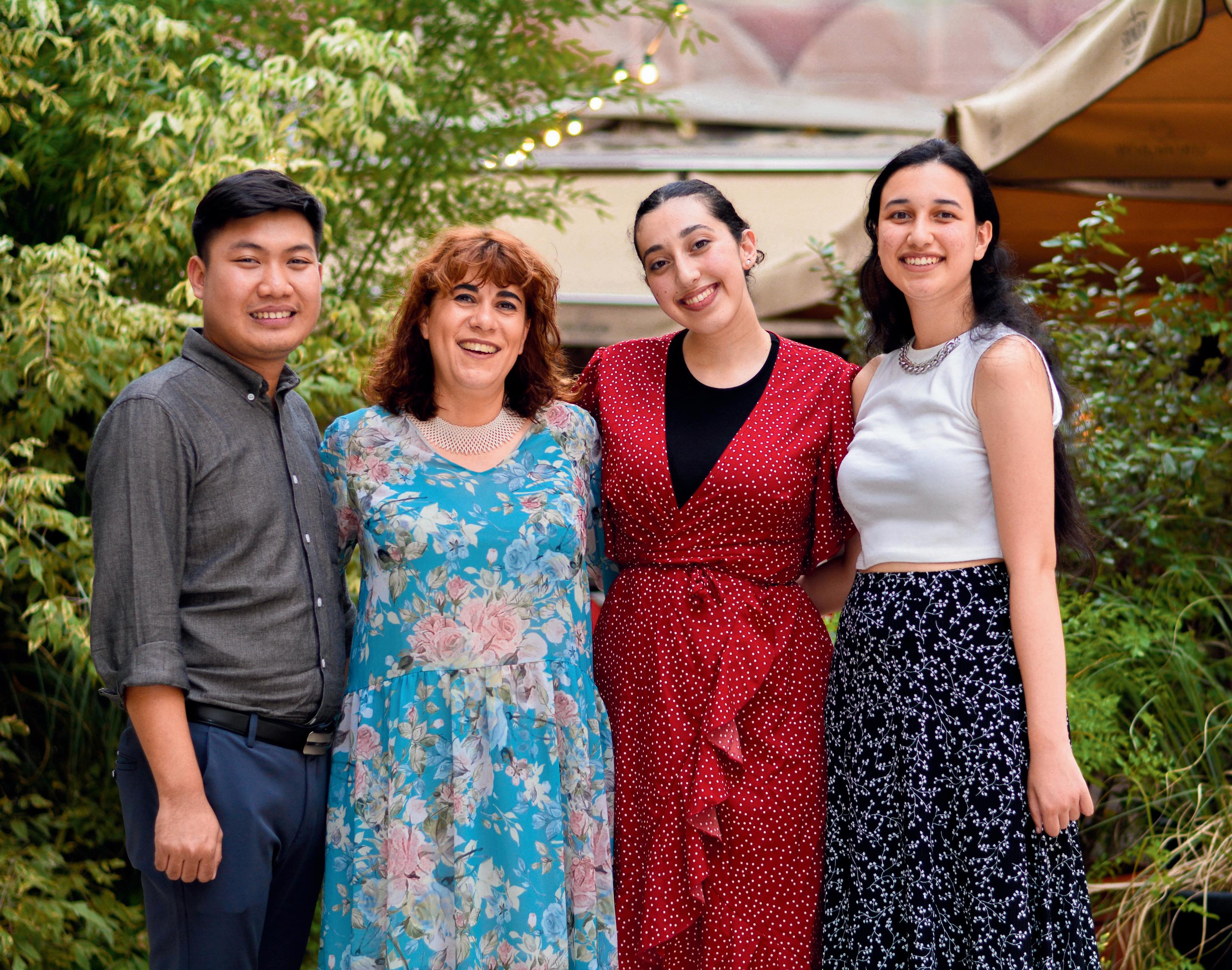
Sabina A. Wien joined the American University in Bulgaria – a small residential and highly relational liberal arts college in Southeast Europe – as an adjunct faculty member in 2006. She intended to stay there for just a year. Seventeen years later, she is striving to be a superhero, supporting the academic, career, and personal success and wellbeing of AUBG students while also fostering a vibrant campus culture, promoting diversity, equity, and inclusion, and contributing to the education of AUBG students to become good citizens.
Too much on her plate? “Nothing is too much for a civically engaged person who is supported by a team of devoted colleagues and motivated and energized by an awesome student crew – my AUBGers!”
Sabina finds it challenging to remember when she did her first act of civic engagement: “My father used to call me ‘advocate of the oppressed.’ Helping someone in need is an instinct. I can not not do it. Civic engagement is deeply rooted in my nature but is also a
conscious act. My family background is very diverse; the Jewish part of my family survived the persecution during WW2 because of the moral and civic courage of Bulgarians who were not afraid to speak up for their neighbors and friends.”
CIVICALLY ENGAGED IN AUBG
Before becoming Dean of Students, Sabina served as the faculty advisor for AUBG's volunteer student-run organization, the Better Community Club (BCC). Seeing students gaining inspiration through activities such as assisting children in local foster homes, participating in public cleanup initiatives, fundraising for cancer patients, and various community service projects, she came to recognize the profound role of a university as an institution that not only educates future professionals but also nurtures responsible citizens. Furthermore, she realized that the societal impact of a university is double – apart from donating their own ideas, time, and energy, the BCCers inspired other peers and
61
members of the local community to join their efforts, and provided them with valuable opportunities to engage in community and civic action.
A pivotal moment on Sabina's journey toward becoming a civic engagement educator occurred during the Fall of 2021, when she enrolled in the professional development course "Managing Civic Engagement." Reflecting on her experience, she remarks, "The course, taught by Professor Jonathan Becker, struck me like a bolt of lightning. The readings, the discussions, the stories, and the guest speakers—particularly the remarkable Professor Syed Hashemi – brought together the fragmented pieces of my life's puzzle. Professor Becker served as a true source of inspiration to me – he is the absolute embodiment of the good citizen – personally responsible, participatory and justice-oriented, as defined by Westheimer and Kahne (2004)”
OSUN’S WONDERLAND OF CIVIC ENGAGEMENT AT AUBG
What follows now might be compared to Alice's adventures in OSUN's Wonderland of Civic Engagement. As the OSUN Network Coordinator, Wienaccompanied two AUBG students, Veliyana and Mihail, to the Get Engaged conference at American University of Central Asia (AUCA) in Kyrgyzstan in June 2022.
"AUBG students showed great civic involvement at AUCA, proving our university's dedication to building a sense of community and civic participation. Even though we don't have a specific Civic Engagement Center, our students thrive in an environment that encourages creative ideas and meaningful contributions to both our campus and the larger community, both locally and possibly globally.”
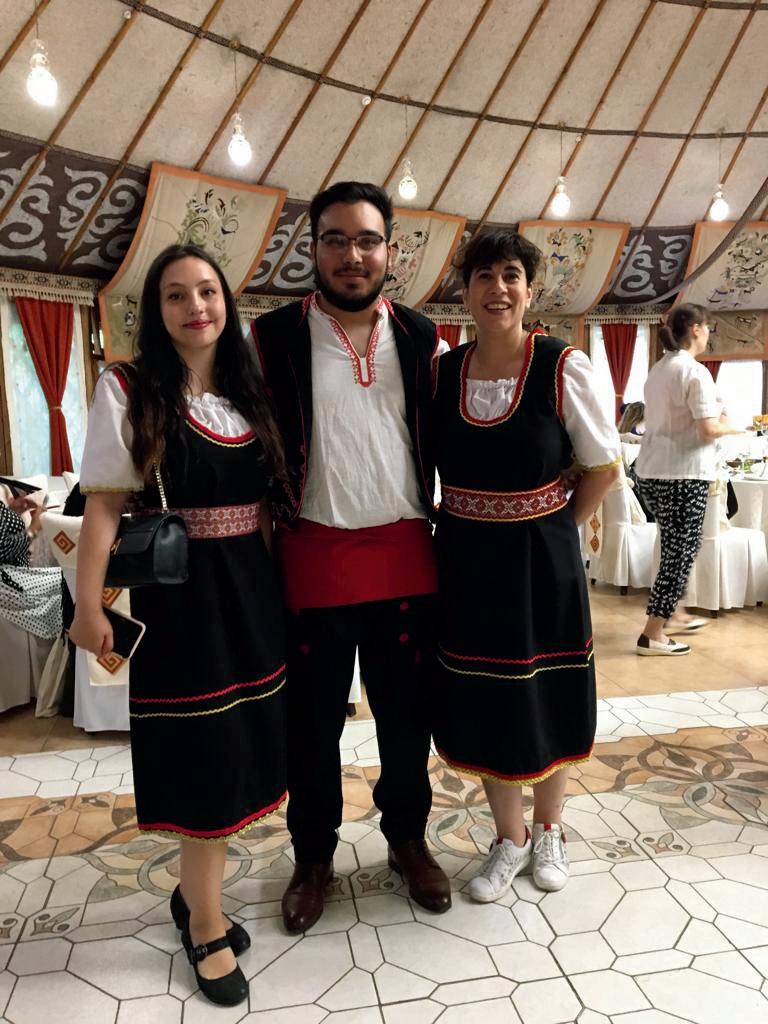
The examples of student-run community and civic engagement initiatives which took place on AUBG grounds in the past year are multiple: Thanks to the OSUN Civic Engagement Block Grant and AUBG staff mentorship, we organized workshops for Ukrainian refugee children, sessions for underprivileged youth, a charity bazaar for earthquake victims, a project challenging stereotypes about the Roma population, debate training for high-school students, activities for foster home children, MUN and MEU simulations, inclusion of dyslexic children in the AUBG Olympiad, and celebrations for World Refugee Day in Blagoevgrad, including collaboration with UNHCR Bulgaria, alongside internships in civil society organizations.
“Community service has been part of AUBG’s mission since the very founding of the university. Its aim was to help the democratic transition of the region by educating young ethical leaders. But through the partnership with OSUN Civic Engagement Initiative (CEI) and the establishment of the Center for Information, Democracy, and Citizenship at AUBG, the university now has the chance to become a role model civic actor in Bulgaria and East Europe,” said Sabina.

62
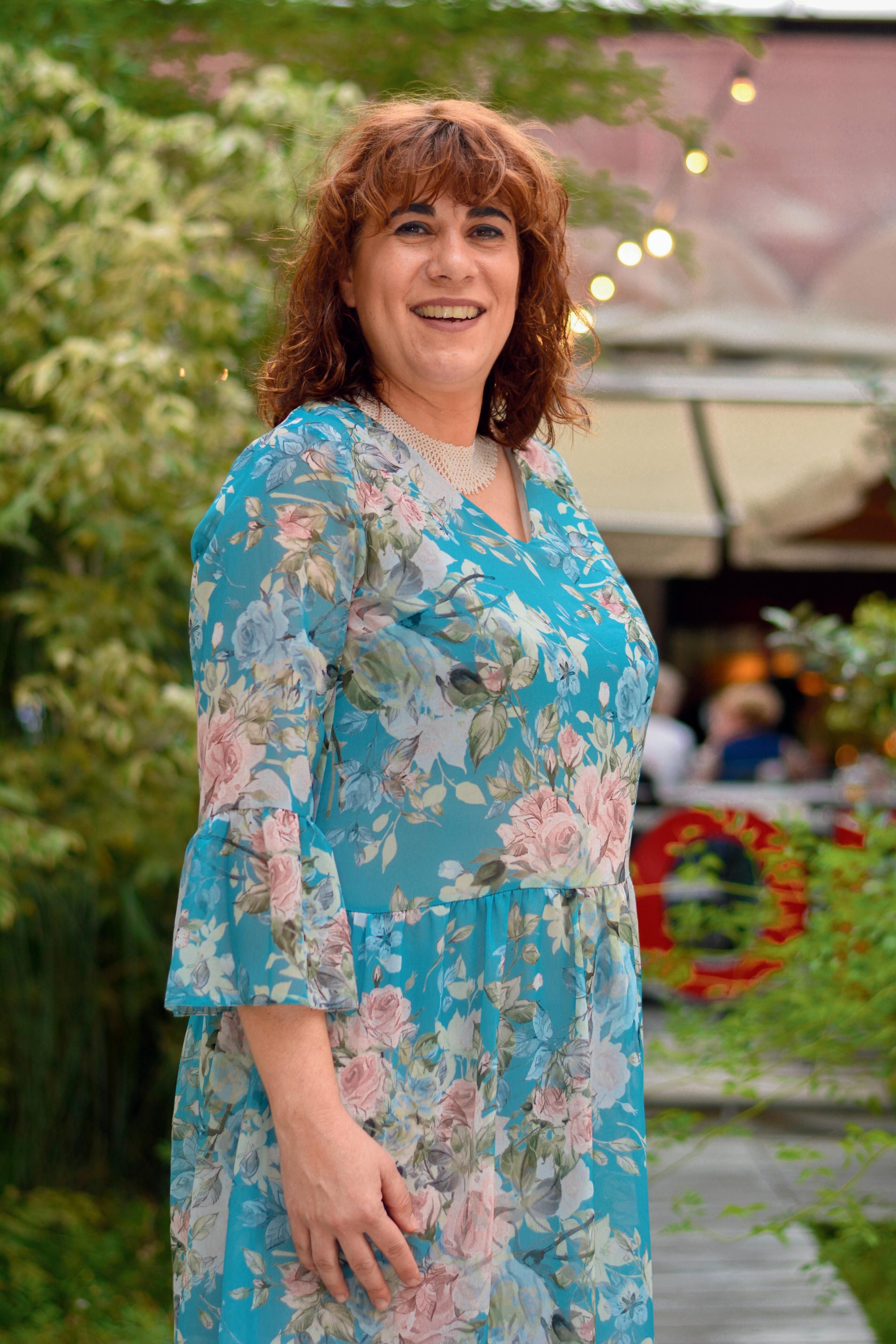
INTERTWINING AUBG INTO A GLOBAL CIVIC ENGAGEMENT COMMUNITY
For Wien, who was invited to become member of the OSUN CEI Steering Committee, collaborating with colleagues and working with students from Al-Quds Bard College, Ashesi, AUCA, Bard College, BCB, BRAC, CEU, UniAndes, and all other member universities, means a dream come true not only with regard to her professional development and the co-curricular educational opportunities for AUBG students, but also pertaining to her as a person.
The desire to pass on the passion for civic engagement led her to start teaching the respective OSUN Network Collaborative Course at AUBG in Spring ’23. In July ’23 she co-taught the “Civic Engagement: Student as Citizen” course which was part of the CEU Summer University, co-funded by OSUN. “The gratification of having the whole world in your classroom is immense! I had the privilege to mentor the impressive civic engagement projects of a student from Tunisia, a student from Palestine and a student from Myanmar!”
“What I learned through them was that civic engagement is the other thing that can unite people of different cultures, ages, and interests. The first one is, of course, love.”
Wien is optimistic about the future relations between AUBG and OSUN, with a special focus on civic engagement. “AUBG boasts three OSUN student fellows. Their involvement will surely amplify our efforts to foster interest in global education and active citizenship, both within and beyond the AUBG campus. Because the community we aim at improving extends far beyond the local. After all, we are global citizens and our students are the change-makers of the future for the entire world!”

63
BRIAN MATEO
A BEACON OF CIVIC ENGAGEMENT AT BARD COLLEGE
by Cameron Jones - Tuskegee University
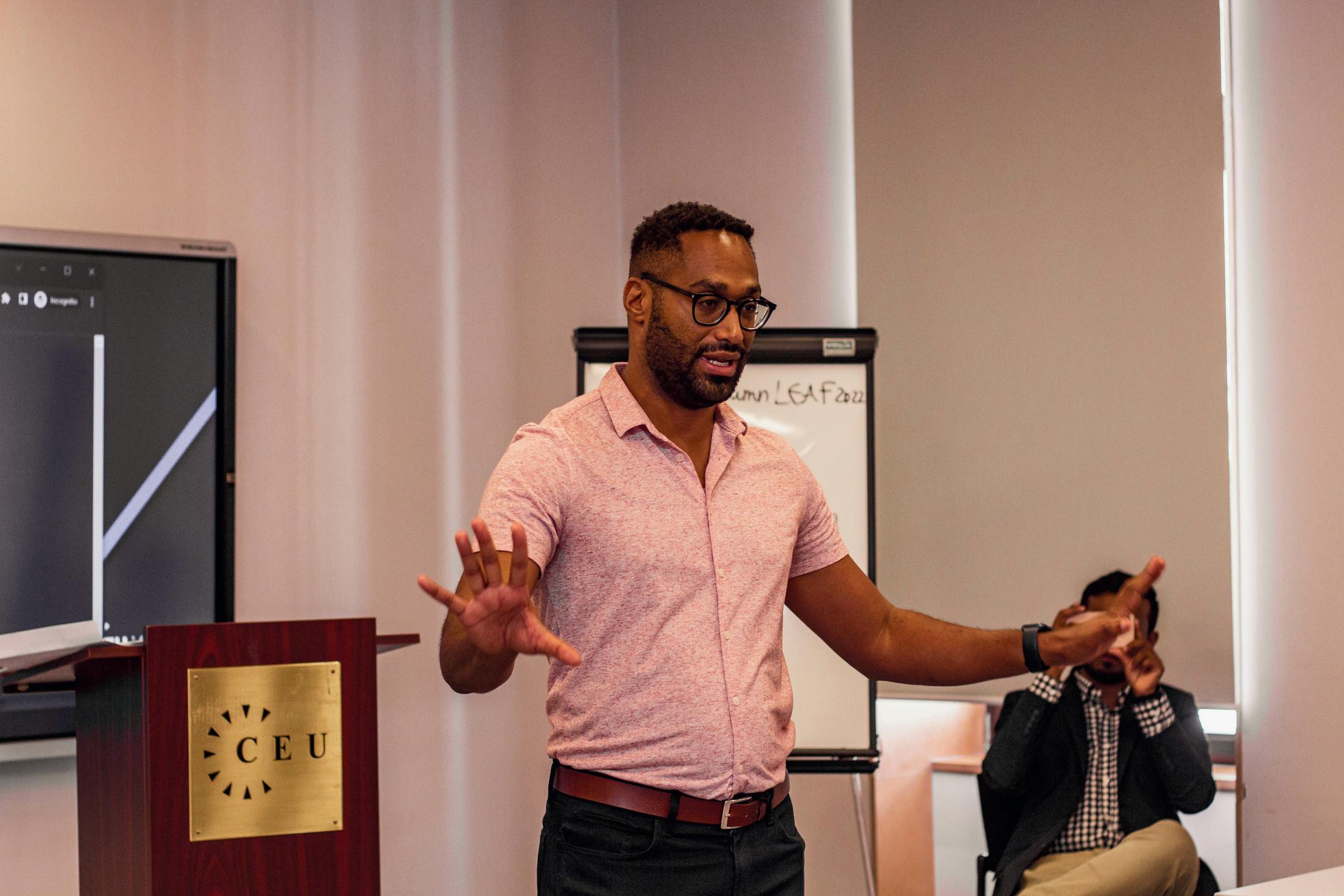
Brian Mateo, the Associate Dean of Civic Engagement at Bard College, is a true embodiment of the transformative power of education and civic engagement. With over 13 years of dedicated service at Bard College, Mateo's journey from a director of programming to a prominent figure in the field of civic engagement has been nothing short of inspiring.
UPBRINGING
Mateo's early life was marked by the challenges of being a first-generation college student and coming from a humble background. These experiences instilled in him a deep sense of responsibility to become actively involved on campus and make a meaningful impact. During his undergraduate years, he engaged in many extracurricular activities, laying the foundation for his future endeavors in civic engagement.
One of the pivotal moments in Mateo's journey was his leadership role in organizing a medical brigade in Honduras. This initiative showcased his determination and resourcefulness as he raised funds and collaborated with medical professionals to provide much-needed services to under-resourced rural communities. His bilingual proficiency in Spanish and English allowed him to bridge cultural and linguistic gaps, a skill that would prove invaluable in his future work.
Brian Mateo's passions align with critical global issues, including gender equity, climate change, education, and the intersection of technology with these challenges. These passions have fueled his commitment to promoting positive change and civic engagement among students.
LEADERSHIP IN CIVIC ENGAGEMENT
Mateo's career at Bard College took a significant turn when he transitioned to the Center of Civic Engagement. His journey continued to evolve with helping to establish the Open Society University Network (OSUN), where he joined the Civic Engagement Leadership Team. In this role, he spearheaded initiatives to provide students with diverse opportunities for civic engagement and guided faculty in redesigning courses to incorporate civic engagement principles.
One noteworthy achievement under Mateo's leadership is creating the Civic Engagement Certificate program, empowering students to combine their academic pursuits with core curricular opportunities, equipping them with the knowledge and skills to be informed citizens actively engaged in their communities. It is a testament to his commitment to fostering civic responsibility and community involvement among Bard College students.
Mateo's impact extends far beyond the Bard College campus. He travels extensively, engaging with students from diverse backgrounds, including countries as varied as Kyrgyzstan and across Asia. These interactions give him a rich blend of insights and experiences, enabling him to see the world through many lenses.
Mateo's passion for climate change is not merely a professional pursuit but a deeply rooted commitment to addressing one of our time's most pressing global challenges. Through his thought-provoking articles, such as "Ethical Implications of Climate Change for Education," he has illuminated the

64
ethical dimensions of the problem, emphasizing the need for educational institutions to play a pivotal role in raising awareness and nurturing a sense of responsibility among future generations.
His article "A Case for Giving Climate Migrants Protected Legal Status" illustrates his advocacy for the rights and protection of those displaced by climate-related events, advocating for compassionate and humane policies in response to this growing crisis. Furthermore, in his article, "Climate Change Solutions Must Include People with Disabilities," Mateo portrays inclusivity within climate change solutions, emphasizing the importance of ensuring that the most vulnerable among us are not left behind in the fight against climate change. His work demonstrates a holistic and compassionate approach to addressing climate change, reflecting his commitment to a sustainable and equitable future for all.
In addition to his role as Associate Dean of Civic Engagement, Mateo co-leads the Experiential Learning Institute. This institute empowers faculty to incorporate experiential learning into their curricula, enriching students' educational experiences and promoting civic engagement.
Mateo firmly believes that the future of civic engagement rests with today's young leaders. He notes that today's youth are exceptionally active and deeply concerned about their communities, often combining social entrepreneurship with their passion for change.
GIVING BACK TO YOUTH
When asked for advice to share with young global fellows eager to impact their communities positively, Mateo emphasizes the importance of taking courses that genuinely intrigue them and finding mentors who are engaged in areas of interest. He encourages them to seek out individuals already doing what they aspire to and ask questions, recognizing that everyone has a unique journey that started somewhere—and so can they.
In conclusion, Brian Mateo's remarkable journey from a first-generation college student to the Associate Dean of Civic Engagement at Bard College is a testament to the power of education, commitment, and civic engagement. His dedication to empowering students and fostering positive change in communities worldwide is an inspiring example for all. As he continues to shape the future of civic engagement, Mateo's legacy will undoubtedly be one of lasting impact and transformation.
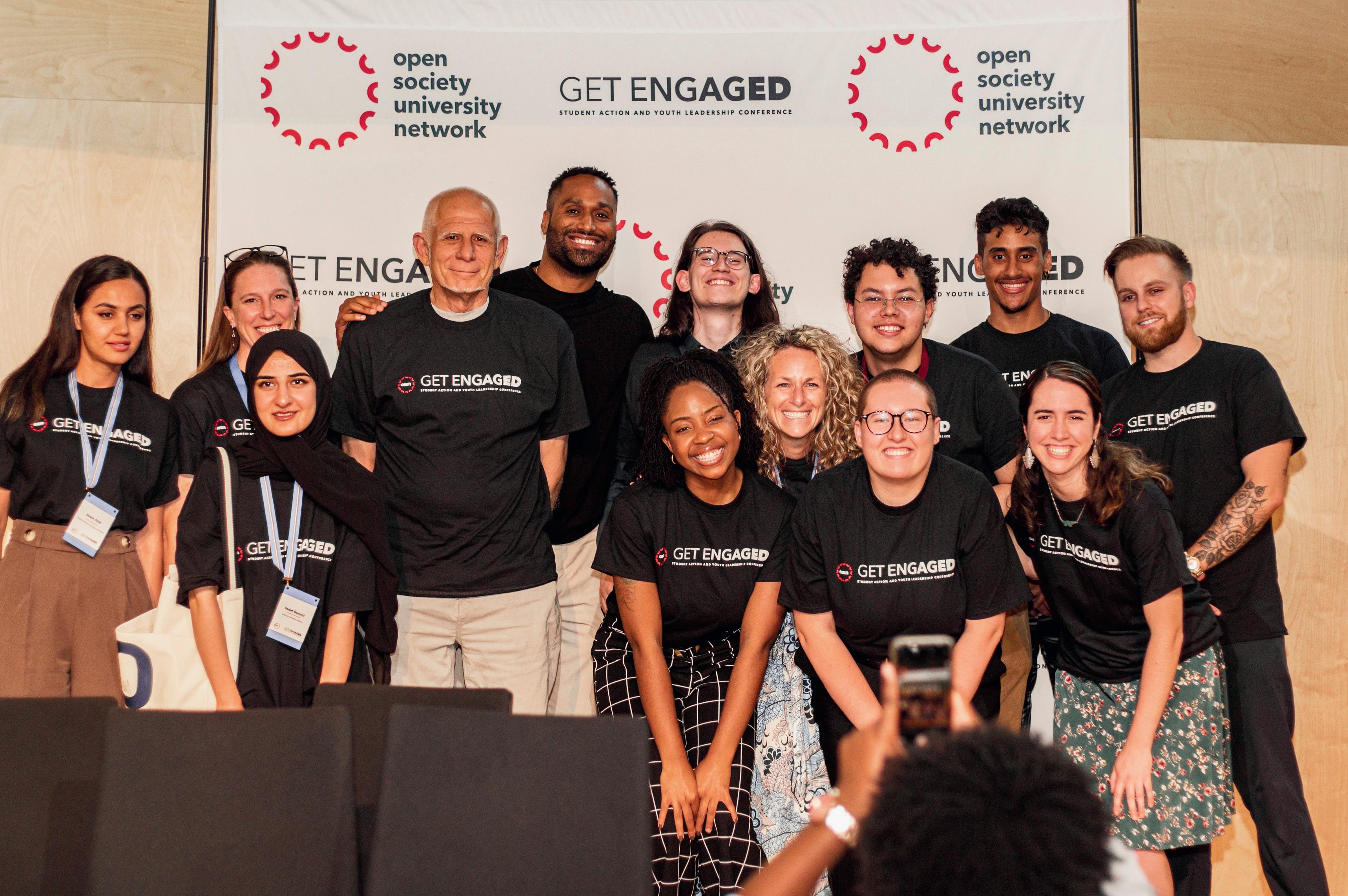

65
SARAH BOU MATAR
EMPOWERING AUB COMMUNITIES THROUGH CIVIC ENGAGEMENT
by Hussein Al-Ameri - American University of Beirut (AUB)
In the pursuit of creating a better and more inclusive society, civic engagement plays a pivotal role. Sarah Bou Matar, a passionate and dedicated project manager at the Center for Civic Engagement and Community Service (CCECS) at the American University of Beirut (AUB), is at the forefront of this movement. With a solid commitment to community development and a background in psychology, Sarah has been working tirelessly to support vulnerable communities and empower young change agents through the MEPI Tomorrow's Leaders program. In this interview, we delve into Sarah's experiences, her journey toward civic engagement, and the challenges and rewards she encounters in her career.
UNVEILING THE JOURNEY
As a project manager at CCECS, Bou Matar has contributed to various community development initiatives. Her journey into this field began during her university days when she actively engaged in volunteering and community work. With a profound desire to do good and support those in need, her background in psychology served as a stepping stone for her present role. When she was offered an opportunity to work on a research program with refugees in the Bekaa region, it became a transformative experience for her. The heartfelt stories shared by young refugees about their mental health struggles and life as displaced individuals touched her deeply, leading her to discover her true calling in civic engagement.
Bou Matar’s current role at CCECS involves working with students enrolled in the MEPI Tomorrow's Leaders program. The program aims to develop the next generation of leaders by engaging them in civic projects that address pressing societal challenges. As a project manager, she guides students through designing and implementing their capstone projects tailored to the needs of vulnerable and marginalized communities. By focusing on impactful and sustainable interventions, these students become change agents, leaving a lasting impact on the communities they serve.
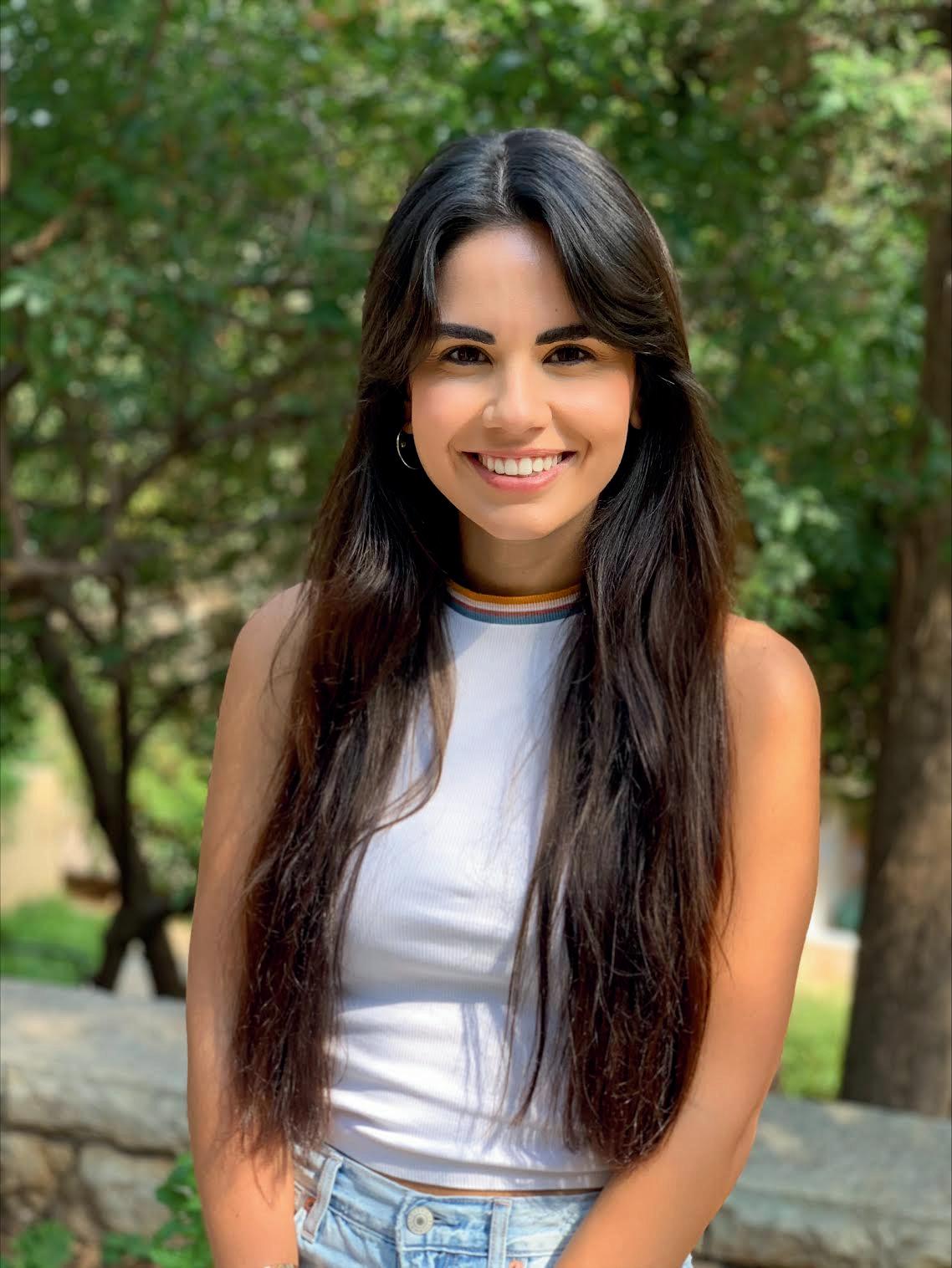

66

CHALLENGES IN CIVIC ENGAGEMENT
Despite the fulfilling nature of her work, Bou Matar acknowledges the challenges of civic engagement. In Lebanon, certain communities face political, religious, and cultural barriers that make it difficult to access and offer support. While the desire to help all communities may be strong, the reality of limitations teaches her to focus efforts on communities more receptive to aid due to cultural, political, or religious barriers.. Nevertheless, the collective efforts of the team at CCECS and witnessing positive change in communities make the challenges worthwhile.
THE HEALING POWER OF CIVIC ENGAGEMENT
The most rewarding aspect of Bou Matar’s job is the exposure to diverse individuals and communities from all walks of life. Engaging with students and learning about their experiences provides her with insights into different cultures and histories despite not being able to visit every community physically. The satisfaction of leaving a positive impact on even one individual's life keeps her motivated to continue her work in civic engagement.
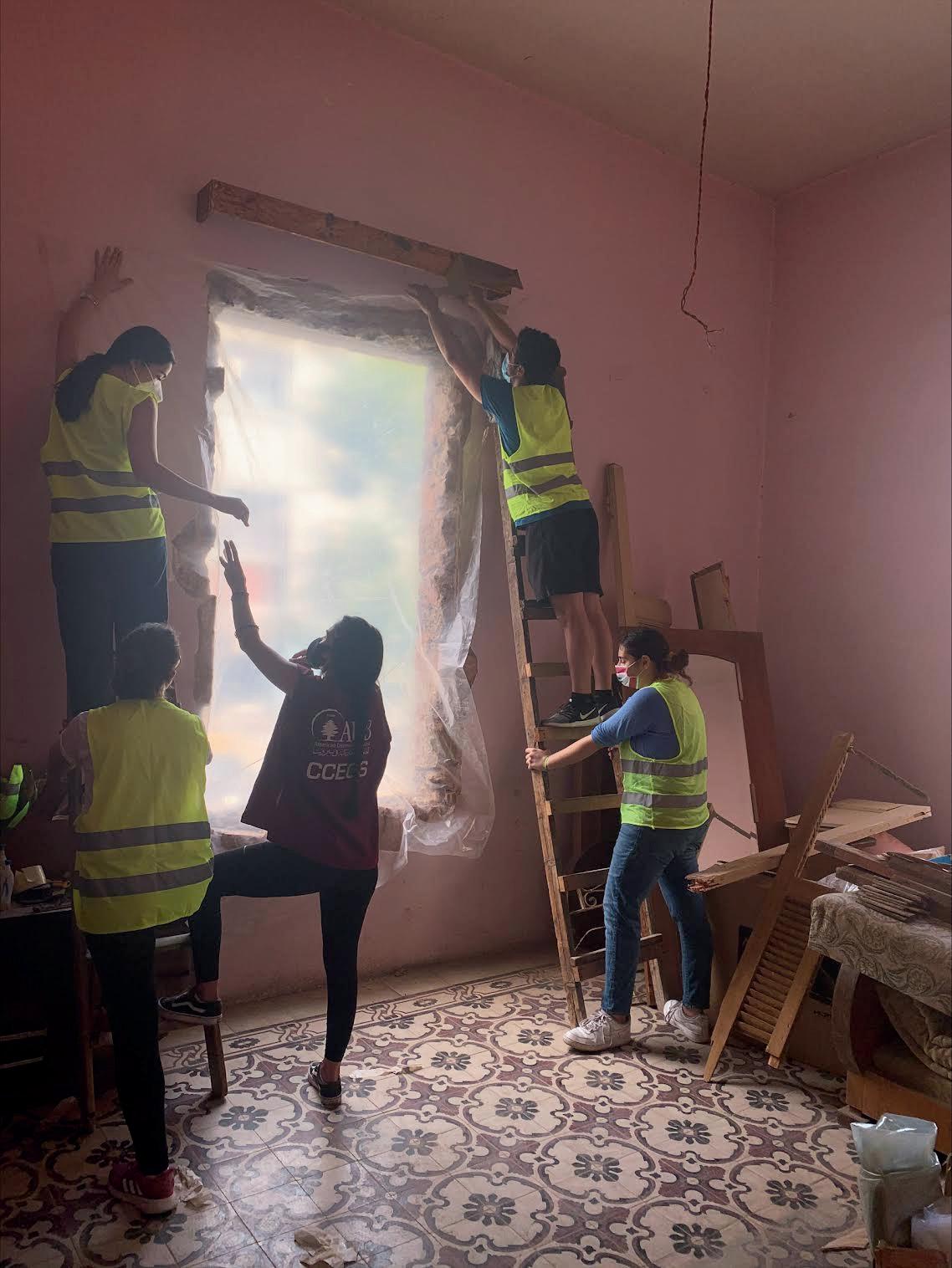
Bou Matar’s journey in civic engagement has been one of personal growth and dedication to uplifting vulnerable communities. Through her work at AUB's Center for Civic Engagement and Community Service, she has found her true purpose in supporting the next generation of leaders. Despite the challenges that arise, her passion and belief in the power of civic engagement to heal and empower continue to guide her path. As a true advocate for change, she inspires others to take part in creating a more inclusive and compassionate society through civic engagement.
67
WE ARE GLOBAL ENGAGEMENT FELLOWS
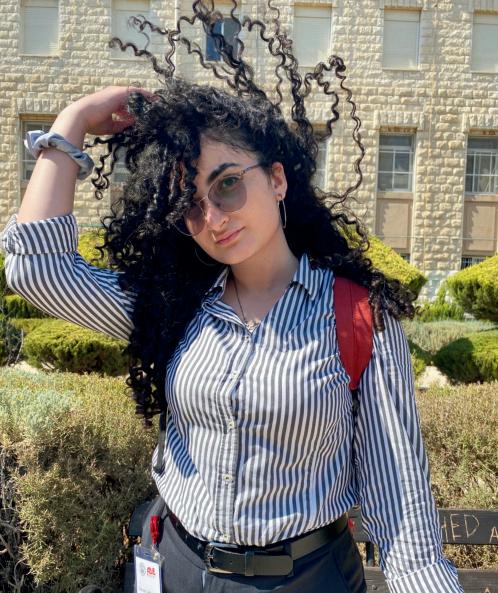
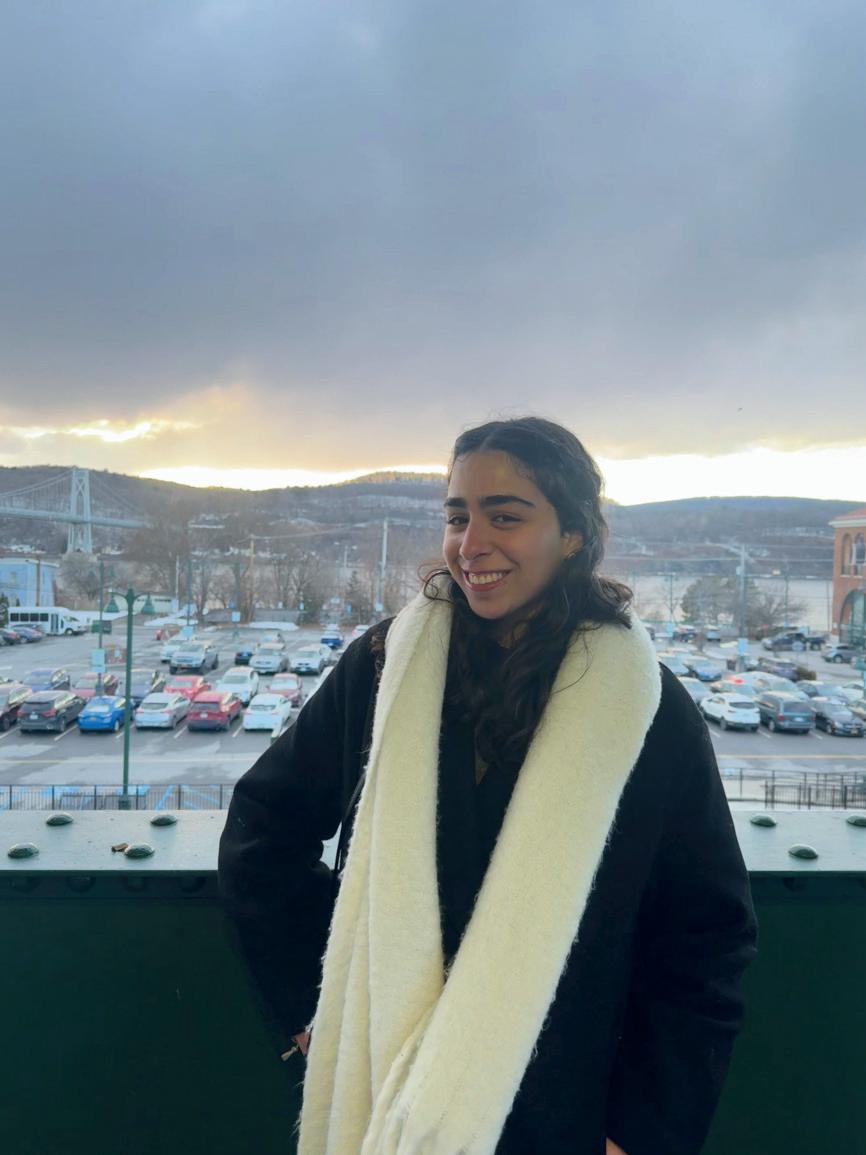
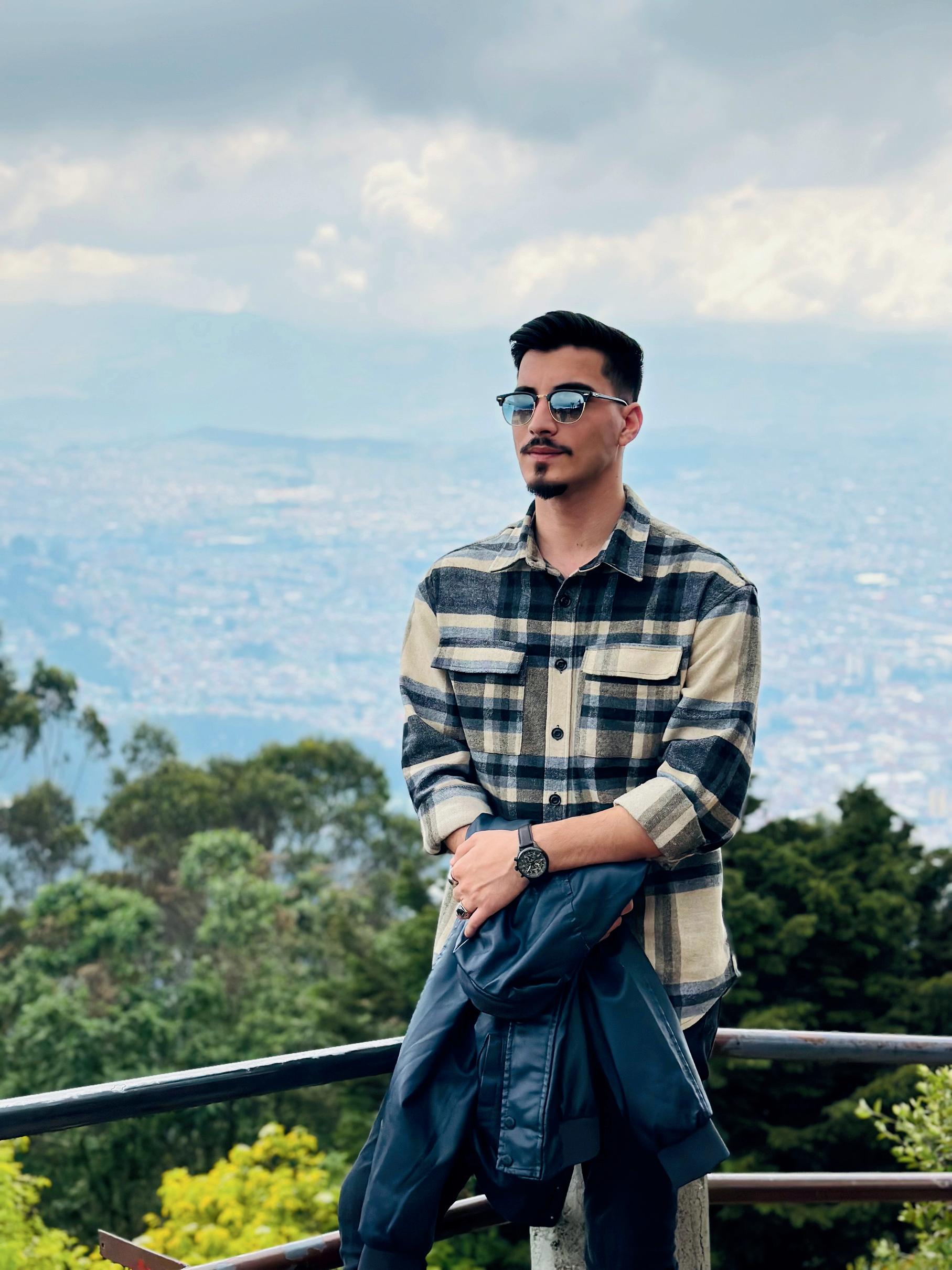
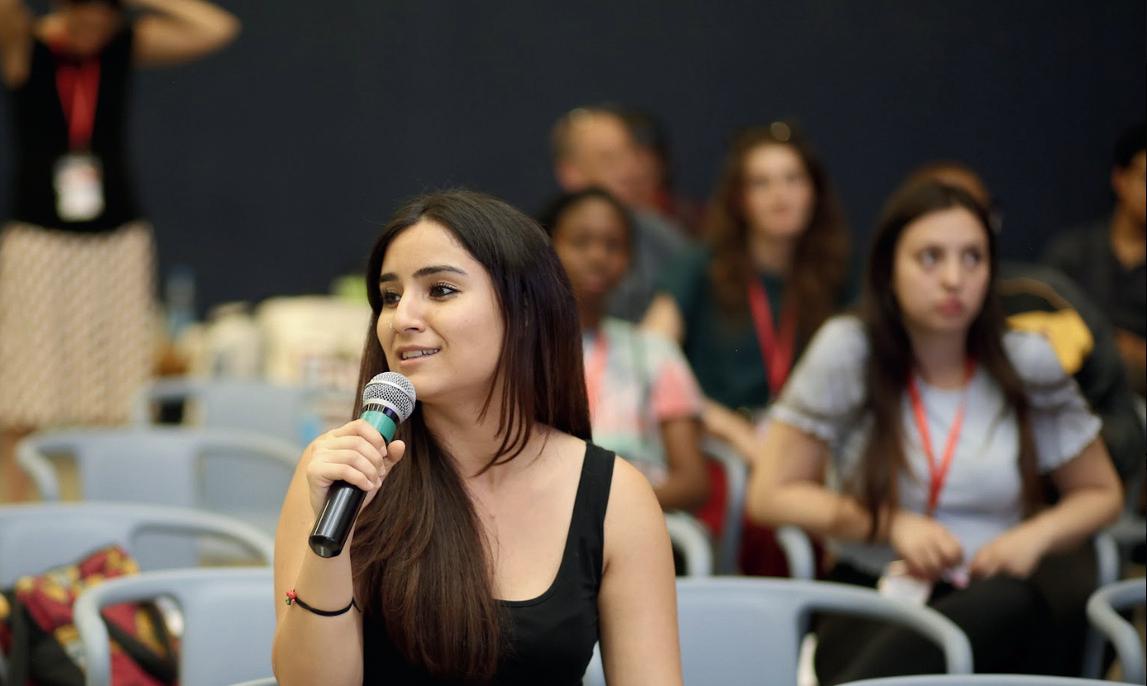
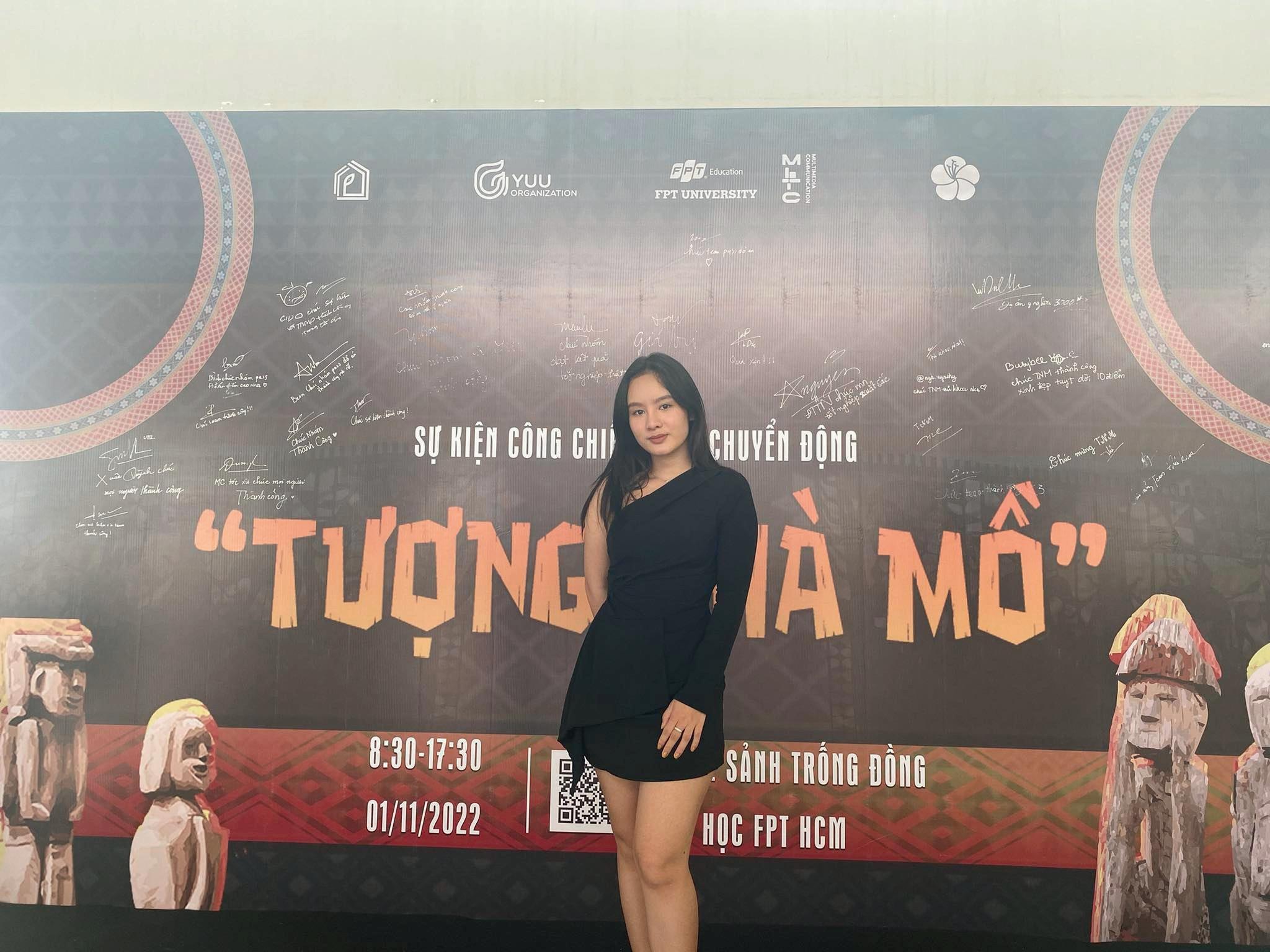
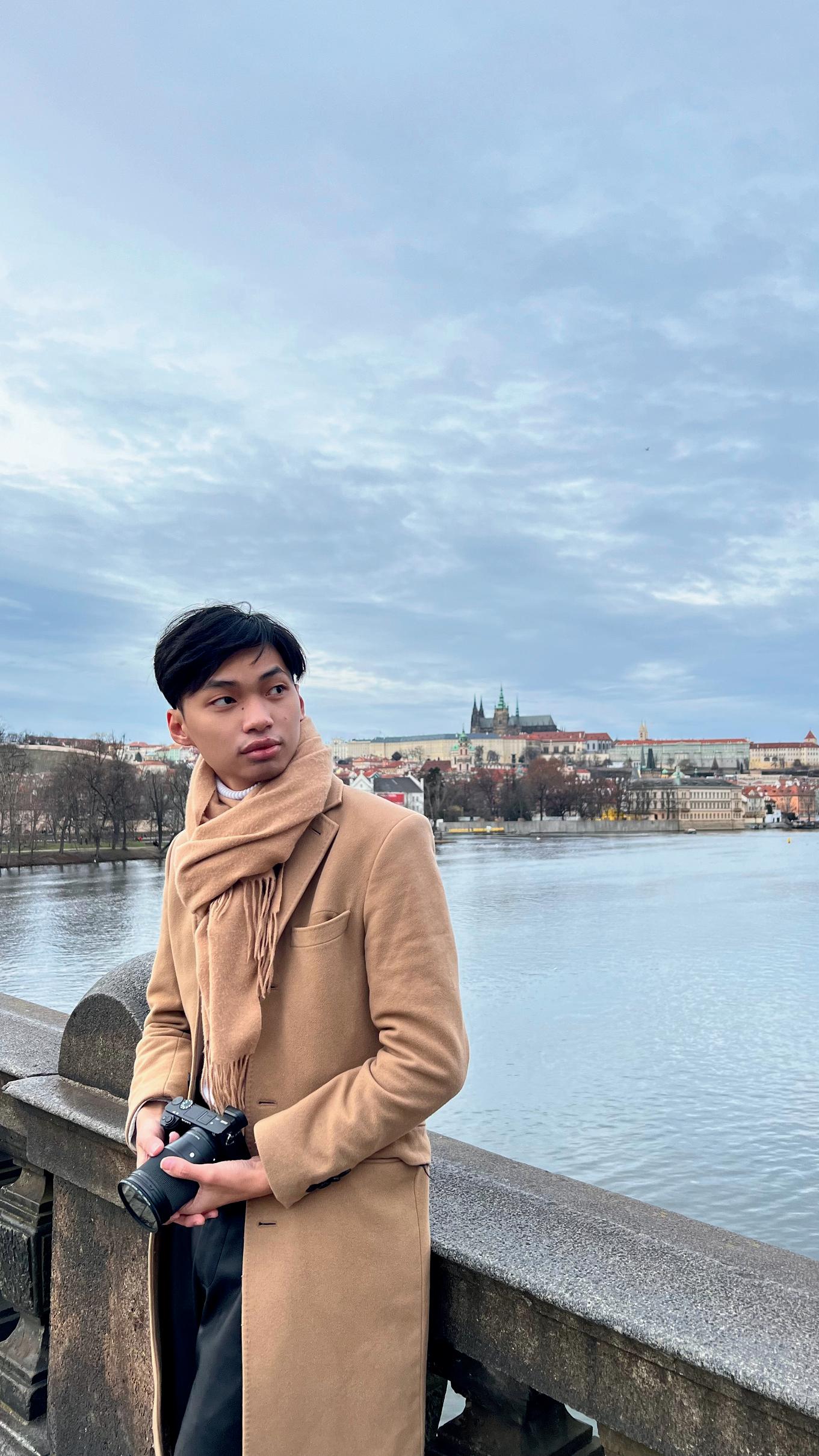
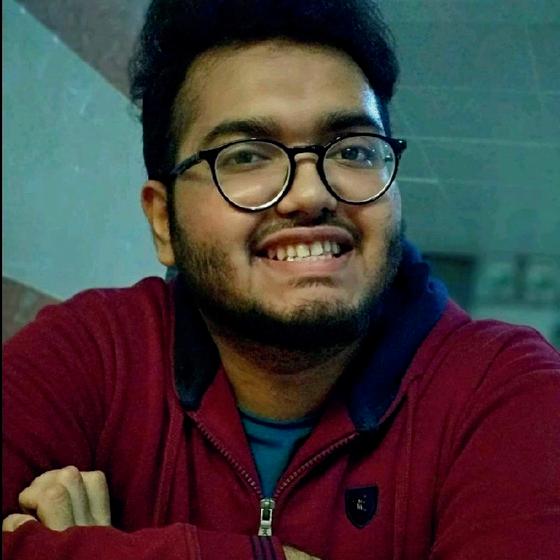
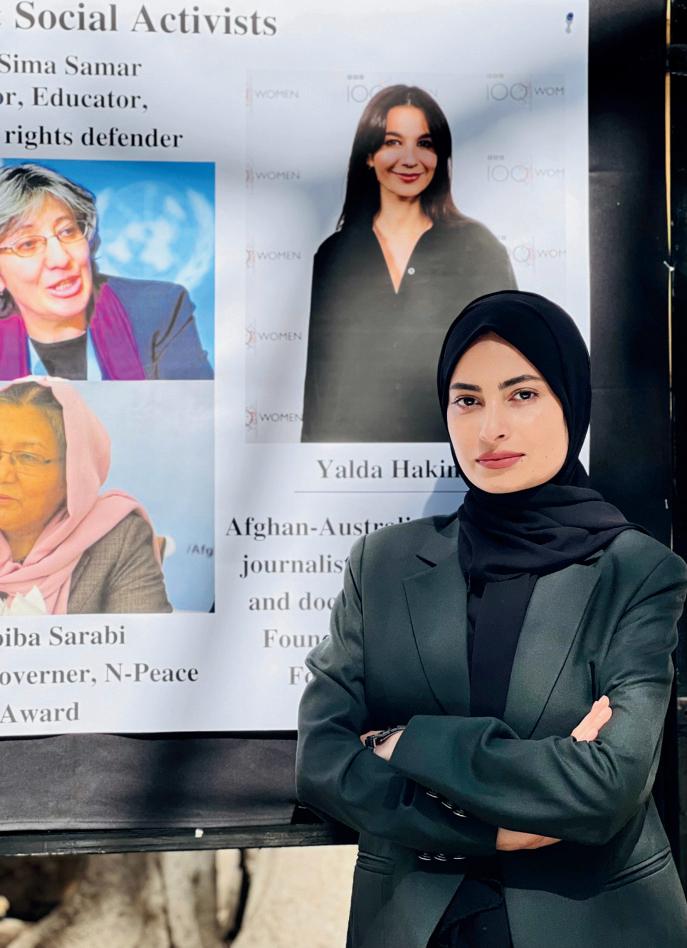
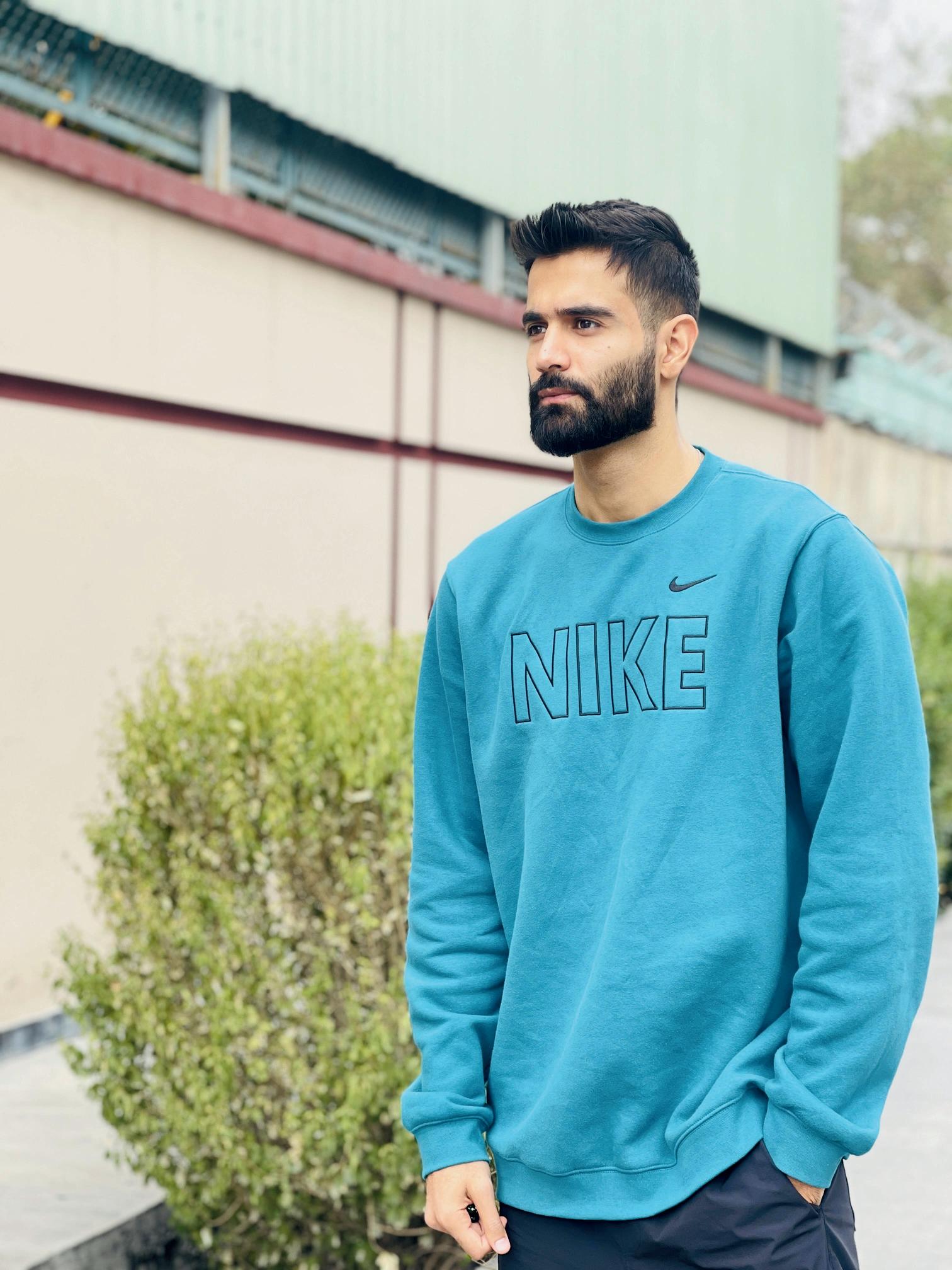
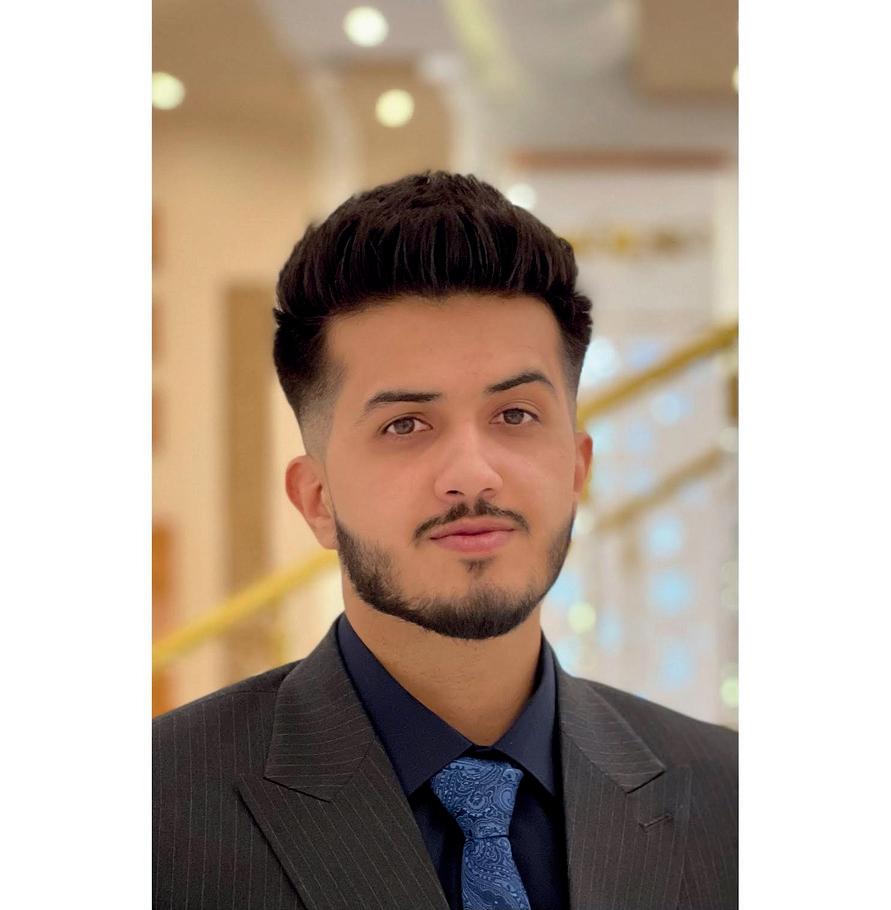
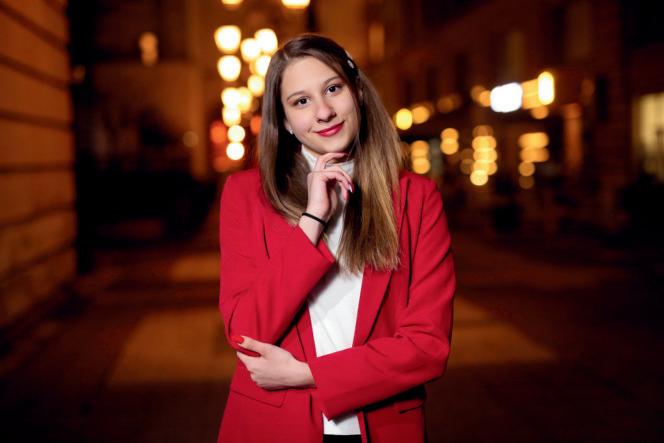
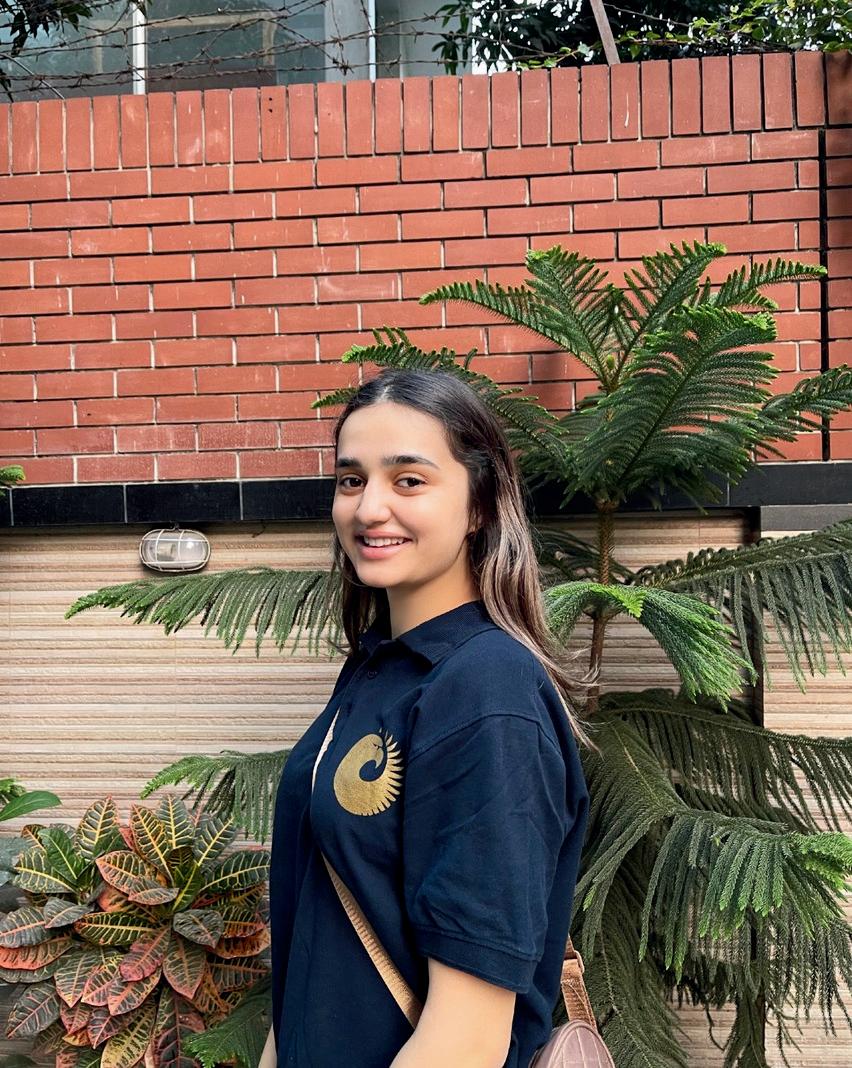
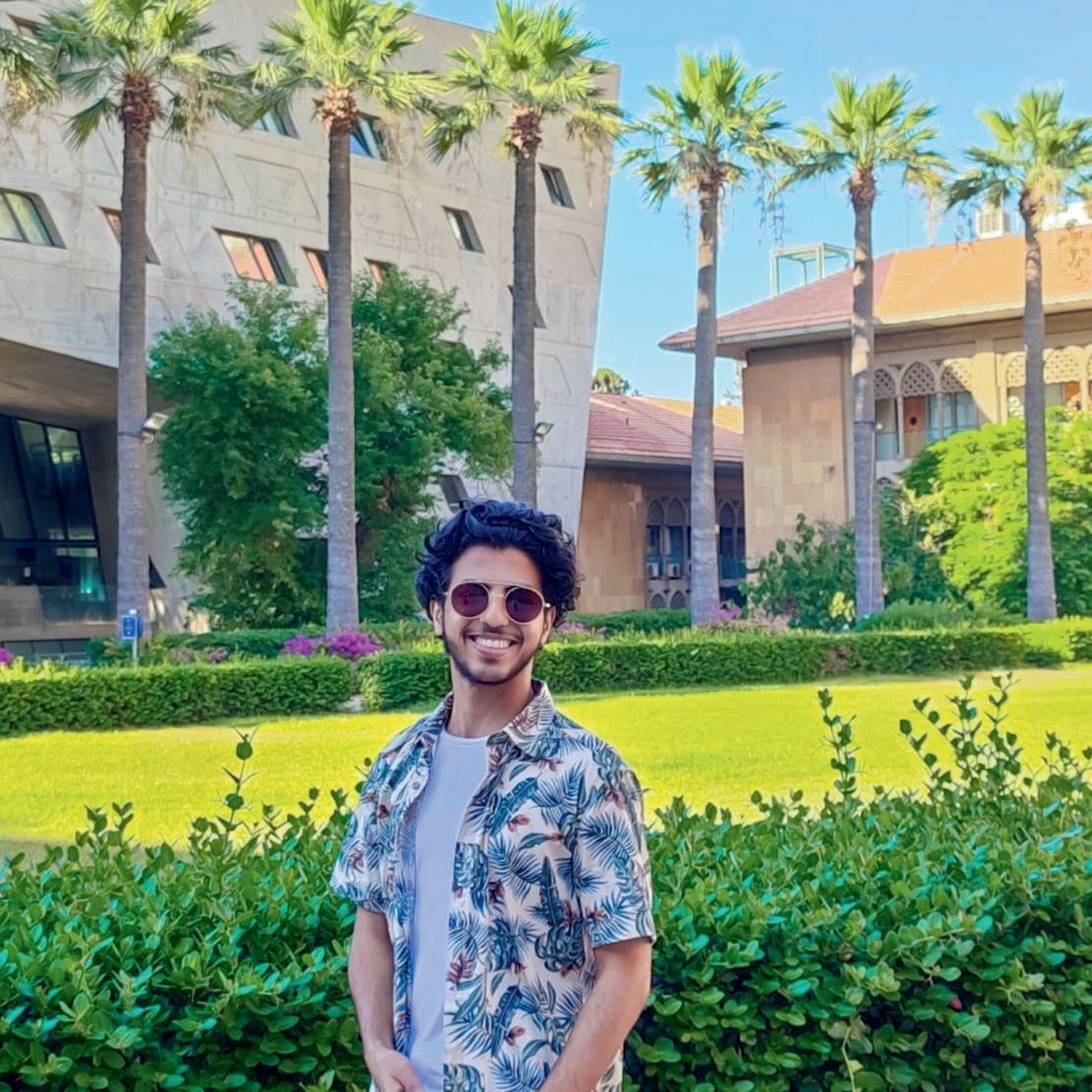
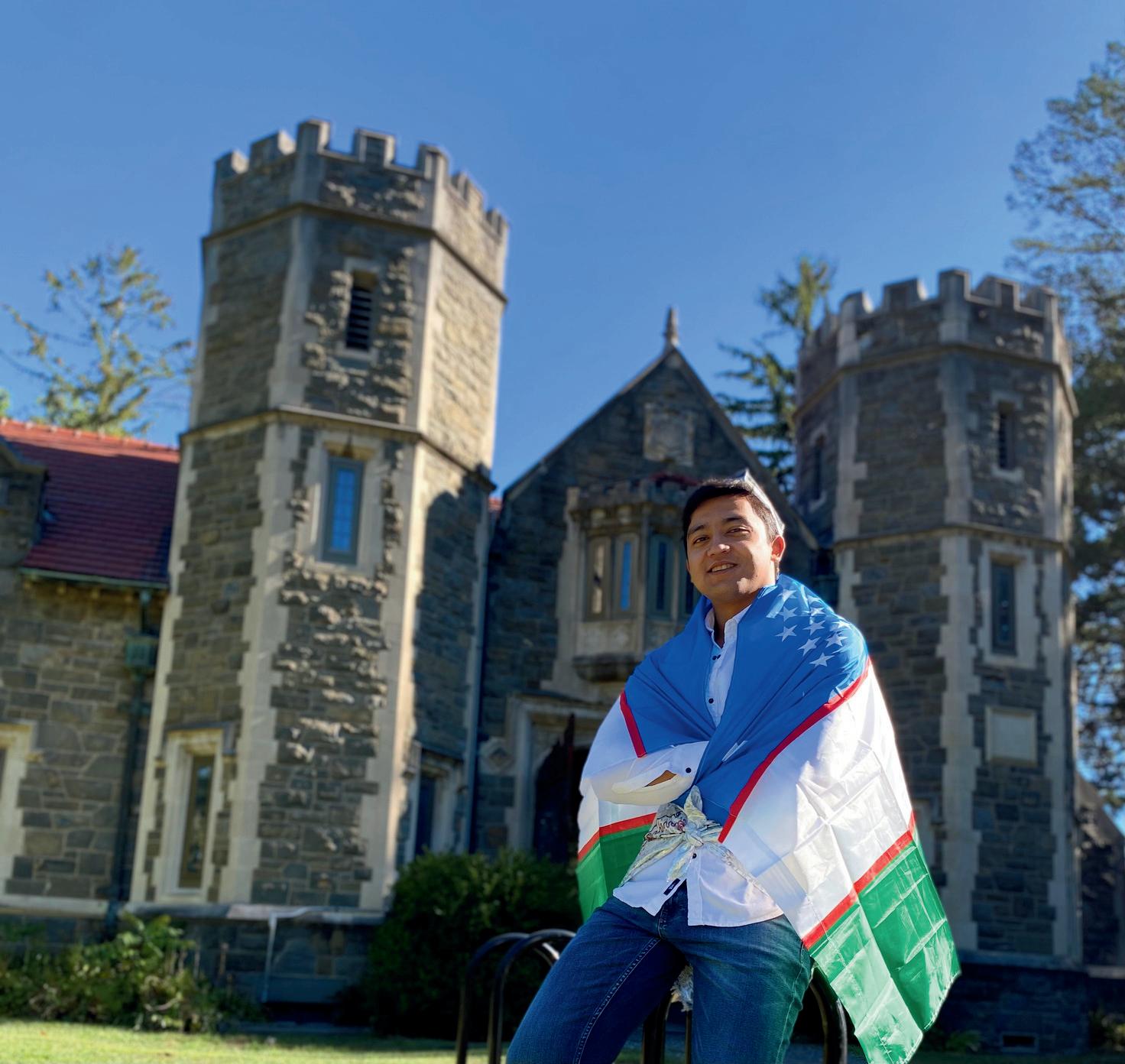 Dareen AlhajarefSayedAnwarIbrahimiĐặngThịThảoNguyên Al-Quds Bard College for Arts and Science (AQB) American University of Central Asia (AUCA) Fulbright University Vietnam
Christina AnastasQais Ahmad DostElham Wardak Al-Quds Bard College for Arts and Science (AQB) American University of Afghanistan (AUAF) American University of Afghanistan (AUAF)
Hasibul Hasan Ahmed BRAC University
Hussein Al-Ameri American University of Beirut (AUB)
Roya MalikyIren Dimitrova Navruzmo Khayolbekova American University of Beirut (AUB) American University of Bulgaria (AUBG) American University of Central Asia (AUCA)
Oybek Turaev American University of Central Asia (AUCA)
Zarlasht Sarmast Program Coordinator
Vũ Đức Huy Program Assistant
Dareen AlhajarefSayedAnwarIbrahimiĐặngThịThảoNguyên Al-Quds Bard College for Arts and Science (AQB) American University of Central Asia (AUCA) Fulbright University Vietnam
Christina AnastasQais Ahmad DostElham Wardak Al-Quds Bard College for Arts and Science (AQB) American University of Afghanistan (AUAF) American University of Afghanistan (AUAF)
Hasibul Hasan Ahmed BRAC University
Hussein Al-Ameri American University of Beirut (AUB)
Roya MalikyIren Dimitrova Navruzmo Khayolbekova American University of Beirut (AUB) American University of Bulgaria (AUBG) American University of Central Asia (AUCA)
Oybek Turaev American University of Central Asia (AUCA)
Zarlasht Sarmast Program Coordinator
Vũ Đức Huy Program Assistant
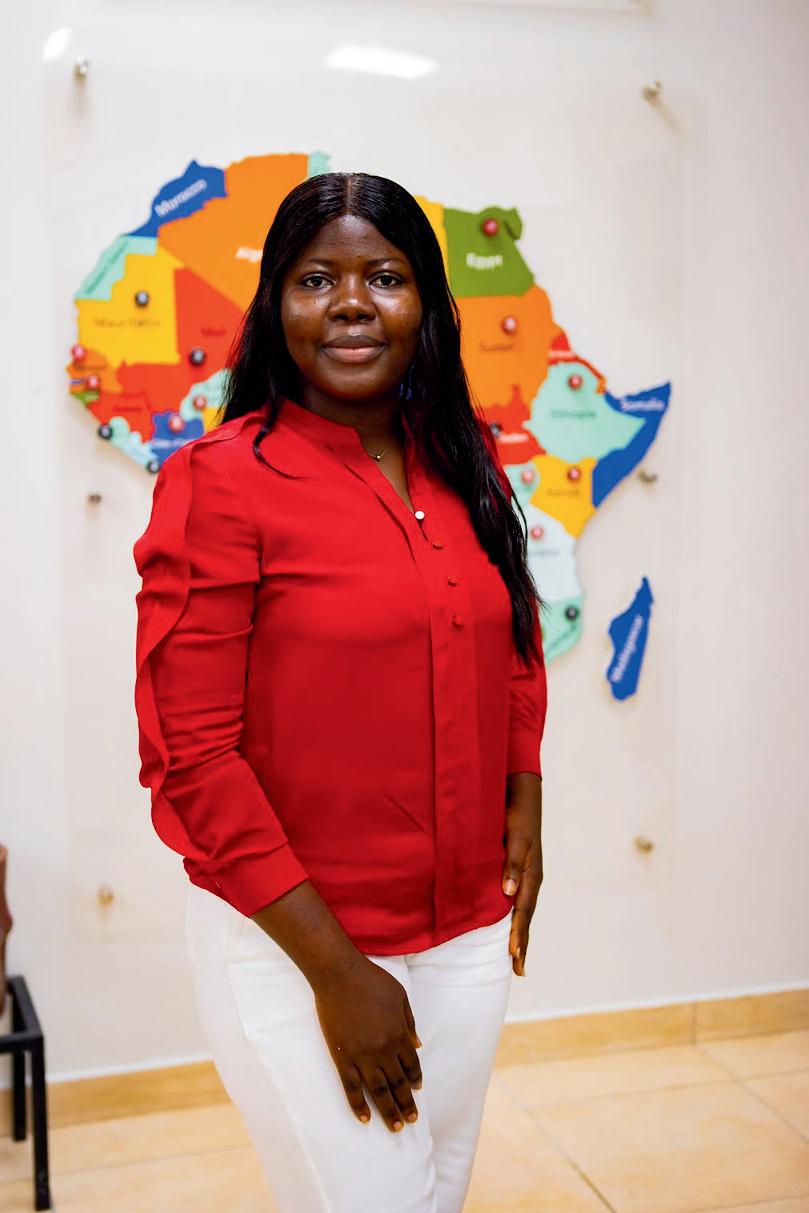
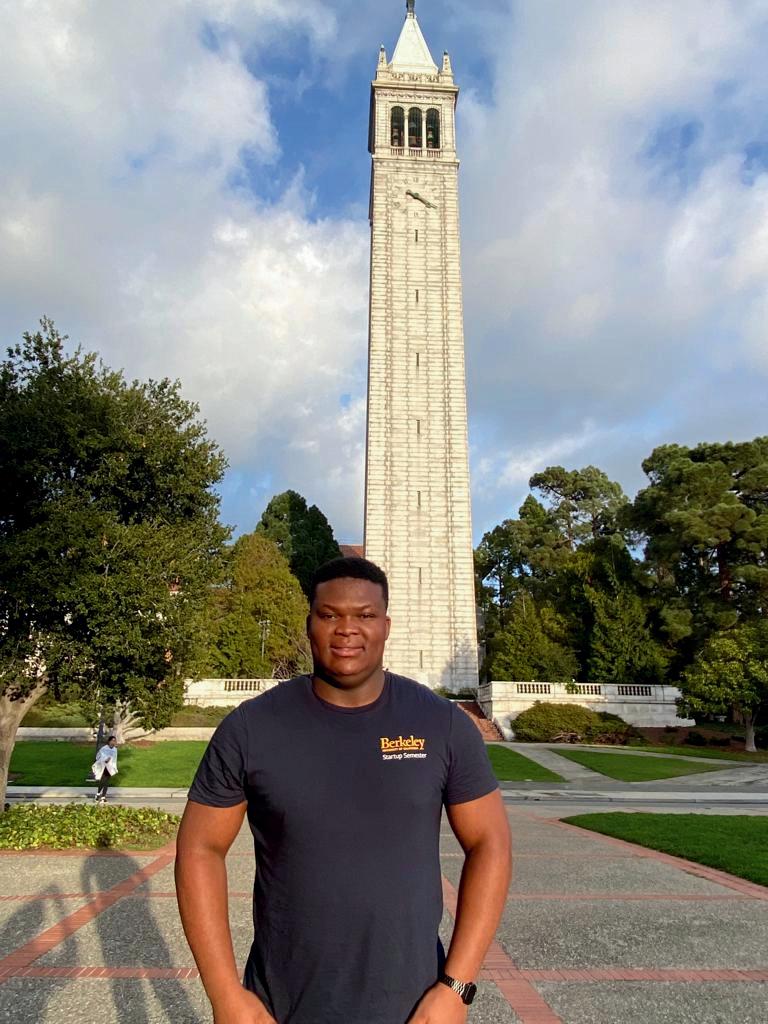
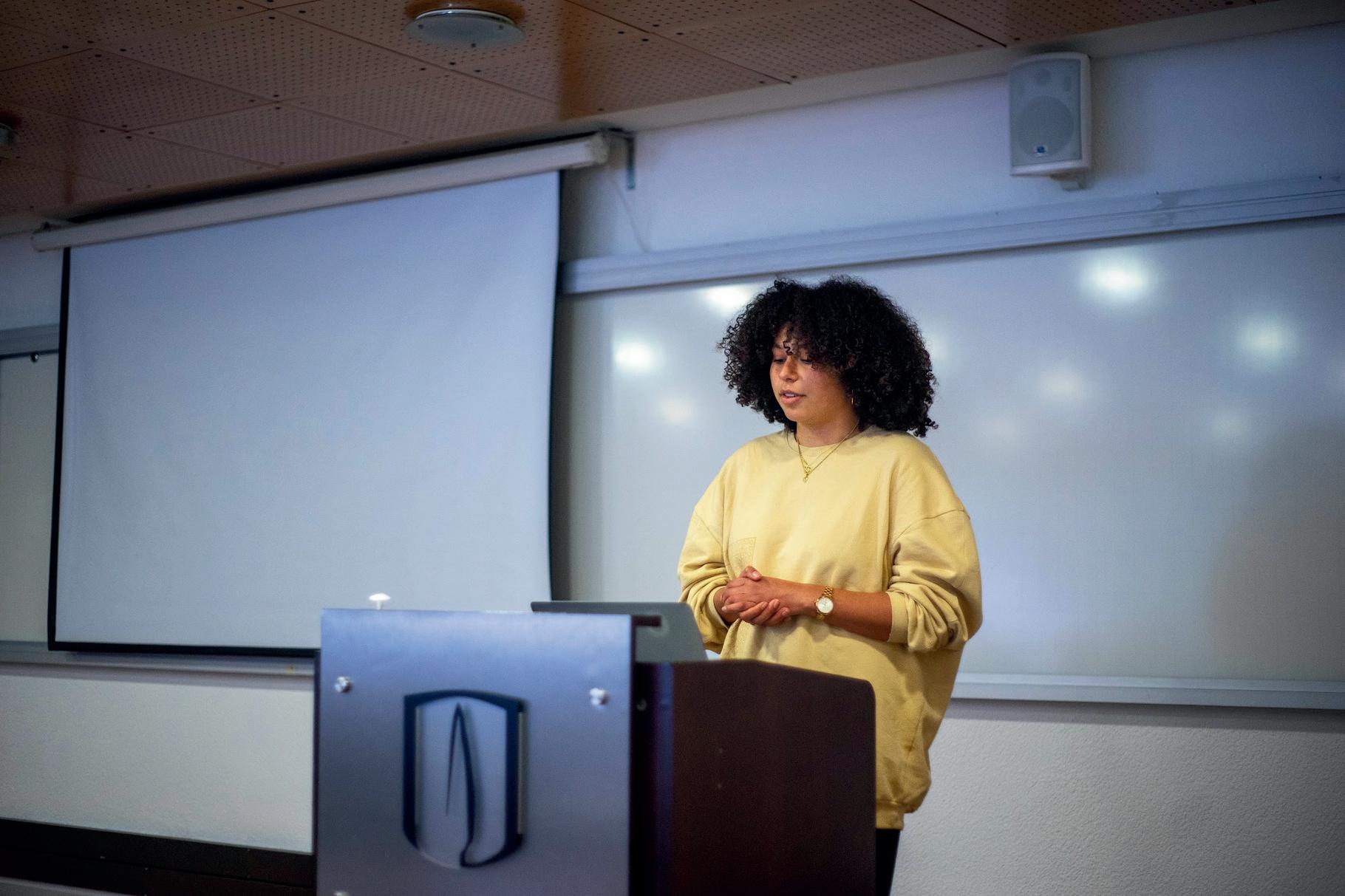
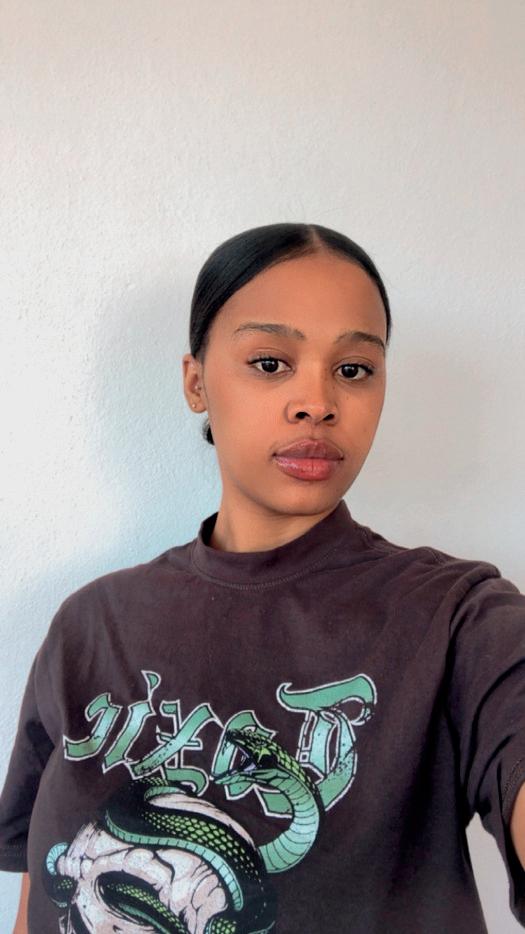

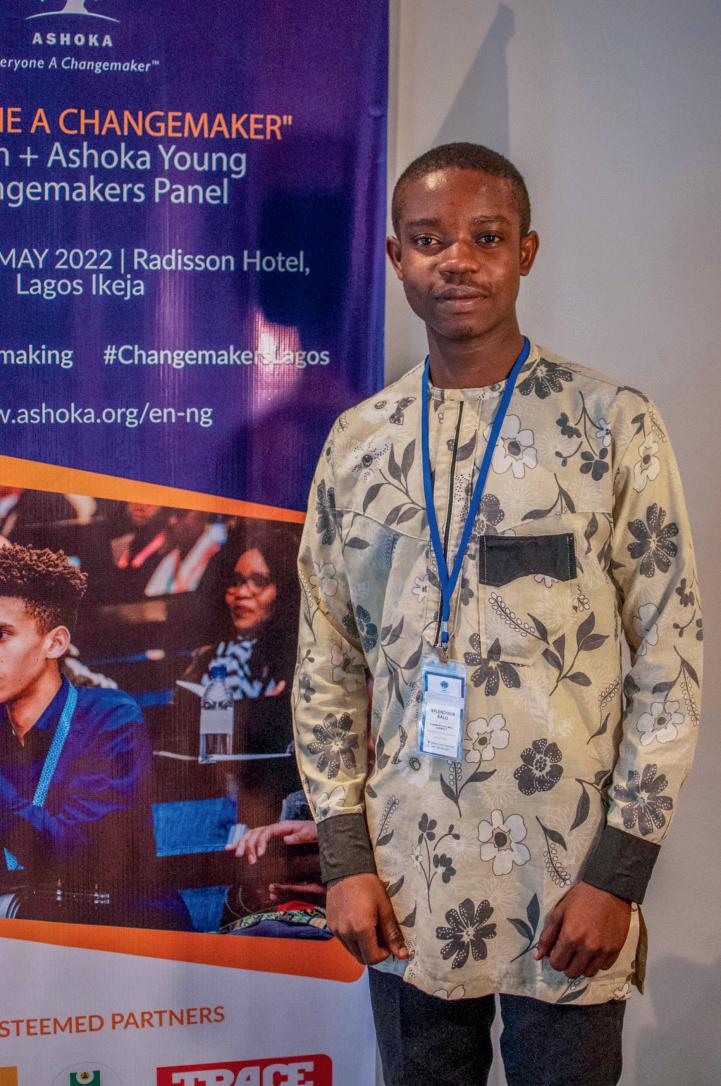
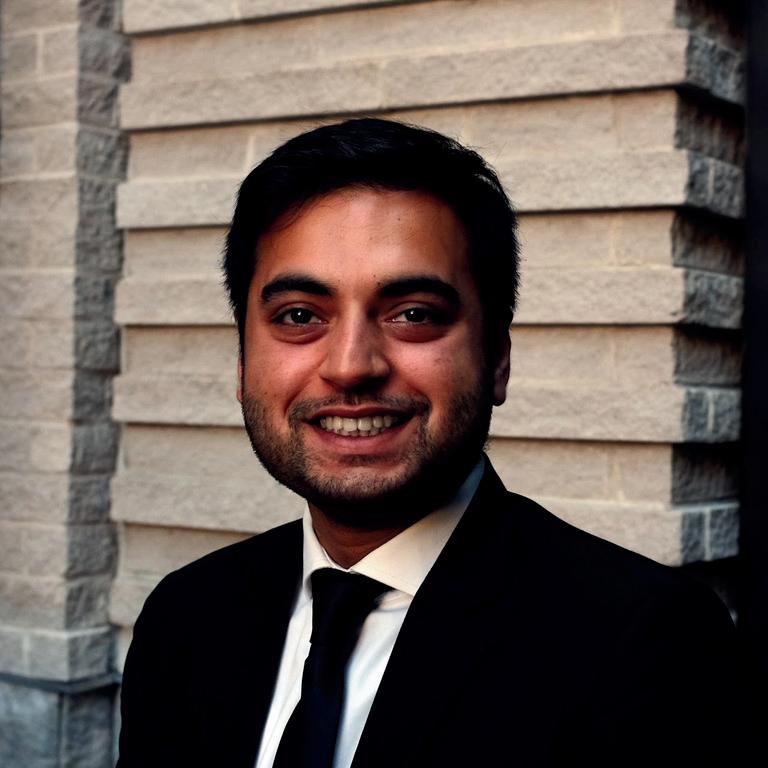
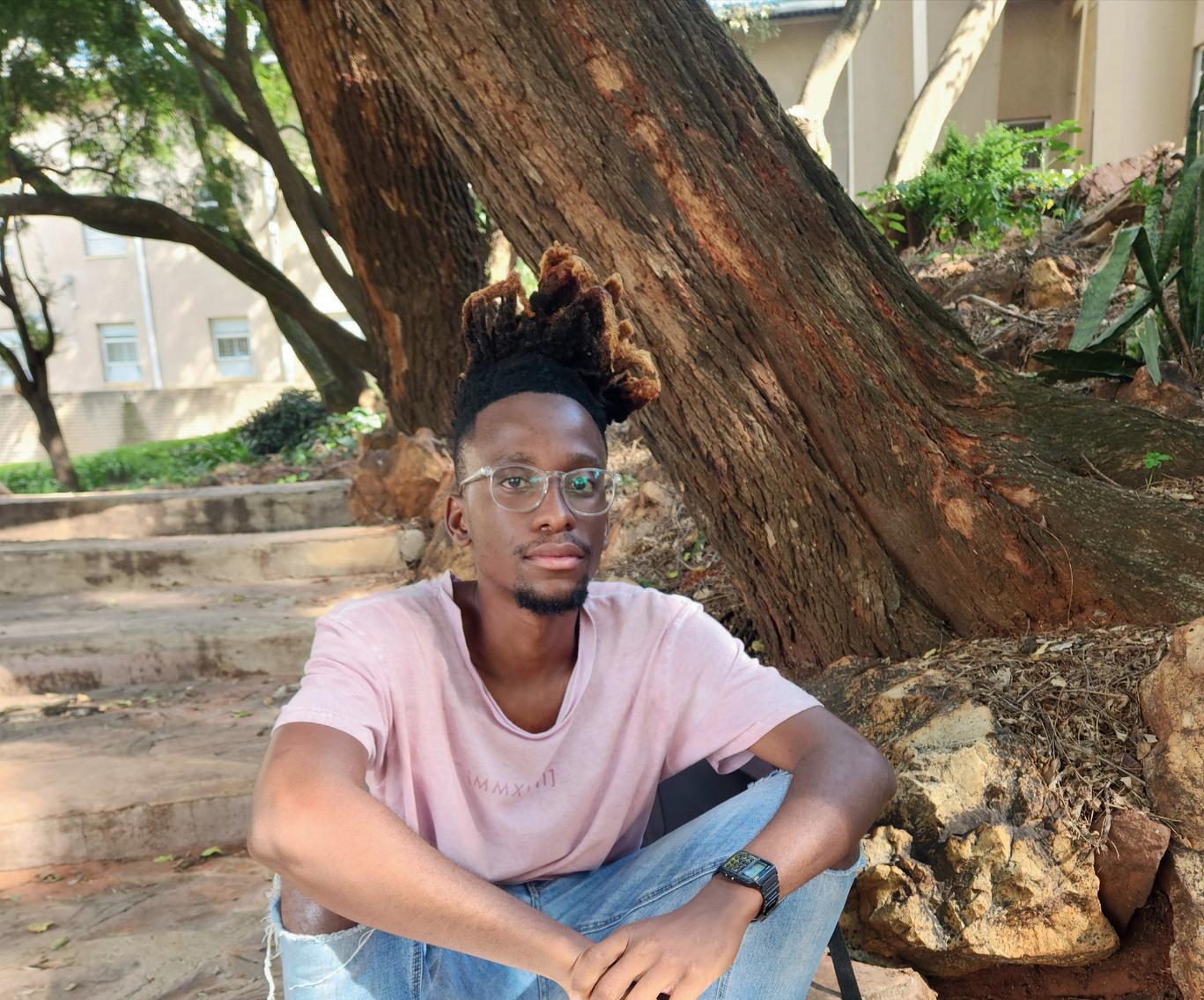
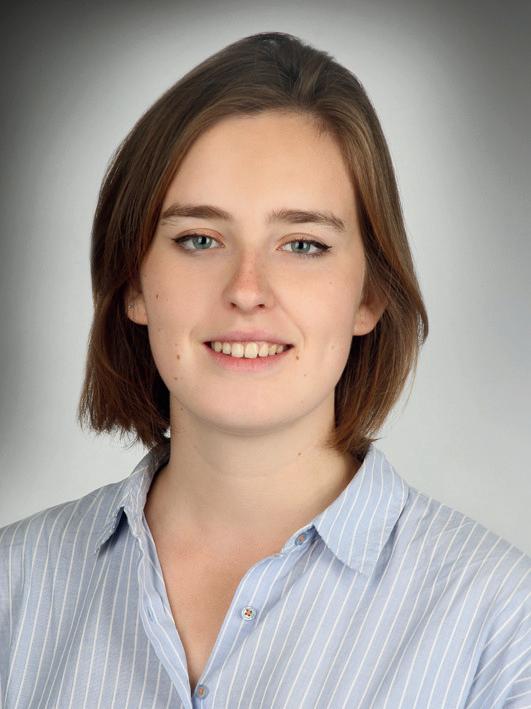

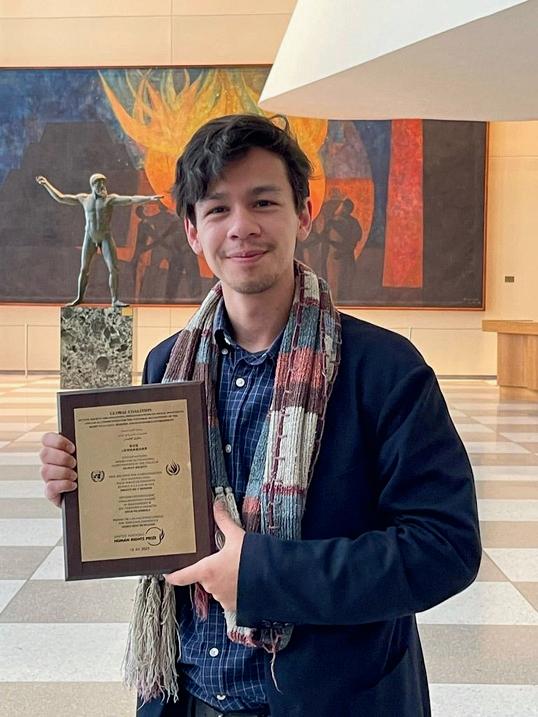
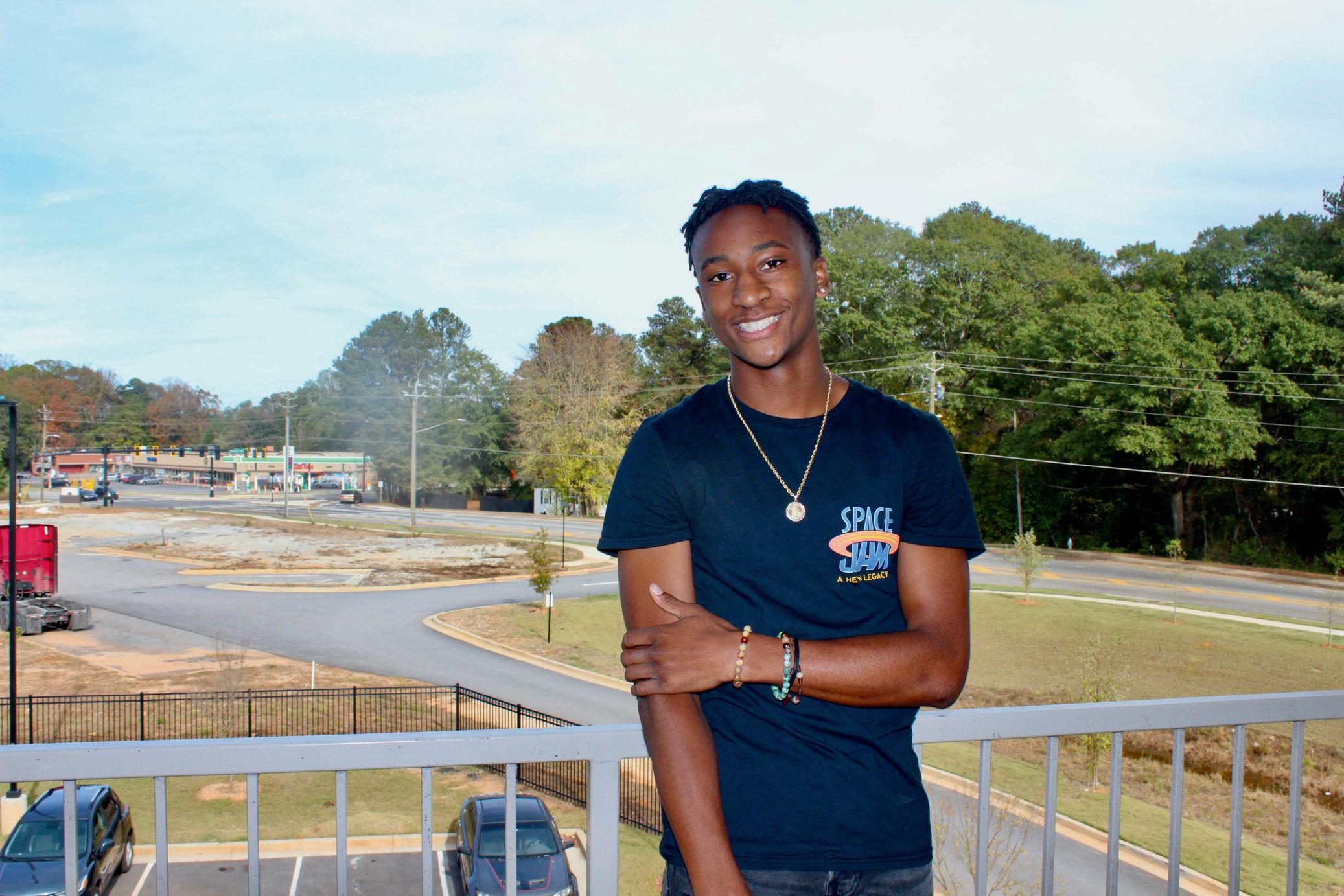
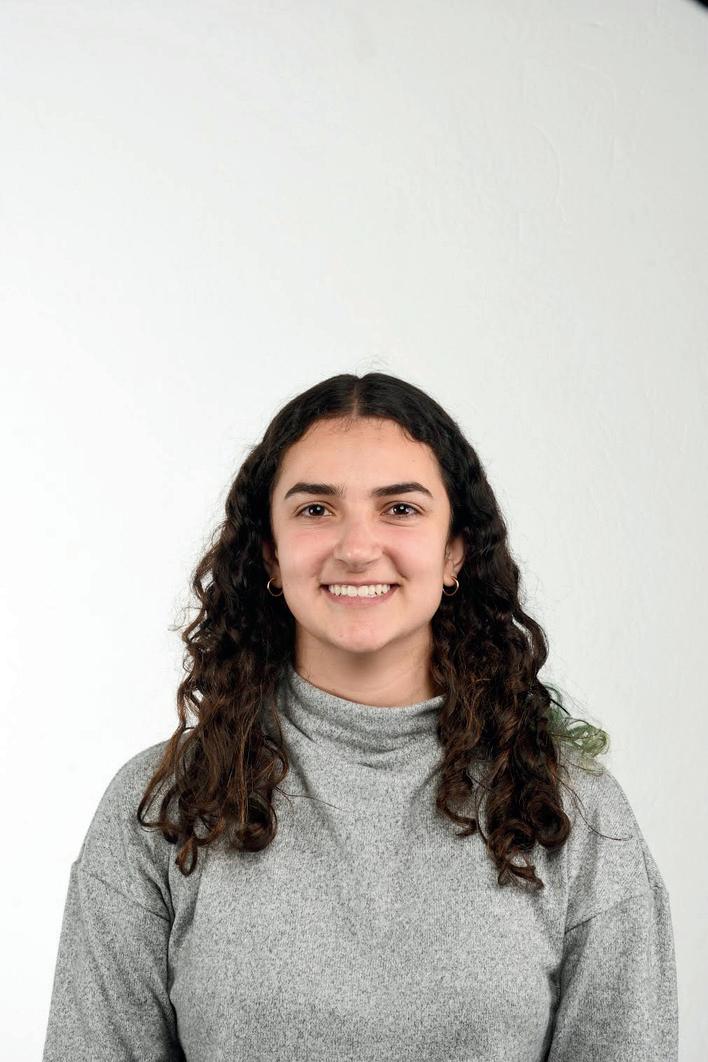
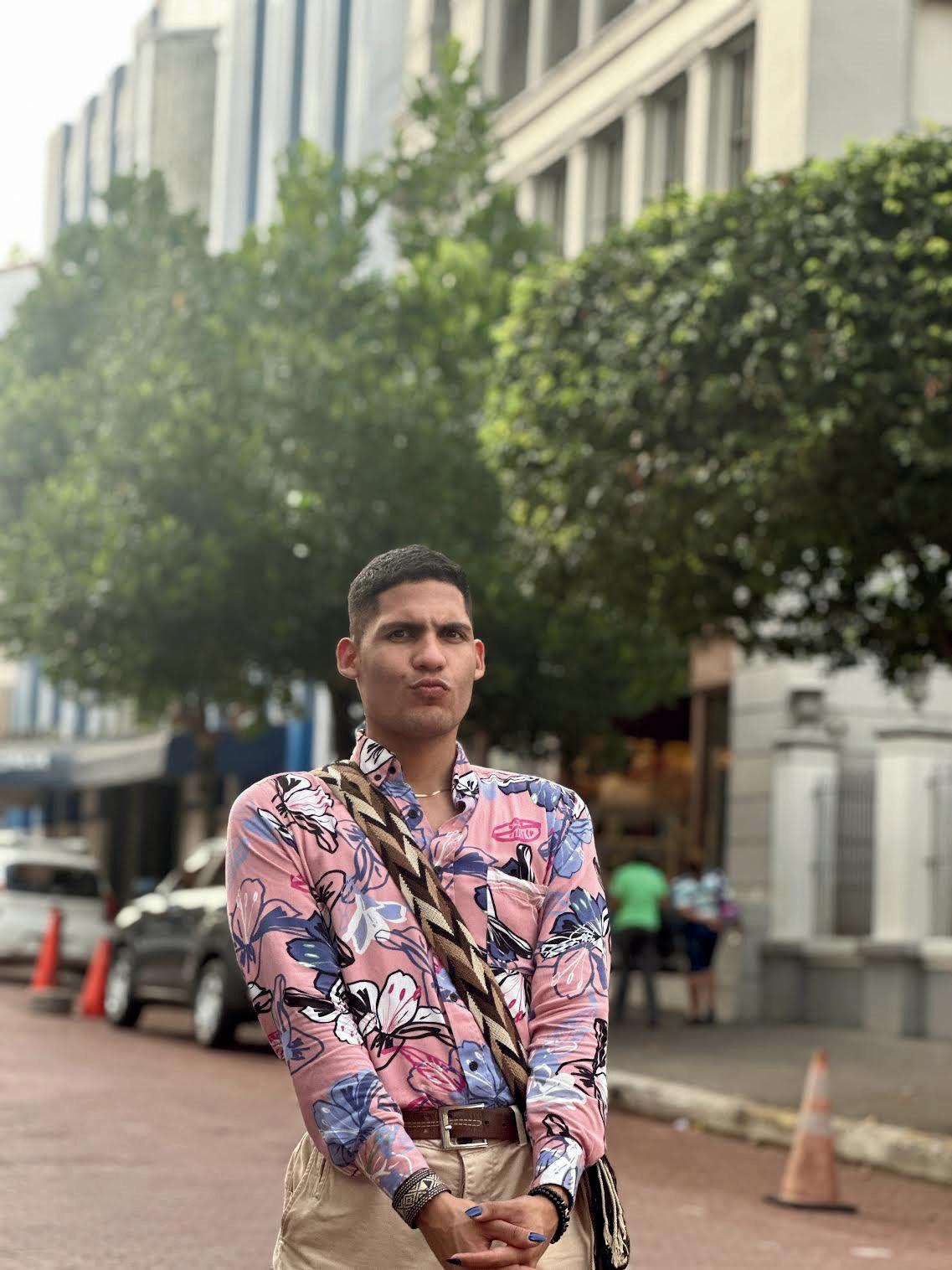 JudahFirestone-Morrill Emilia CooperItumeleng Mabotse Bard Early College Bard CollegeUniversity of Witwatersrand
Hope MokadiRobertAharanyaClaudioMyat Moe Kywe University of Witwatersrand Hubs for Connected Learning Initiatives Parami University
Maria Ruigomez Eraso Central European University (CEU)
Jaycob Beasley Tuskegee University
Cameron Jones
Jose Mauricio Gonzalez Aguacia
Laura Sofia Arana Estrada Tuskegee University Universidad de los AndesUniversidad de los Andes
Juan Andrés Universidad de los Andes
Freda AgyemanMcebo Vincent HlanzeSplendour Kalu Ashesi UniversityAshesi UniversityAshesi University
Muhammad Faraz Sadiq Bard College Berlin (BCB)
JudahFirestone-Morrill Emilia CooperItumeleng Mabotse Bard Early College Bard CollegeUniversity of Witwatersrand
Hope MokadiRobertAharanyaClaudioMyat Moe Kywe University of Witwatersrand Hubs for Connected Learning Initiatives Parami University
Maria Ruigomez Eraso Central European University (CEU)
Jaycob Beasley Tuskegee University
Cameron Jones
Jose Mauricio Gonzalez Aguacia
Laura Sofia Arana Estrada Tuskegee University Universidad de los AndesUniversidad de los Andes
Juan Andrés Universidad de los Andes
Freda AgyemanMcebo Vincent HlanzeSplendour Kalu Ashesi UniversityAshesi UniversityAshesi University
Muhammad Faraz Sadiq Bard College Berlin (BCB)
PROGRAM ENGAGEMENT GLOBAL FELLOWS
JOIN US NOW!
Global Engagement Fellows promote and coordinate thematic civic engagement projects across the Open Society University Network. Selected fellows have developed and sustained a civic engagement project and demonstrated leadership skills and a desire and aptitude for working with others.
Each academic year the program accepts at least 10 applications from universities within the OSUN. Global Engagement Fellows Program offers a variety of opportunities for the newly enrolled members from across the OSUN network. Once enrolled in the Global Engagement Fellows Program, fellows will receive a onetime grant of up to 1000$ to spend on developing their Civic Engagement Projects further in their institution and their community.
Throughout each academic year, fellows work together to help students at their universities. Each Global Fellow has at least 4 hours of office hours throughout the week, where they meet students and advise them on how to move forward with their projects. Moreover, the Global Engagement Fellows Program opens a supportive space for young leaders to initiate the community-minded project to serve for the common good of the OSUN students.

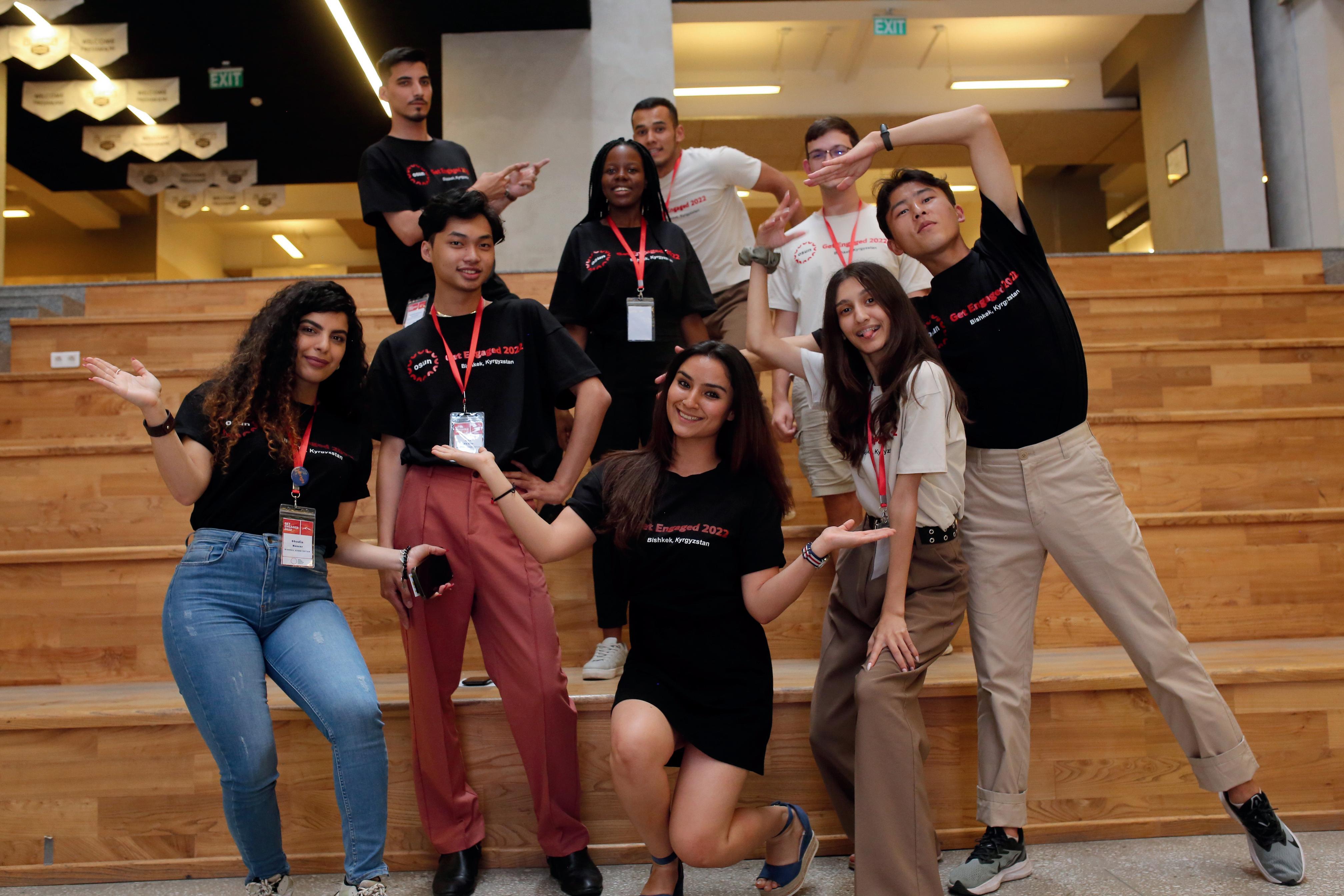
Additionally, fellows get to work alongside an international team made up of brilliant and passionate individuals who are committed to ensuring the world becomes better, just like you are. Being a global fellow means you want to help lead that change. OSUN is committed to ensuring fellows are provided with all the support you need – from mentorship to funding – to lead civic engagement successfully. Fellows will go through a series of workshops that are designed to provide them the necessary leadership skills that they need. These are workshops like: How to write a proposal, how to create a budget and information sessions on other opportunities they can apply for, which will help you implement your project better. Moreover, Global Engagement fellows also get the opportunity to participate in different workshops, panels and conferences to tell their stories, network with other student leaders and inspire other students to start their own civic work.
Join us to create an impact for the university student’s community across our institutional network.
"Being a global fellow gave me the opportunity to transfer my initiatives and ideas into life, creating on campus and within the network projects that are allowing me to cooperate and work with so many inspirational leaders. This program enabled me to become a change maker and give me the motivation that I am taking further" – Rokhila Saidasanova
70
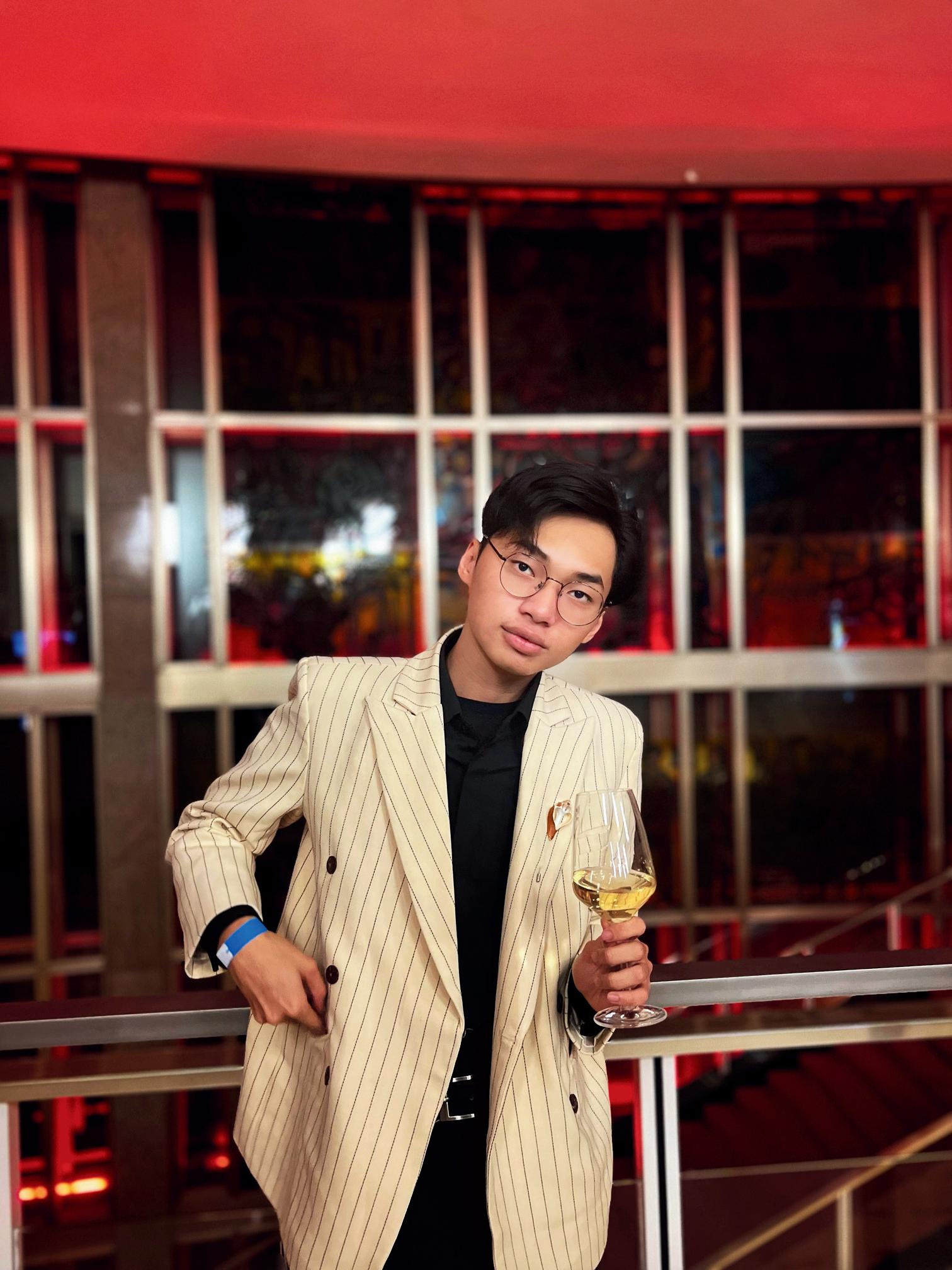
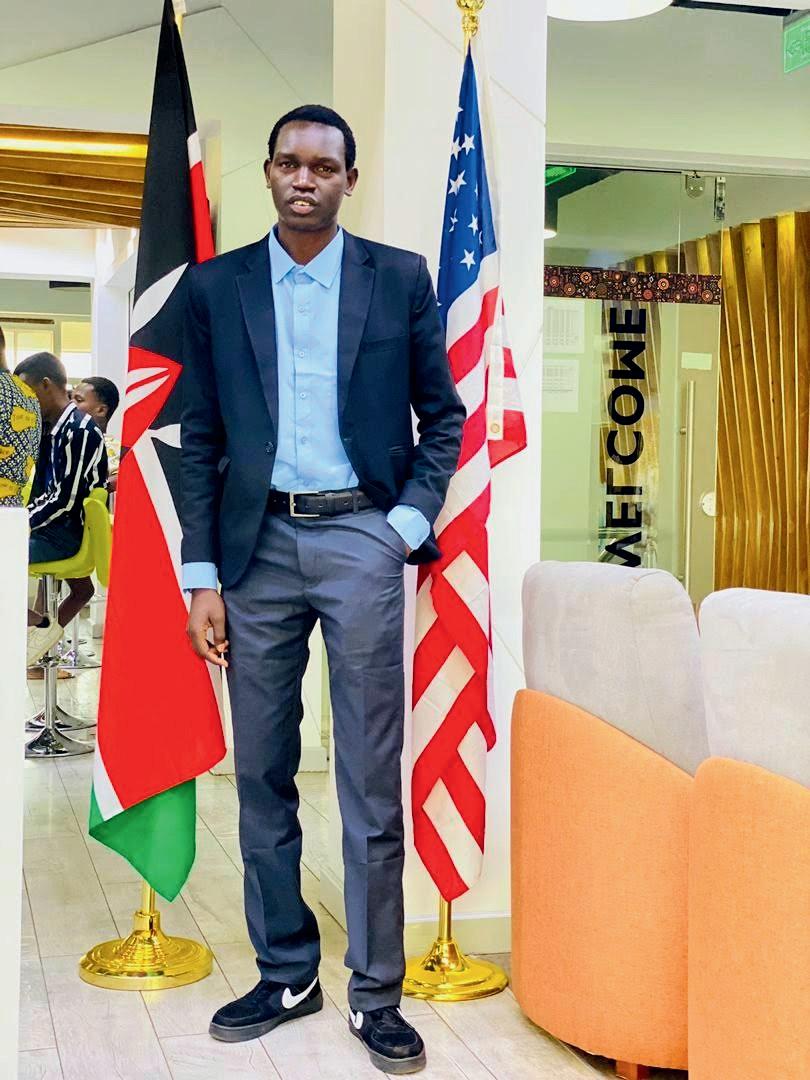
OUR
ANNUAL MAGAZINE TEAM MEET
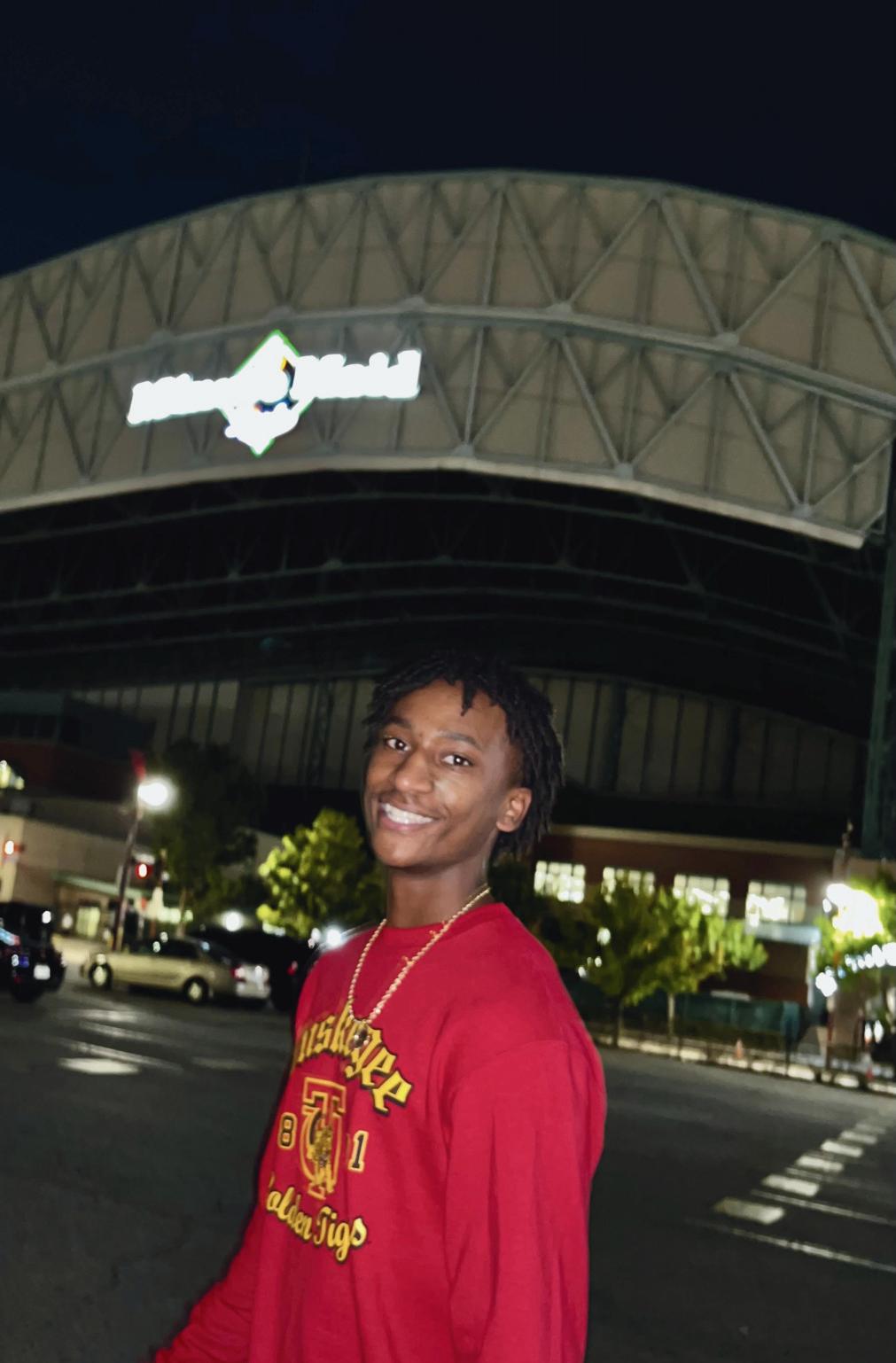

Vũ Đức Huy - Program Assistant - Annual Magazine Editor-in-Chief
Christina Anastas - Al-Quds Bard College for Arts and Science (AQB)
Freda Agyeman - Ashesi University
Muhammad Faraz Sadiq - Bard College Berlin
Jaycob Beasley - Tuskegee University
Robert Aharanya Claudio - Hubs for Connected Learning Initiatives
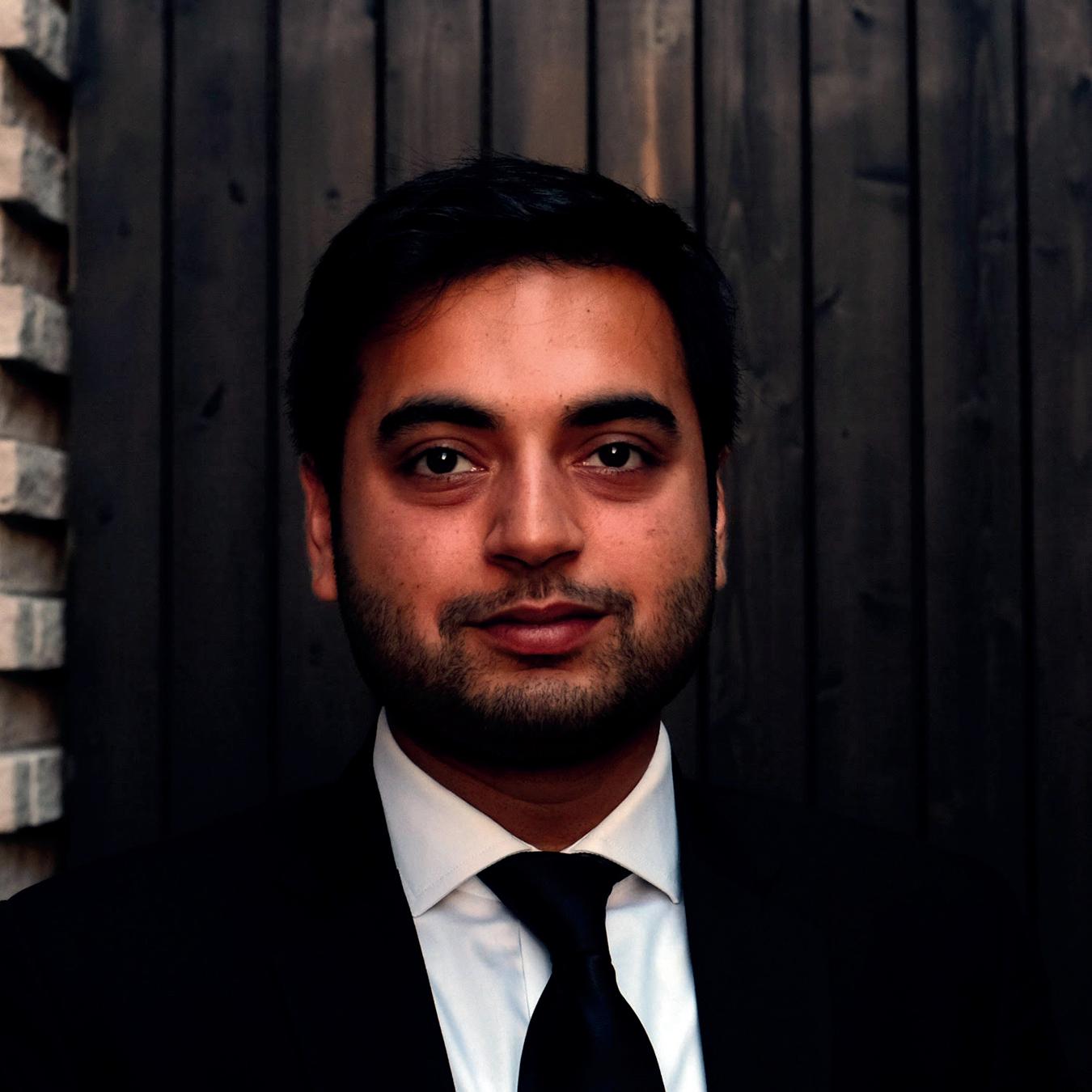
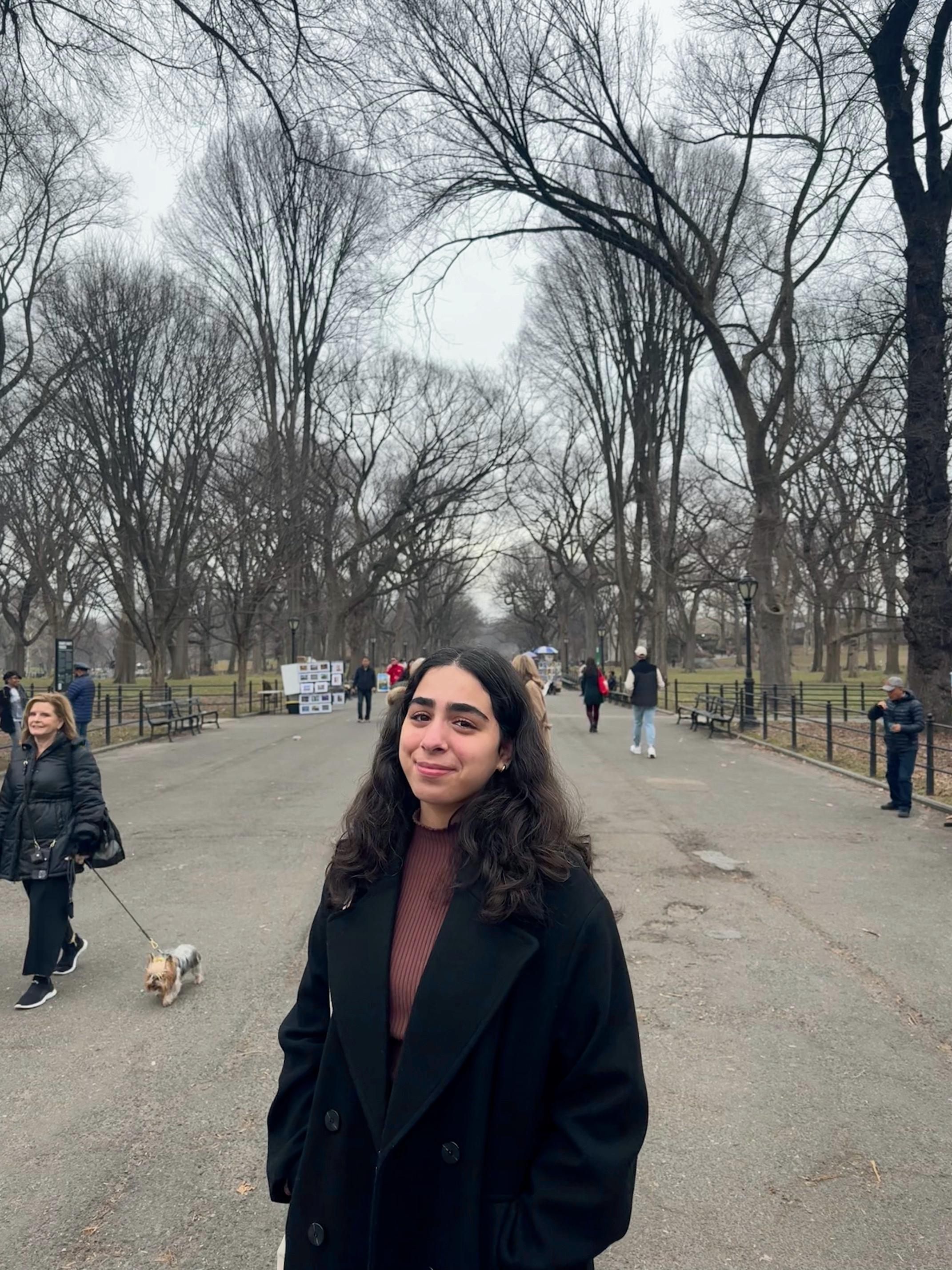
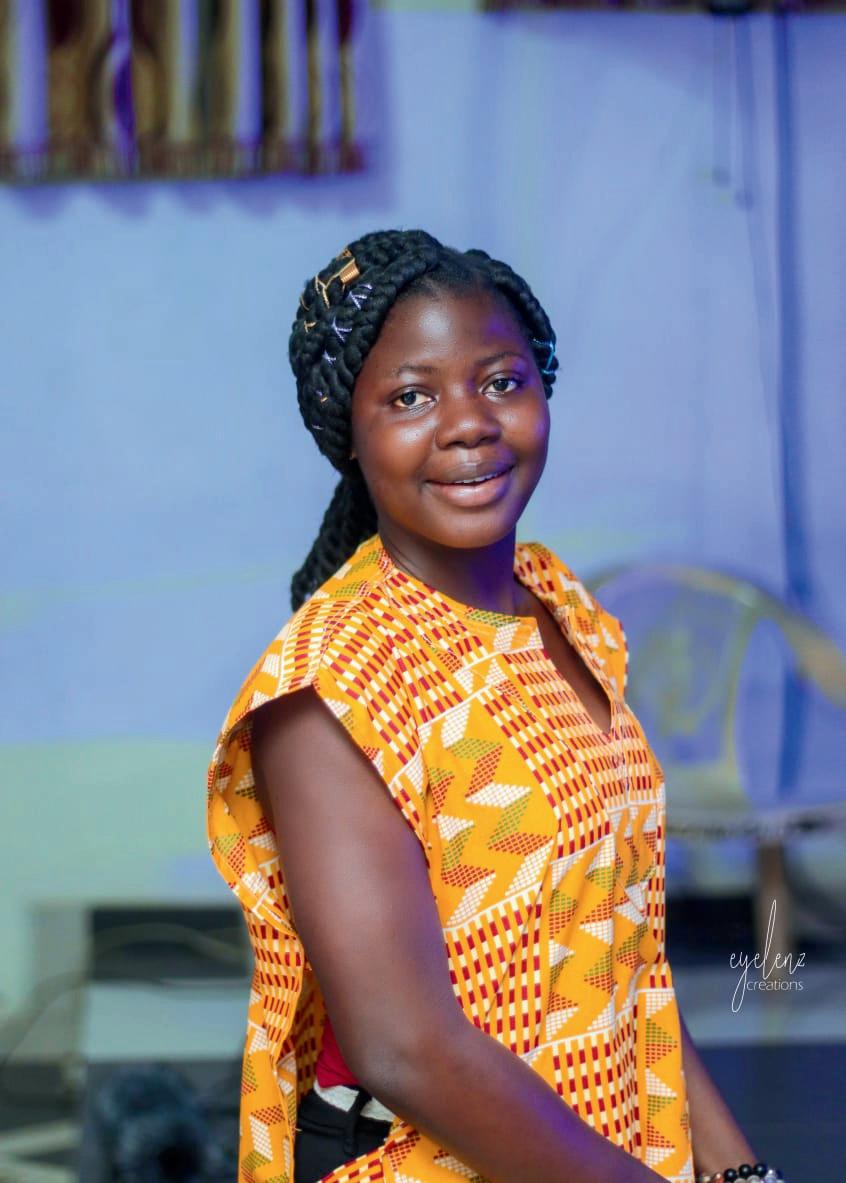
71
GLOBAL ENGAGEMENT FELLOWS ANNUAL MAGAZINE
CONTACT US
Global Engagement Fellowship Program
Open Society University Network
Website: Opensocietyuniversitynetwork.org
Email: zarsarmast@gmail.com
Email: huyvu.yuuorg@gmail.com
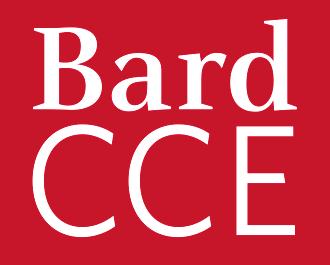
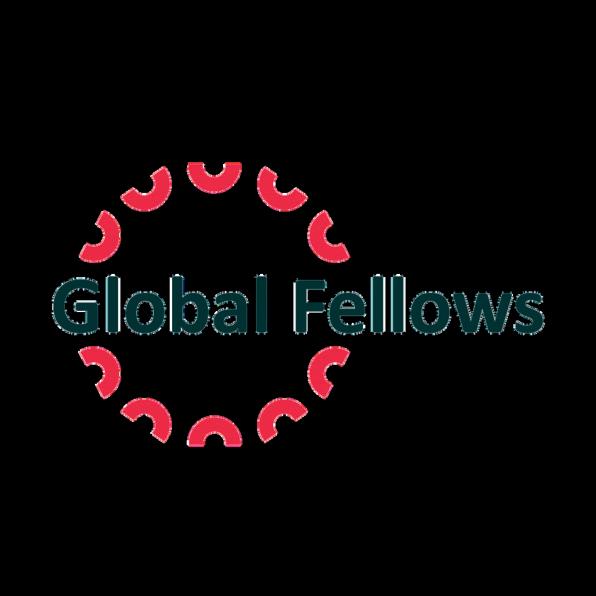

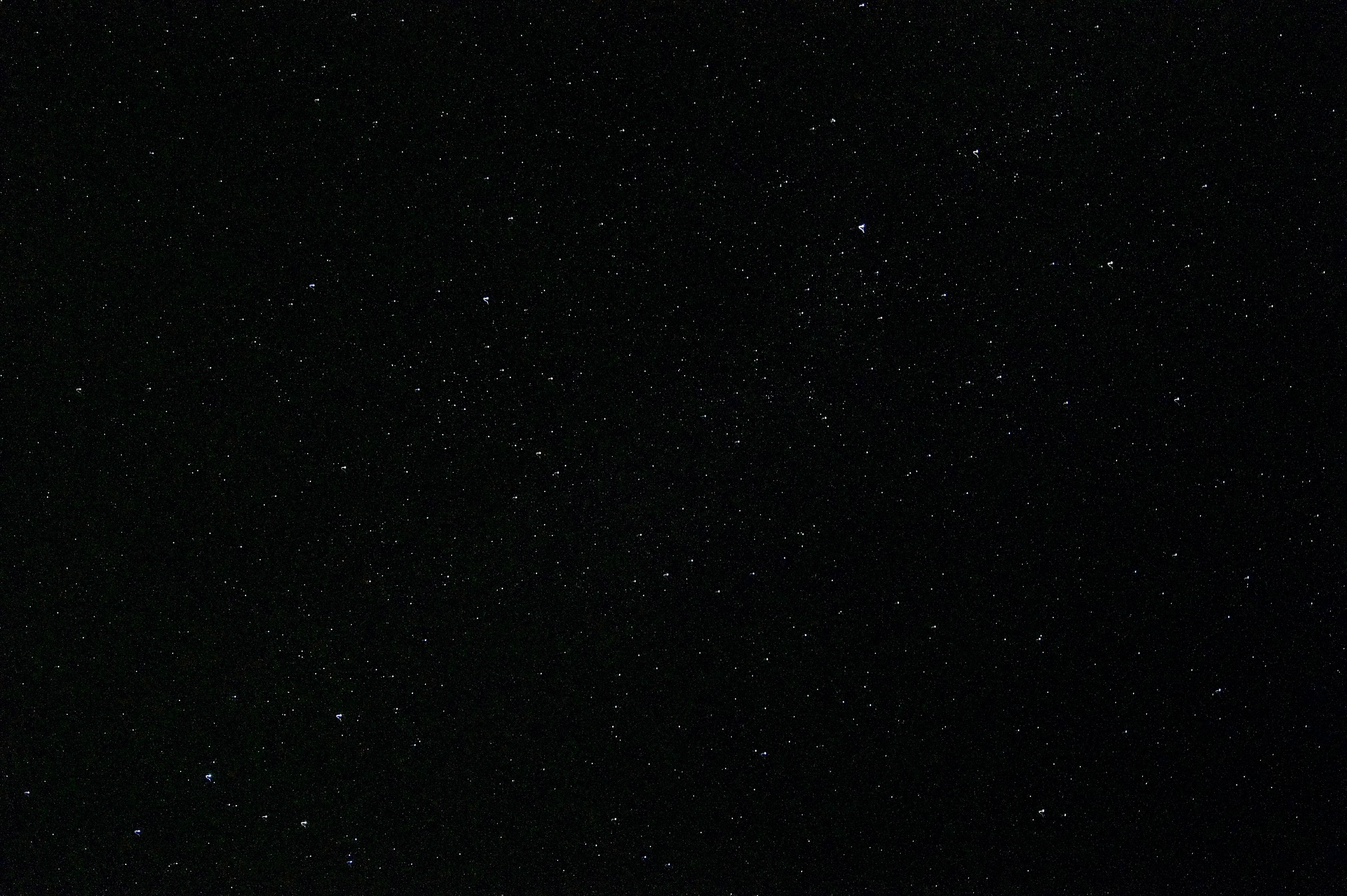




































































































 Dareen AlhajarefSayedAnwarIbrahimiĐặngThịThảoNguyên Al-Quds Bard College for Arts and Science (AQB) American University of Central Asia (AUCA) Fulbright University Vietnam
Christina AnastasQais Ahmad DostElham Wardak Al-Quds Bard College for Arts and Science (AQB) American University of Afghanistan (AUAF) American University of Afghanistan (AUAF)
Hasibul Hasan Ahmed BRAC University
Hussein Al-Ameri American University of Beirut (AUB)
Roya MalikyIren Dimitrova Navruzmo Khayolbekova American University of Beirut (AUB) American University of Bulgaria (AUBG) American University of Central Asia (AUCA)
Oybek Turaev American University of Central Asia (AUCA)
Zarlasht Sarmast Program Coordinator
Vũ Đức Huy Program Assistant
Dareen AlhajarefSayedAnwarIbrahimiĐặngThịThảoNguyên Al-Quds Bard College for Arts and Science (AQB) American University of Central Asia (AUCA) Fulbright University Vietnam
Christina AnastasQais Ahmad DostElham Wardak Al-Quds Bard College for Arts and Science (AQB) American University of Afghanistan (AUAF) American University of Afghanistan (AUAF)
Hasibul Hasan Ahmed BRAC University
Hussein Al-Ameri American University of Beirut (AUB)
Roya MalikyIren Dimitrova Navruzmo Khayolbekova American University of Beirut (AUB) American University of Bulgaria (AUBG) American University of Central Asia (AUCA)
Oybek Turaev American University of Central Asia (AUCA)
Zarlasht Sarmast Program Coordinator
Vũ Đức Huy Program Assistant













 JudahFirestone-Morrill Emilia CooperItumeleng Mabotse Bard Early College Bard CollegeUniversity of Witwatersrand
Hope MokadiRobertAharanyaClaudioMyat Moe Kywe University of Witwatersrand Hubs for Connected Learning Initiatives Parami University
Maria Ruigomez Eraso Central European University (CEU)
Jaycob Beasley Tuskegee University
Cameron Jones
Jose Mauricio Gonzalez Aguacia
Laura Sofia Arana Estrada Tuskegee University Universidad de los AndesUniversidad de los Andes
Juan Andrés Universidad de los Andes
Freda AgyemanMcebo Vincent HlanzeSplendour Kalu Ashesi UniversityAshesi UniversityAshesi University
Muhammad Faraz Sadiq Bard College Berlin (BCB)
JudahFirestone-Morrill Emilia CooperItumeleng Mabotse Bard Early College Bard CollegeUniversity of Witwatersrand
Hope MokadiRobertAharanyaClaudioMyat Moe Kywe University of Witwatersrand Hubs for Connected Learning Initiatives Parami University
Maria Ruigomez Eraso Central European University (CEU)
Jaycob Beasley Tuskegee University
Cameron Jones
Jose Mauricio Gonzalez Aguacia
Laura Sofia Arana Estrada Tuskegee University Universidad de los AndesUniversidad de los Andes
Juan Andrés Universidad de los Andes
Freda AgyemanMcebo Vincent HlanzeSplendour Kalu Ashesi UniversityAshesi UniversityAshesi University
Muhammad Faraz Sadiq Bard College Berlin (BCB)









